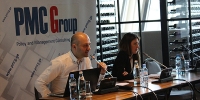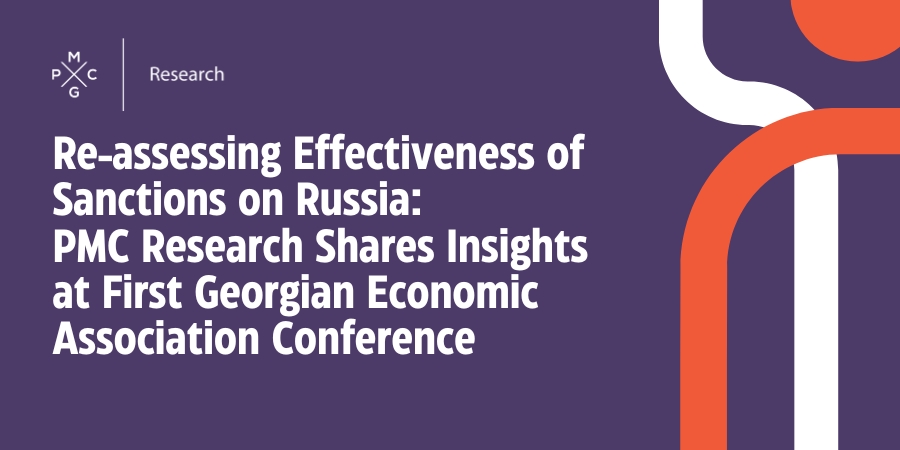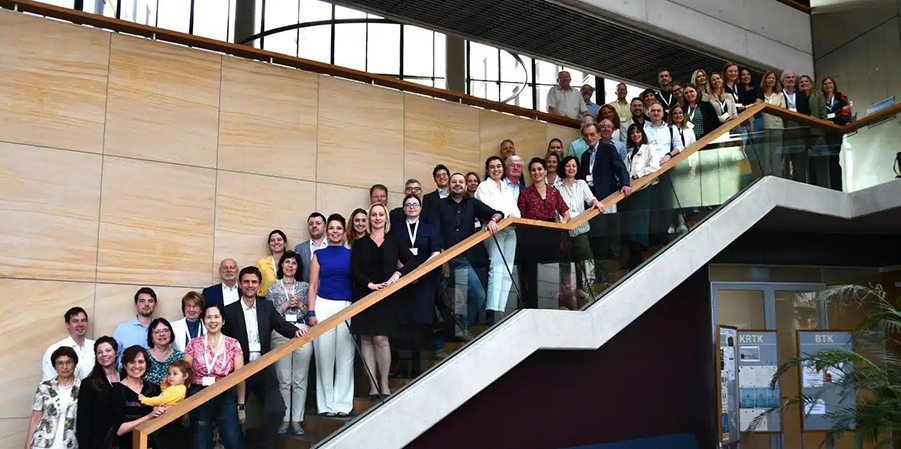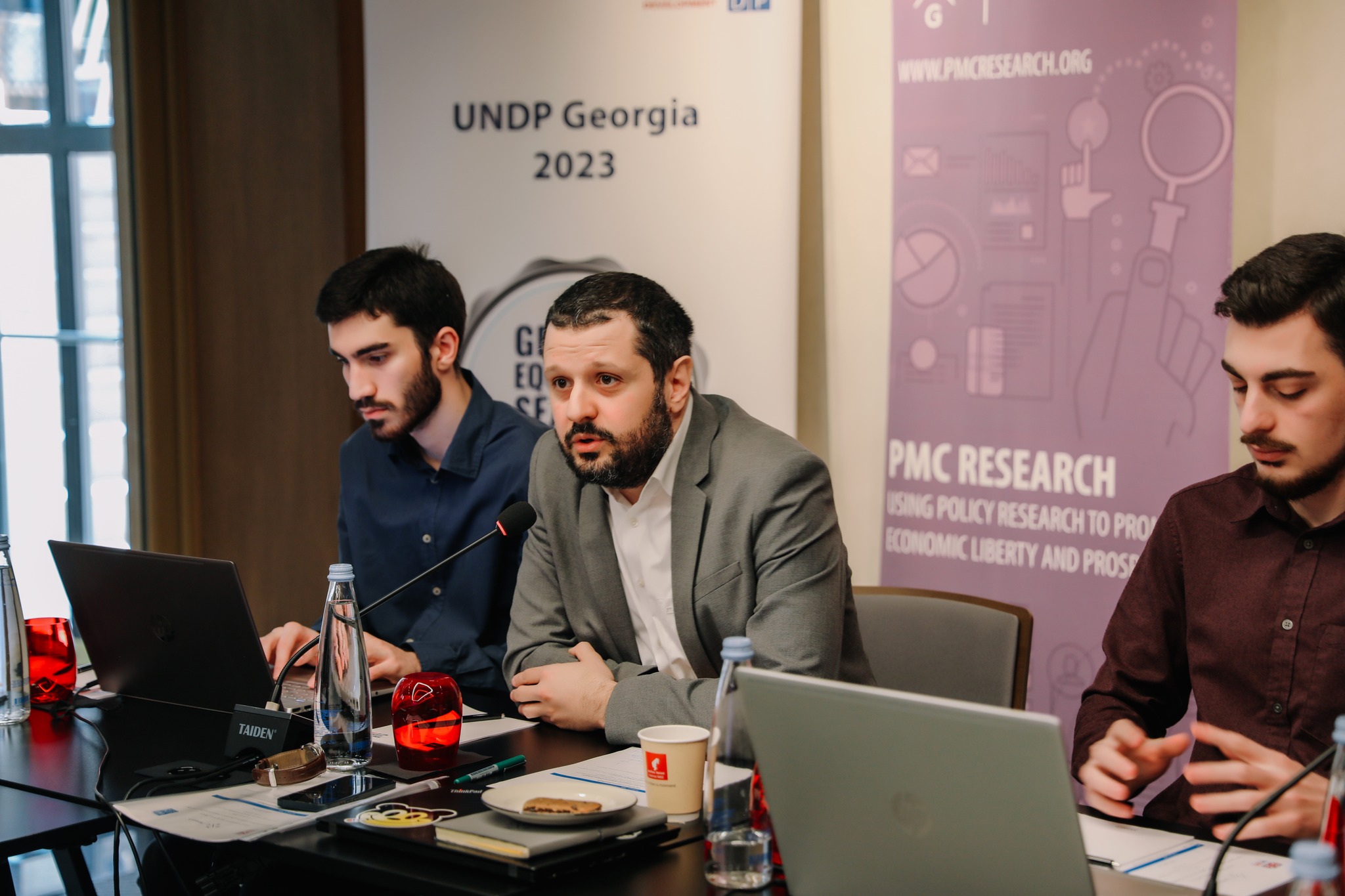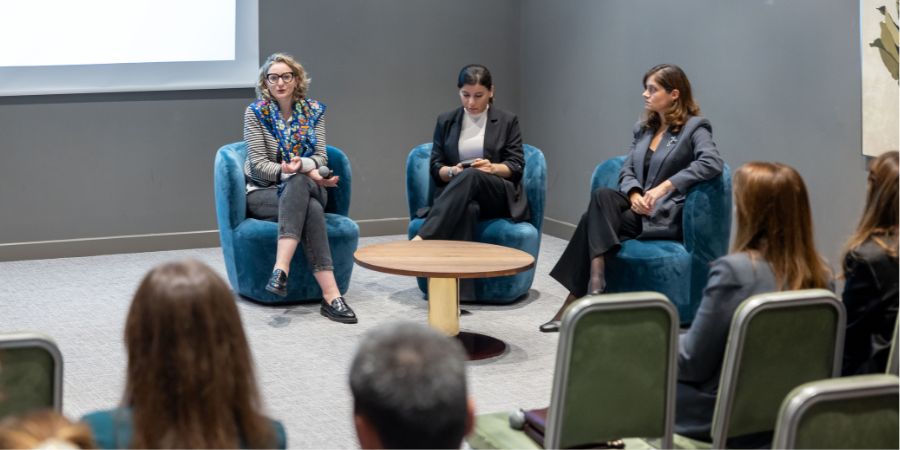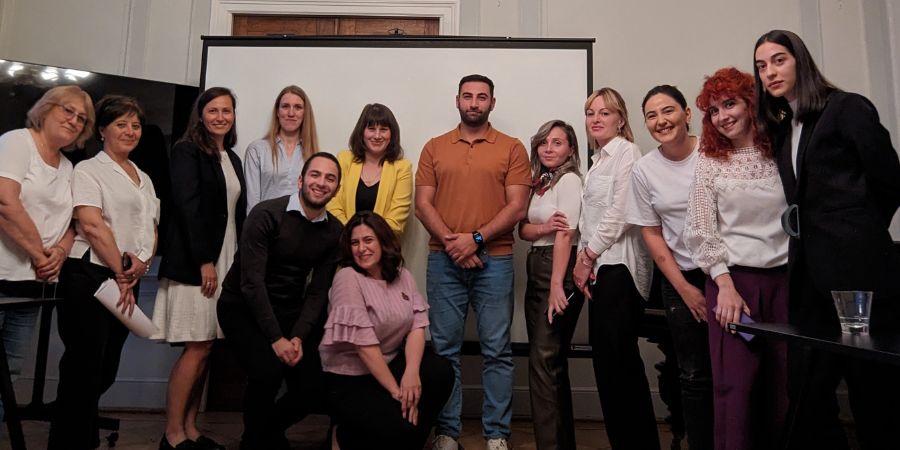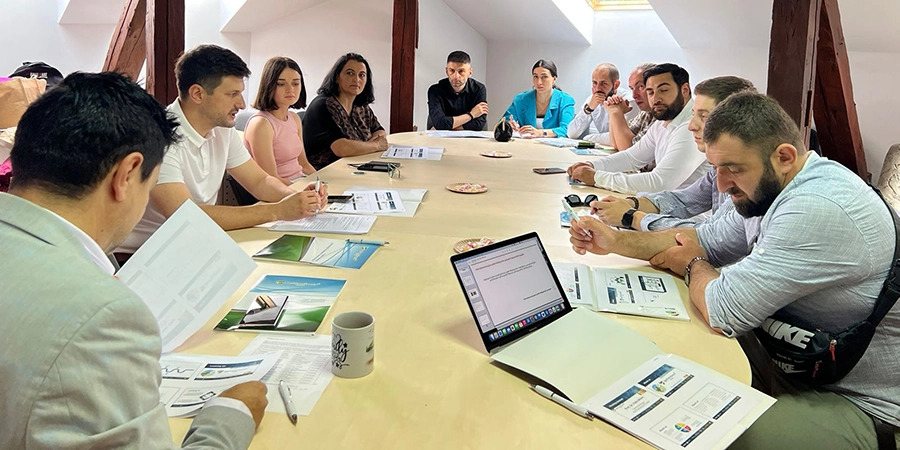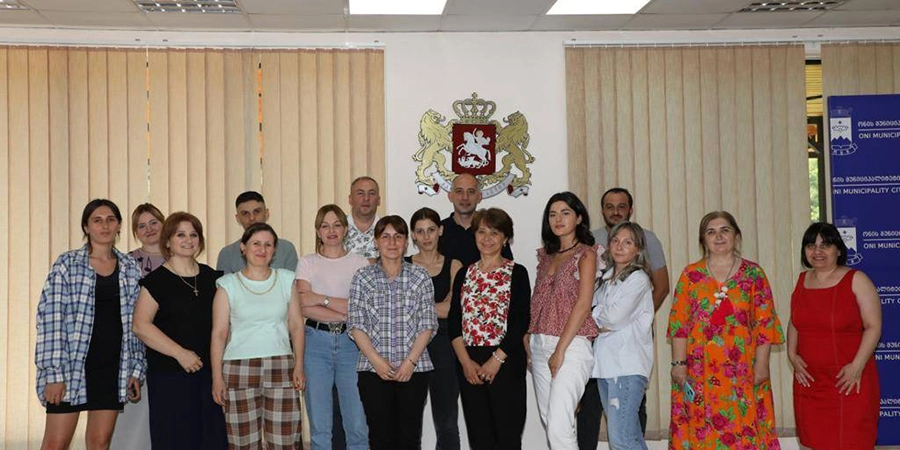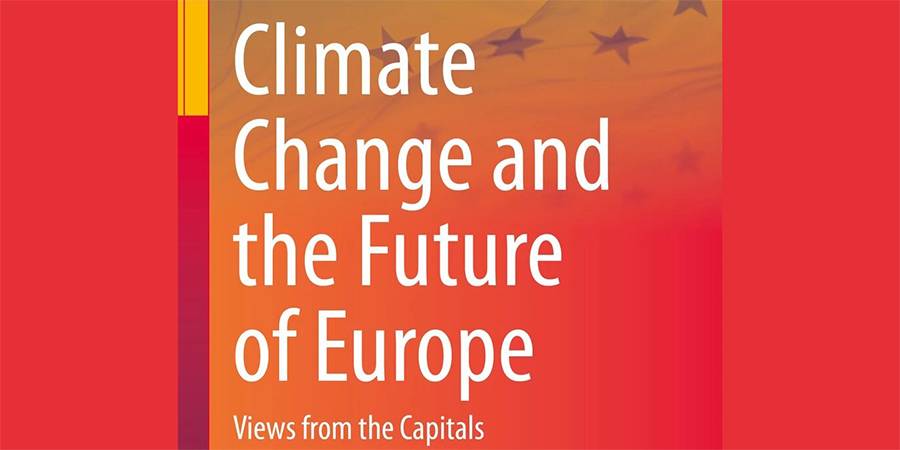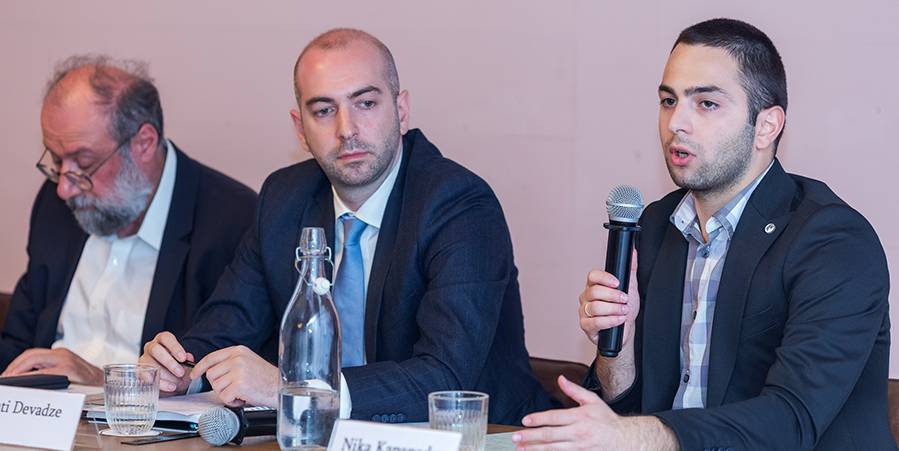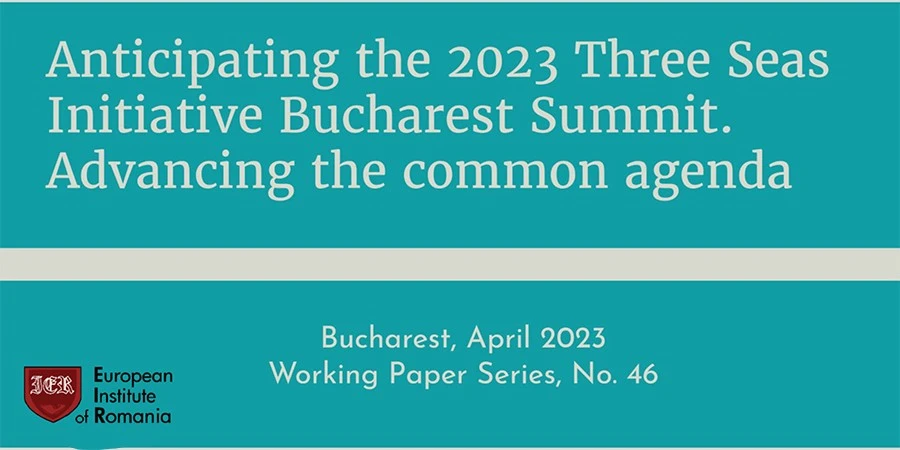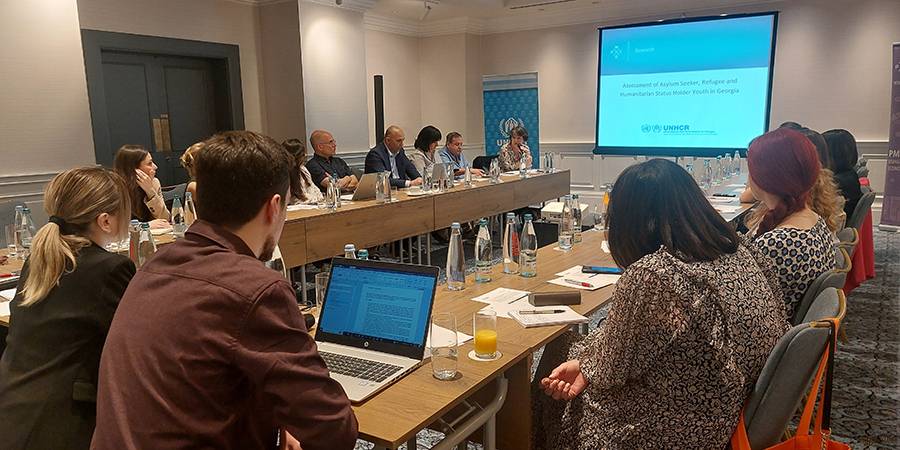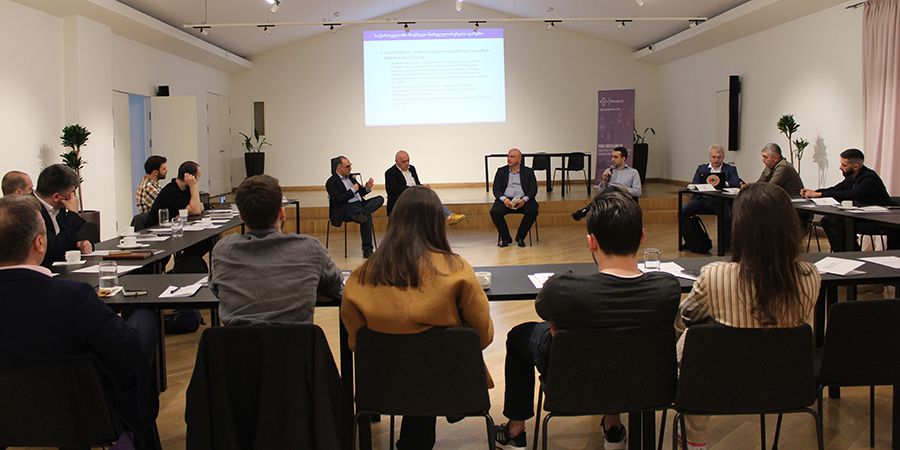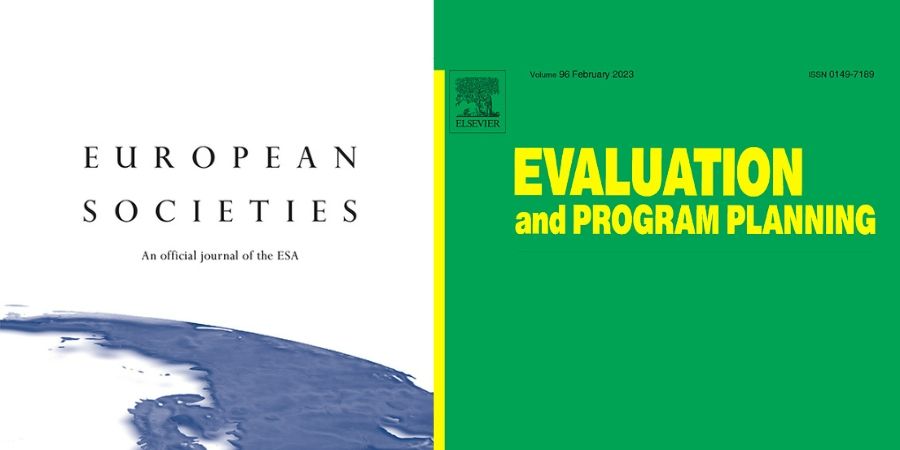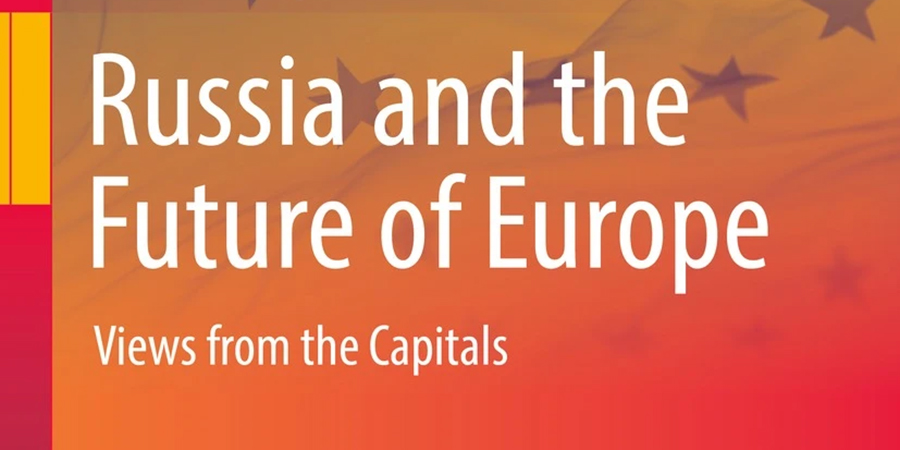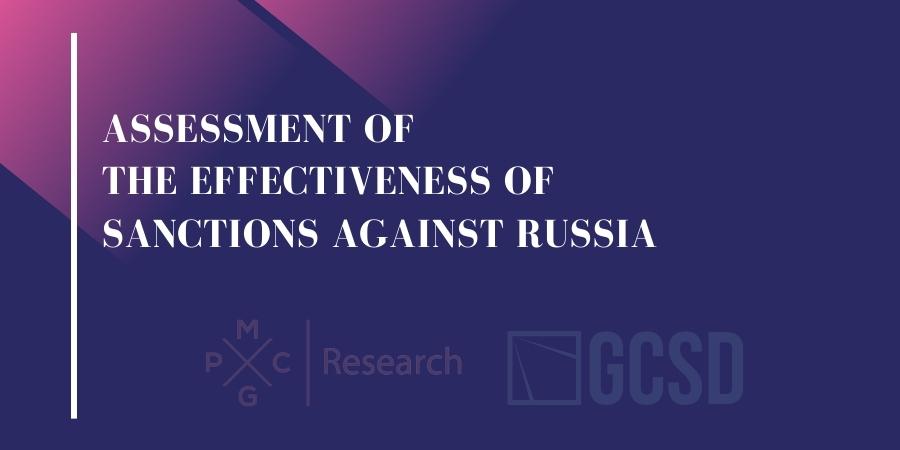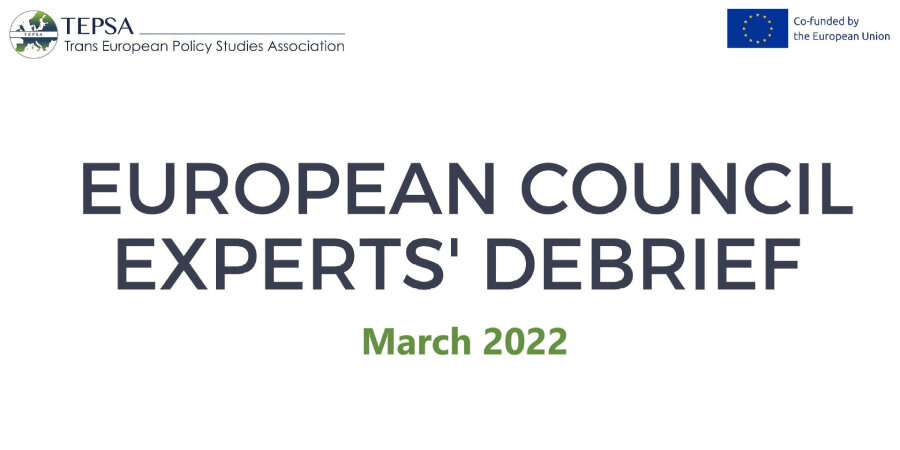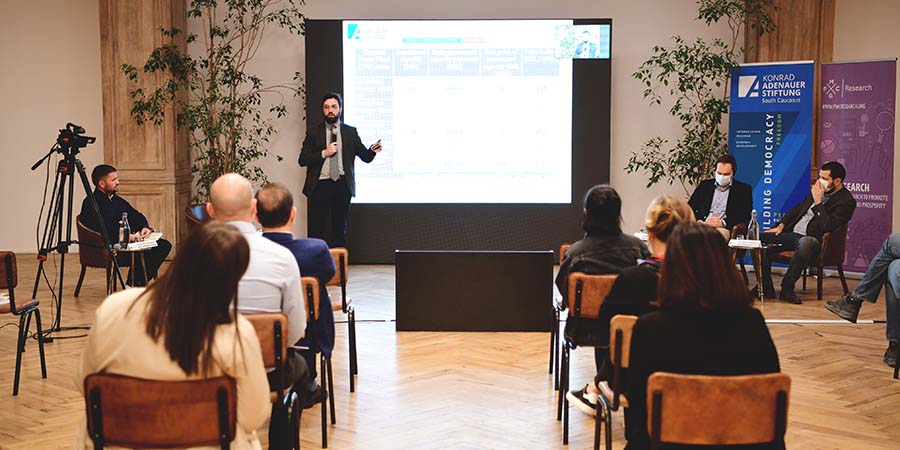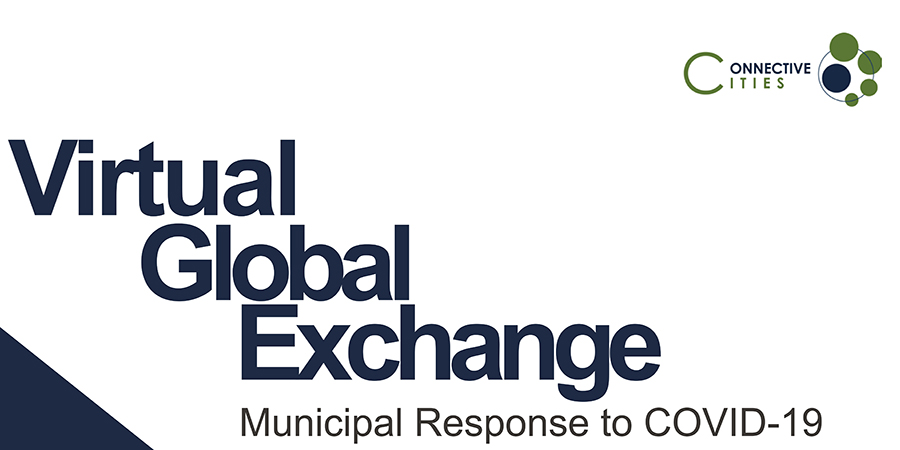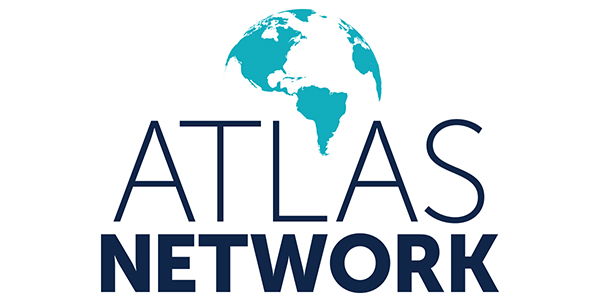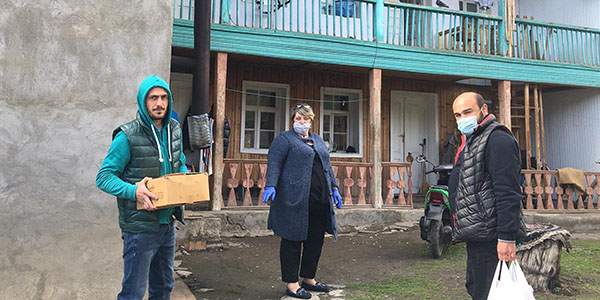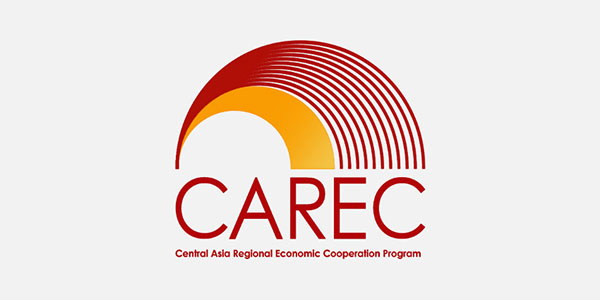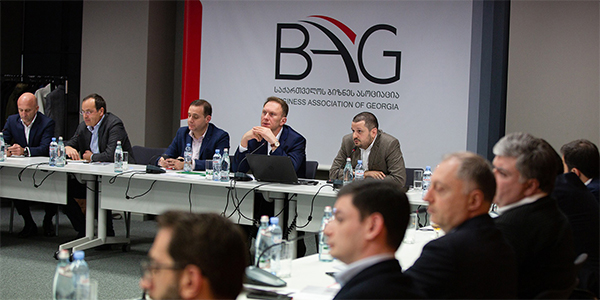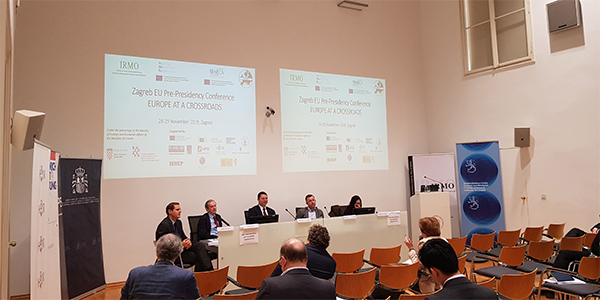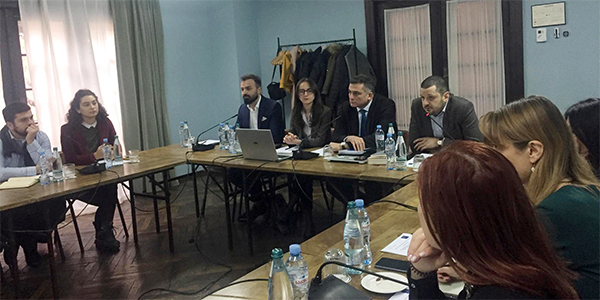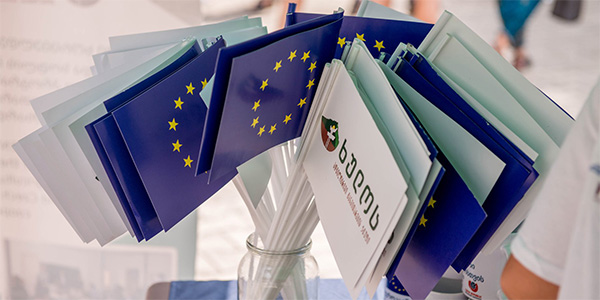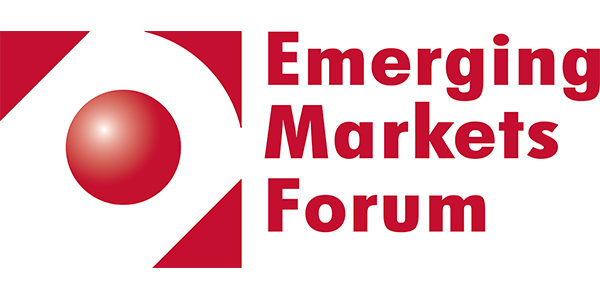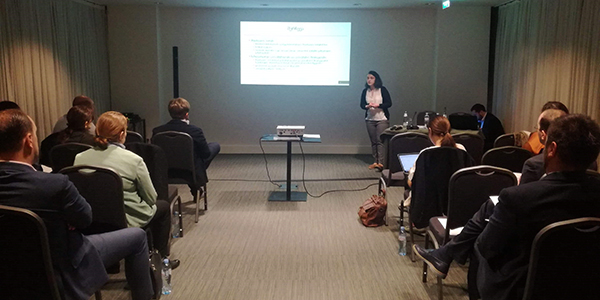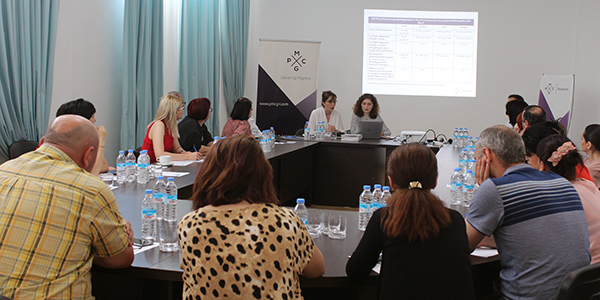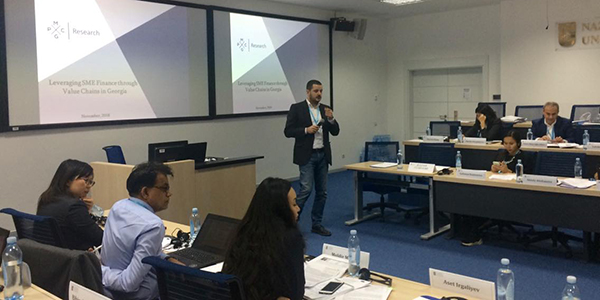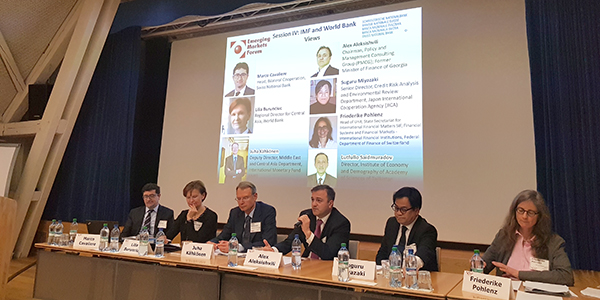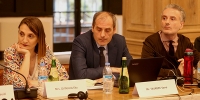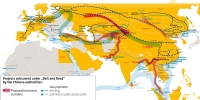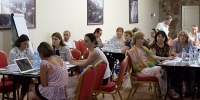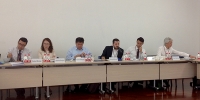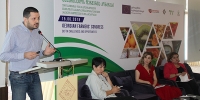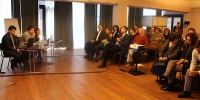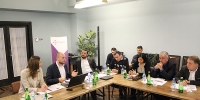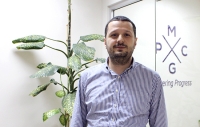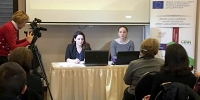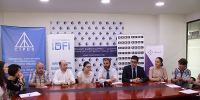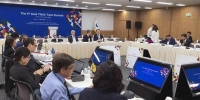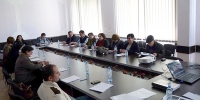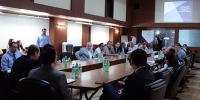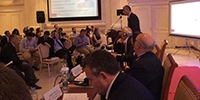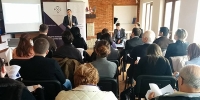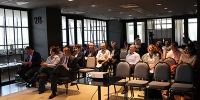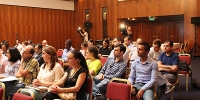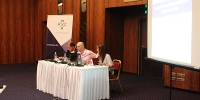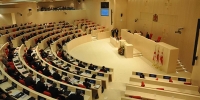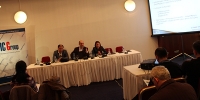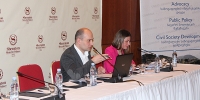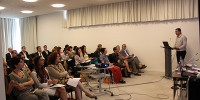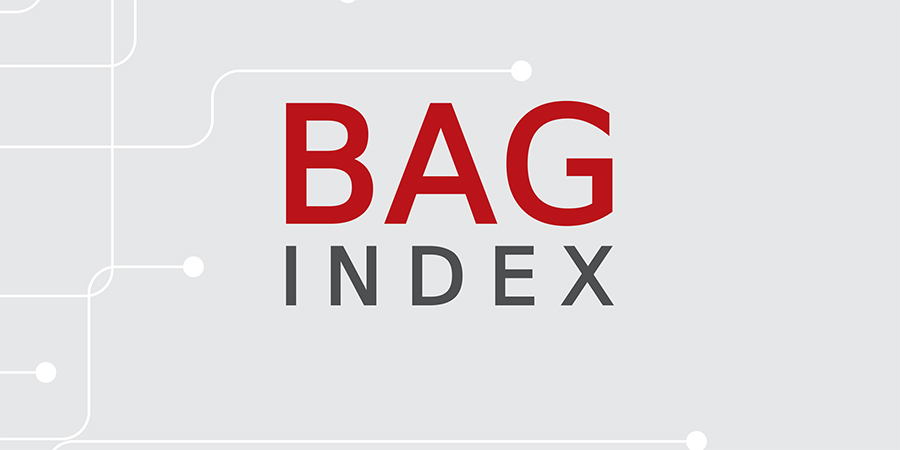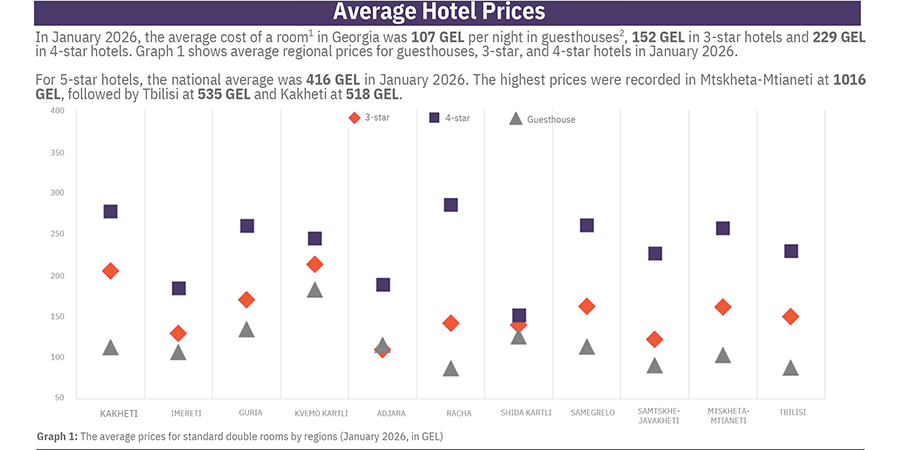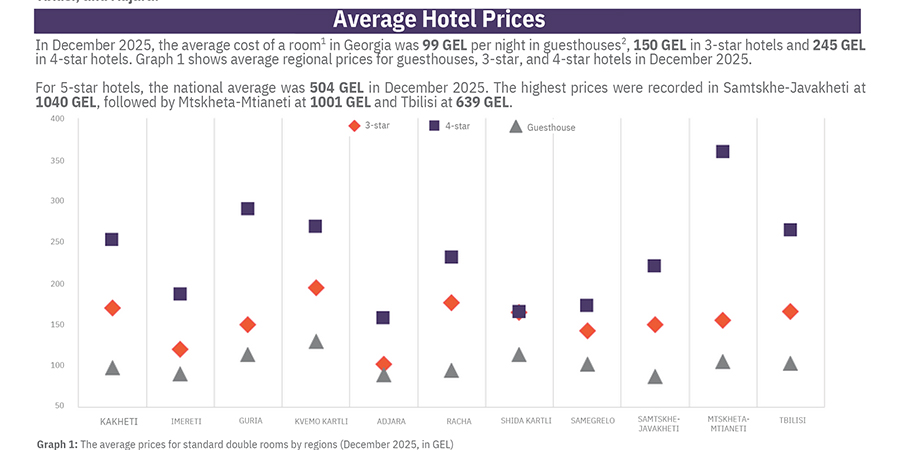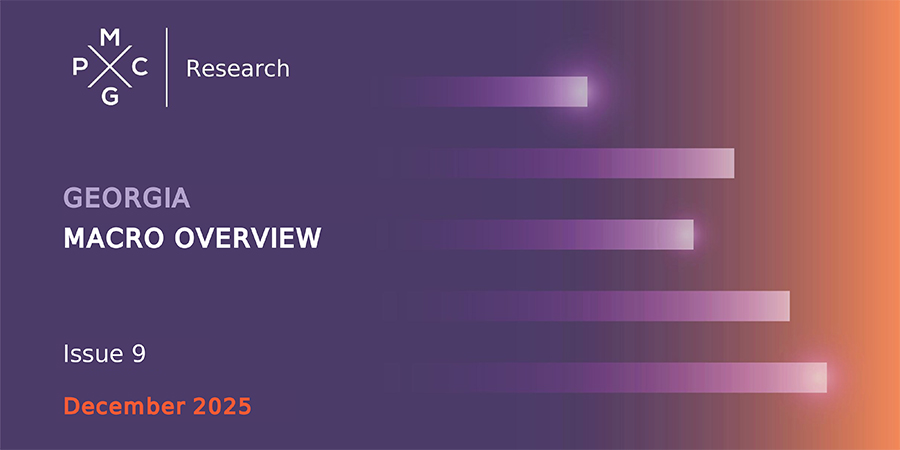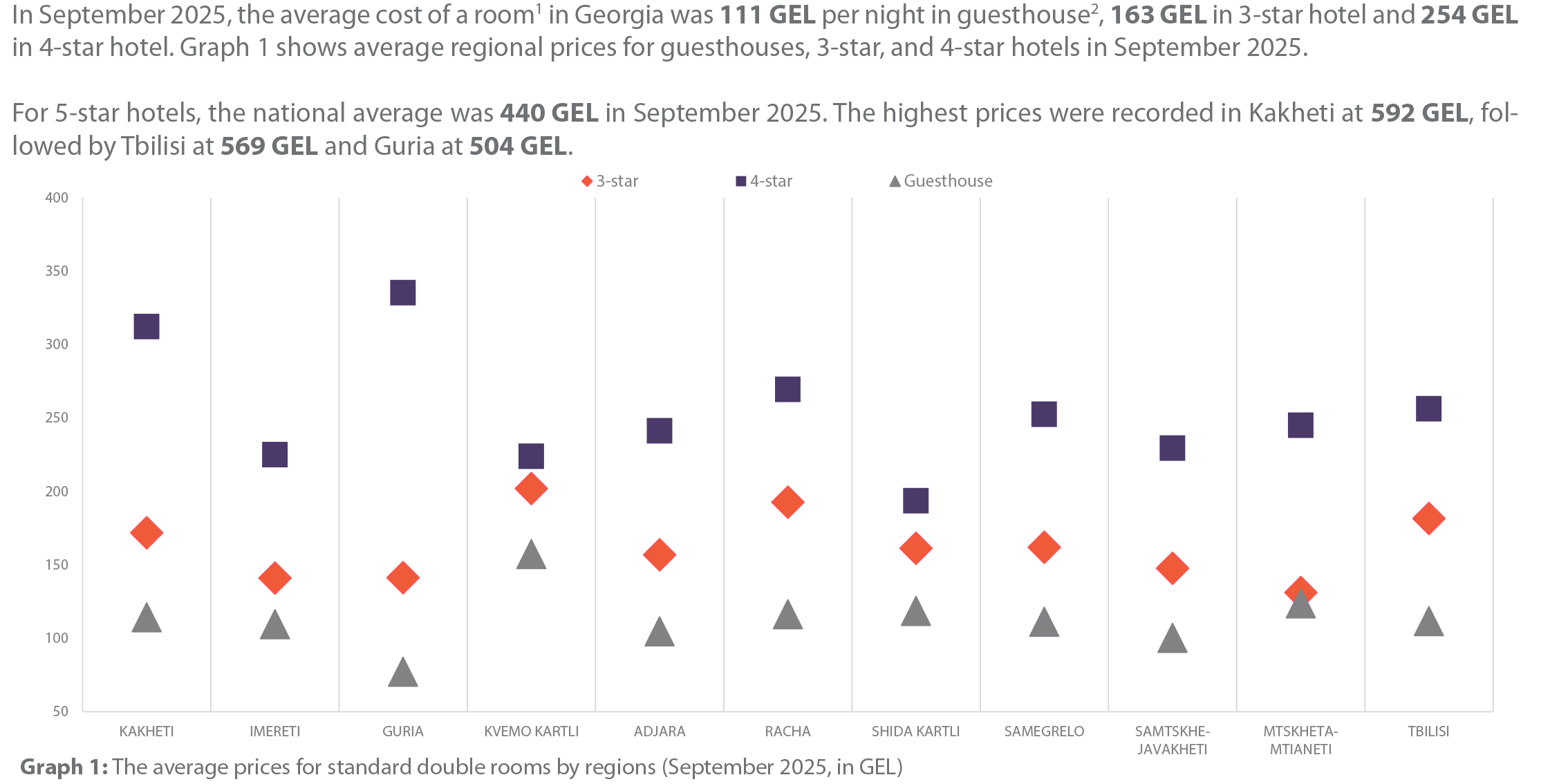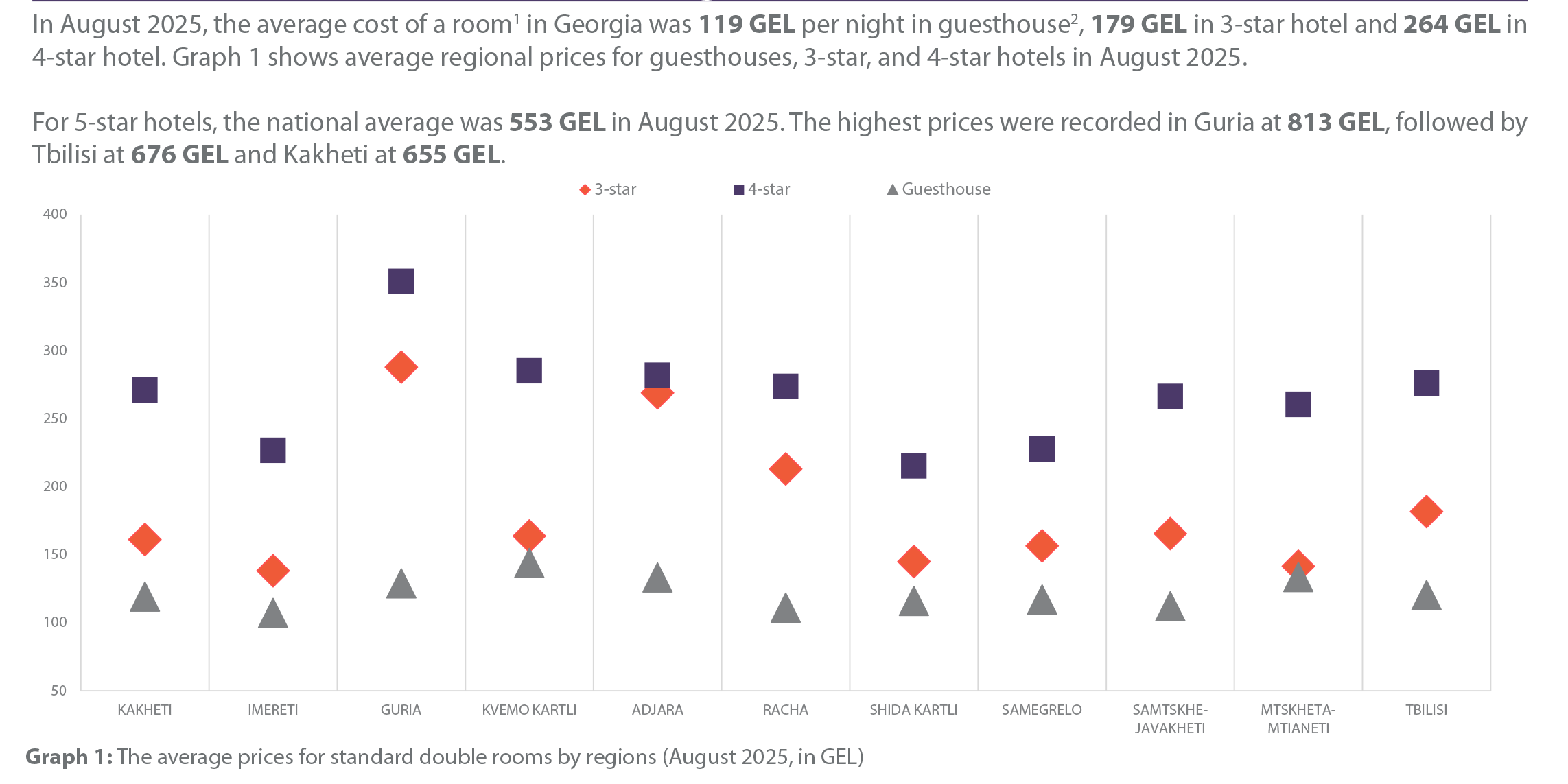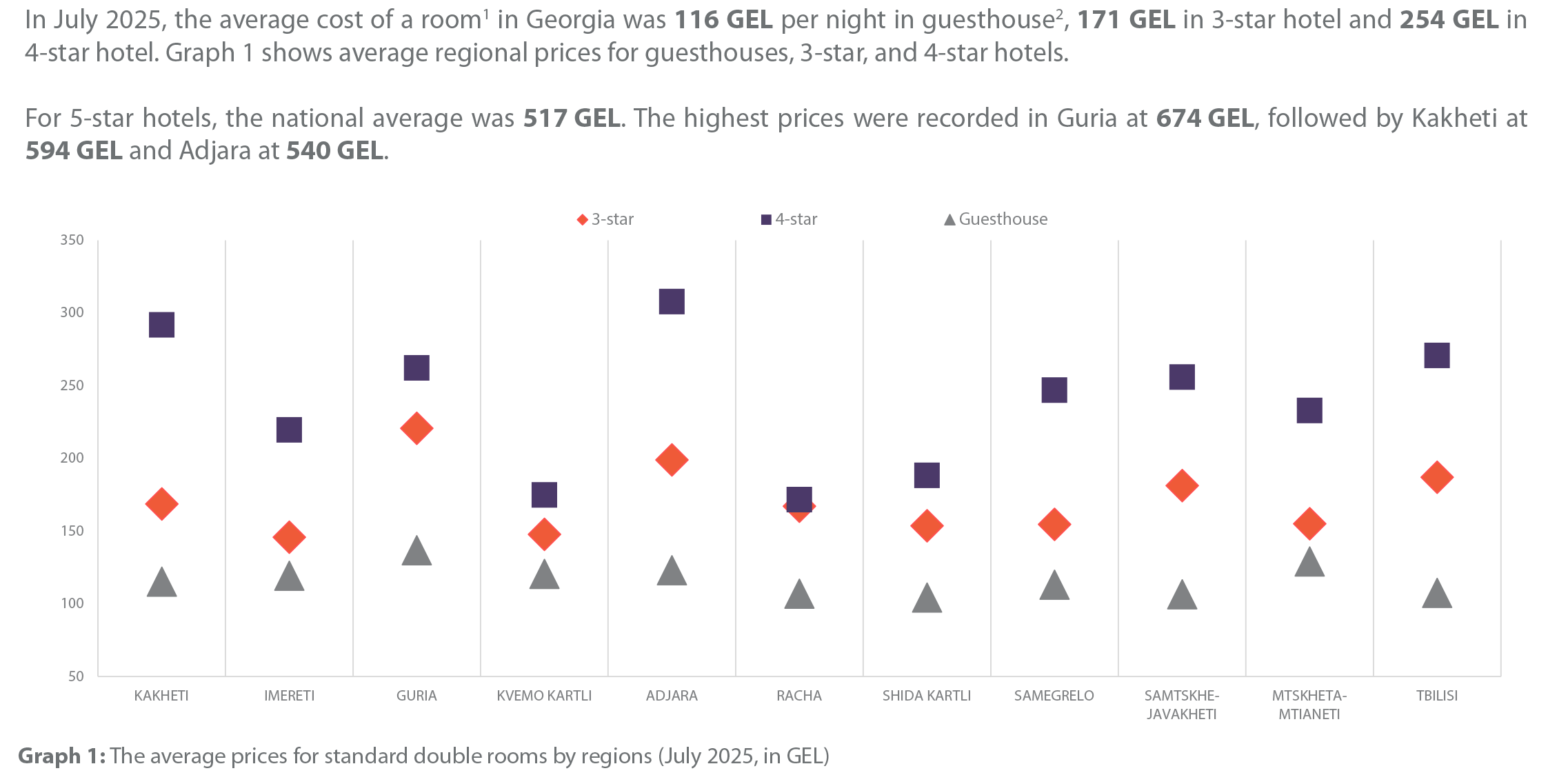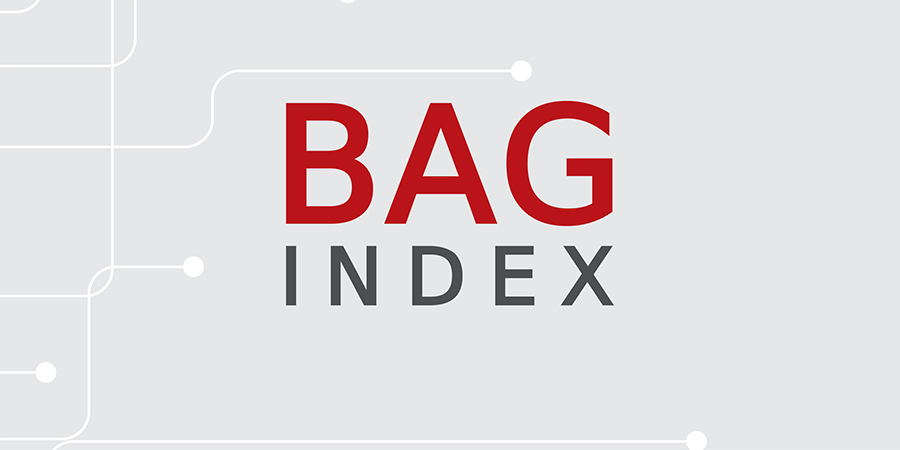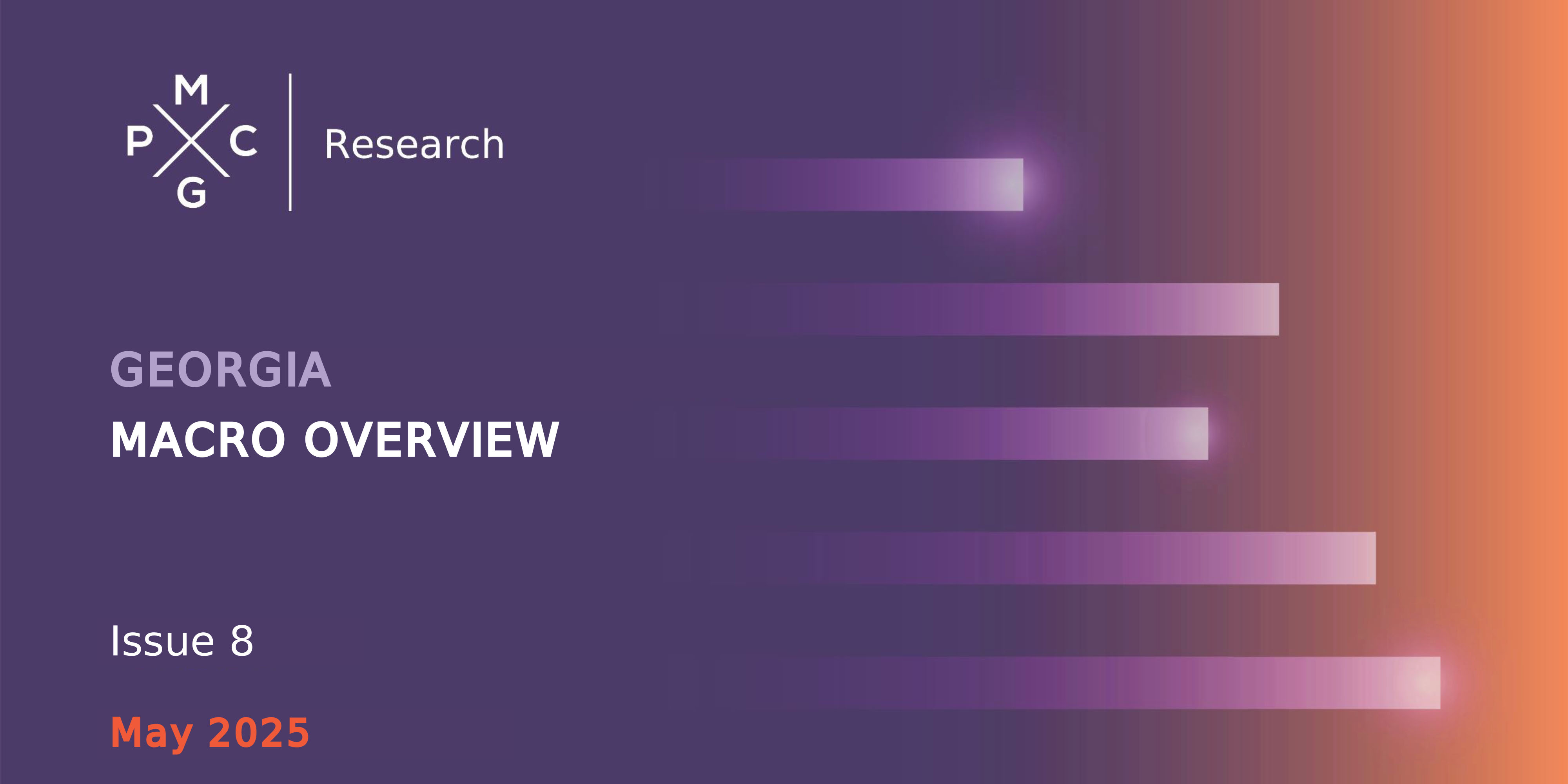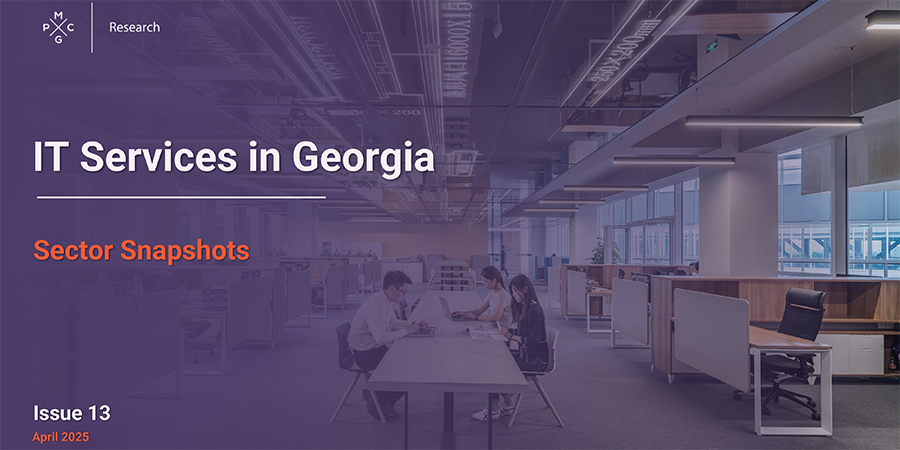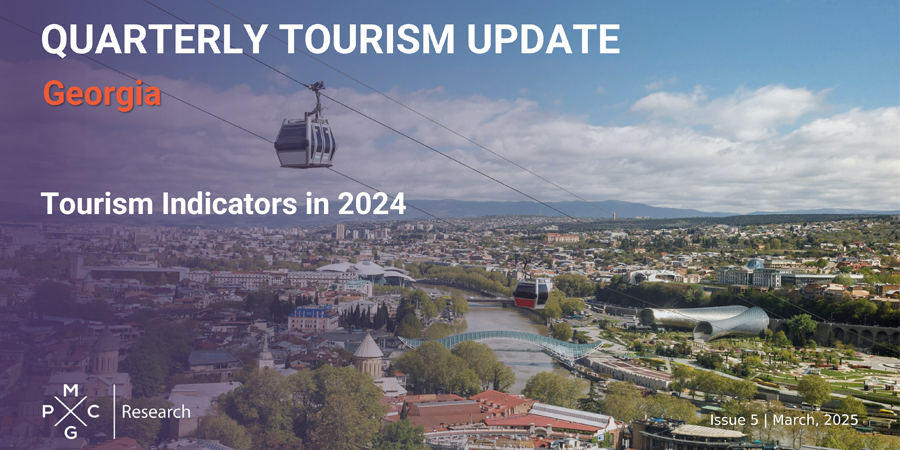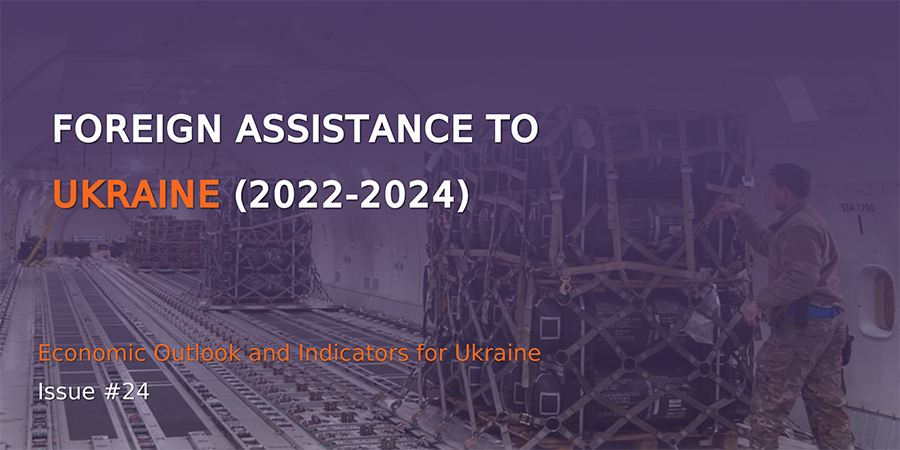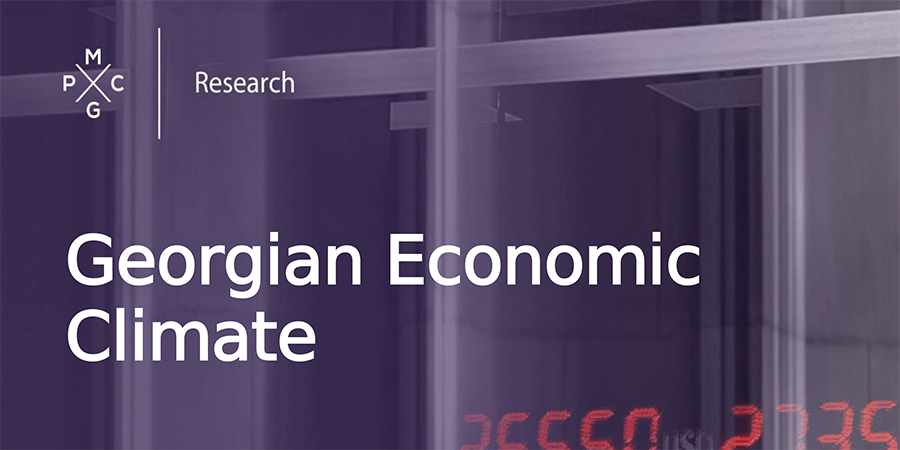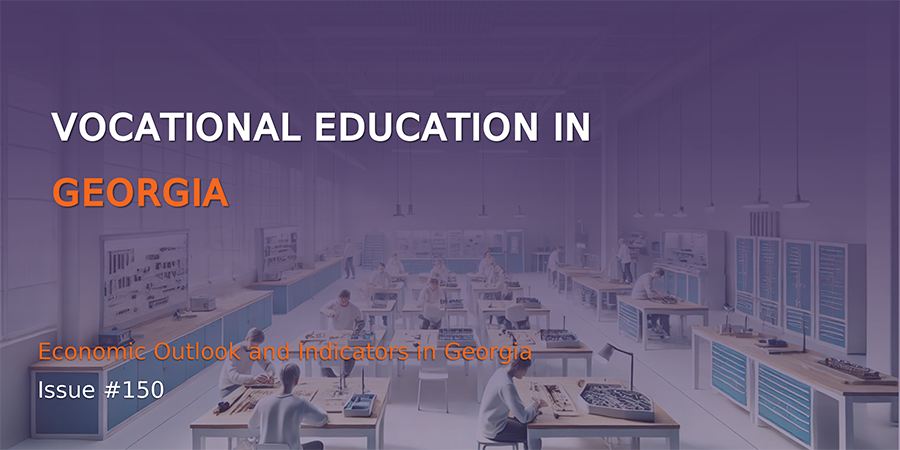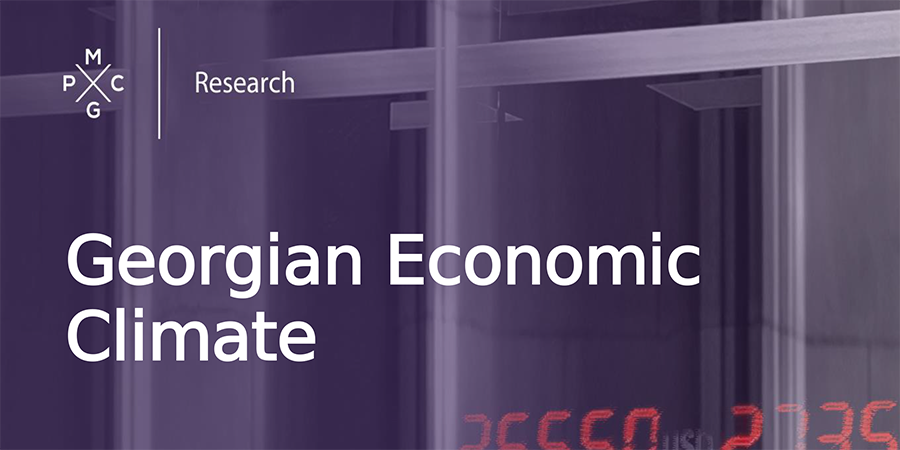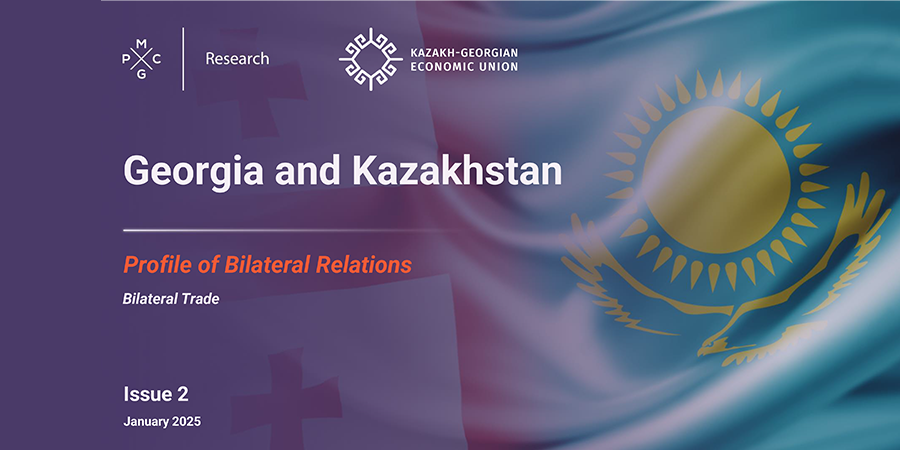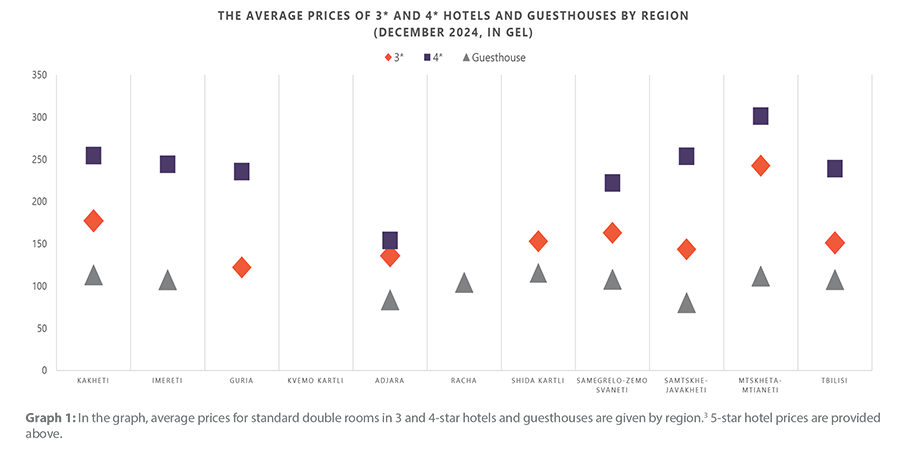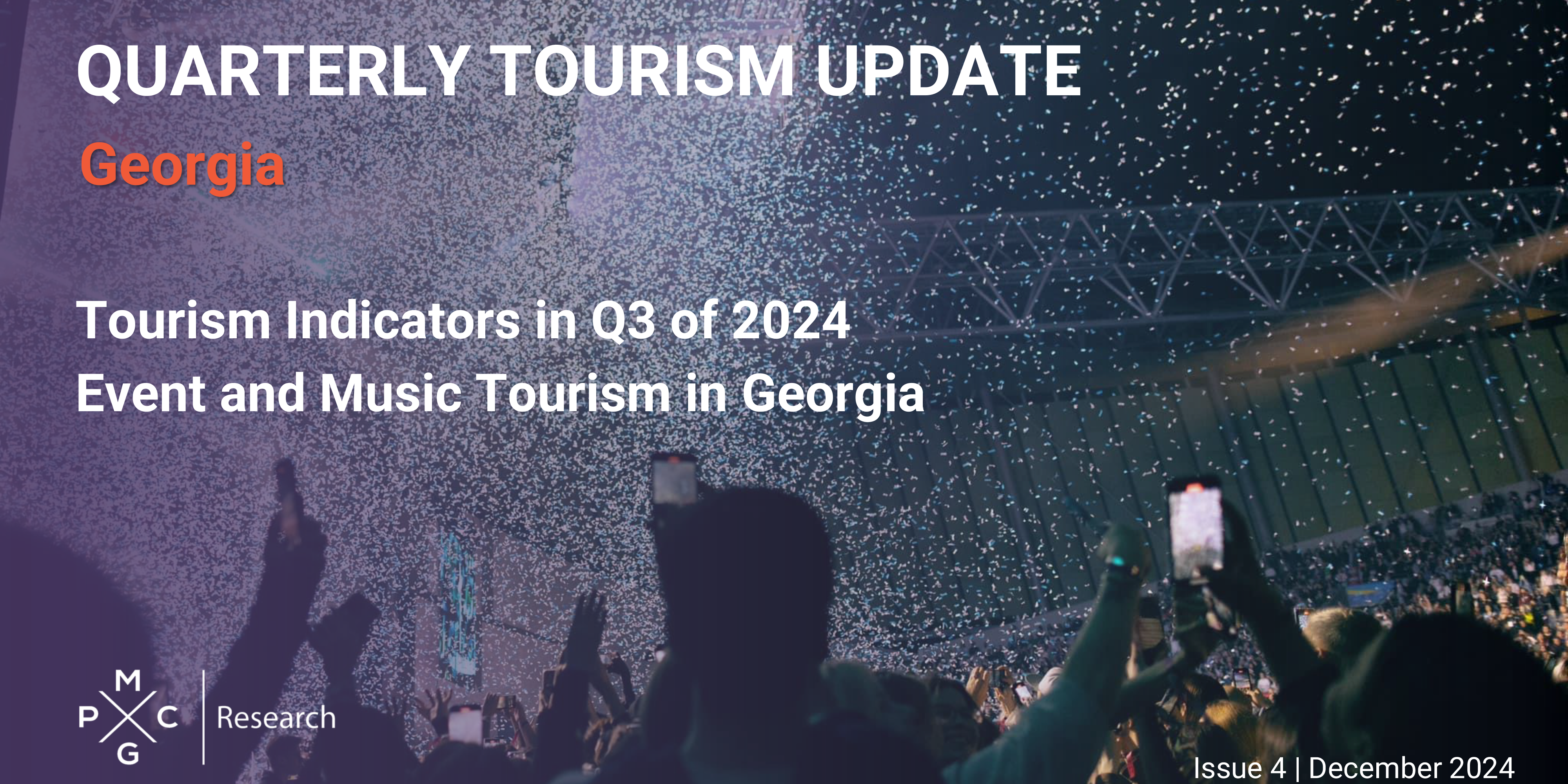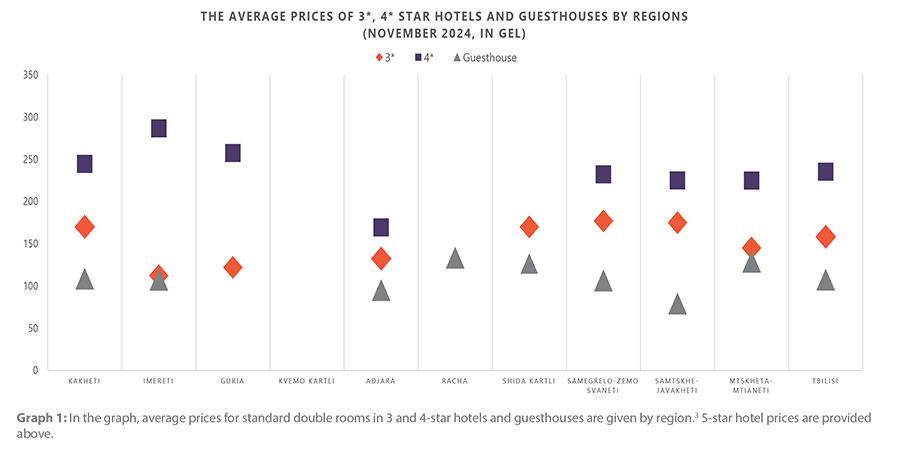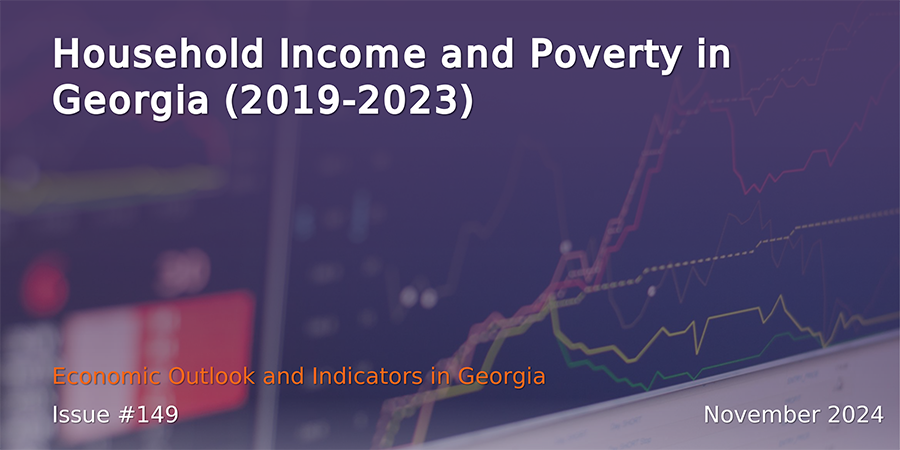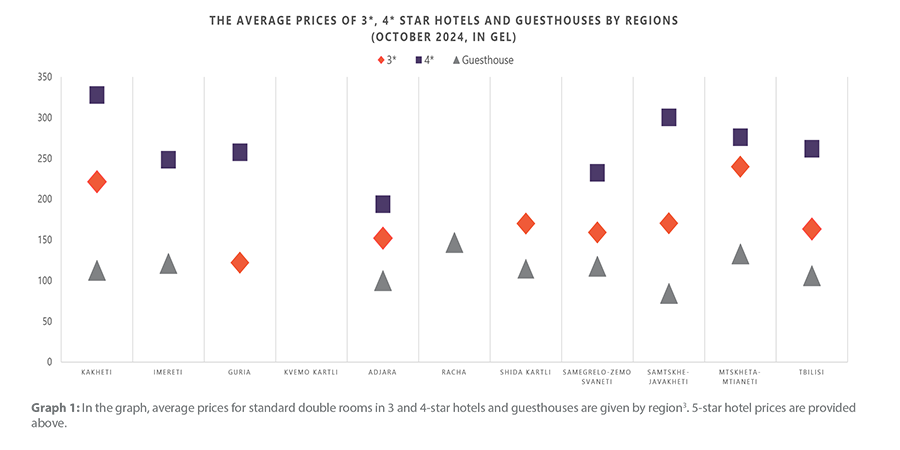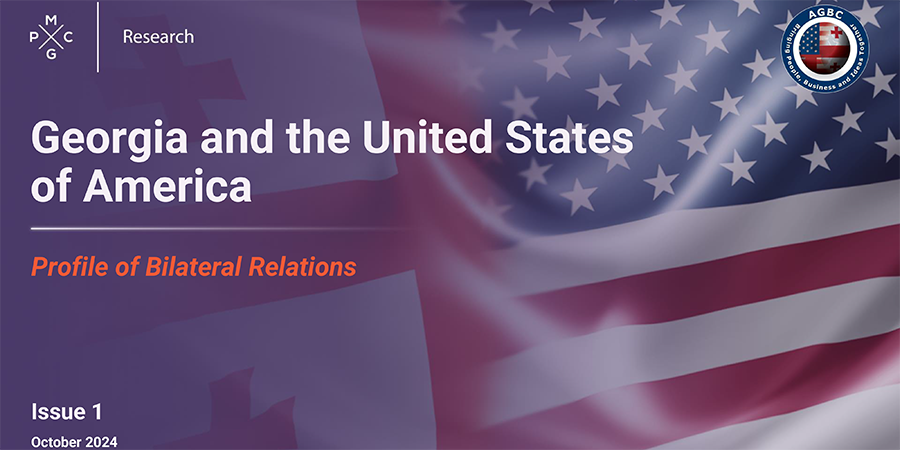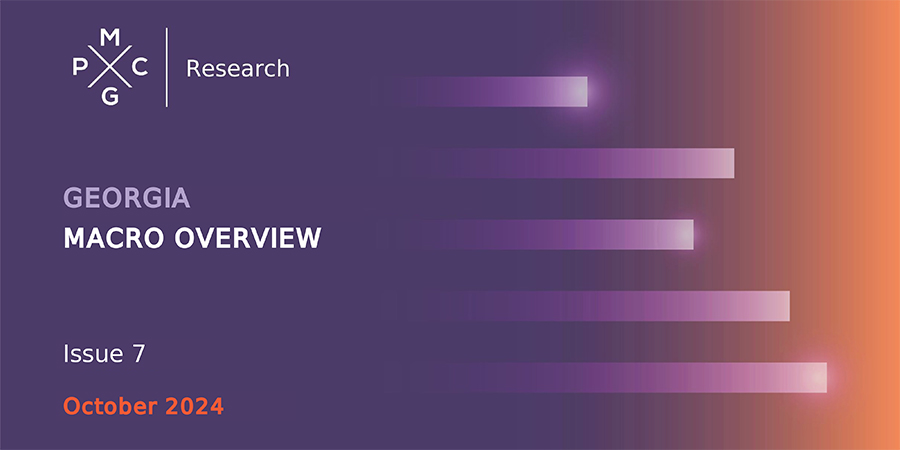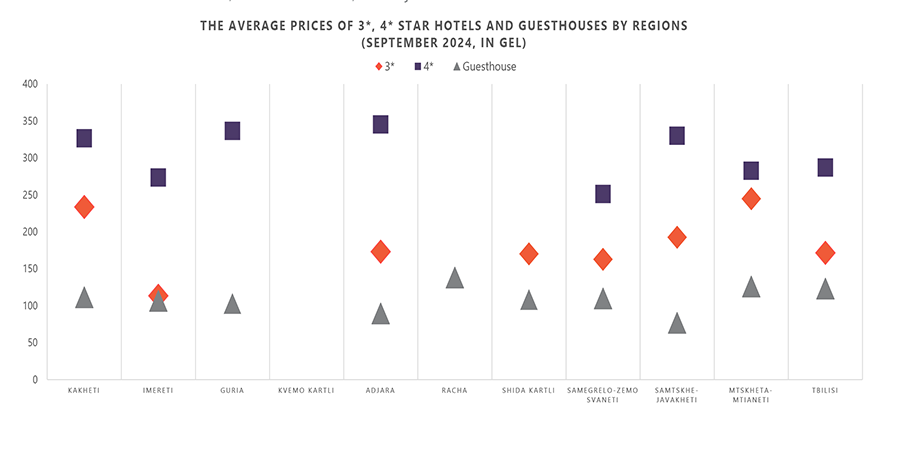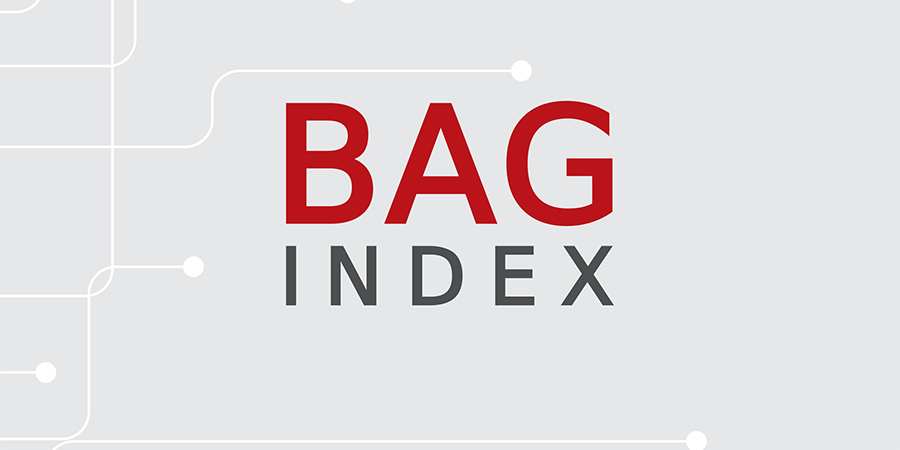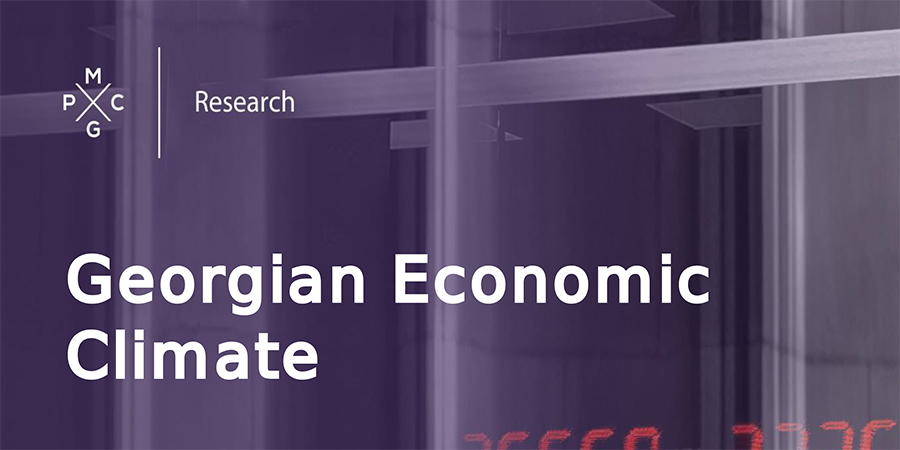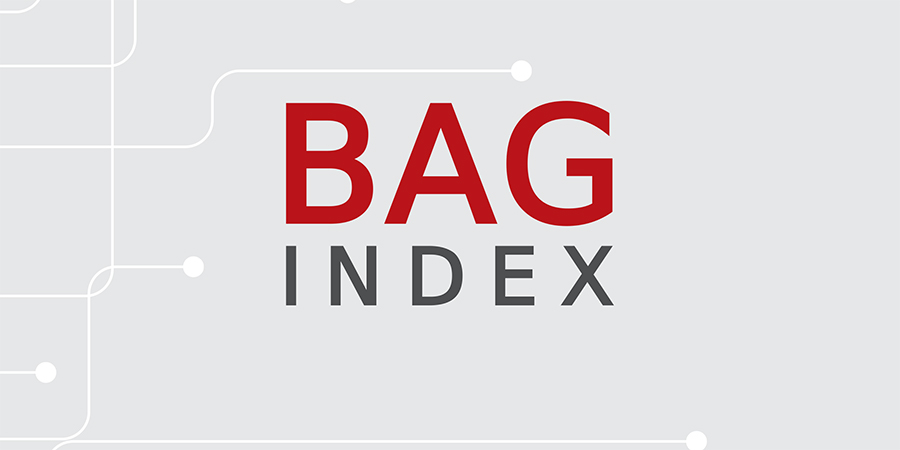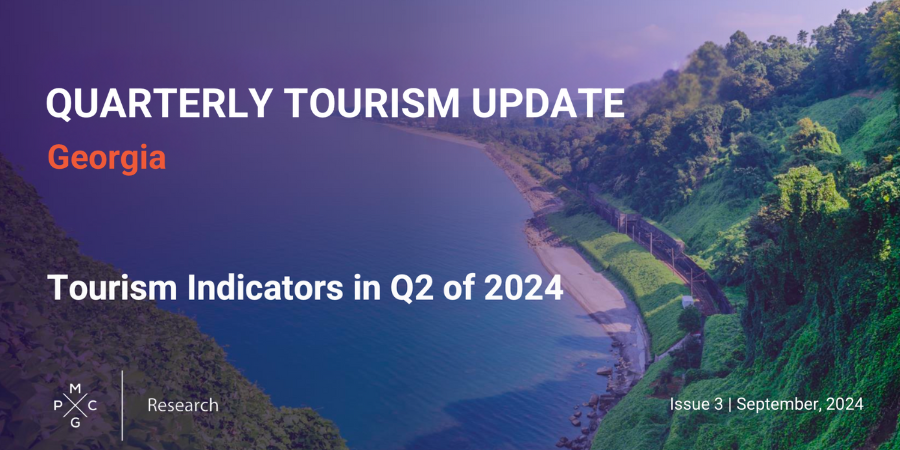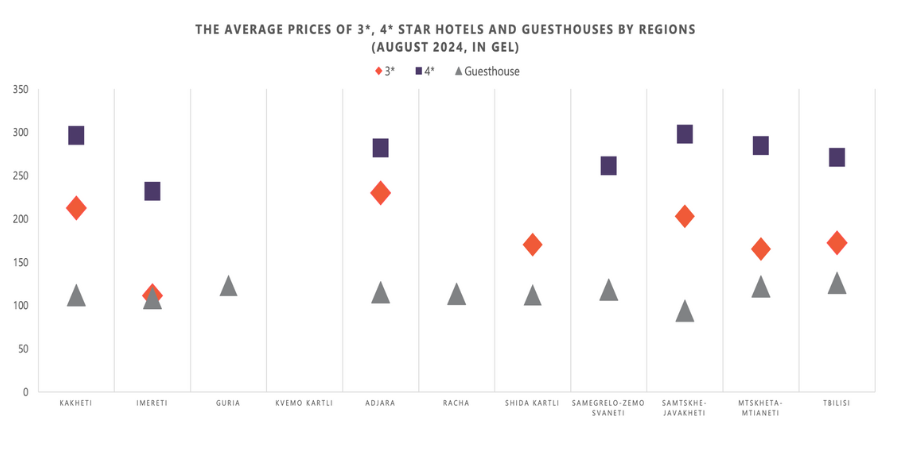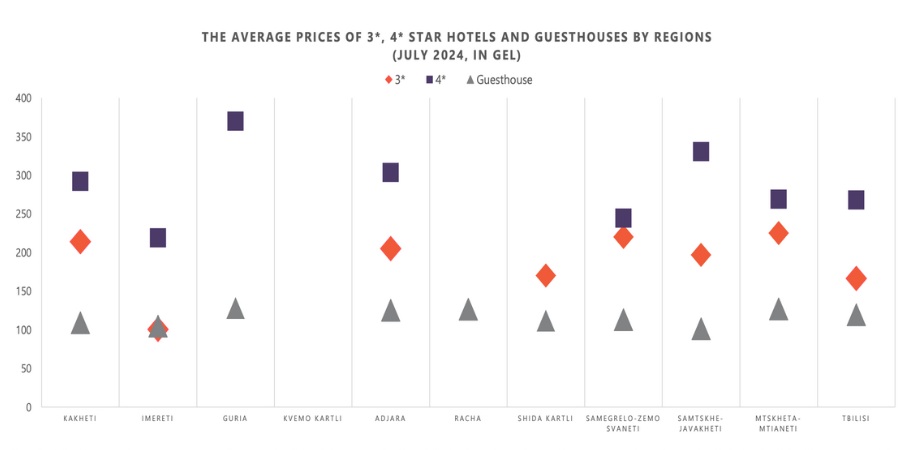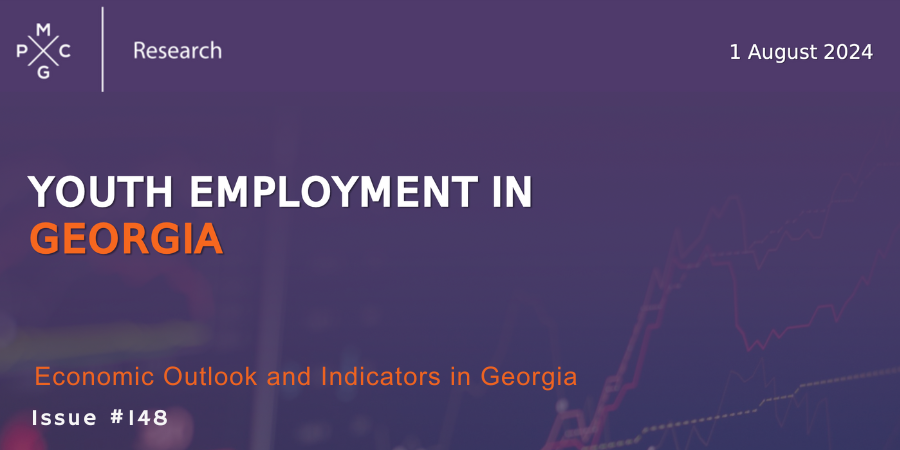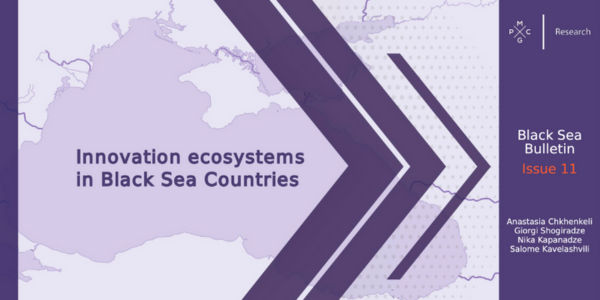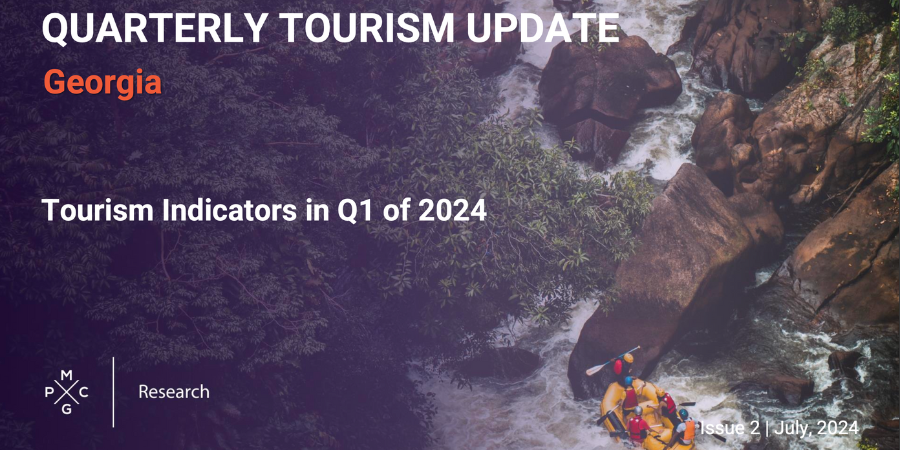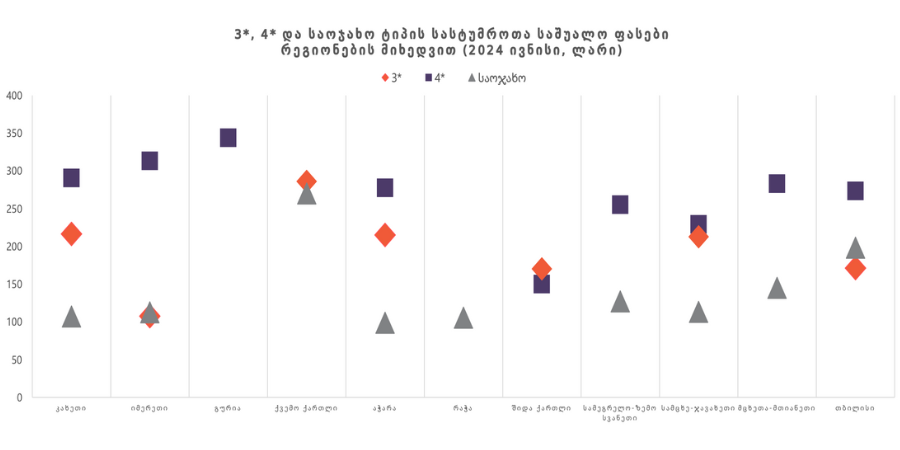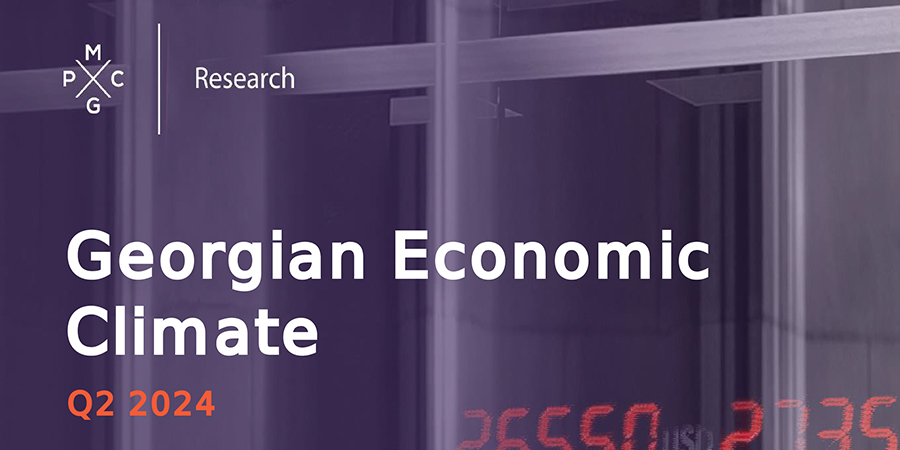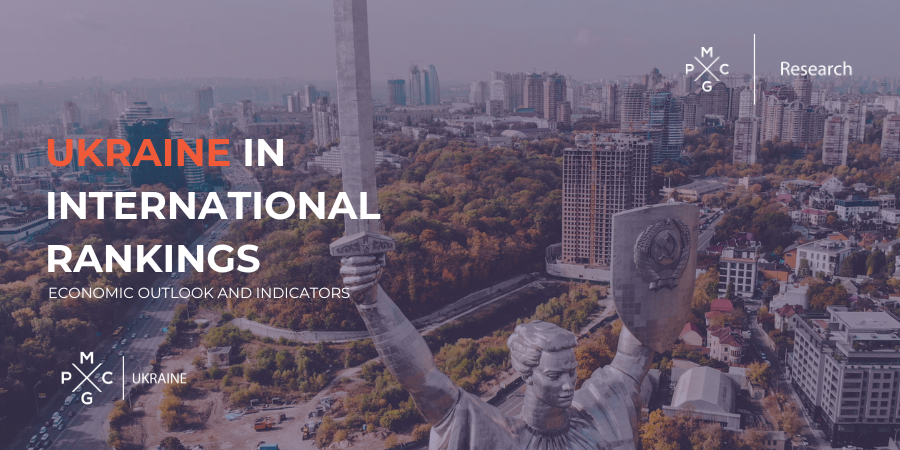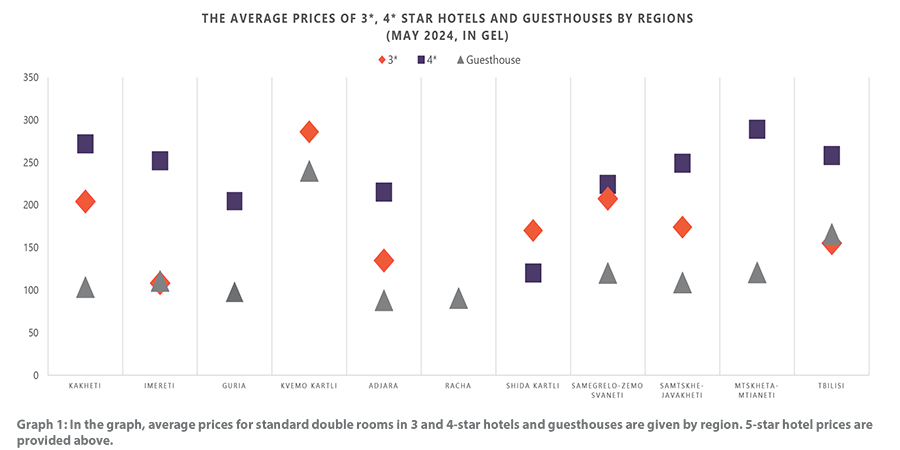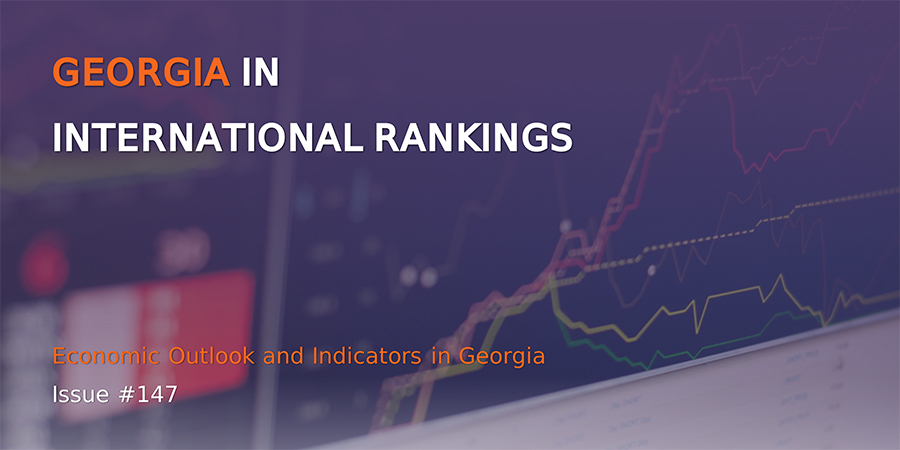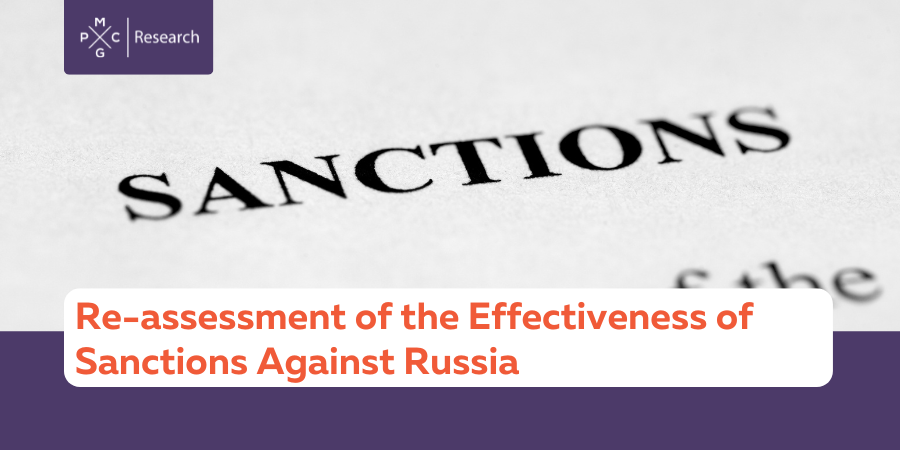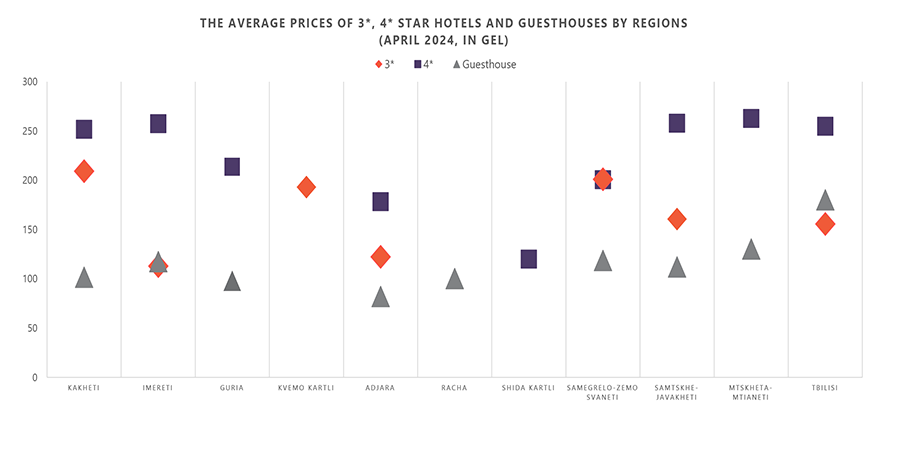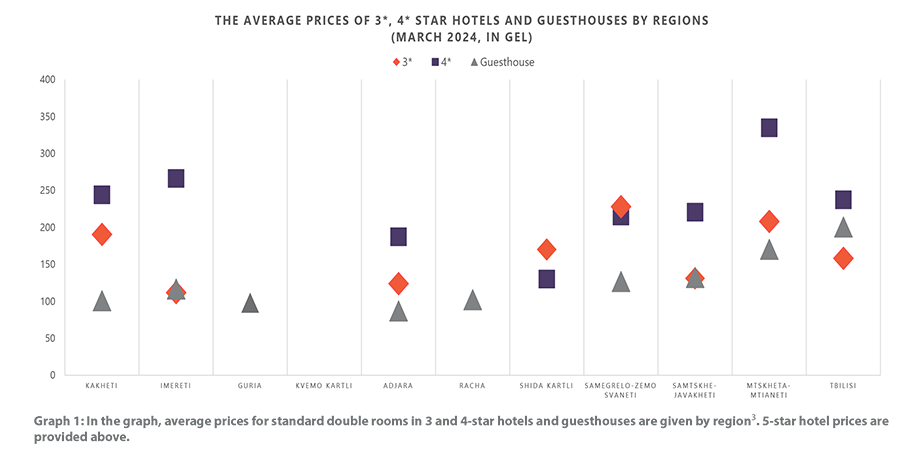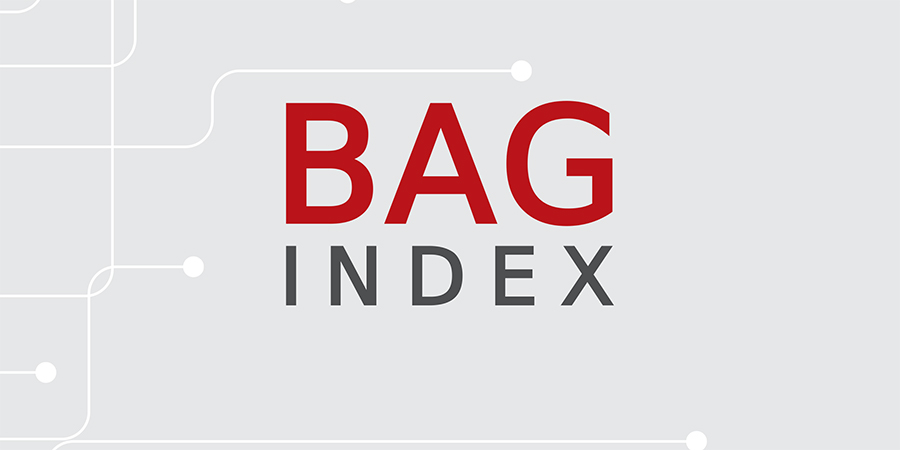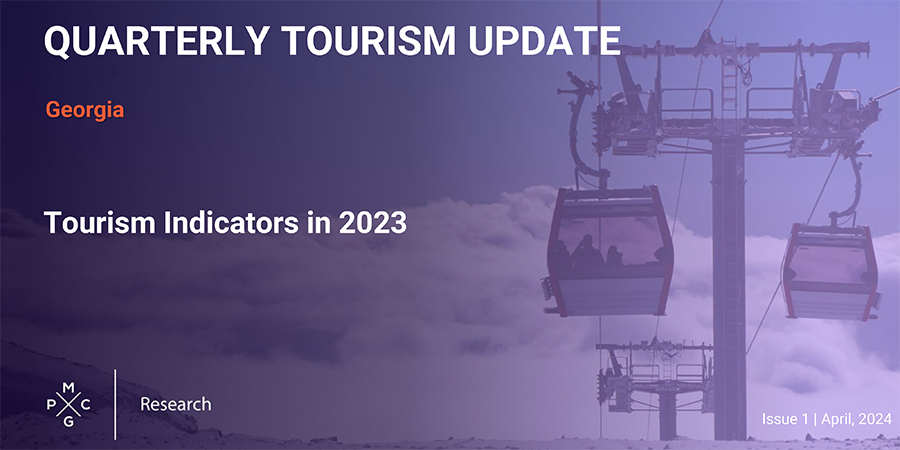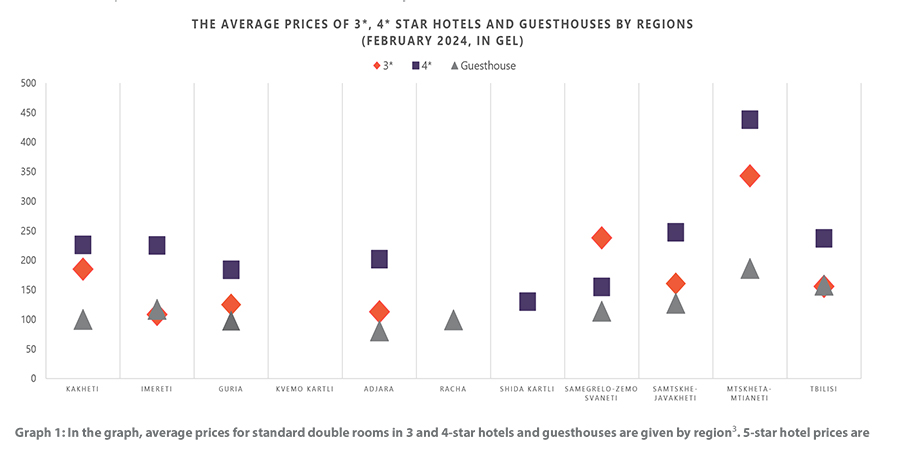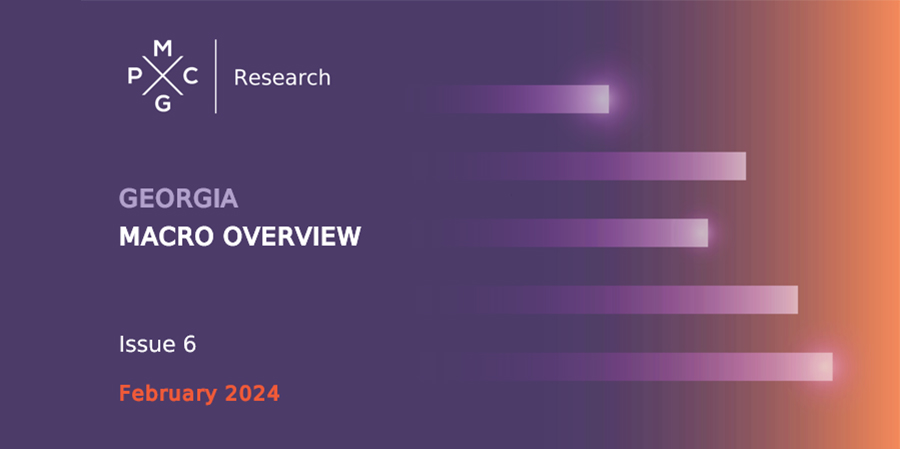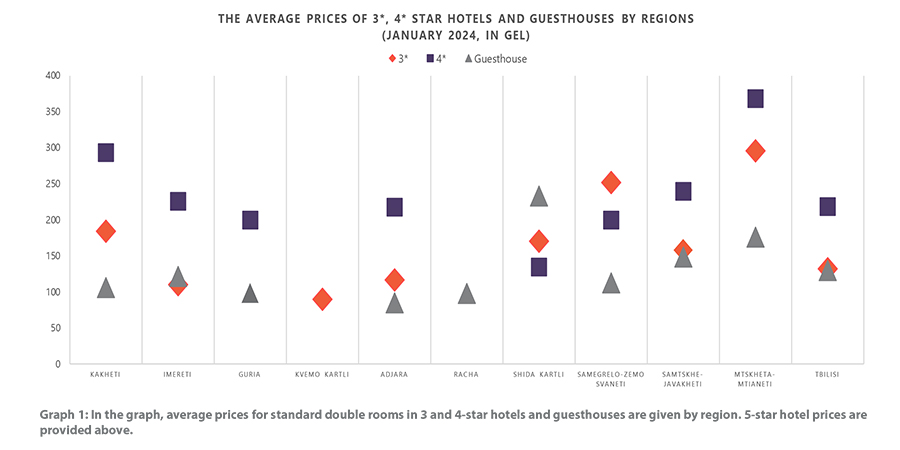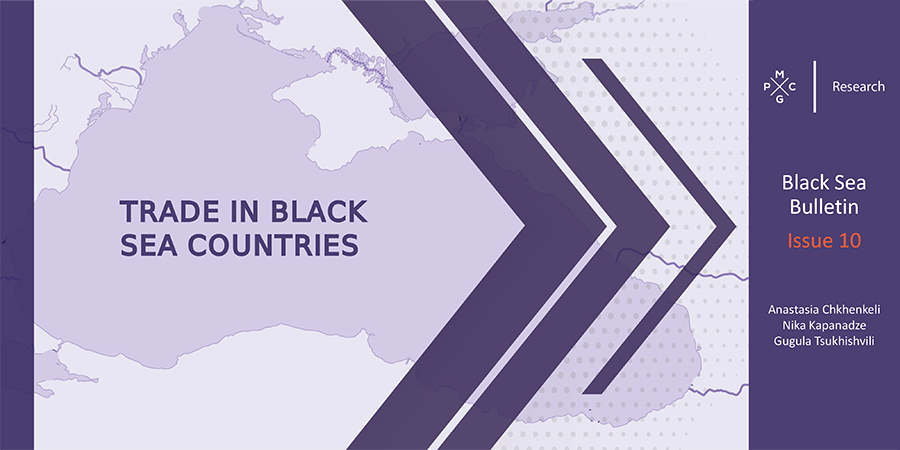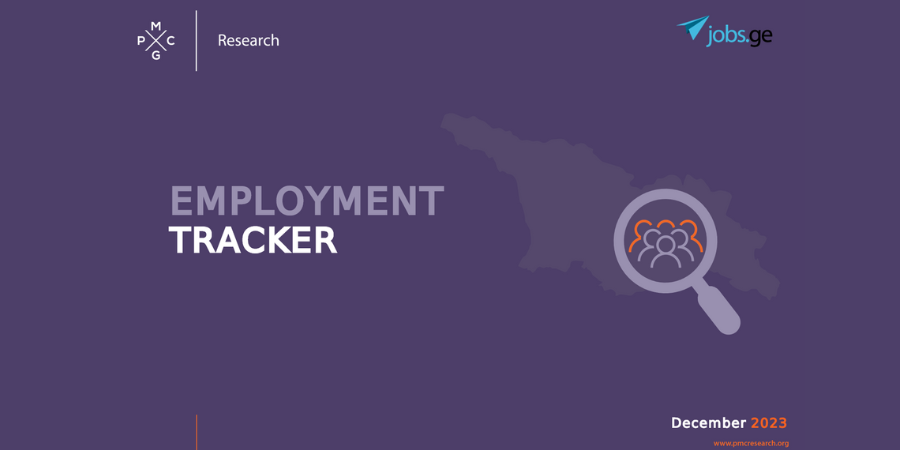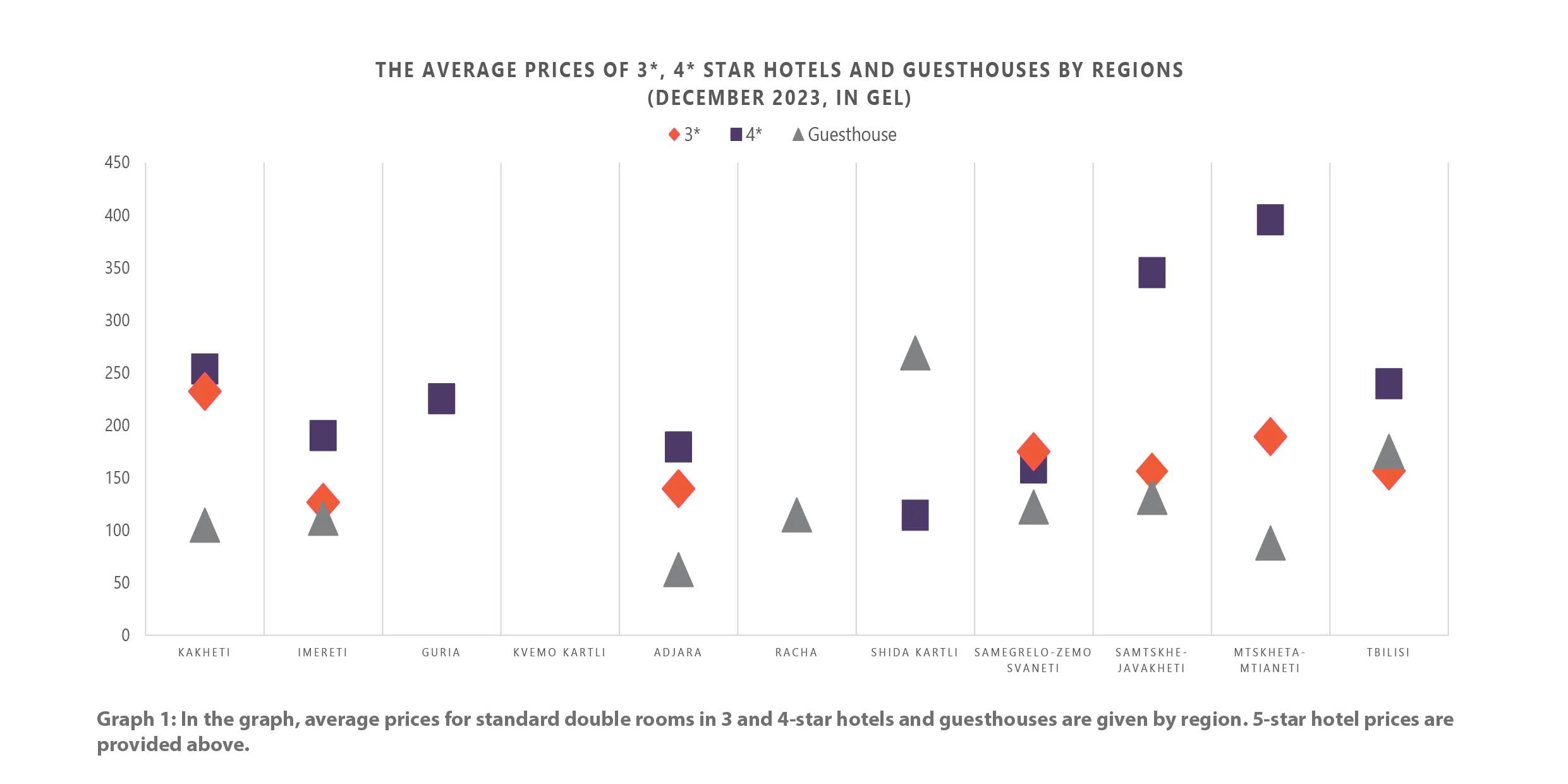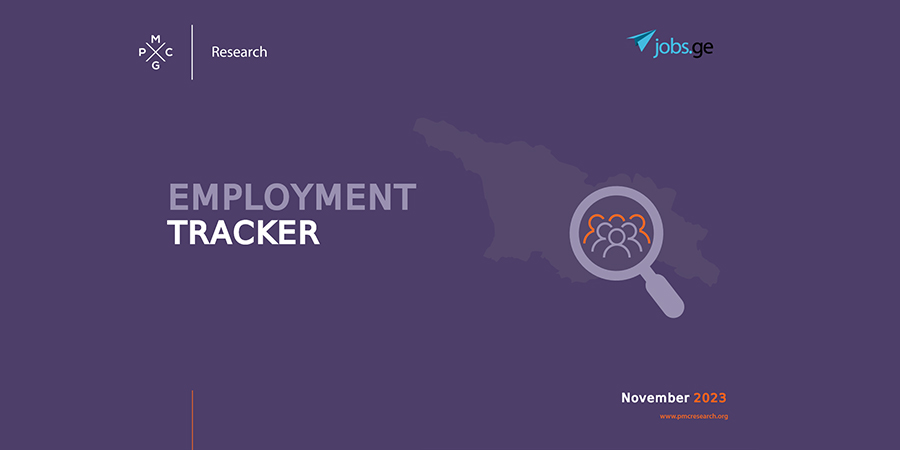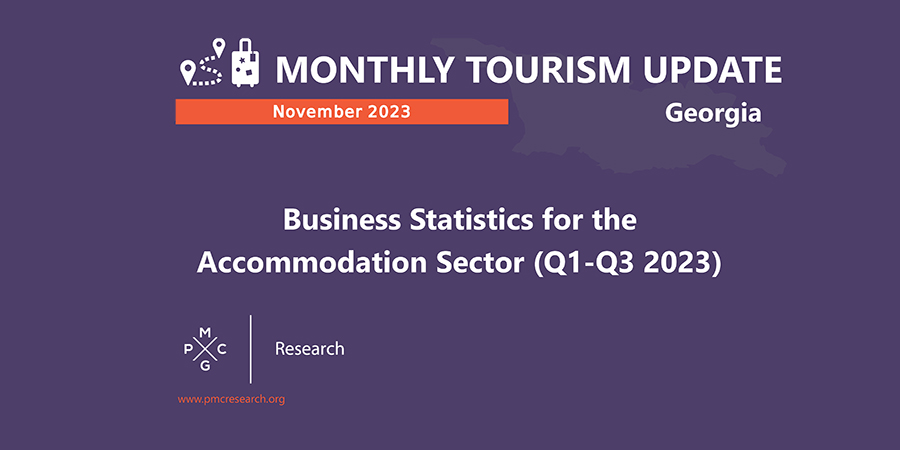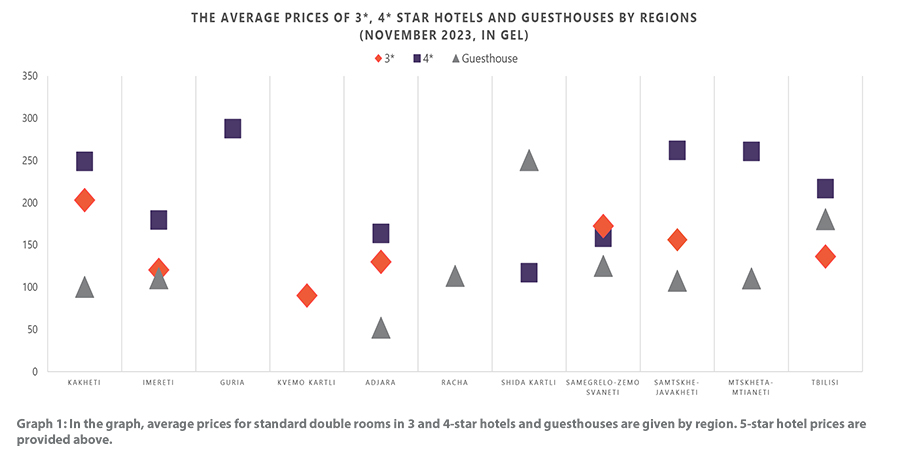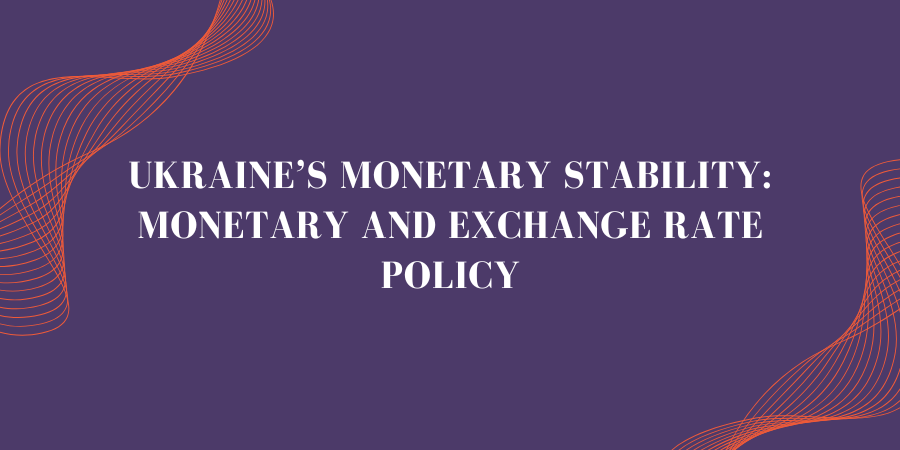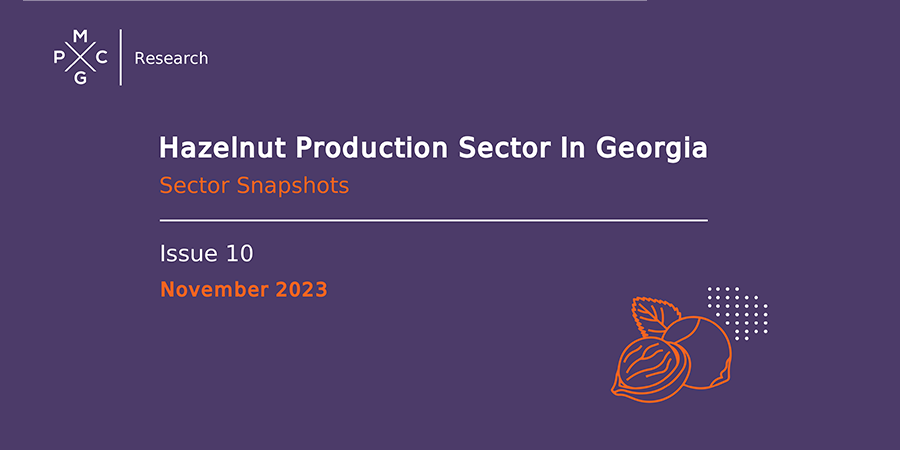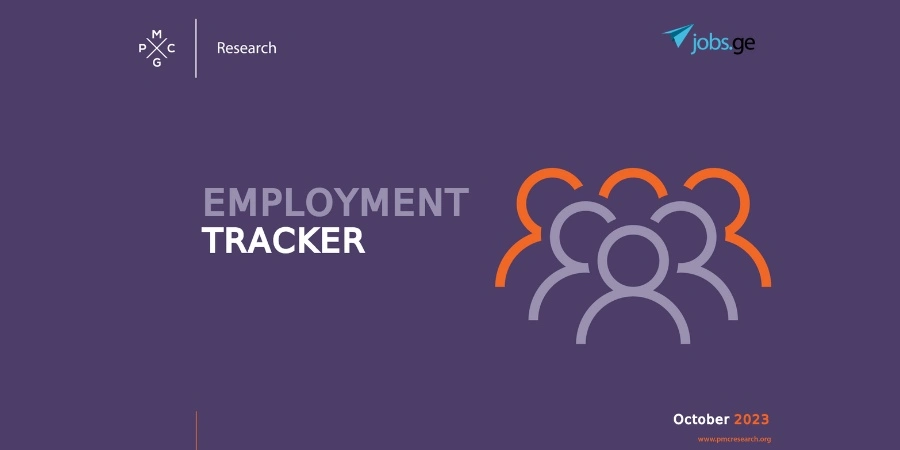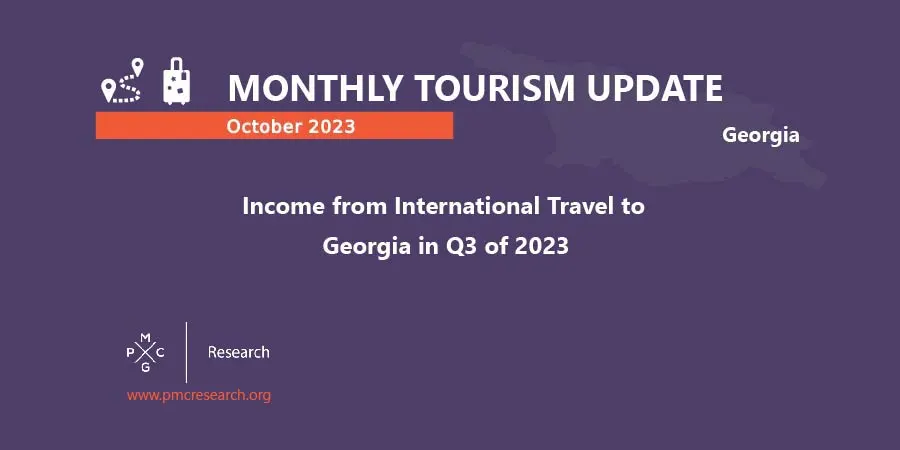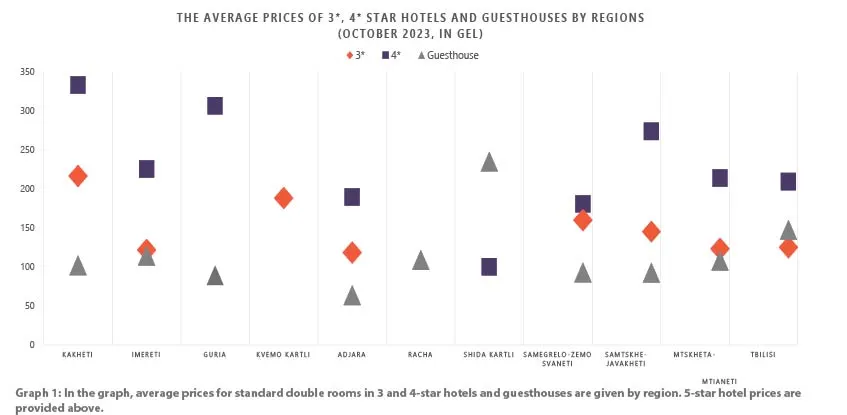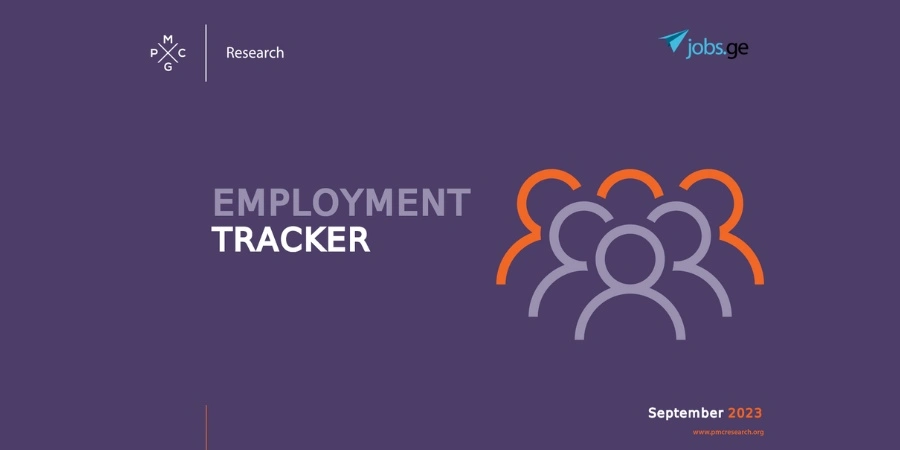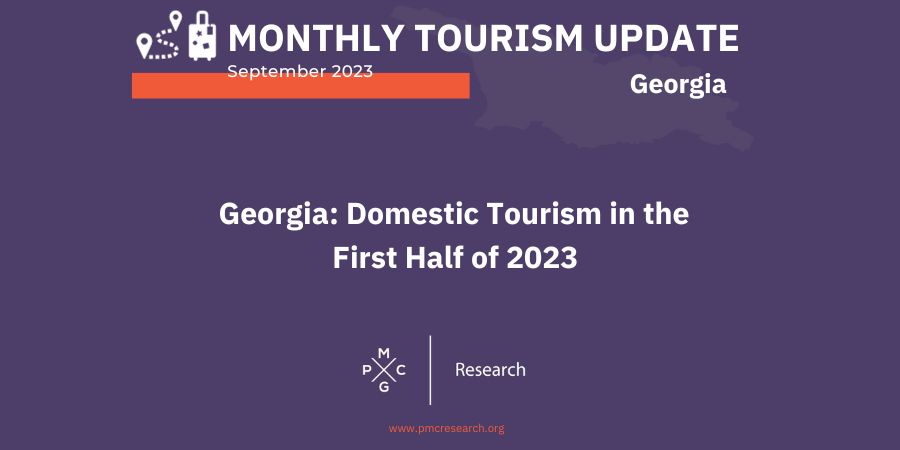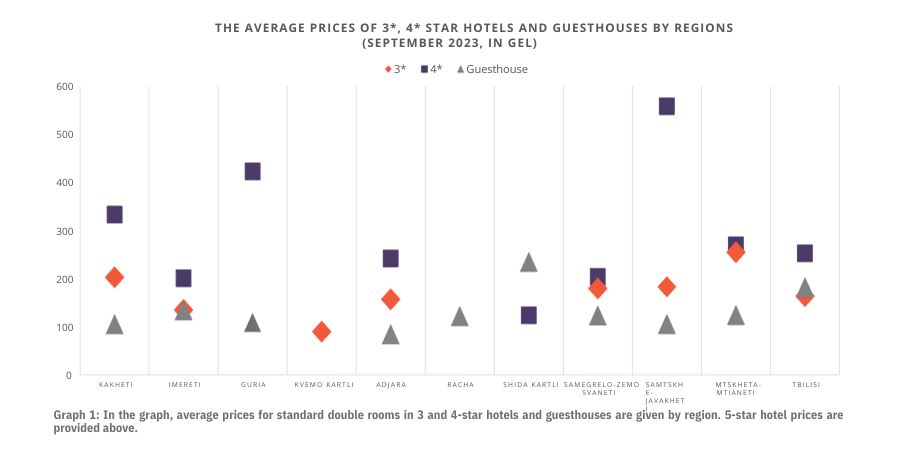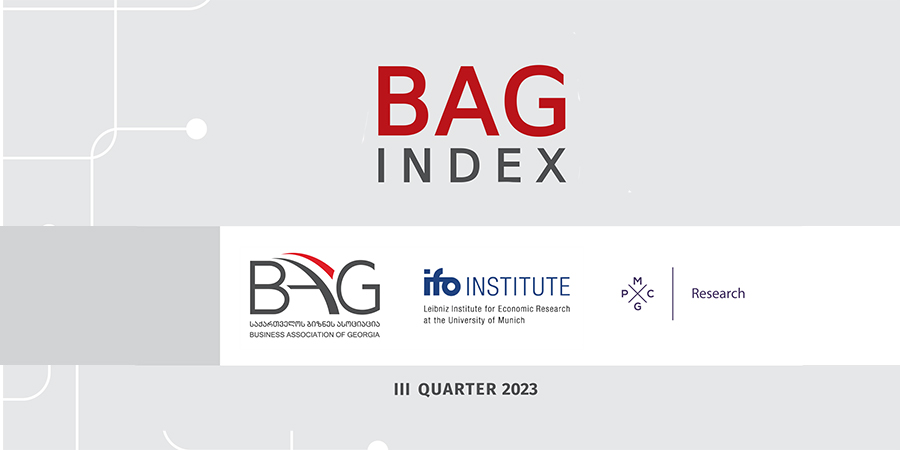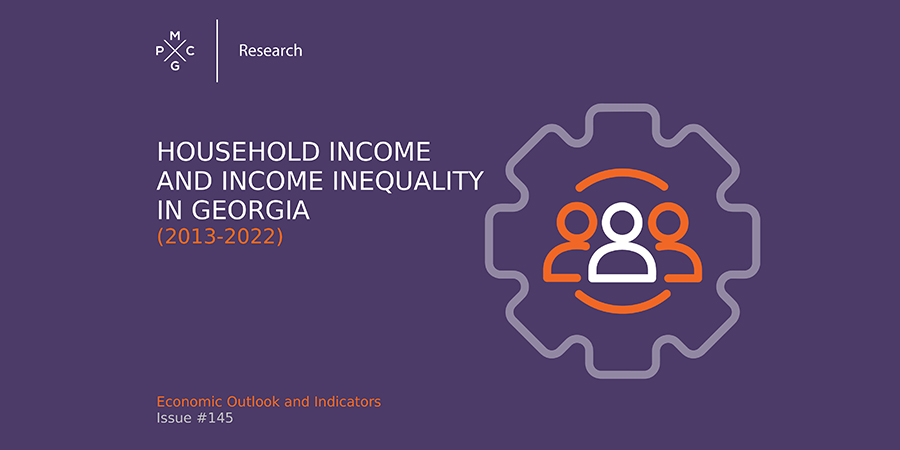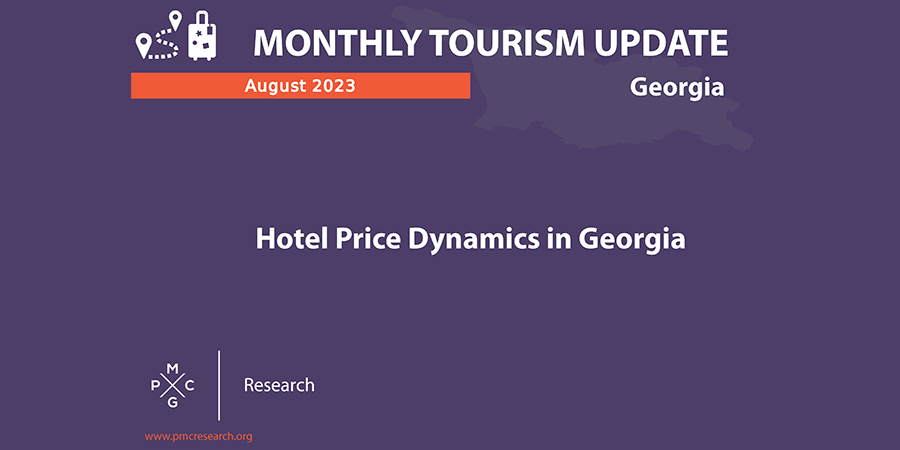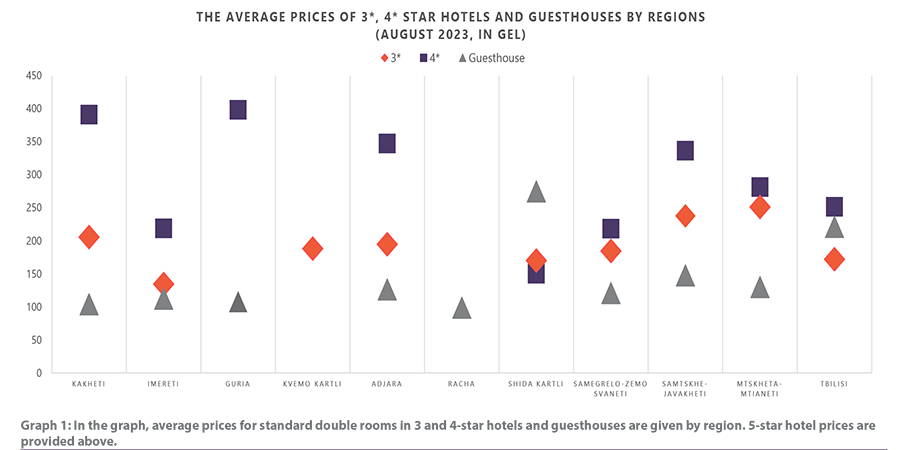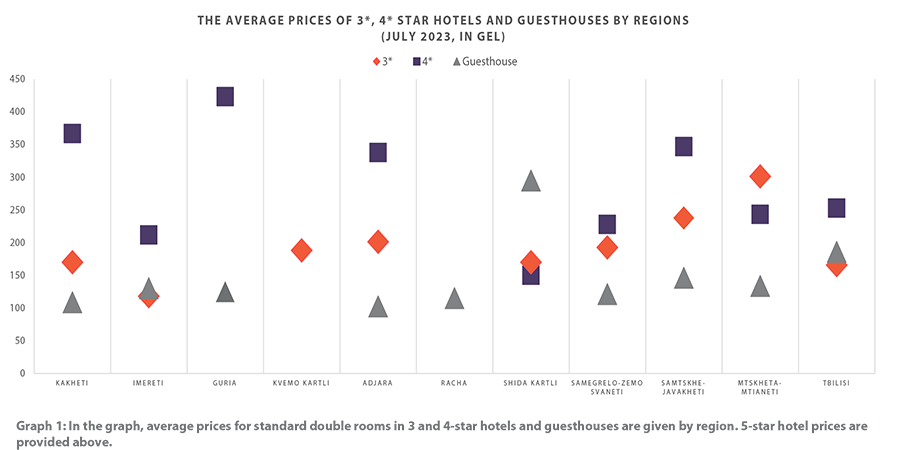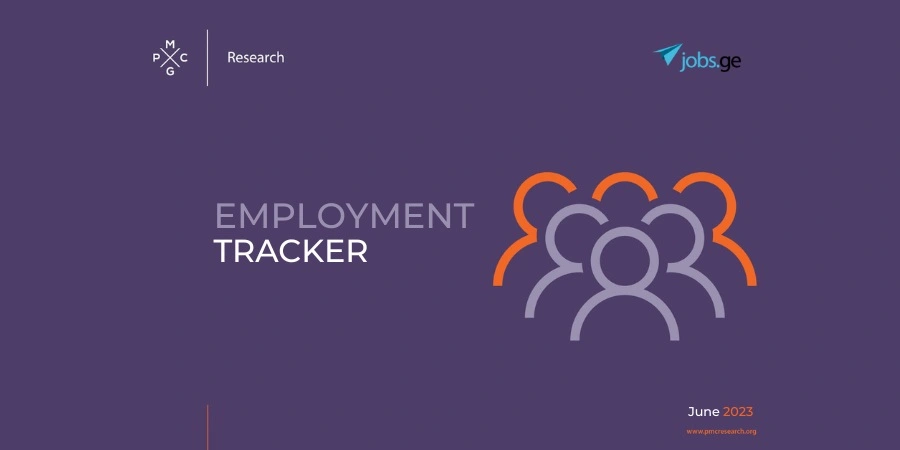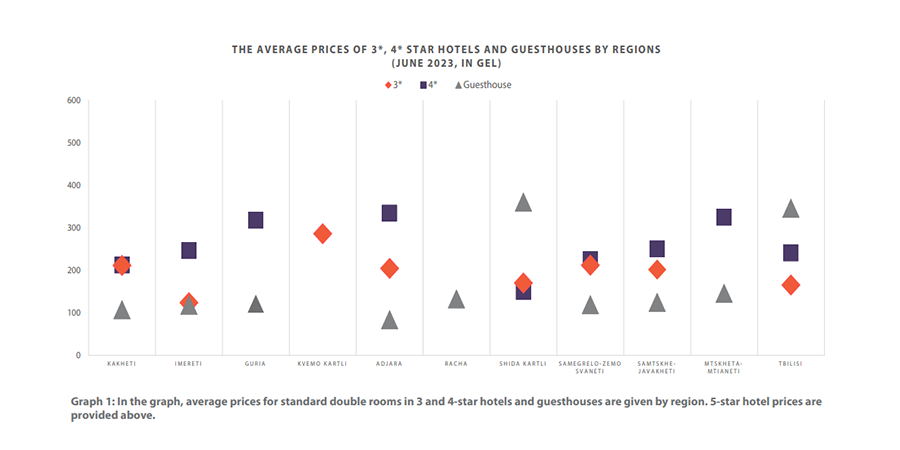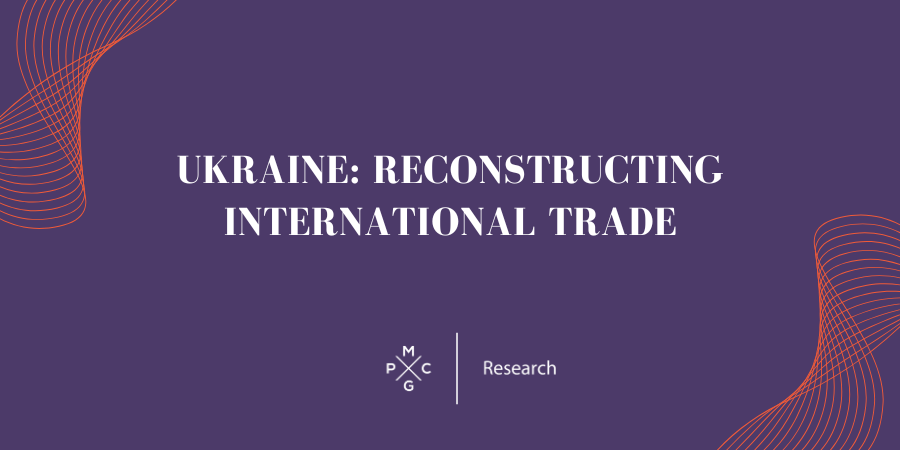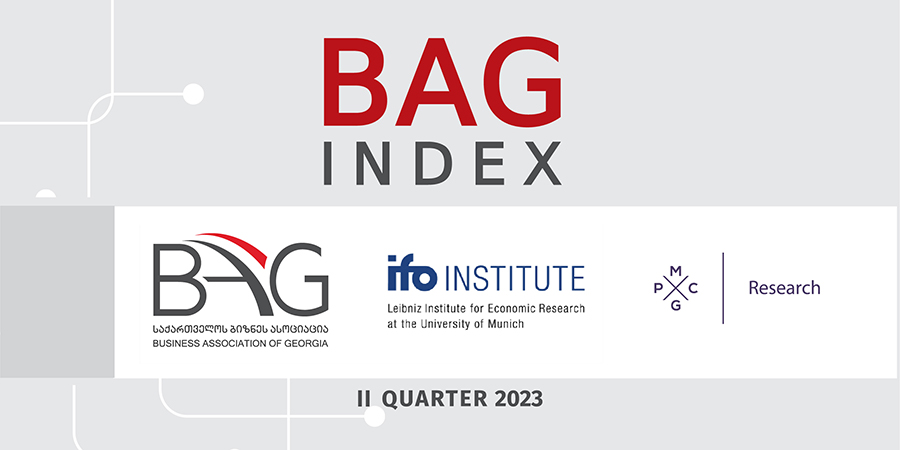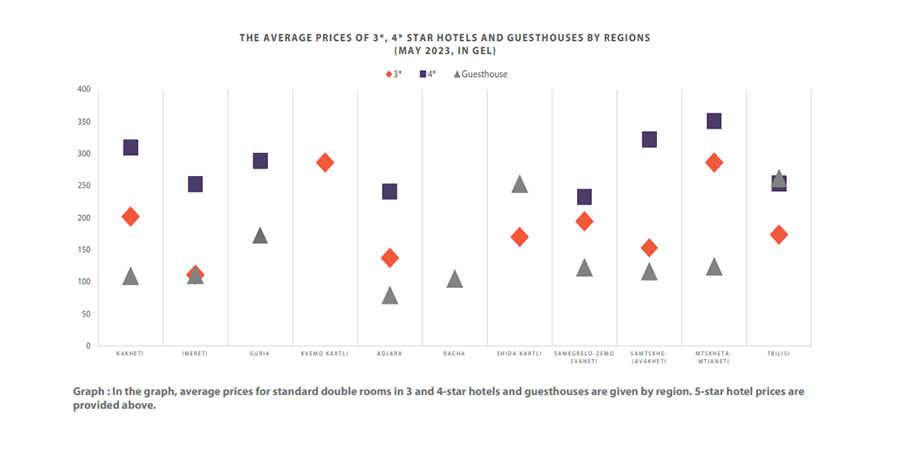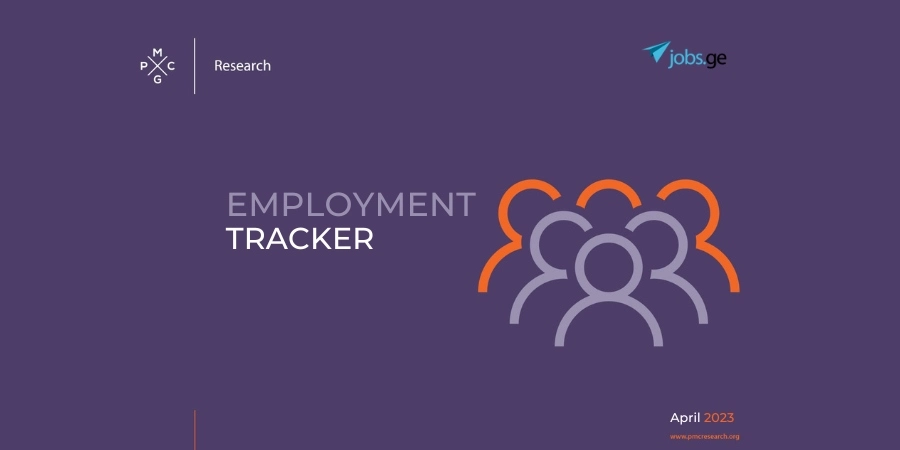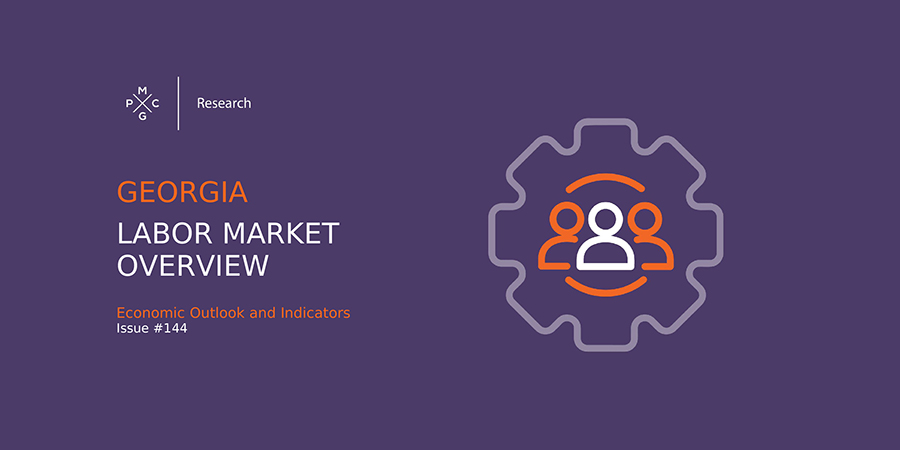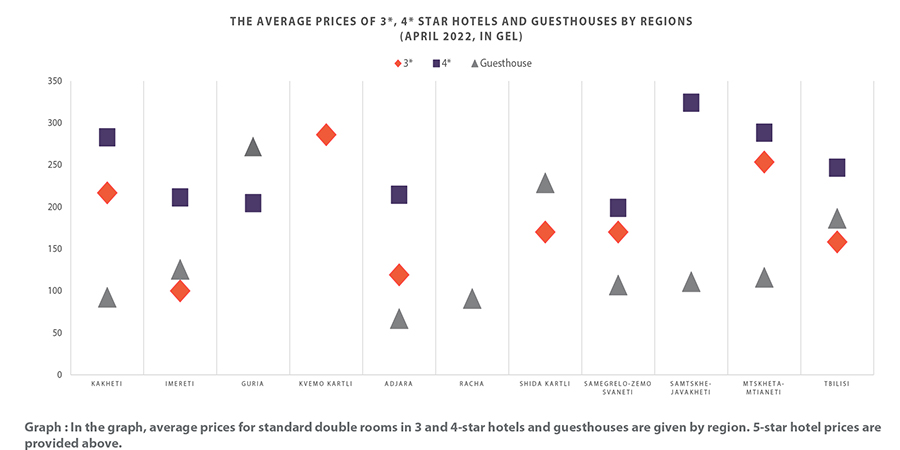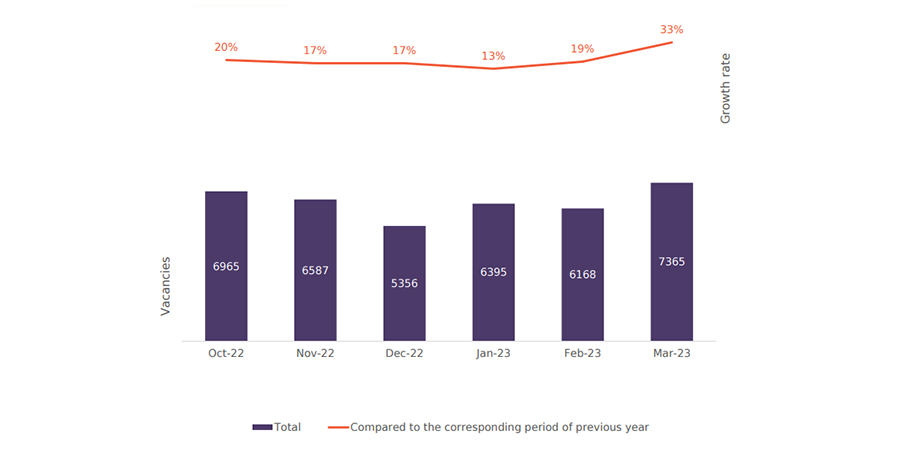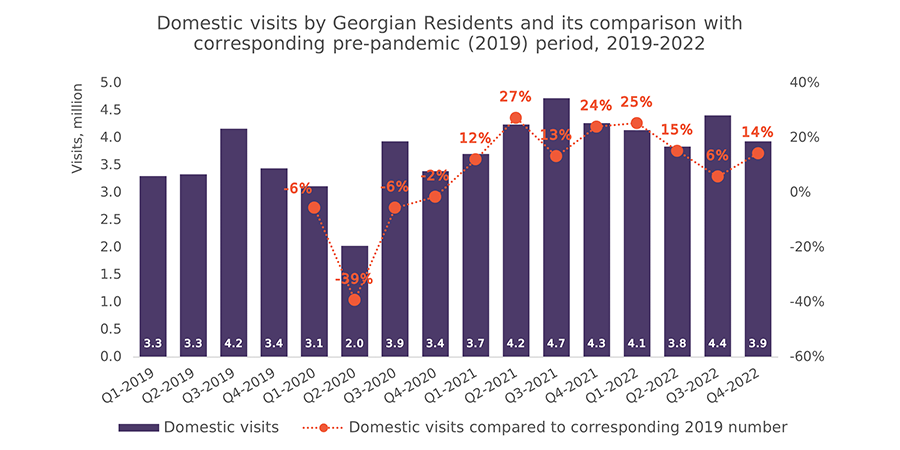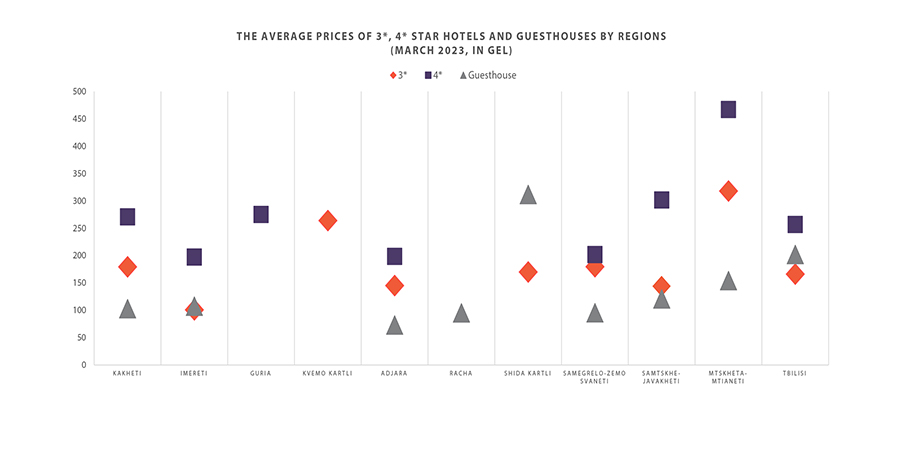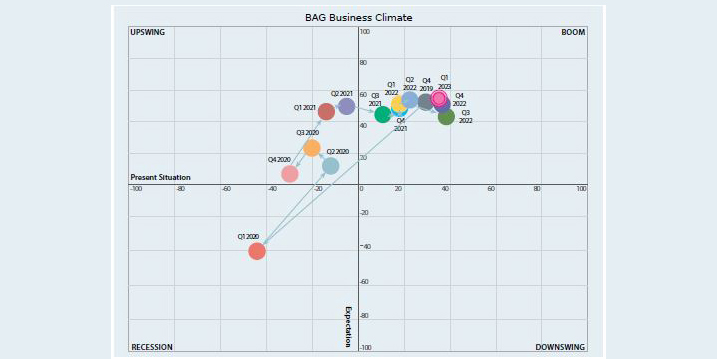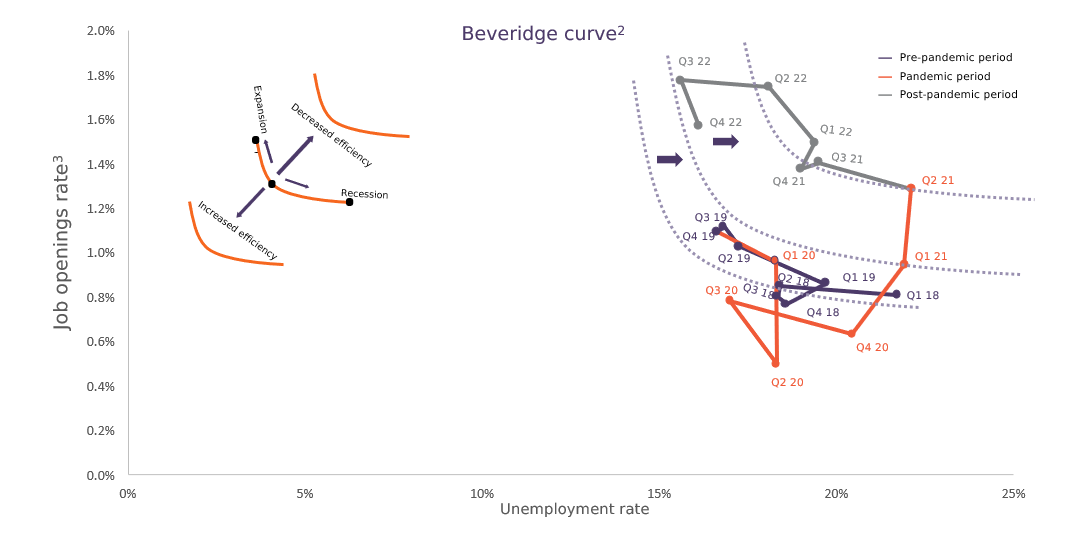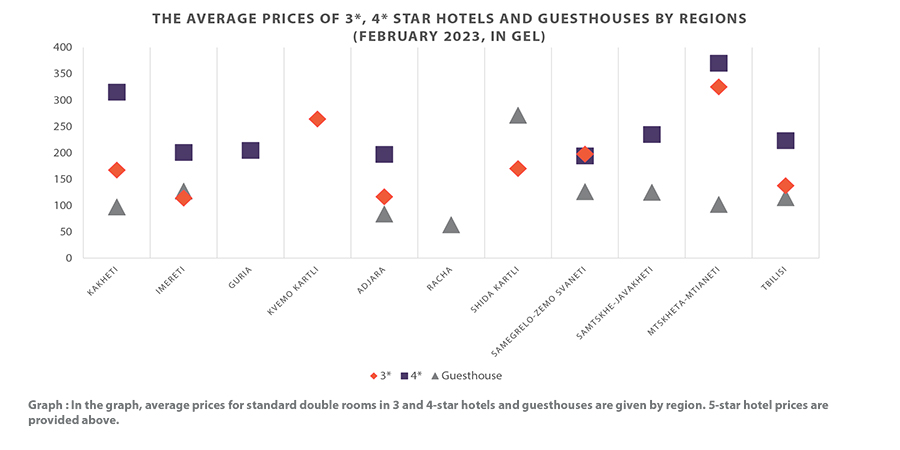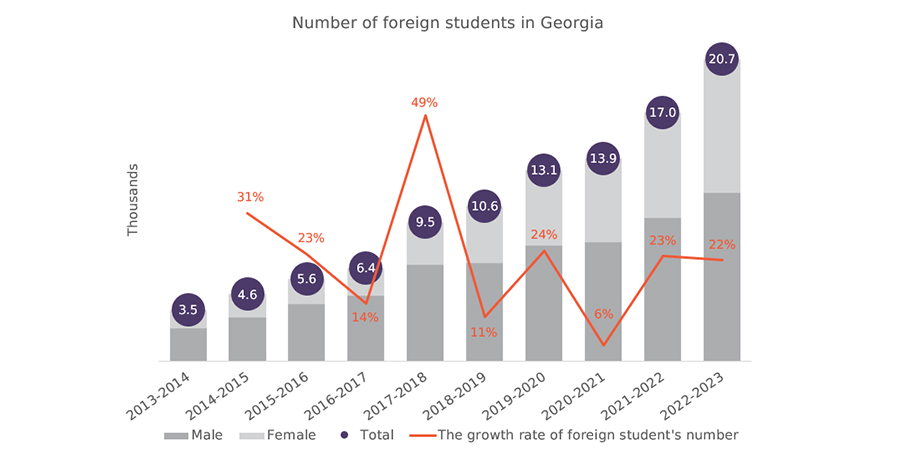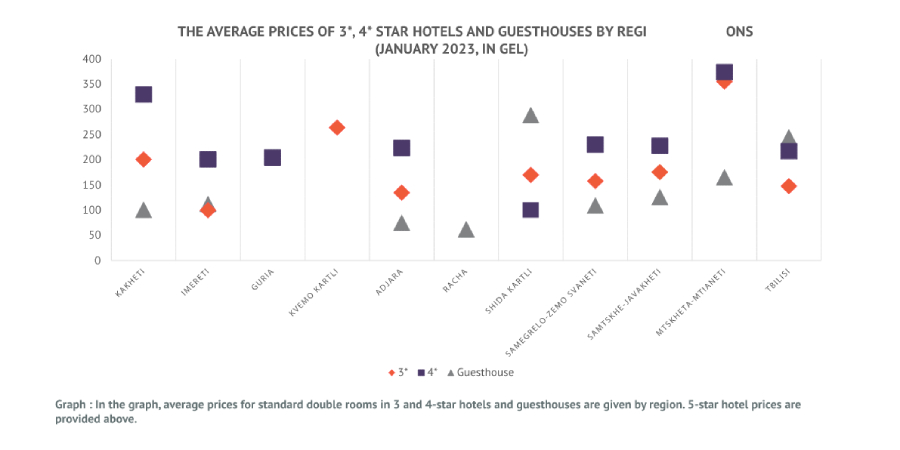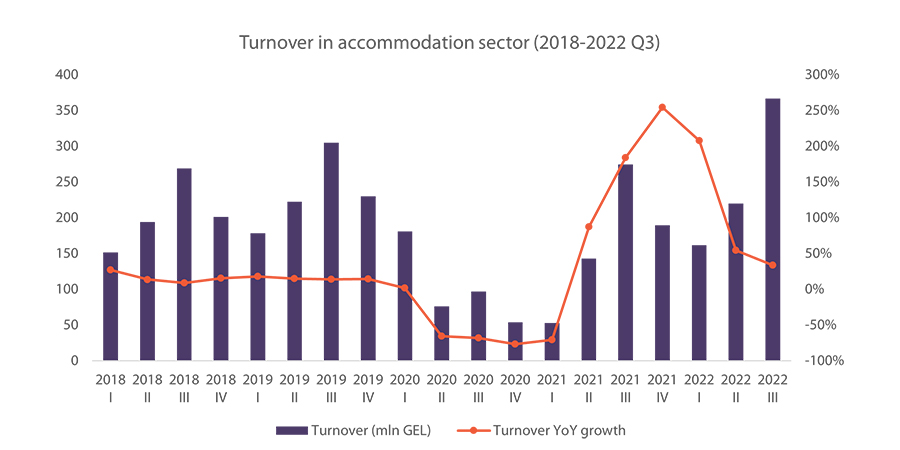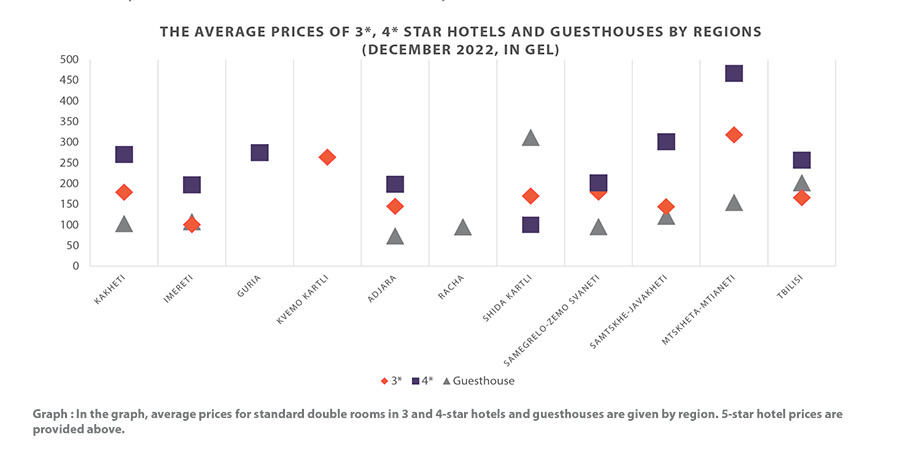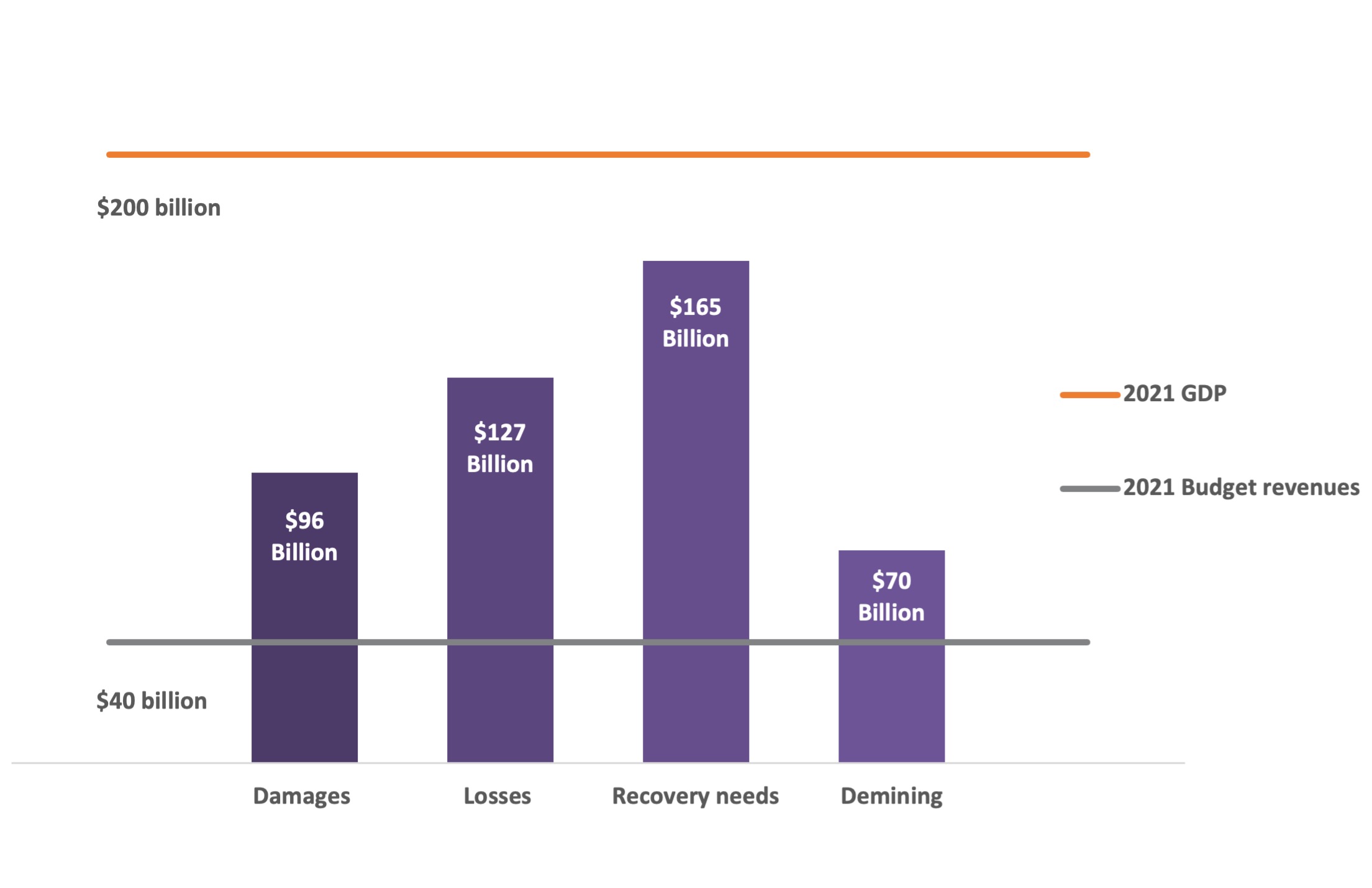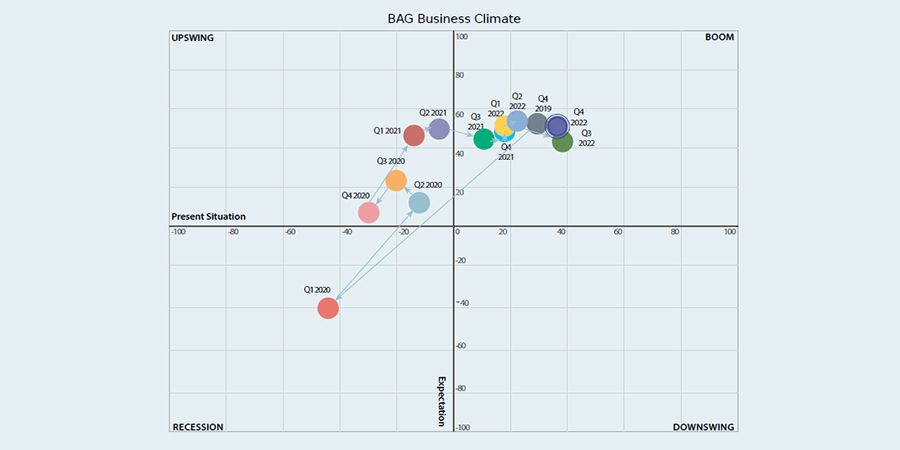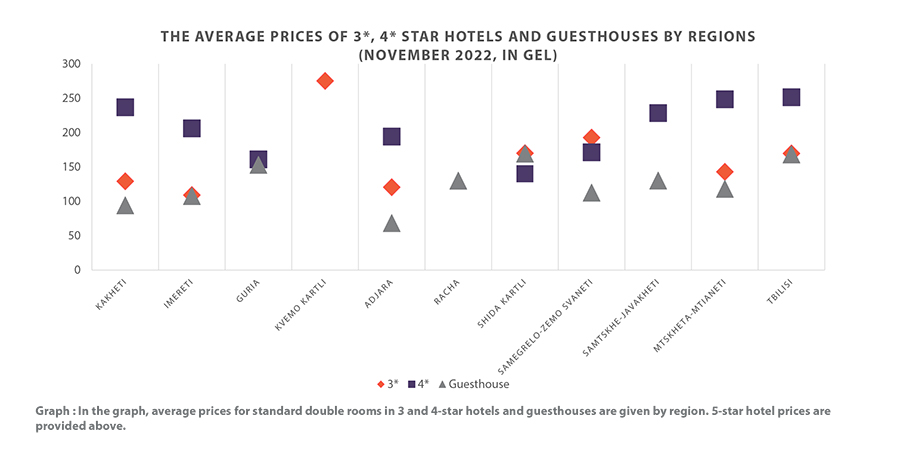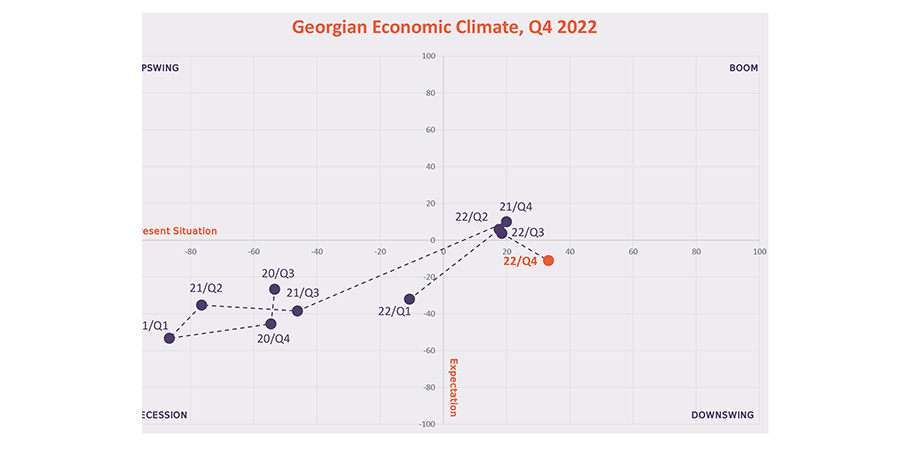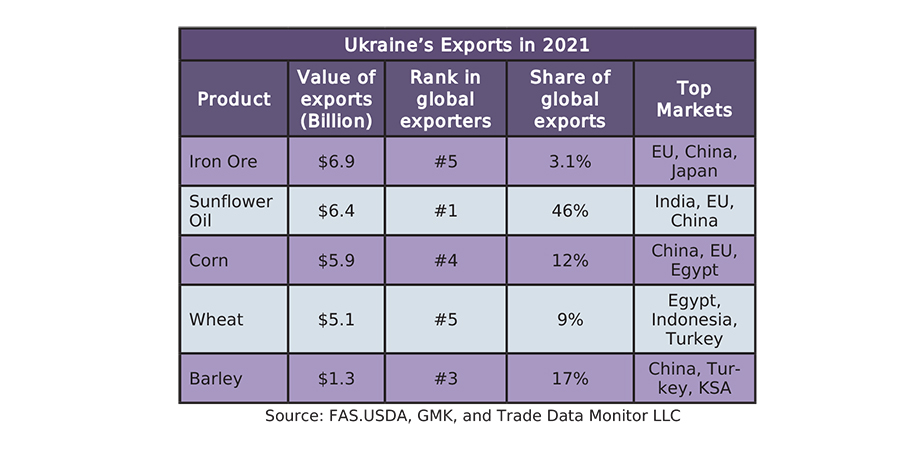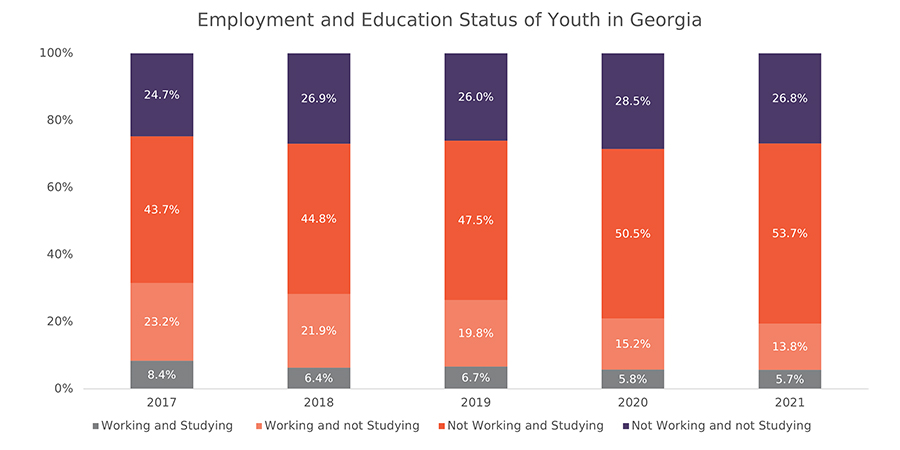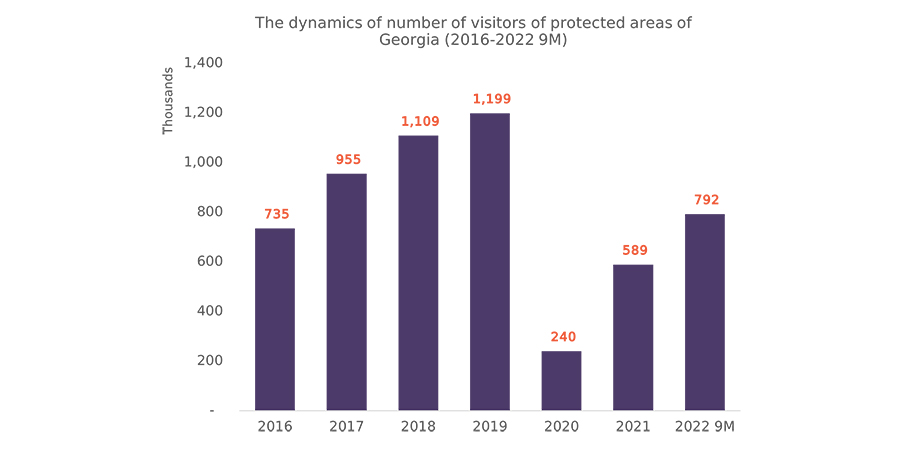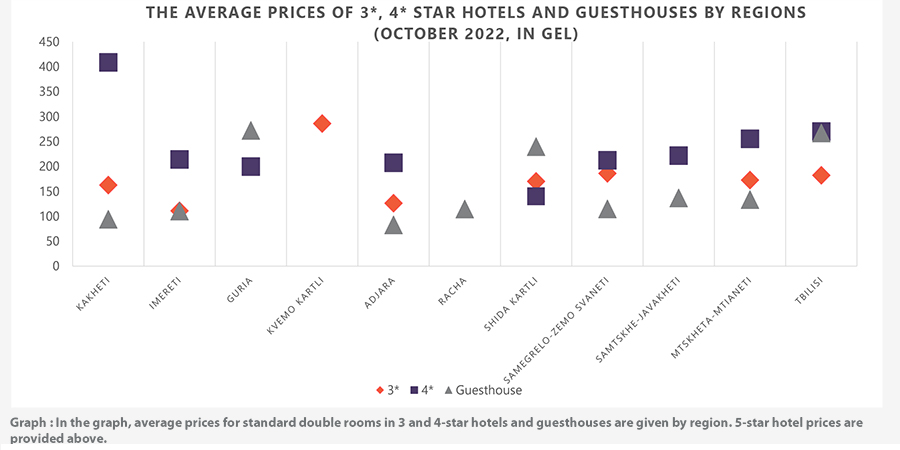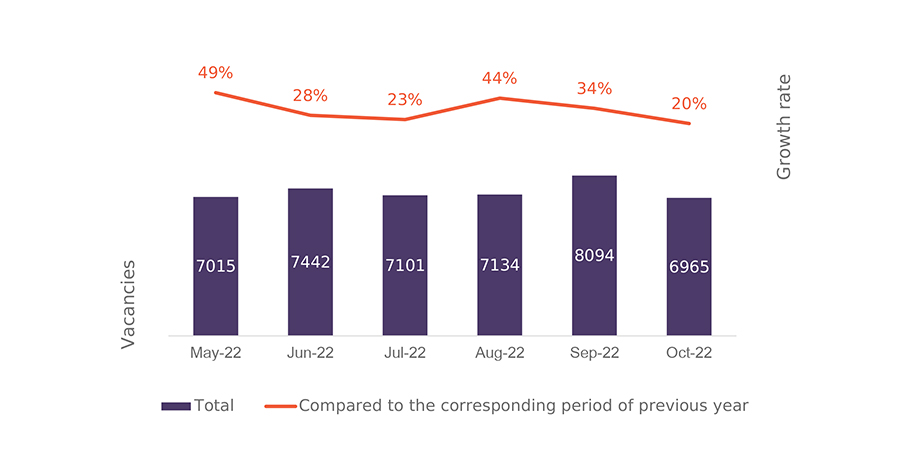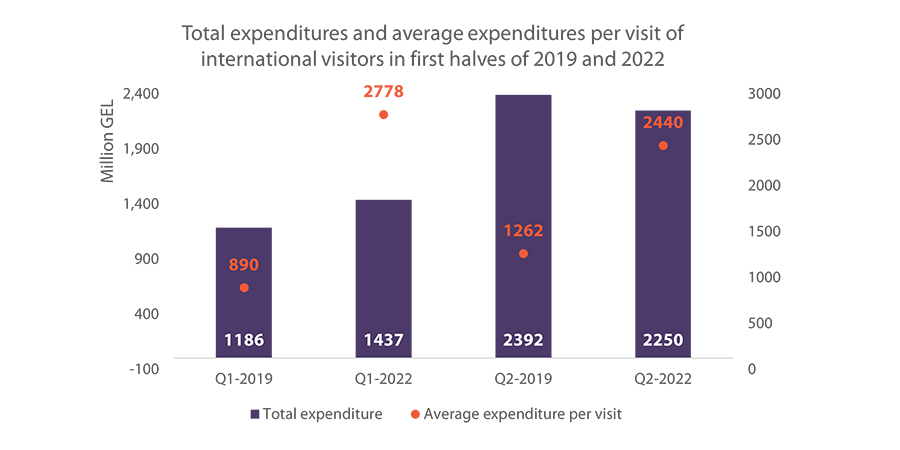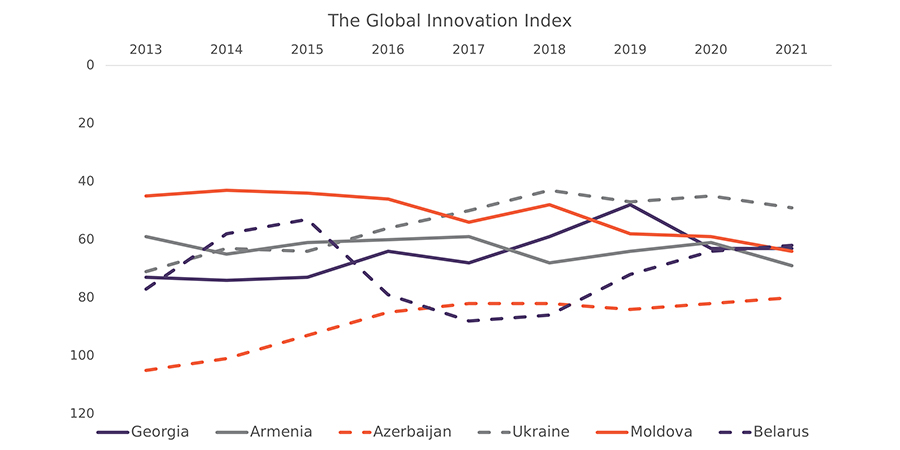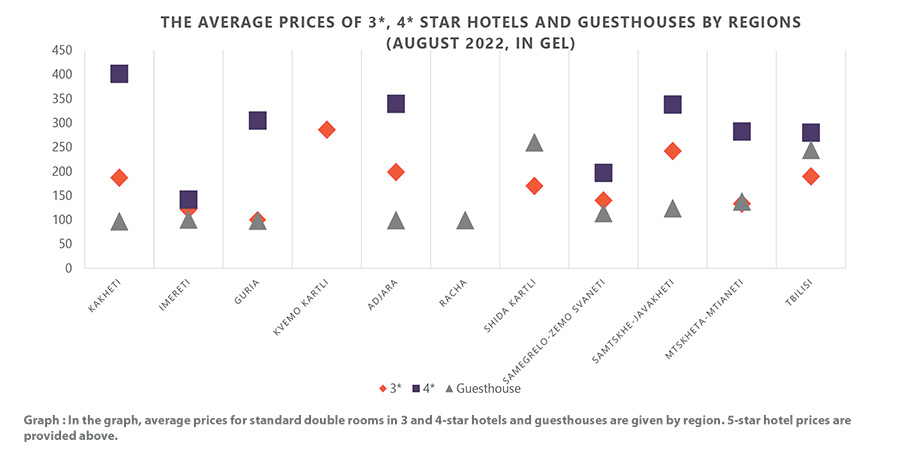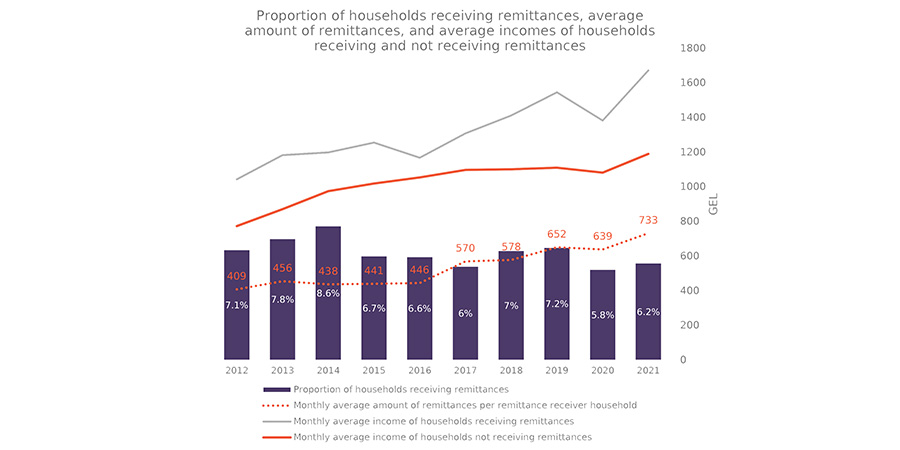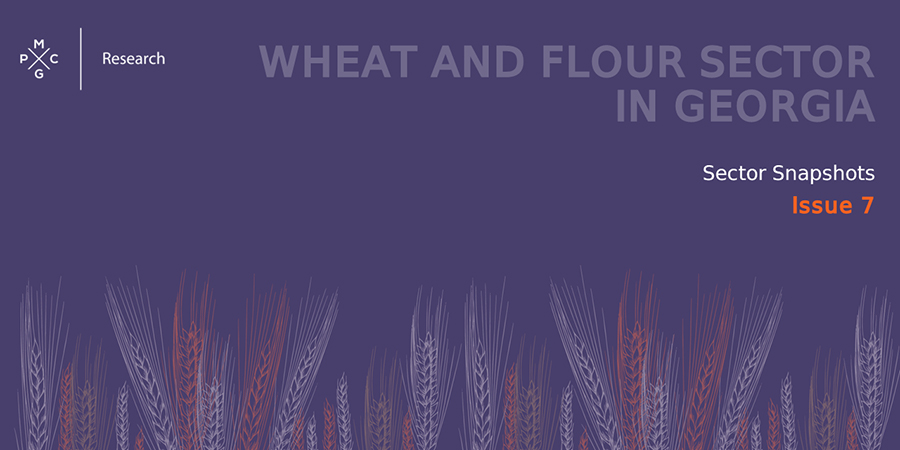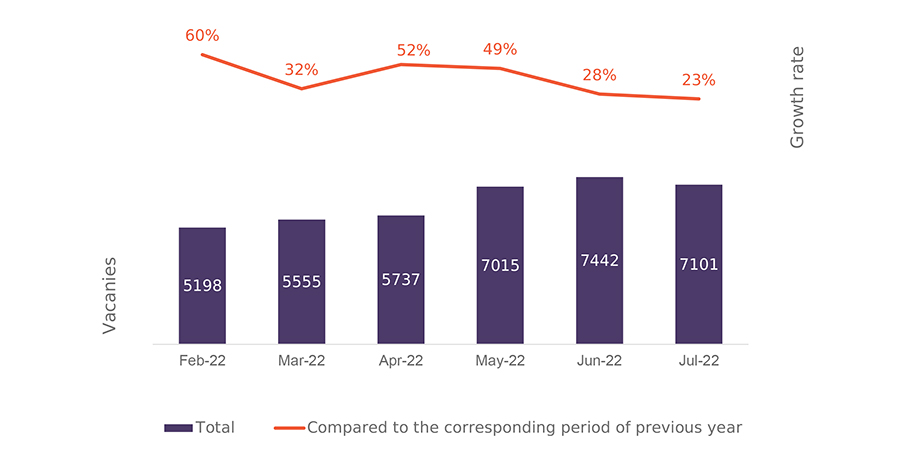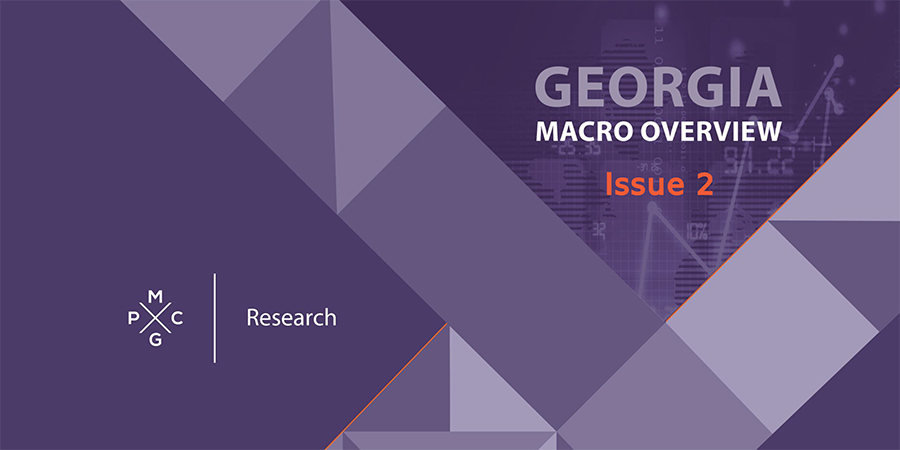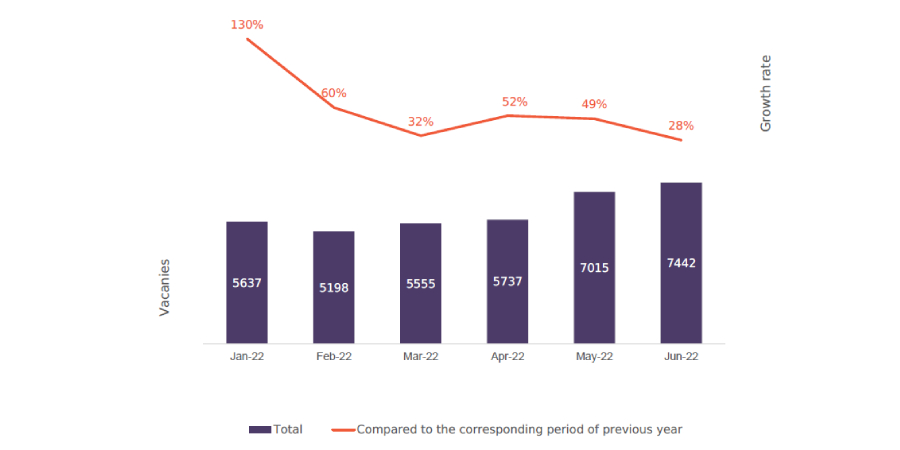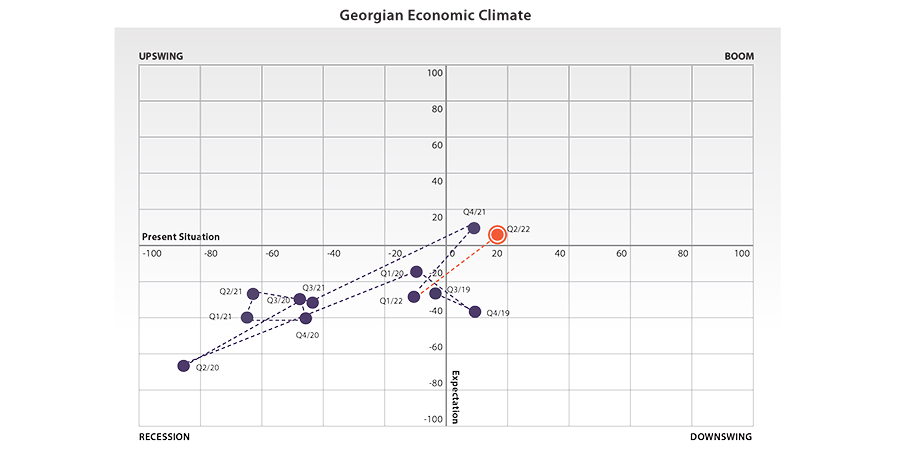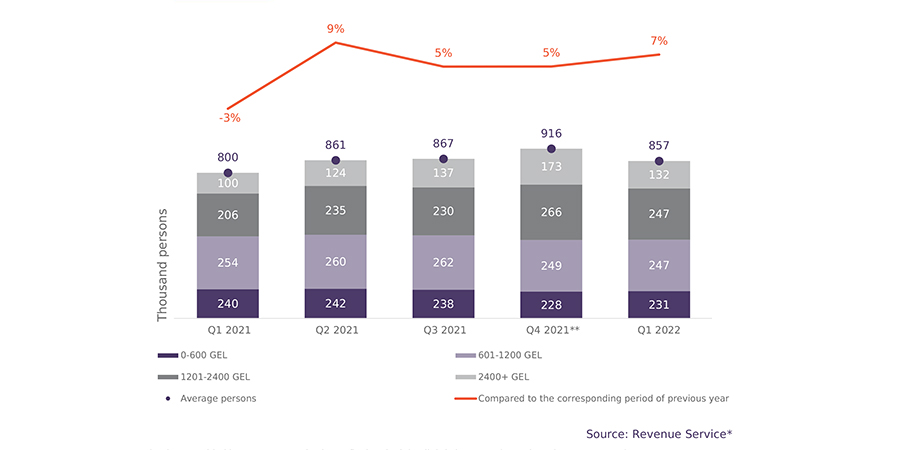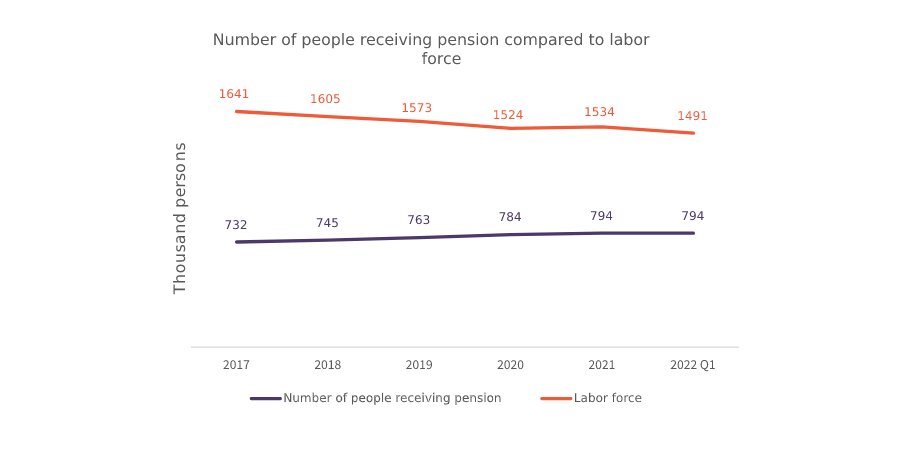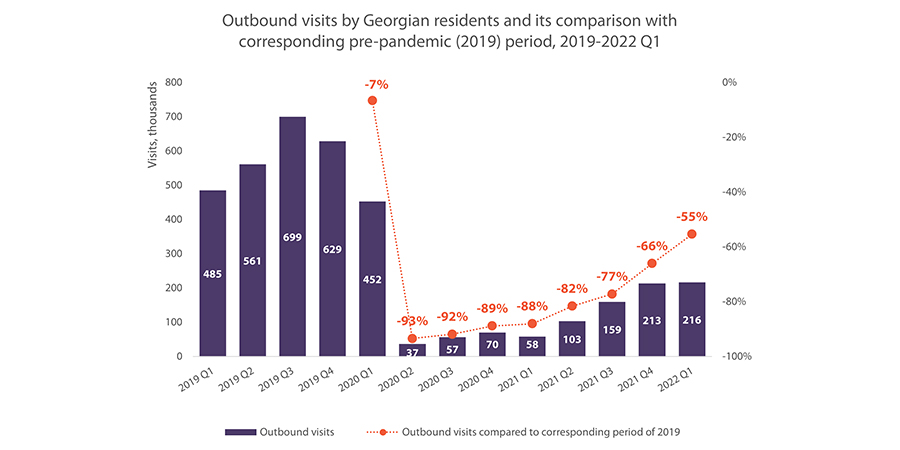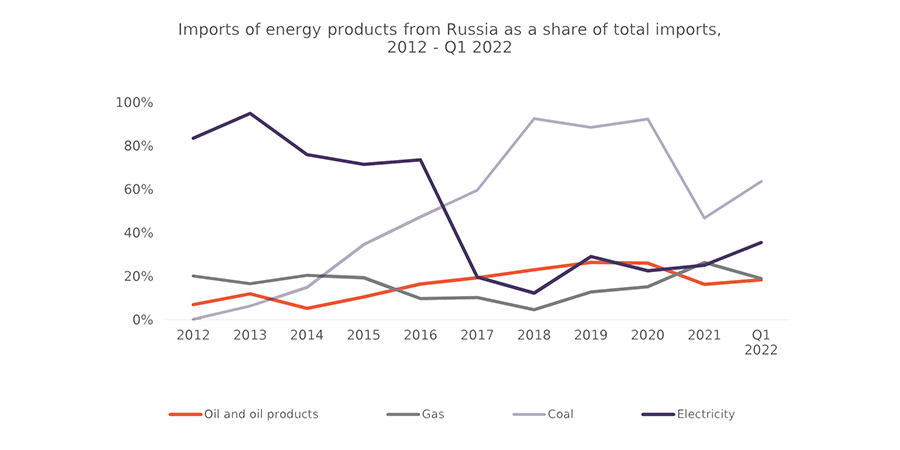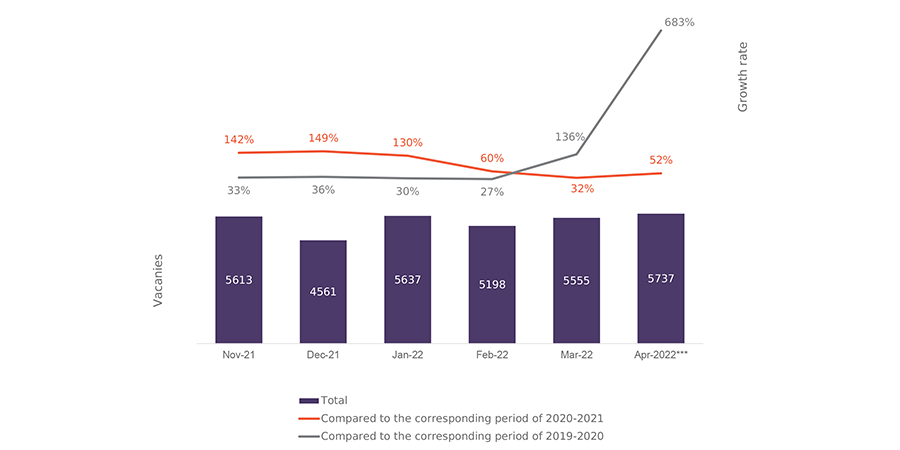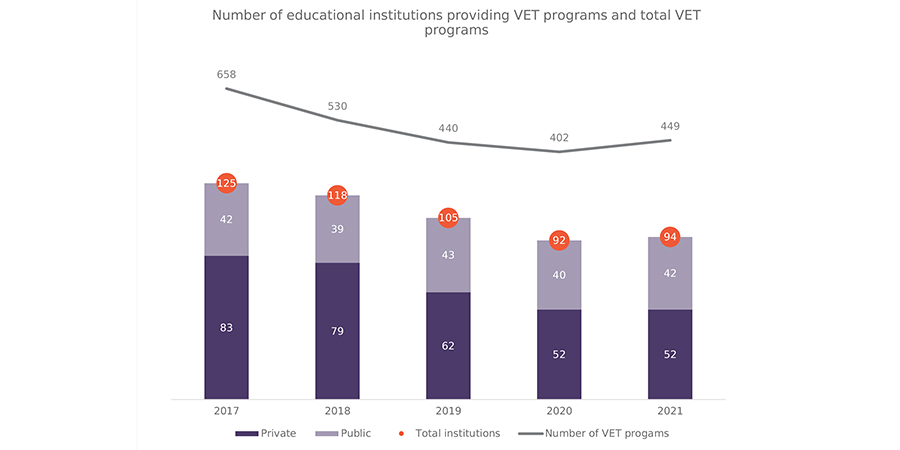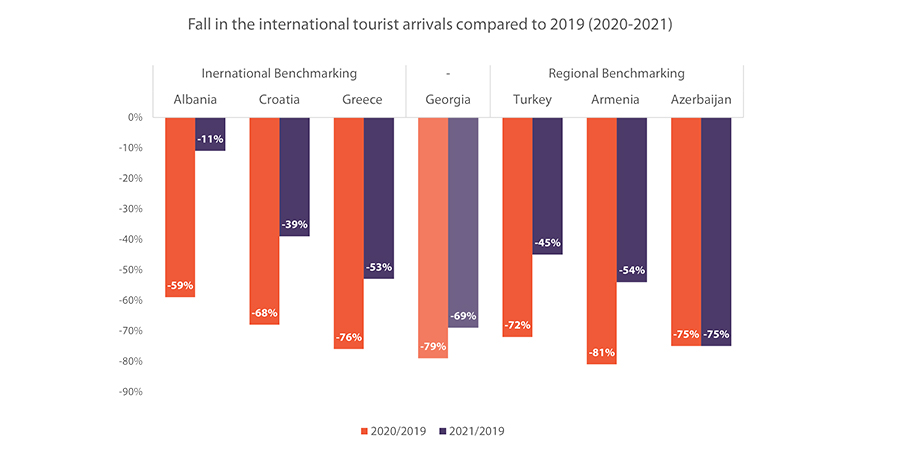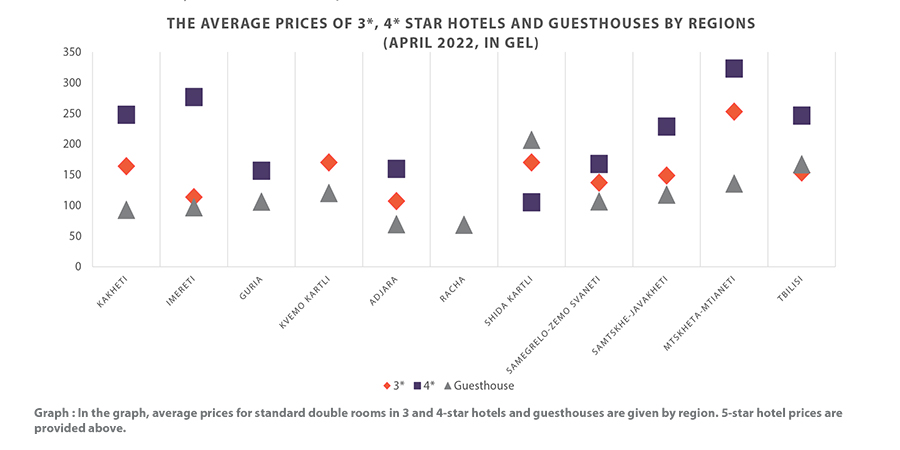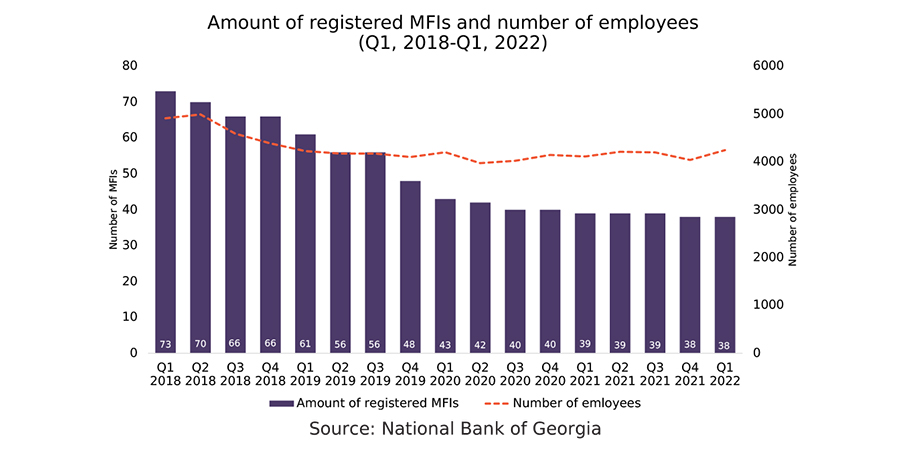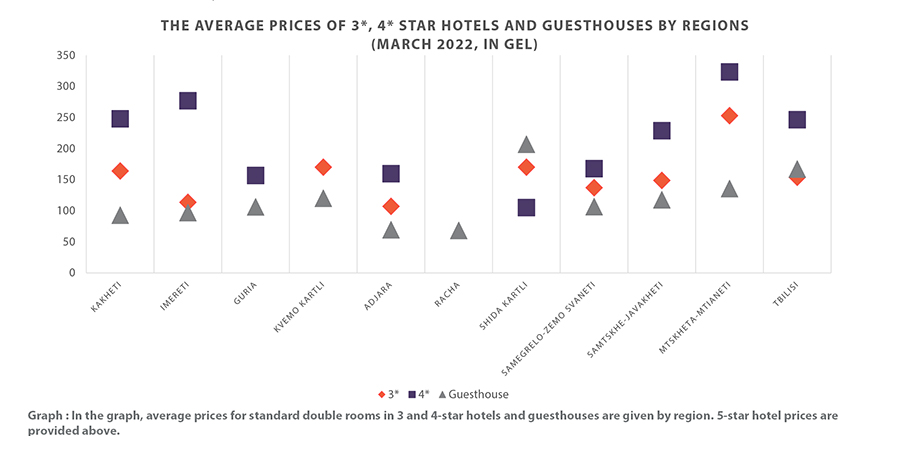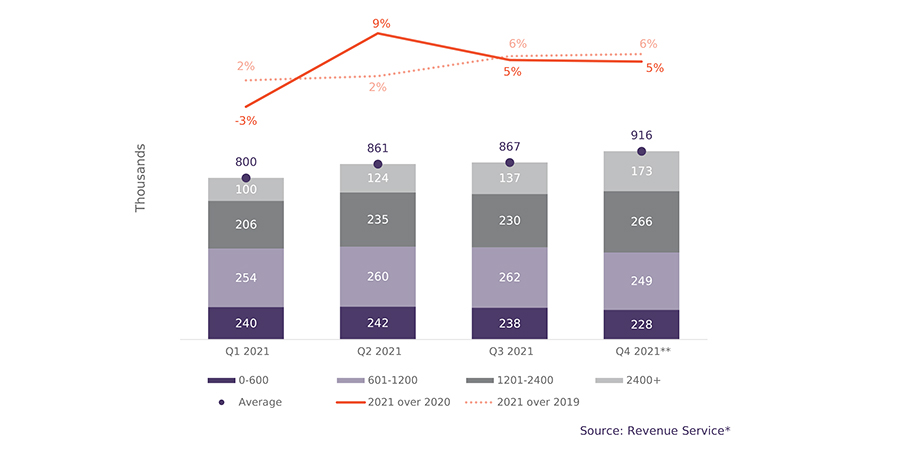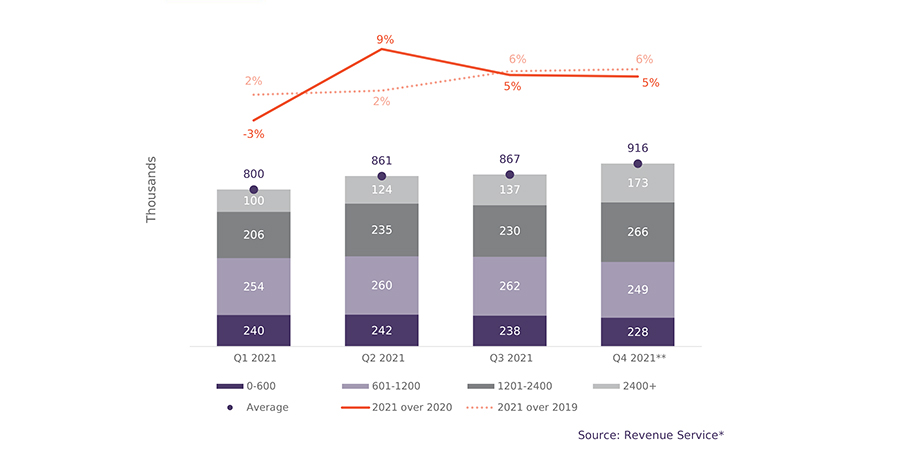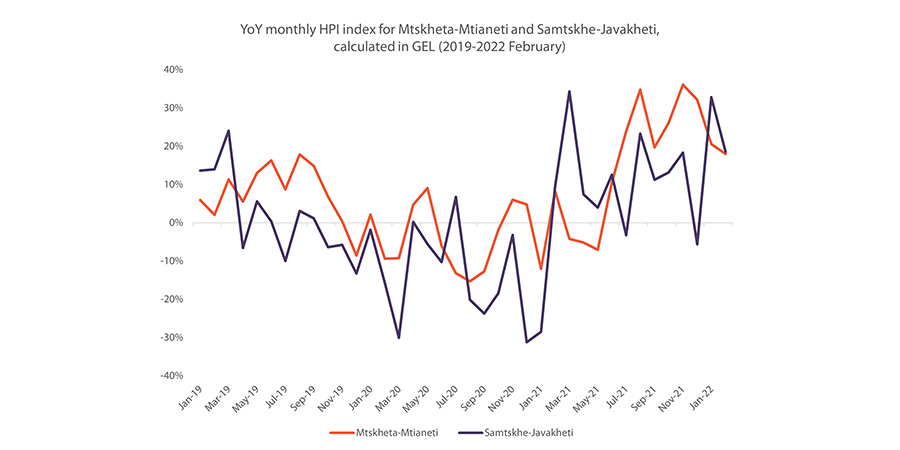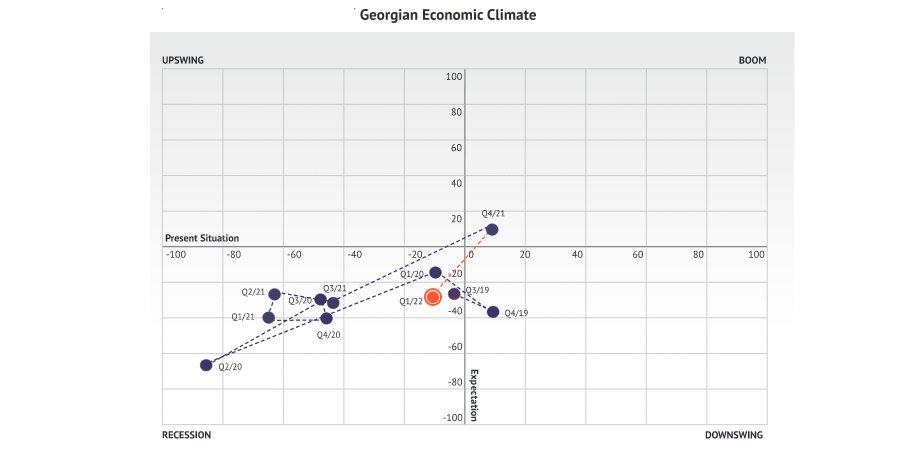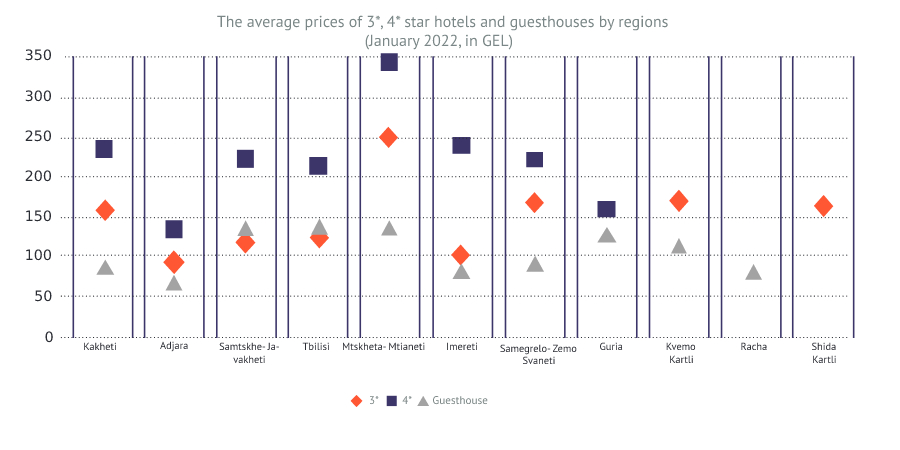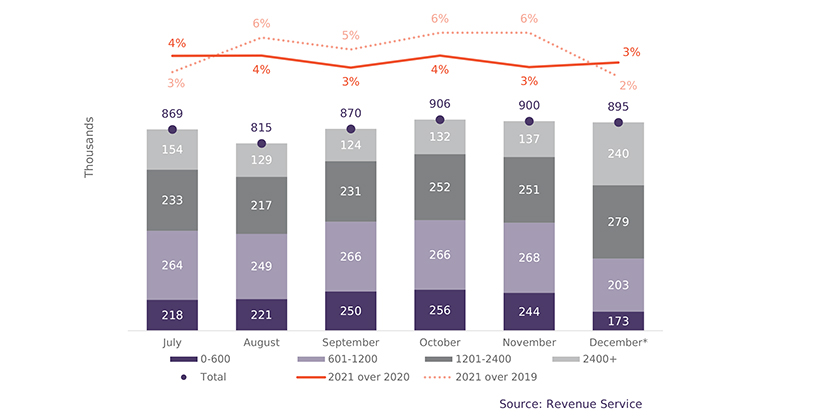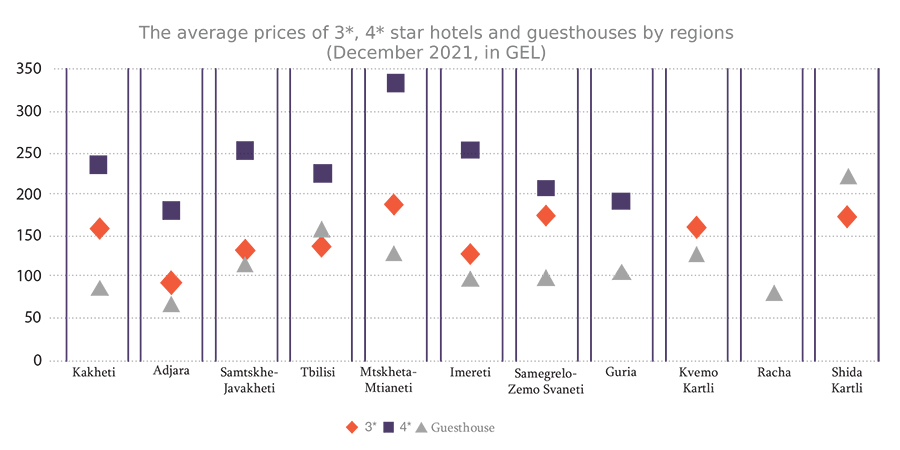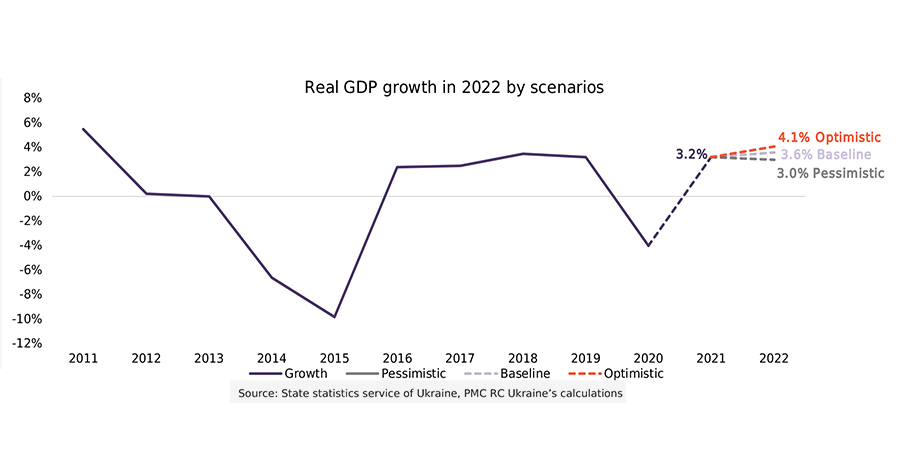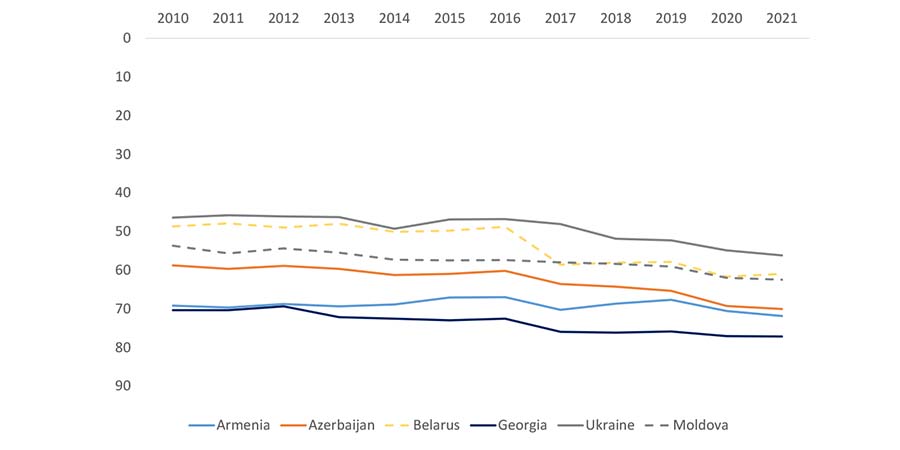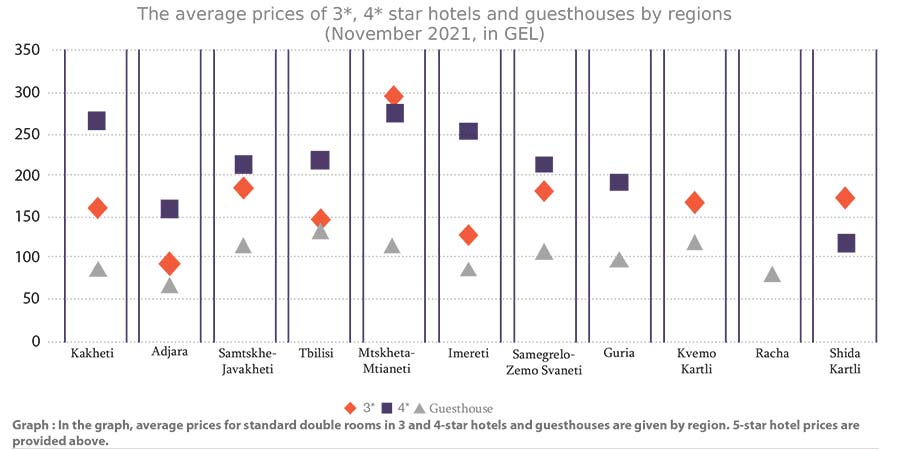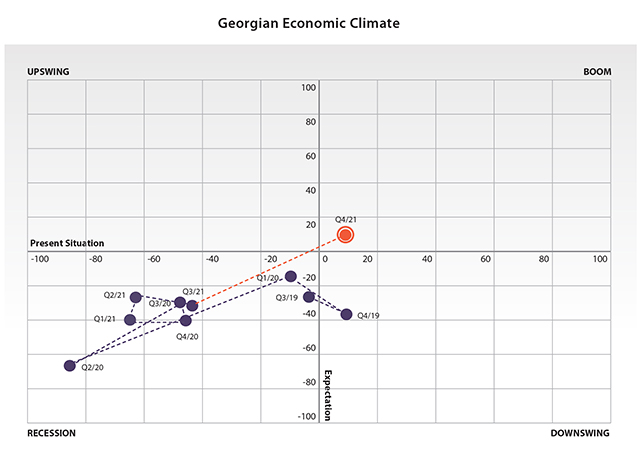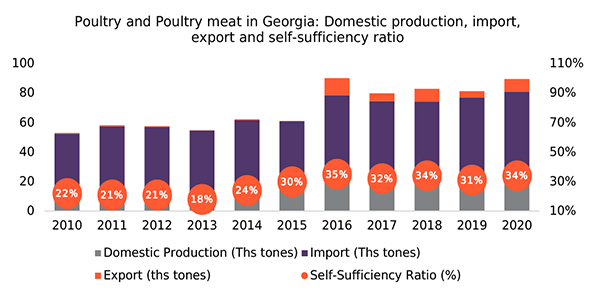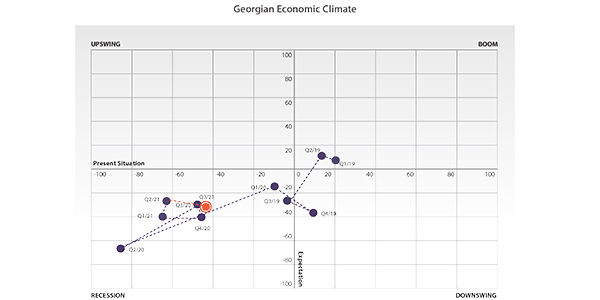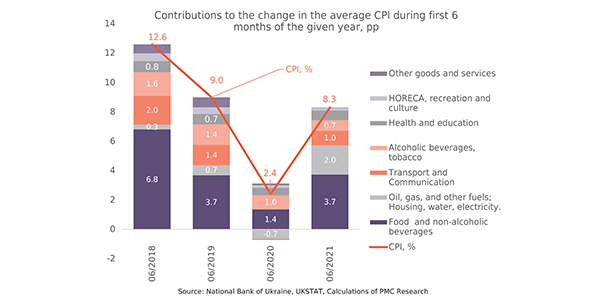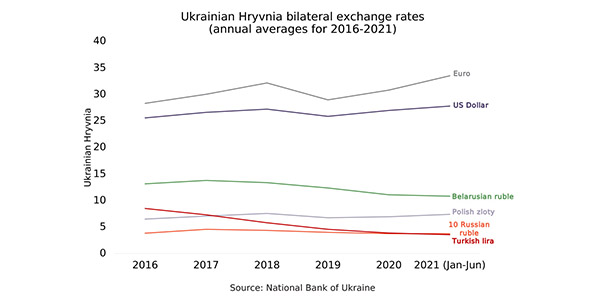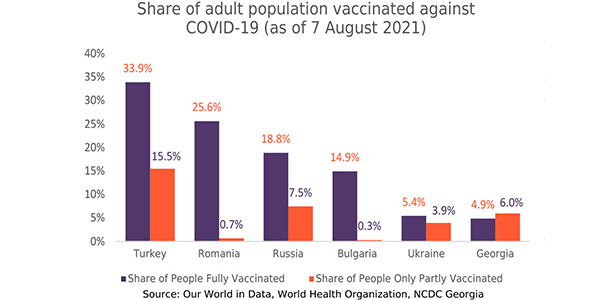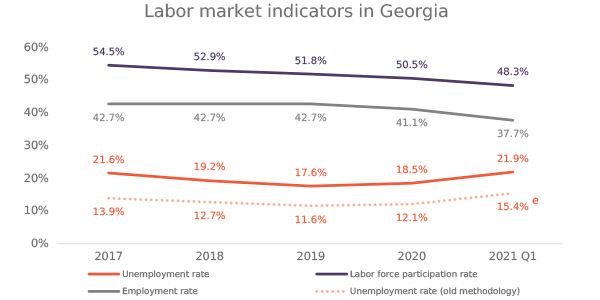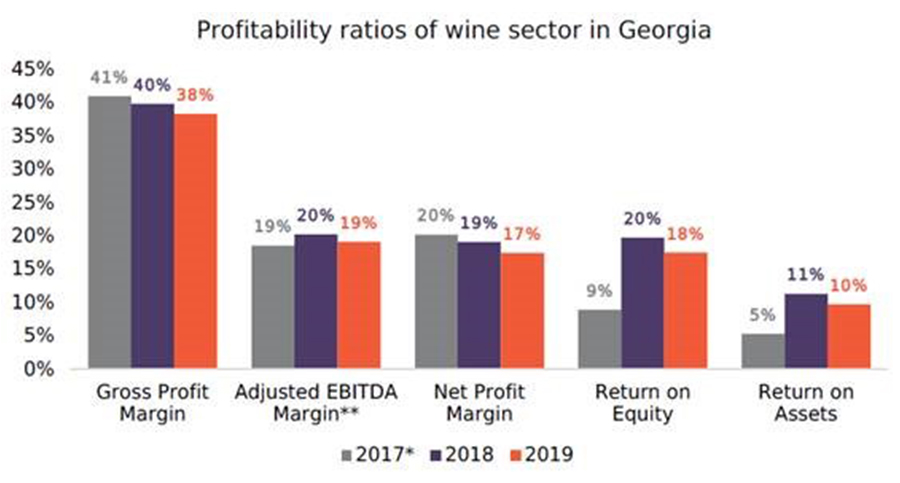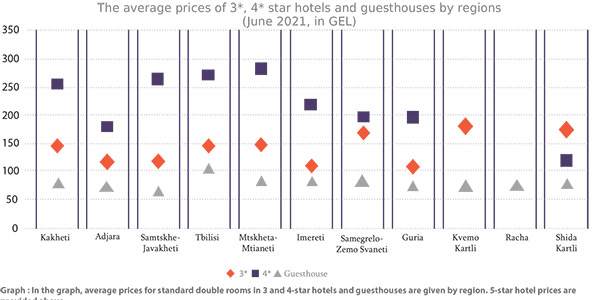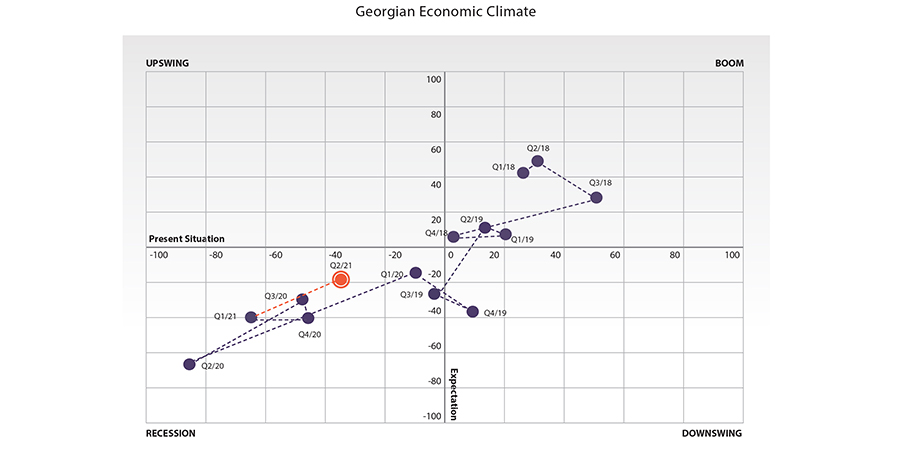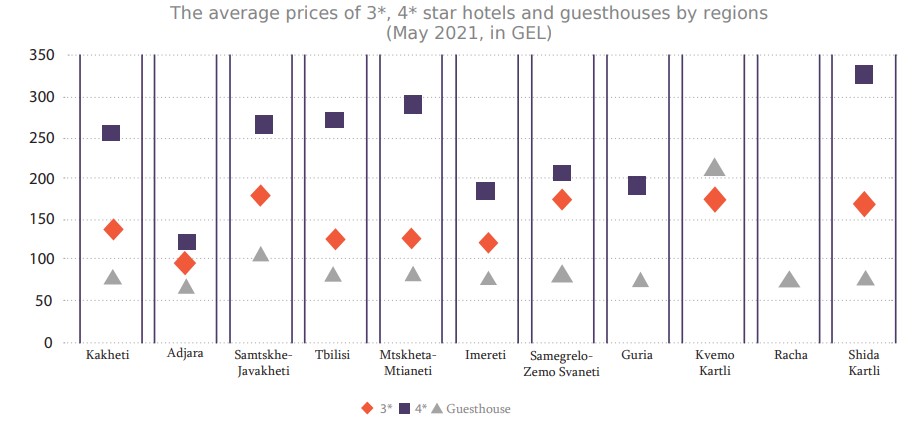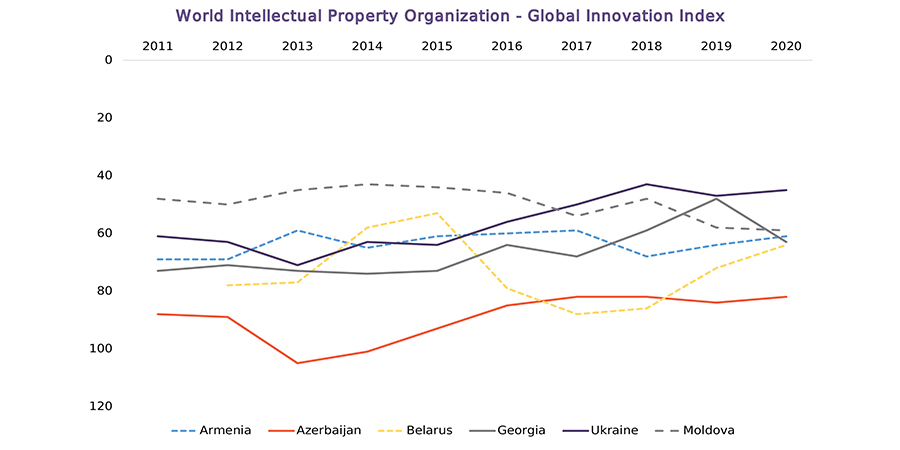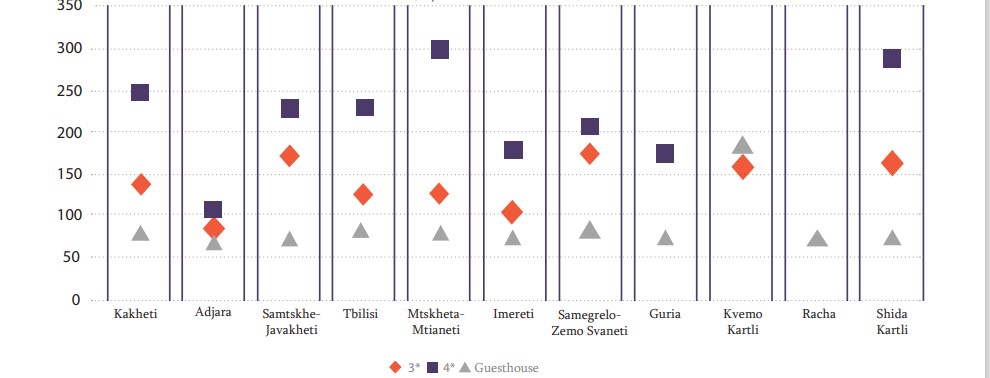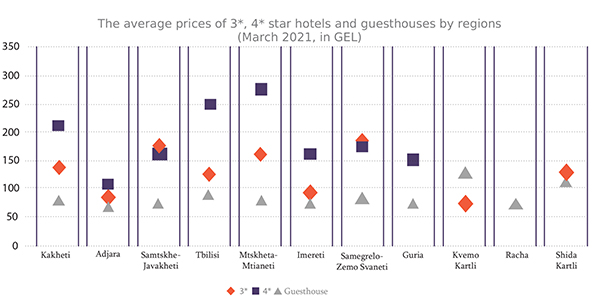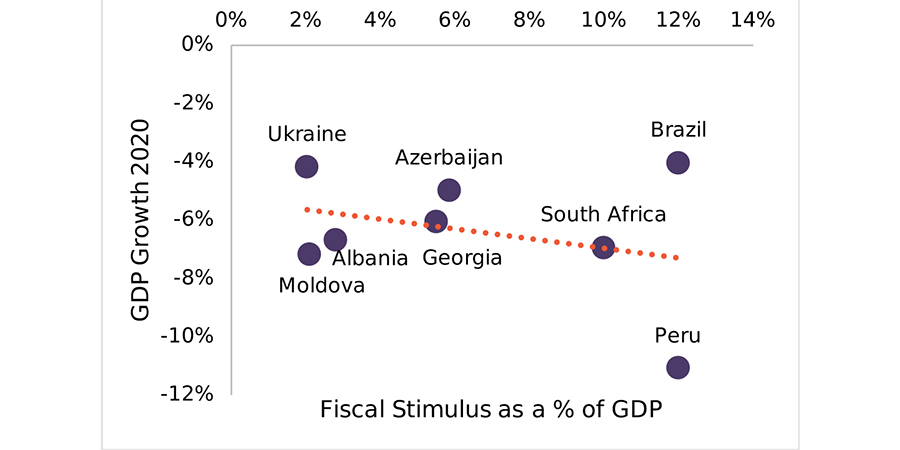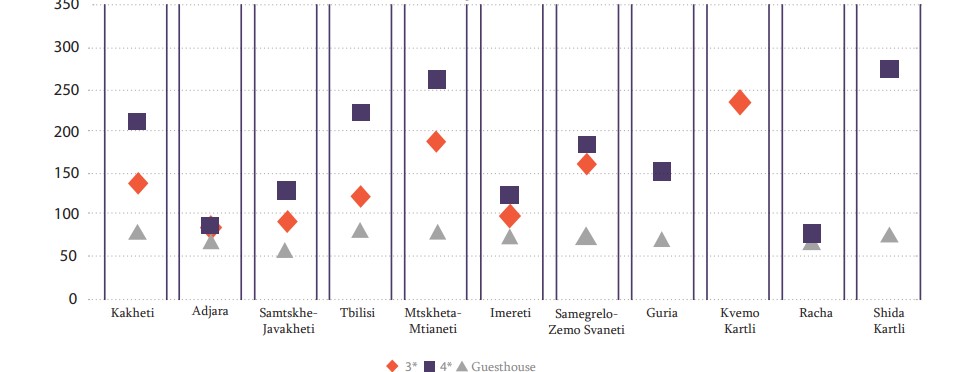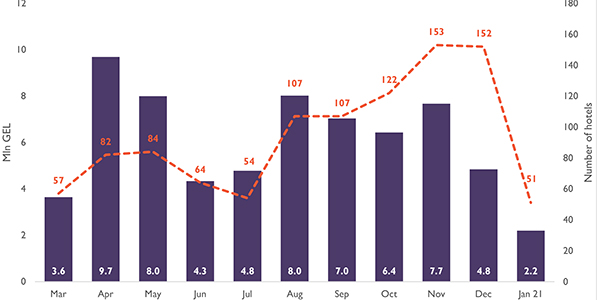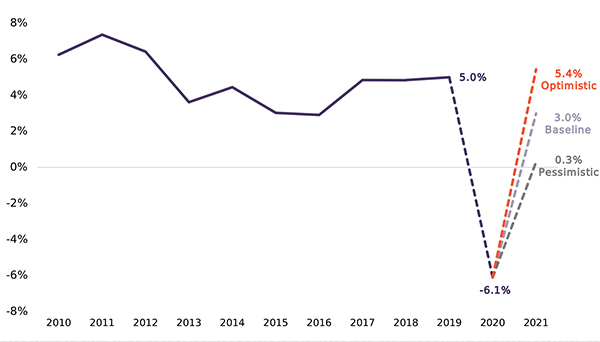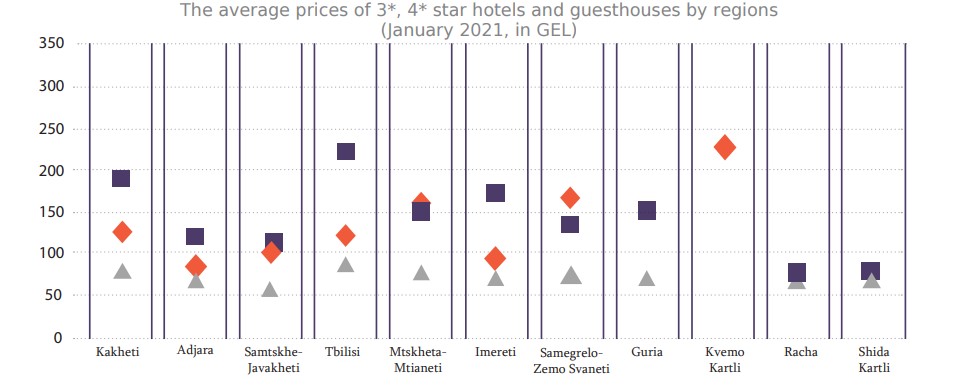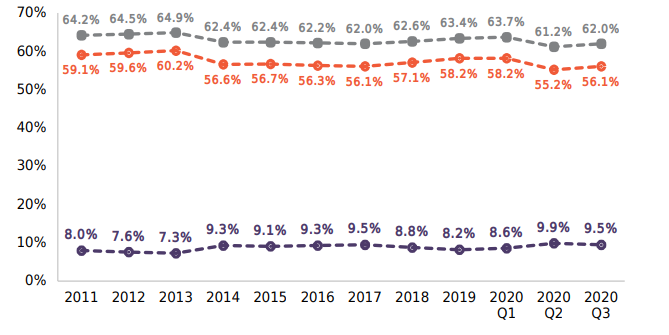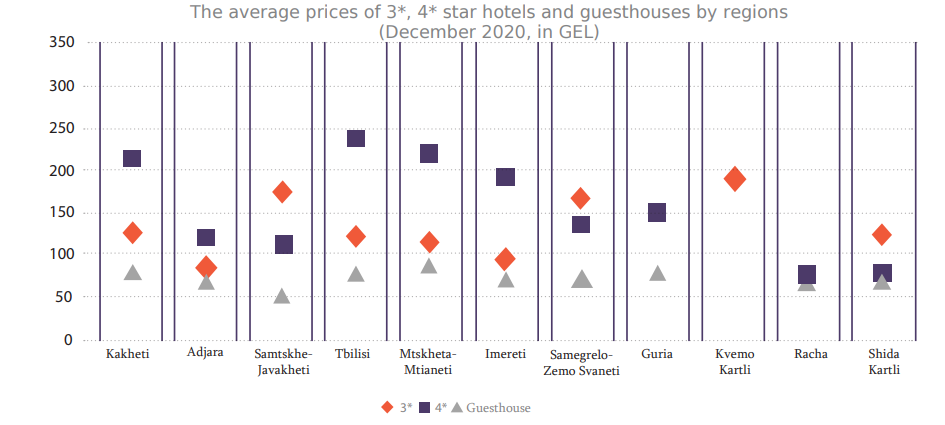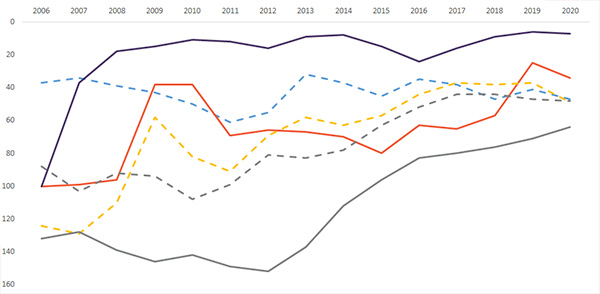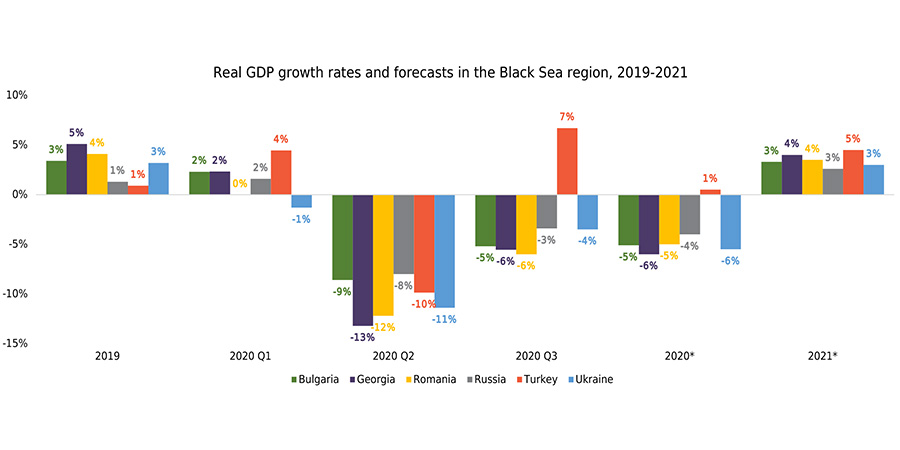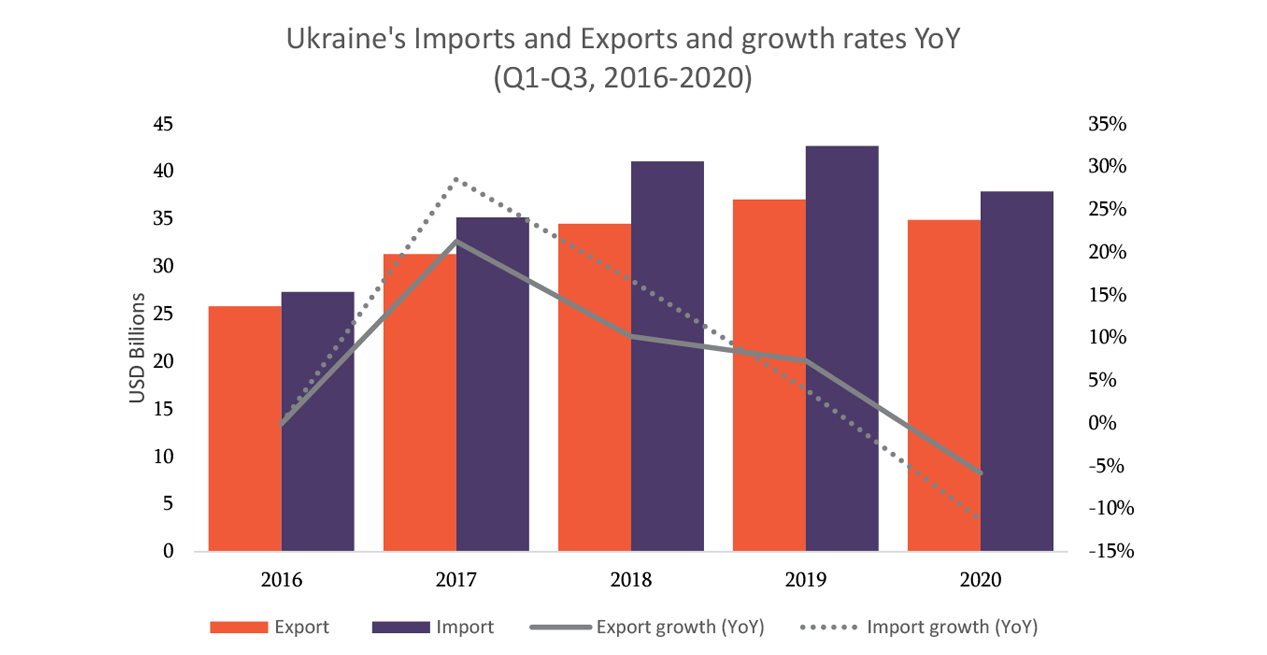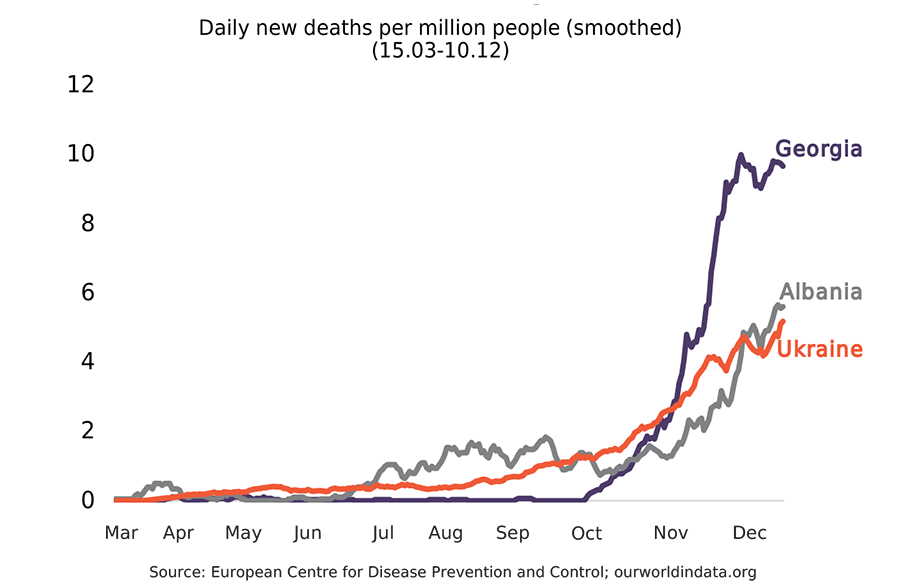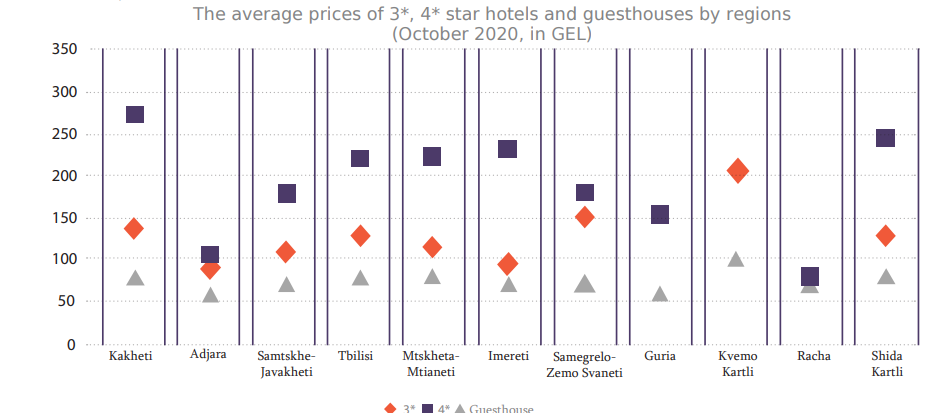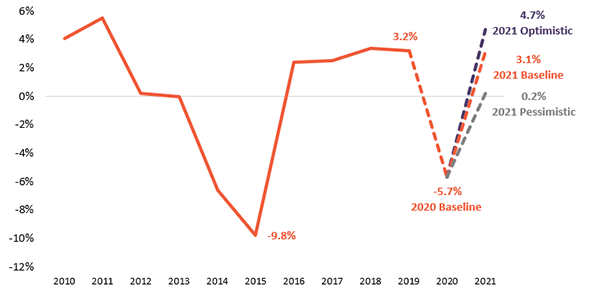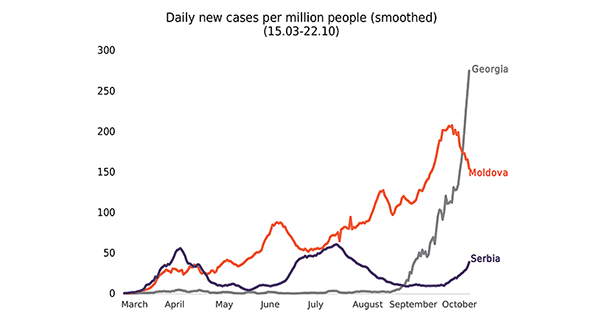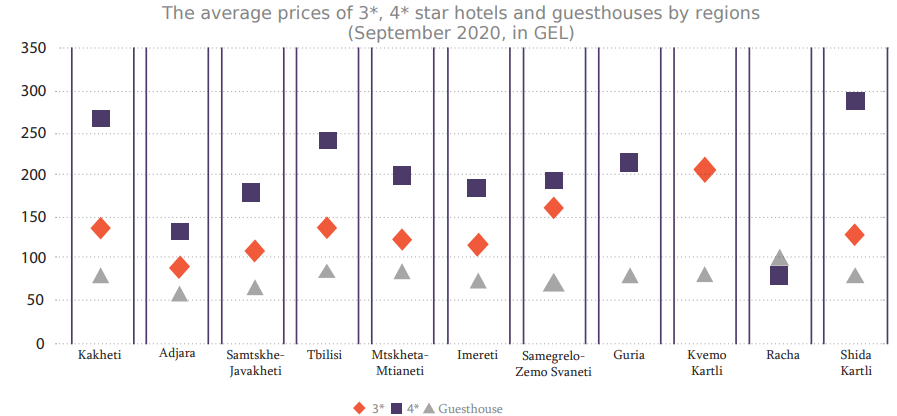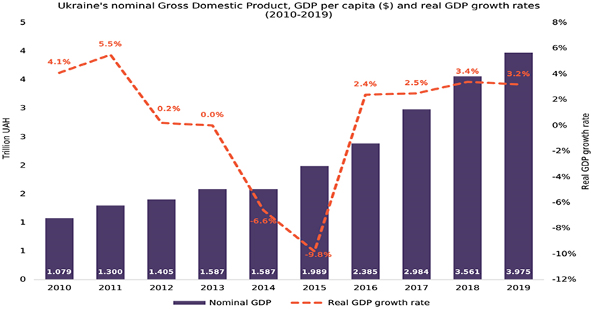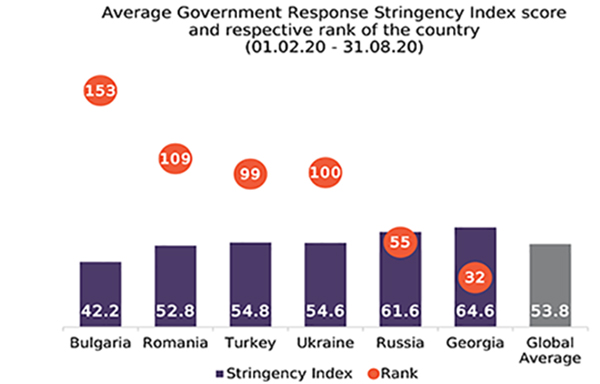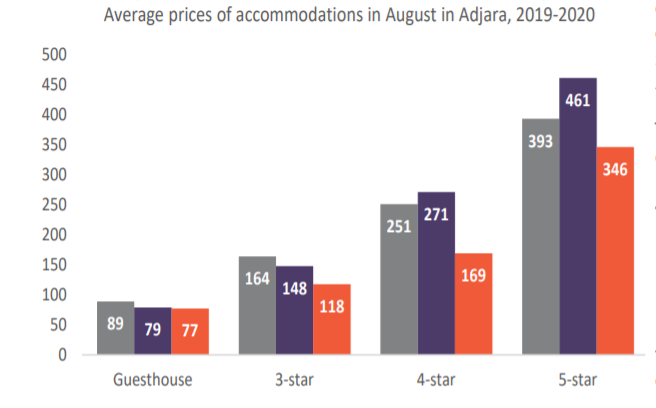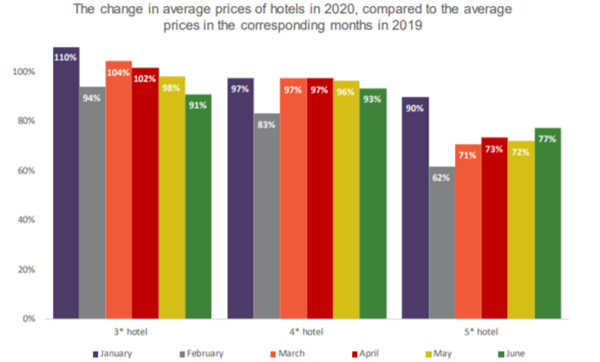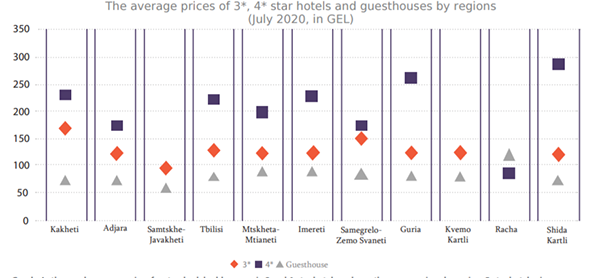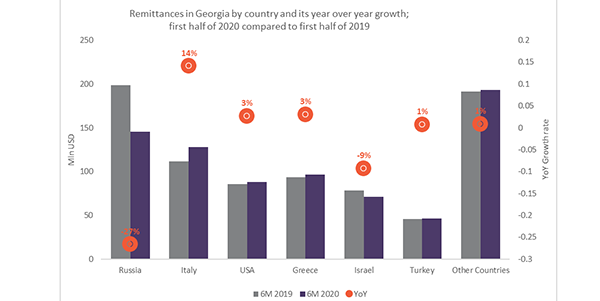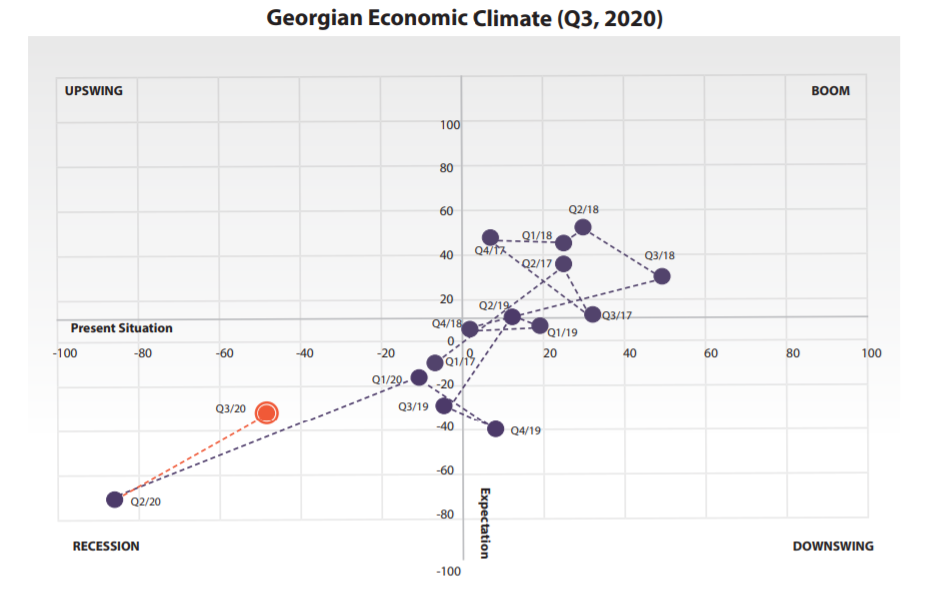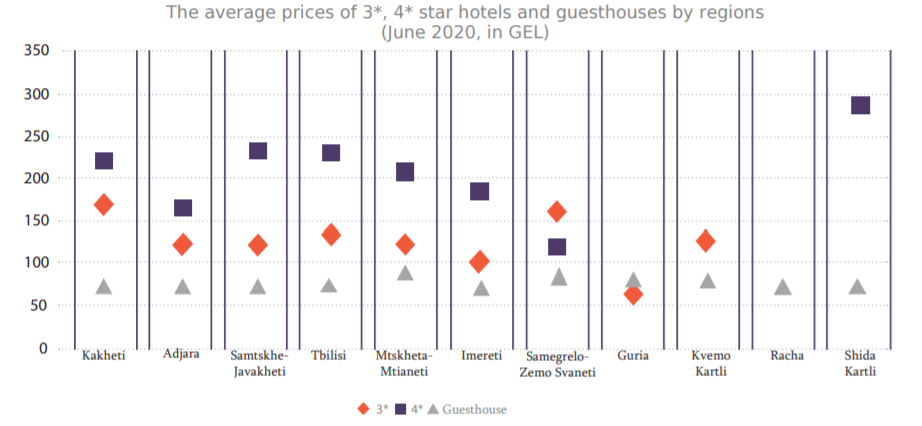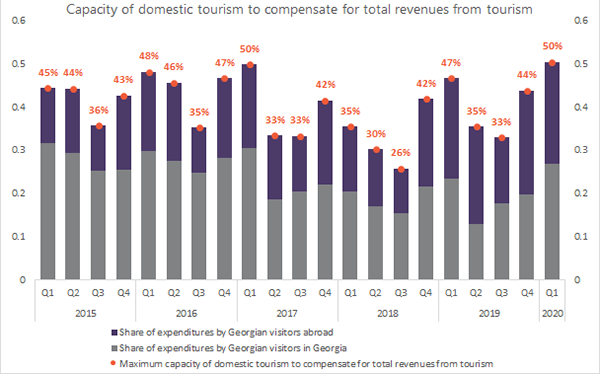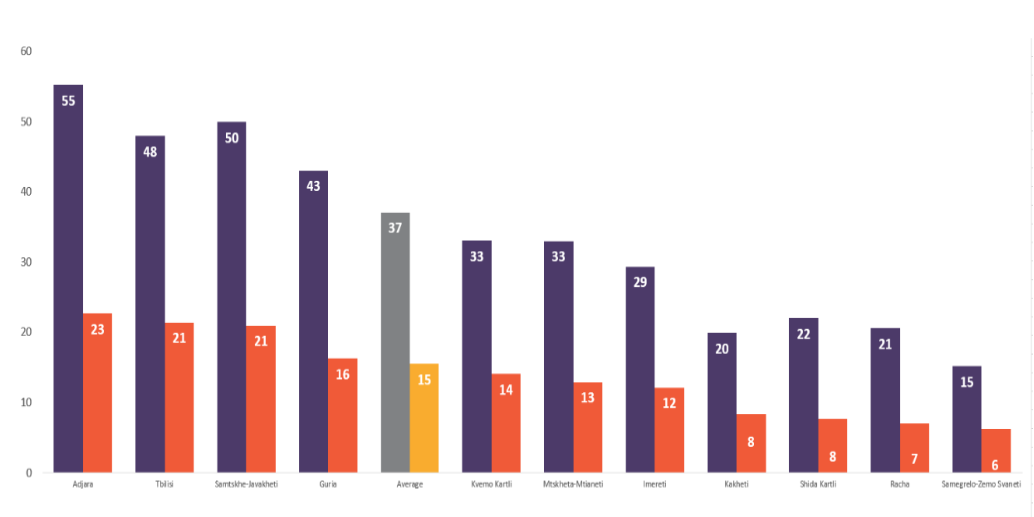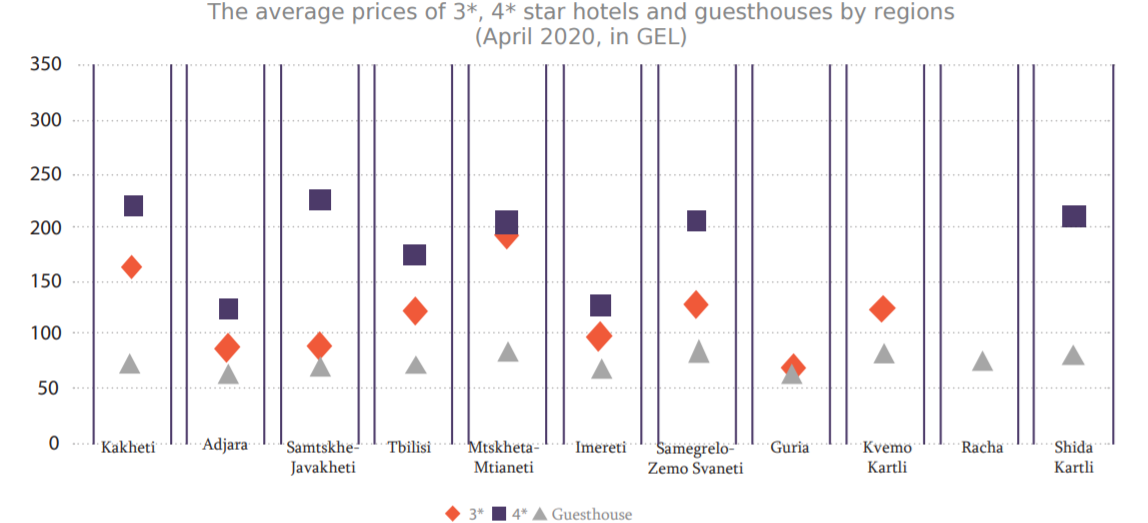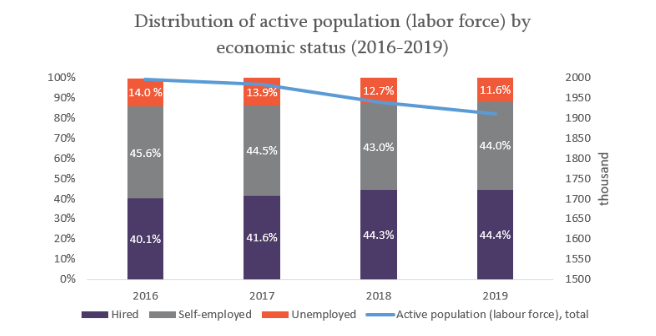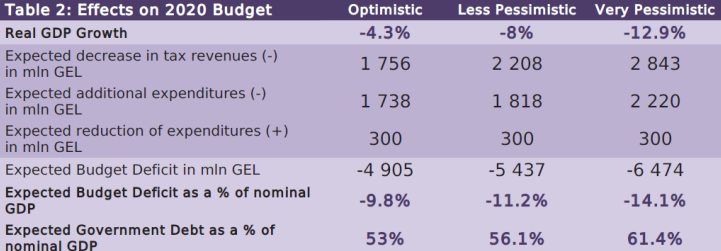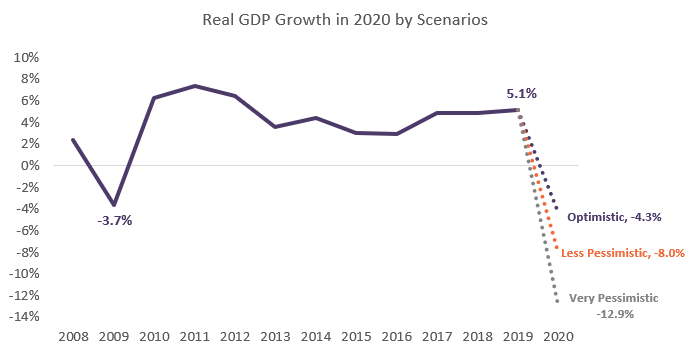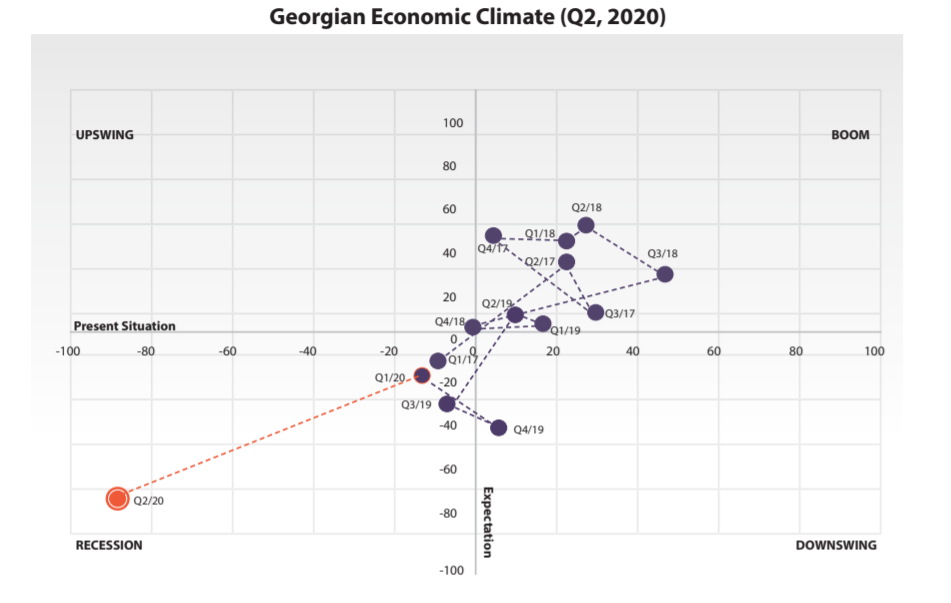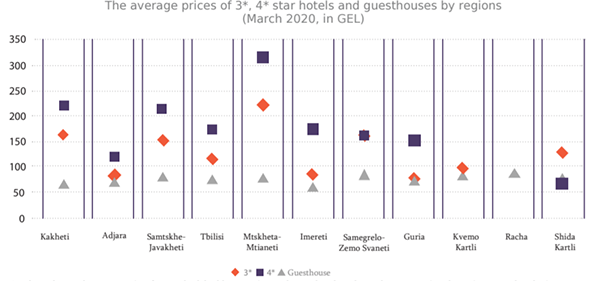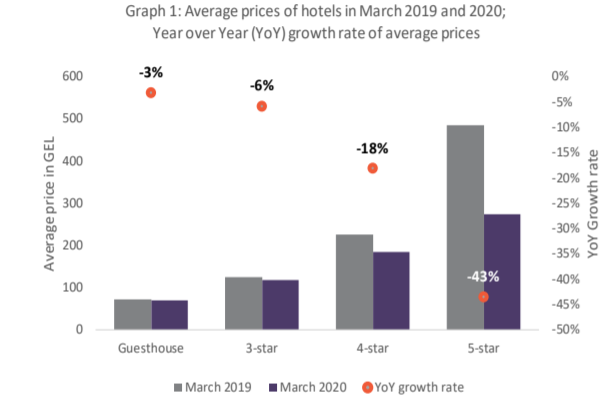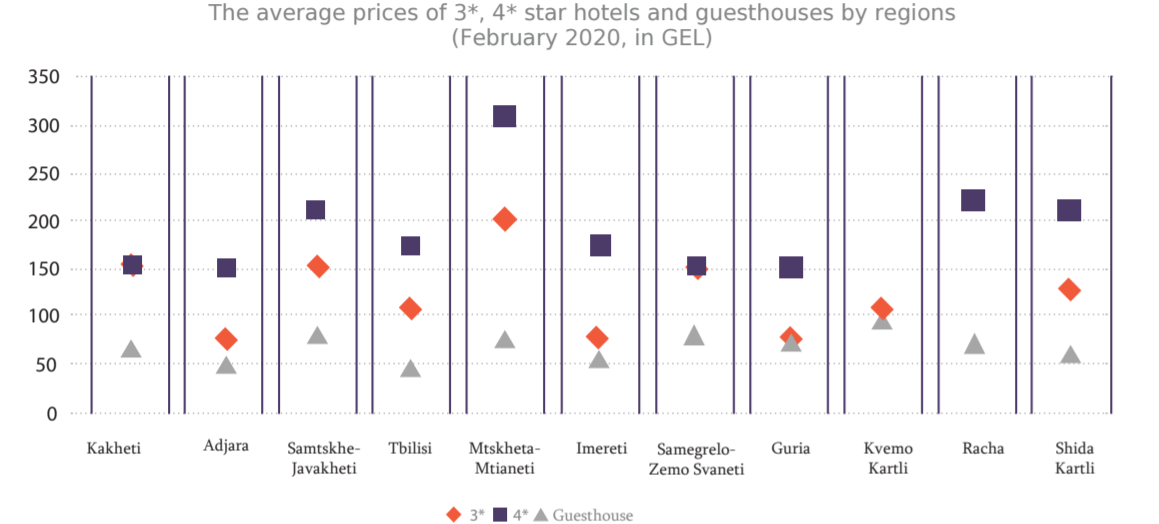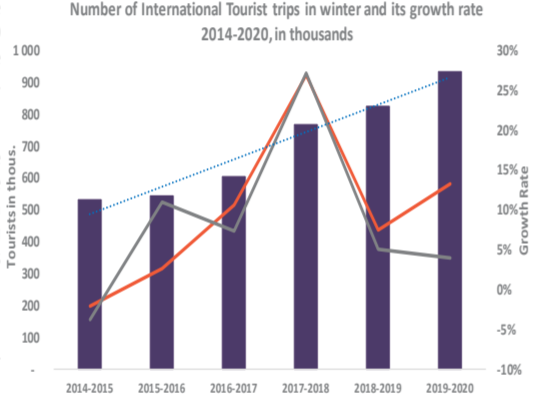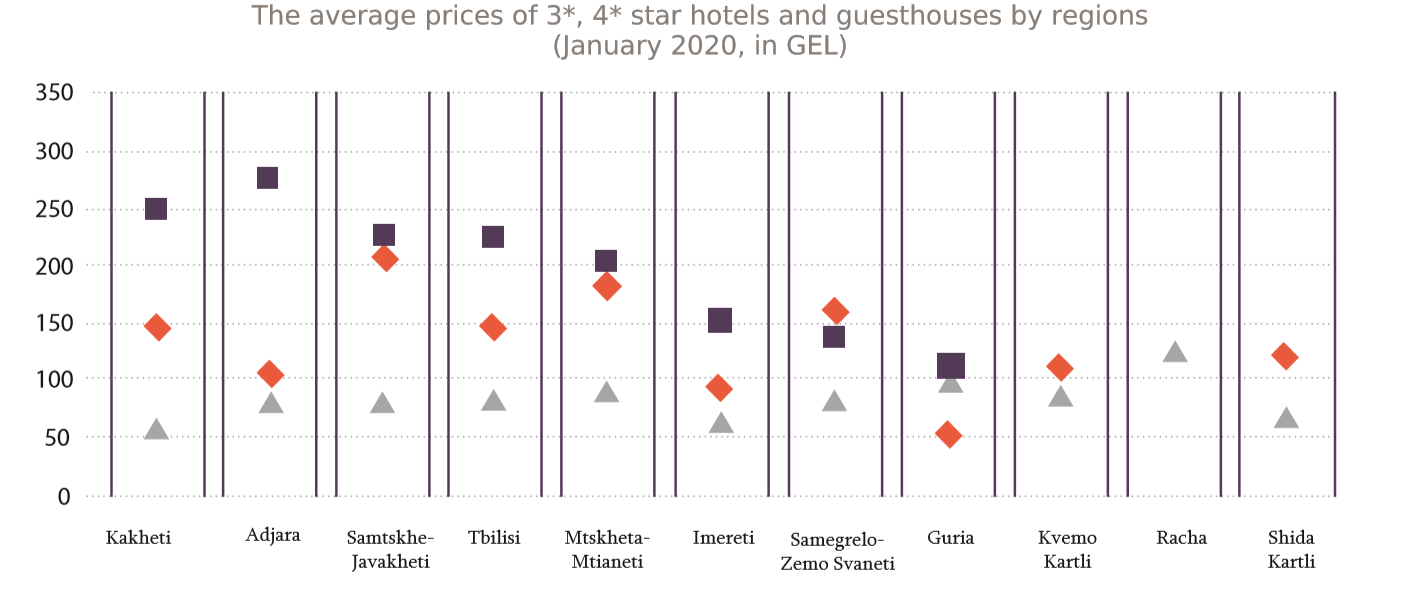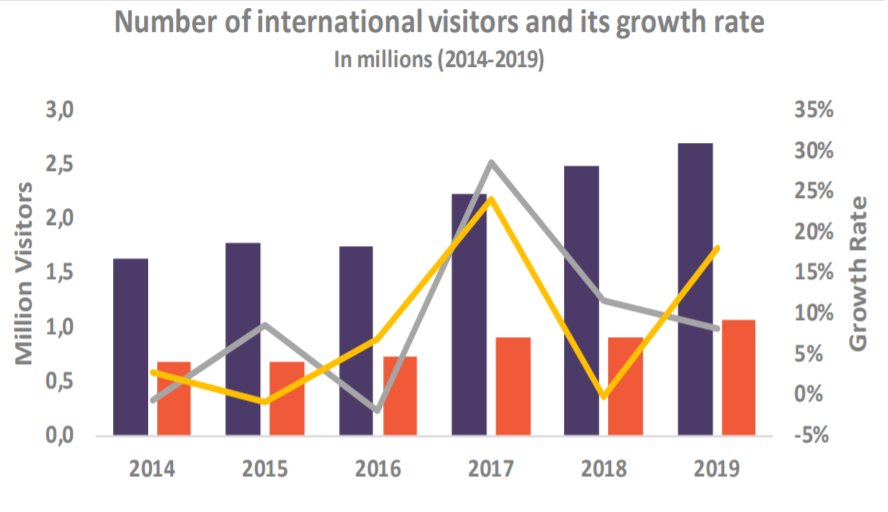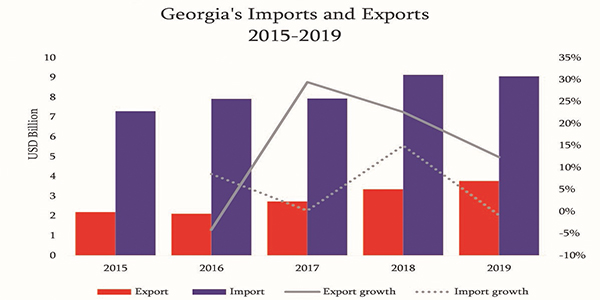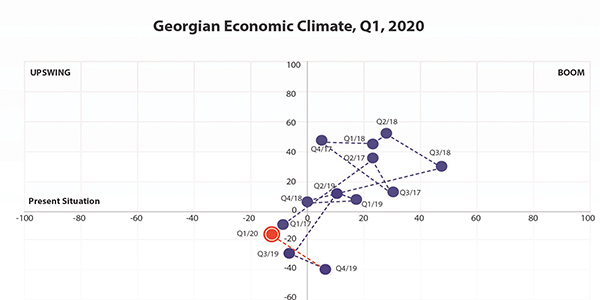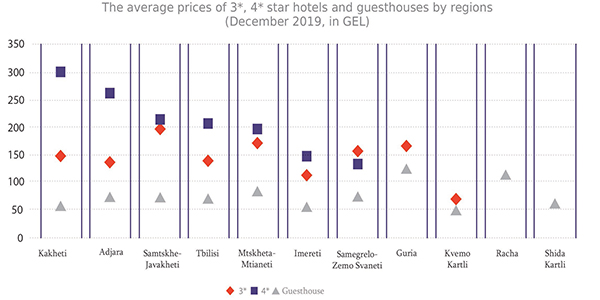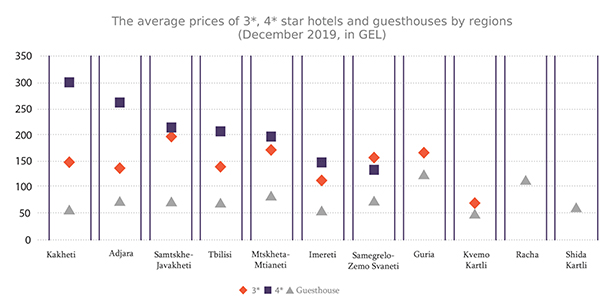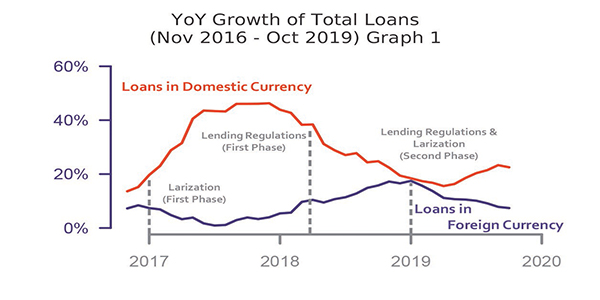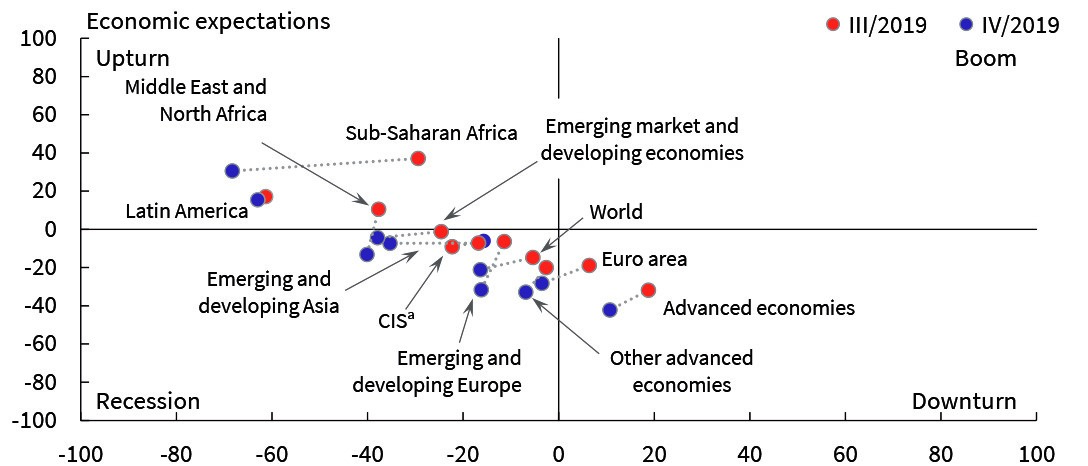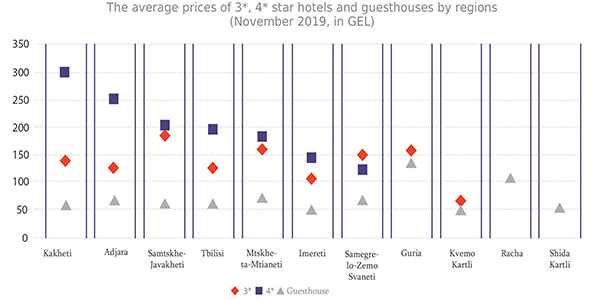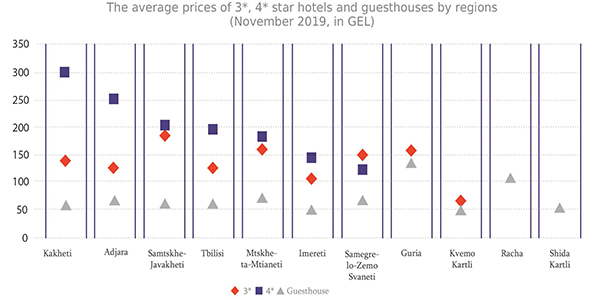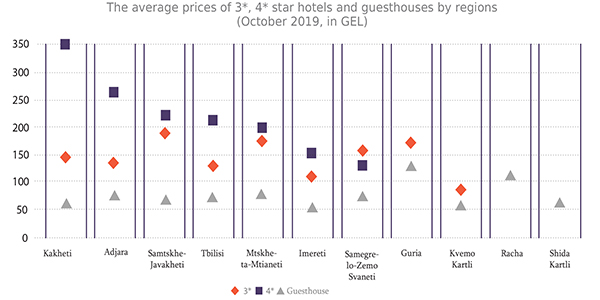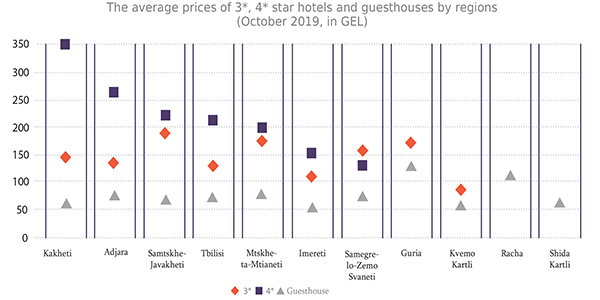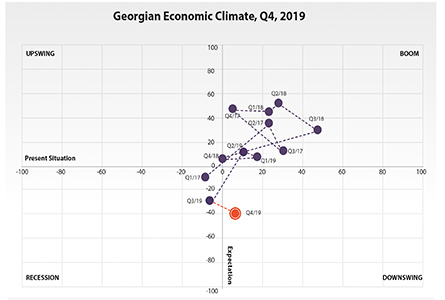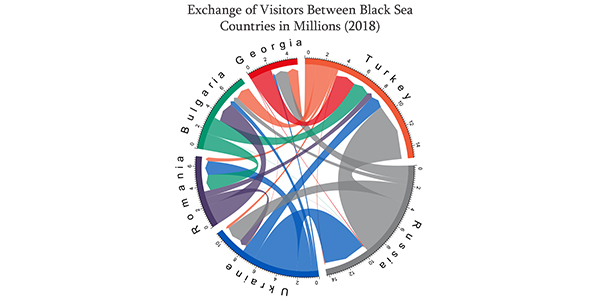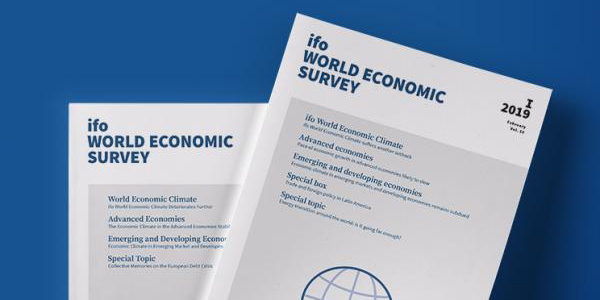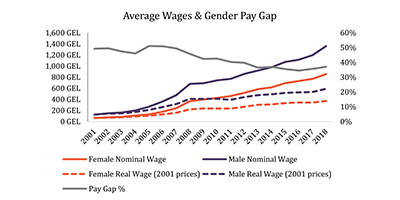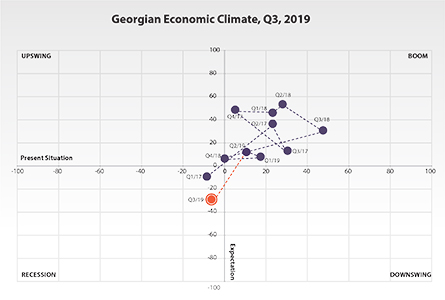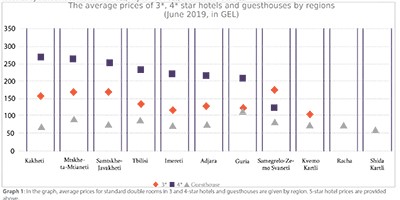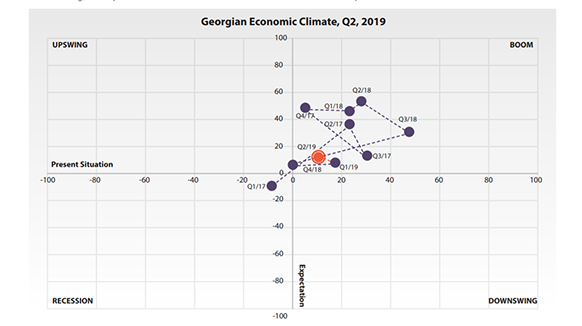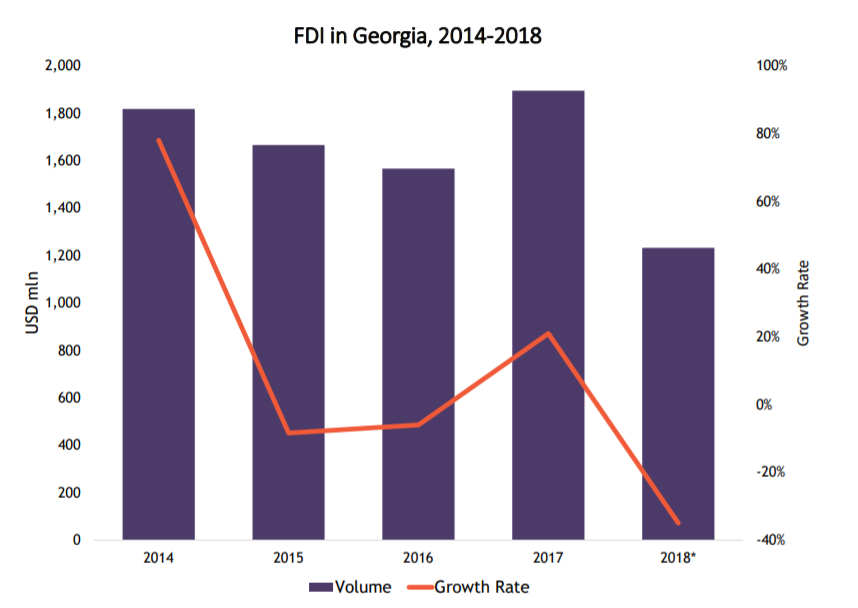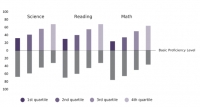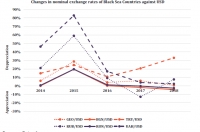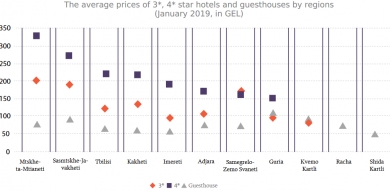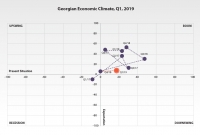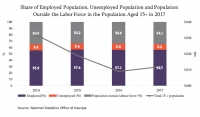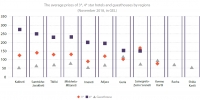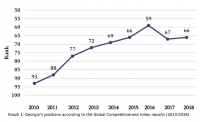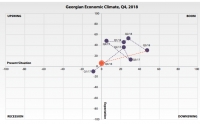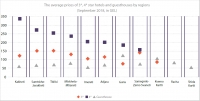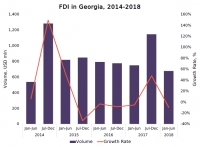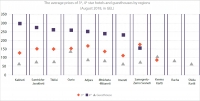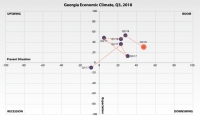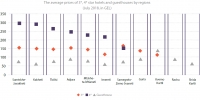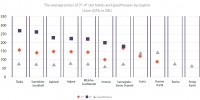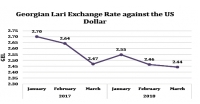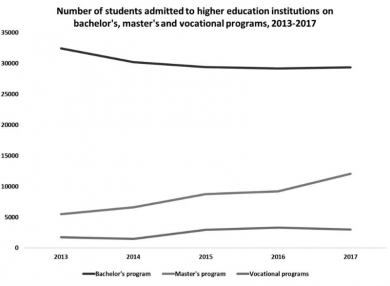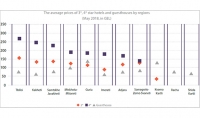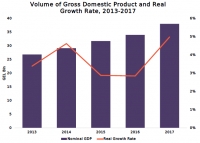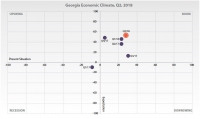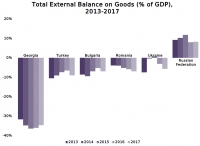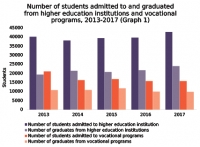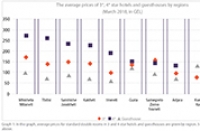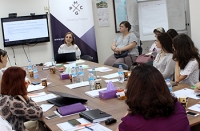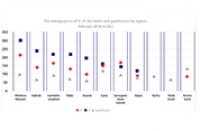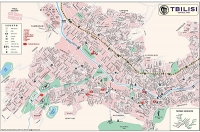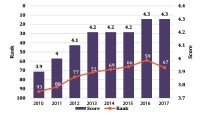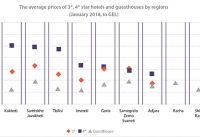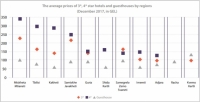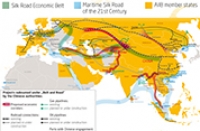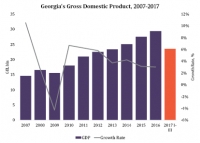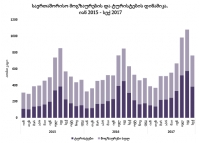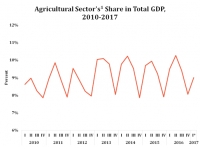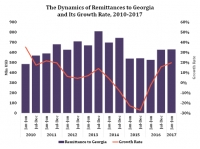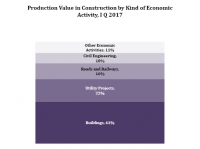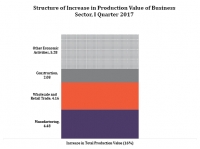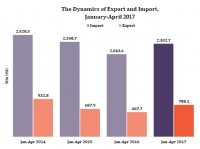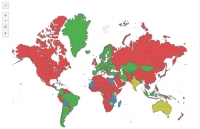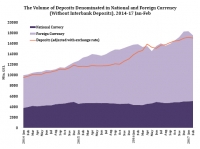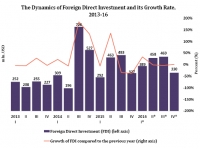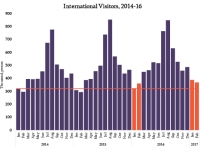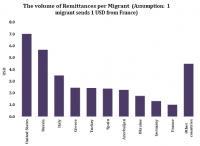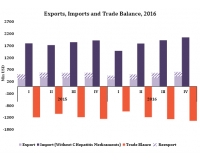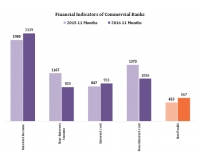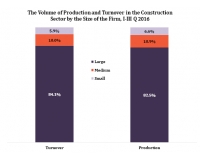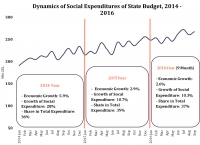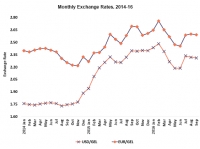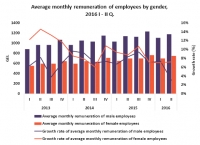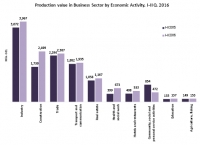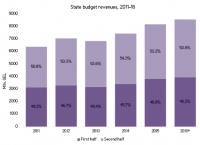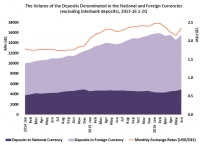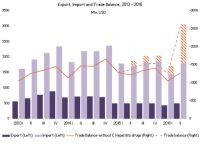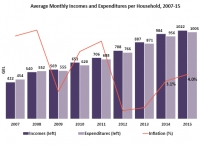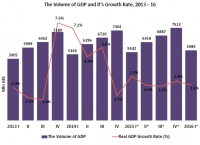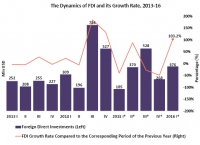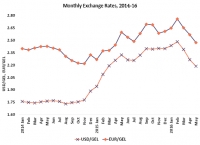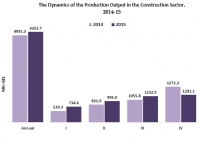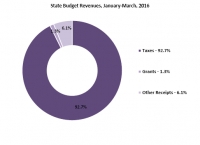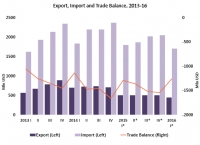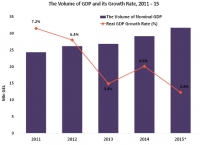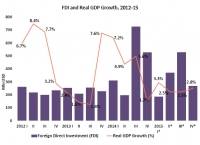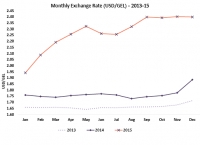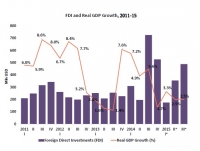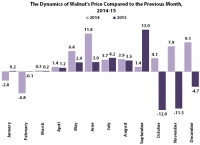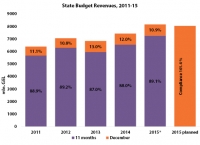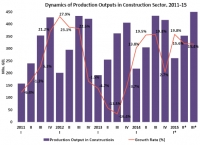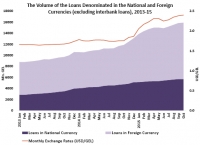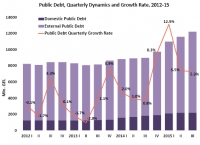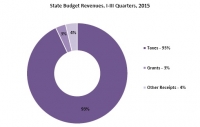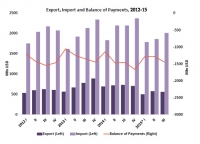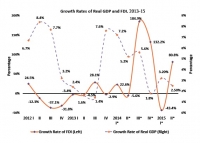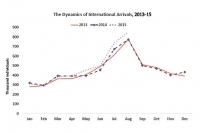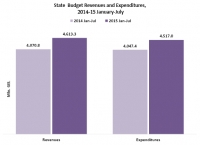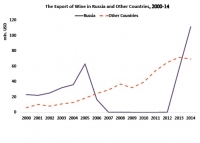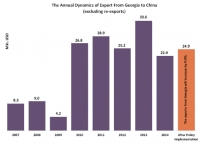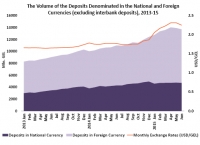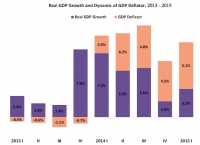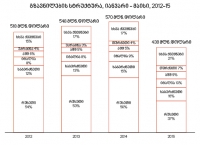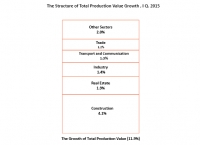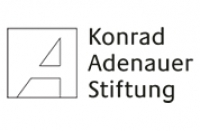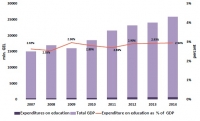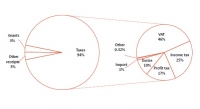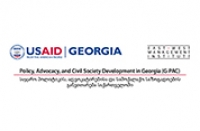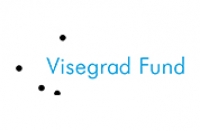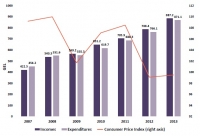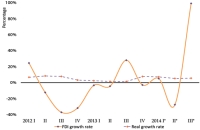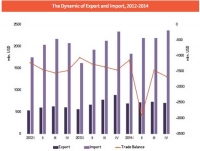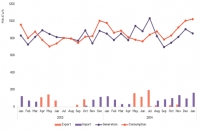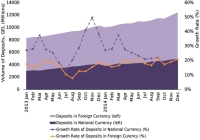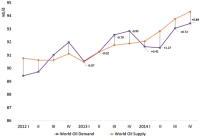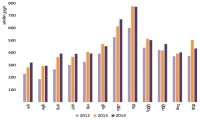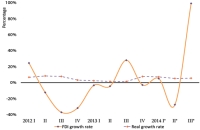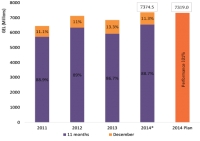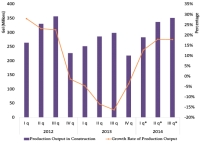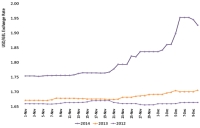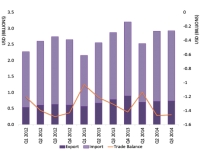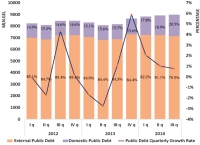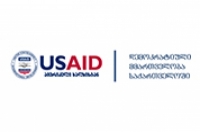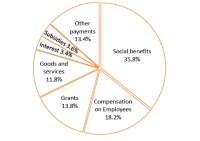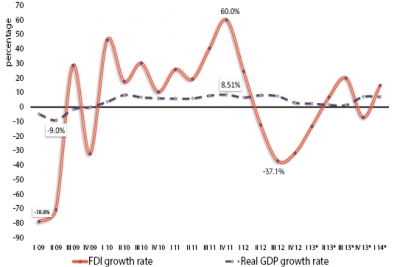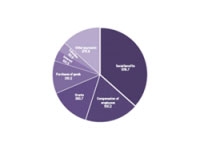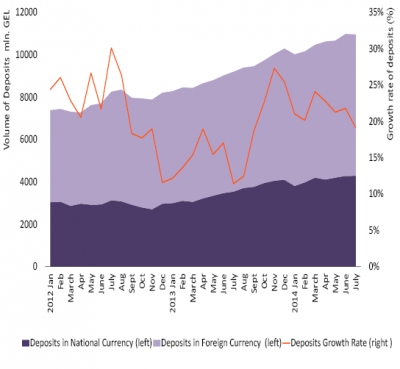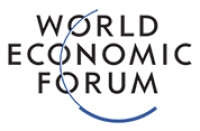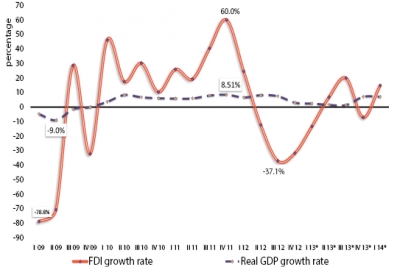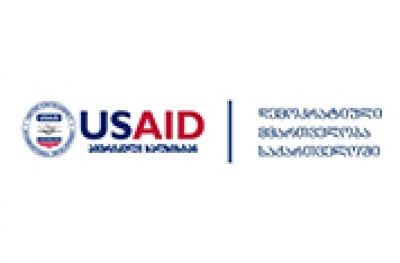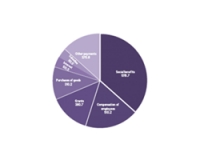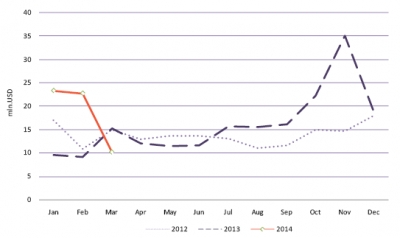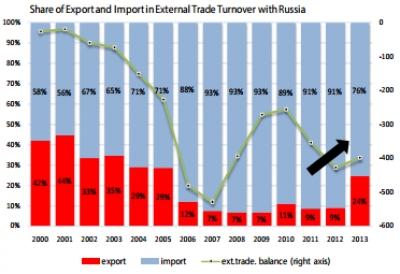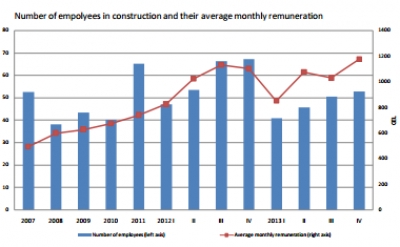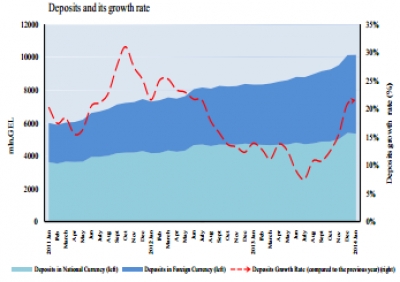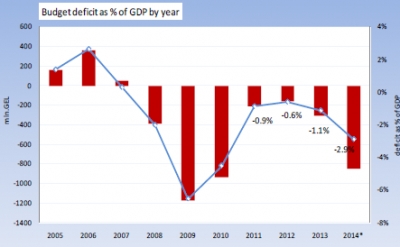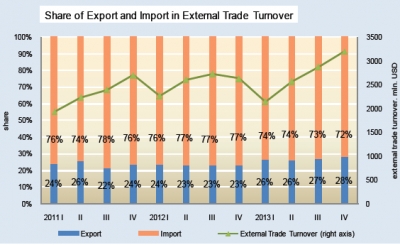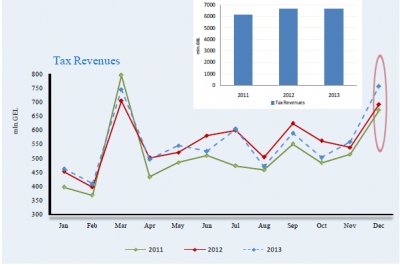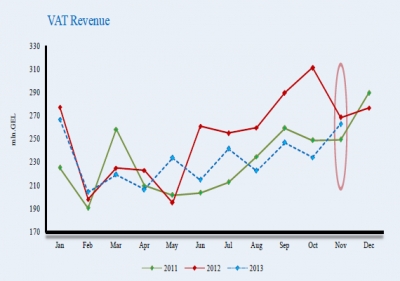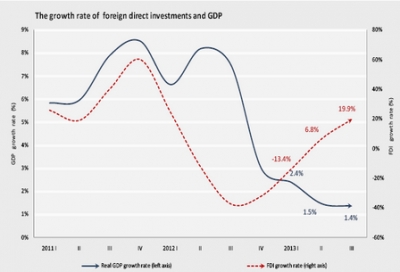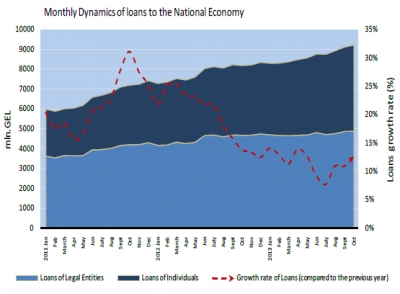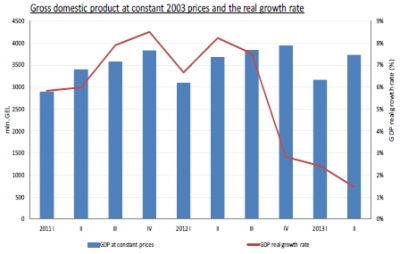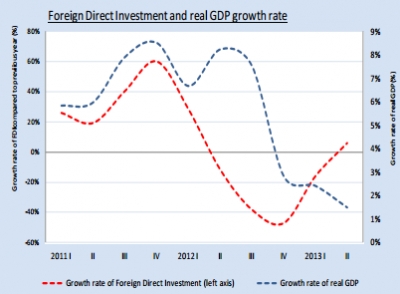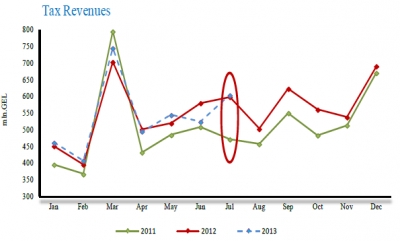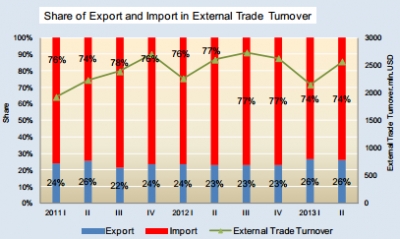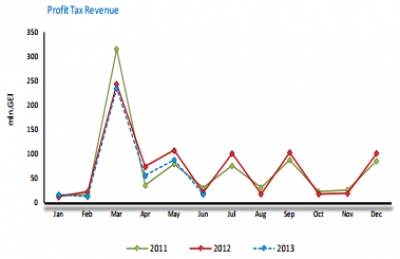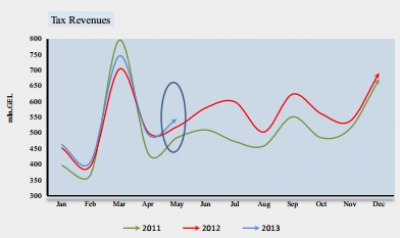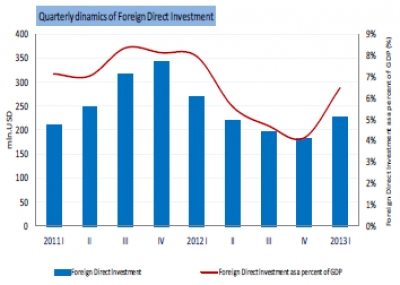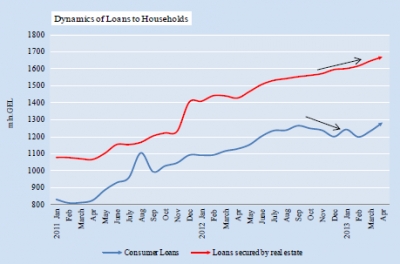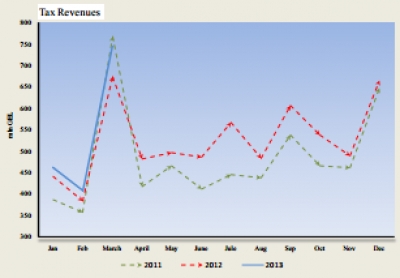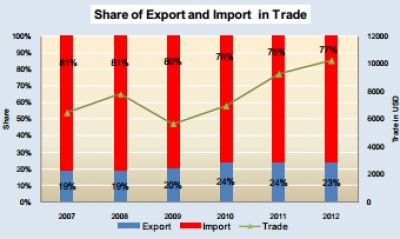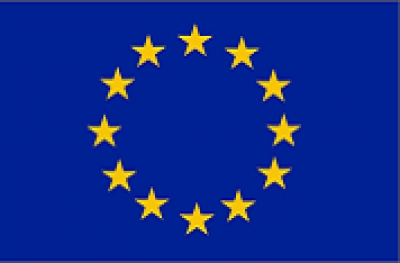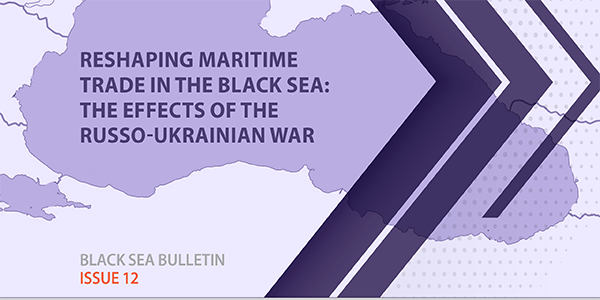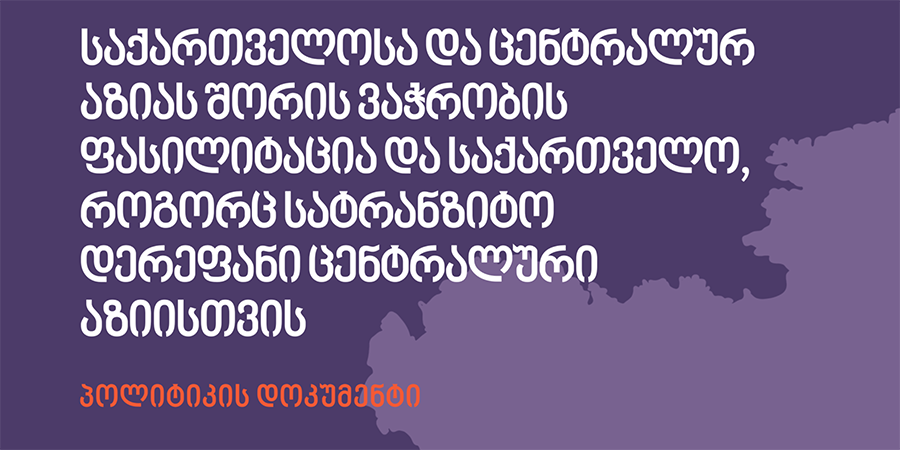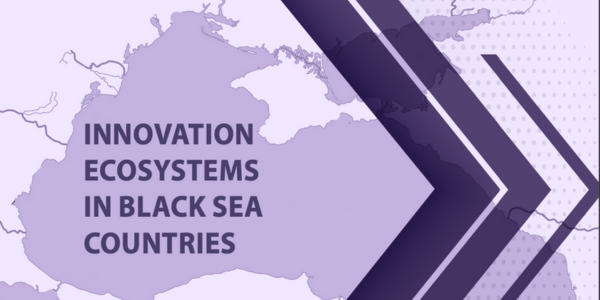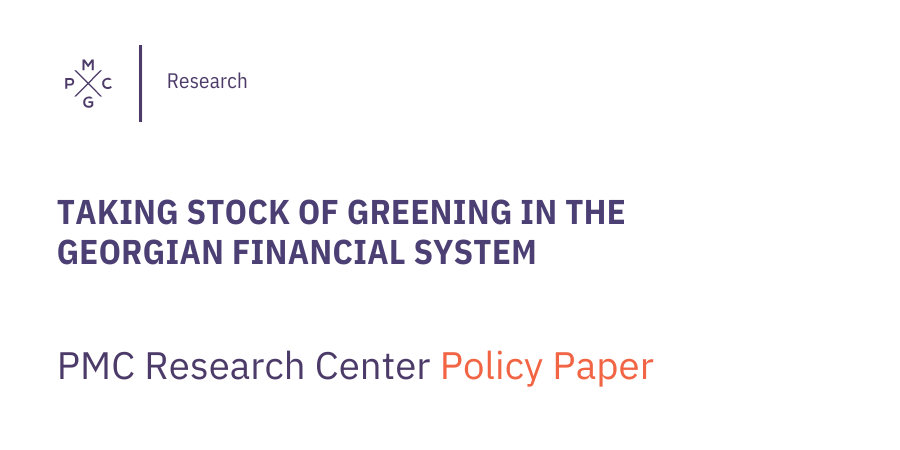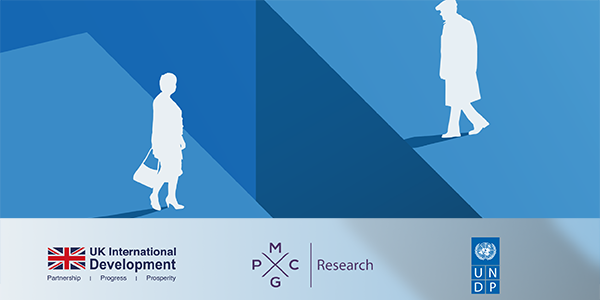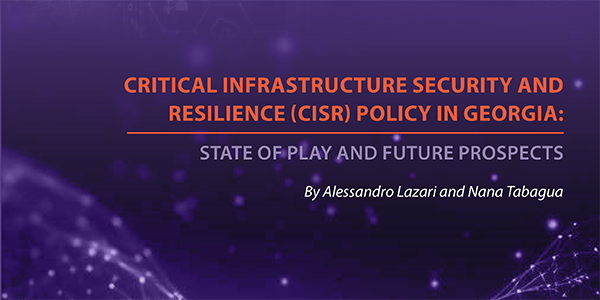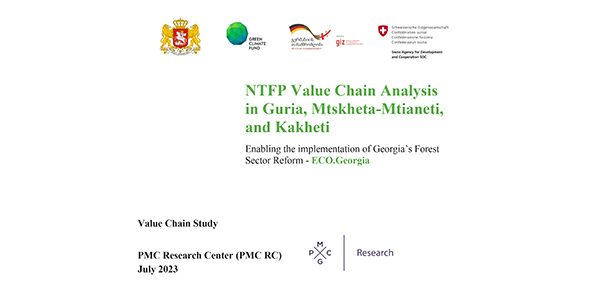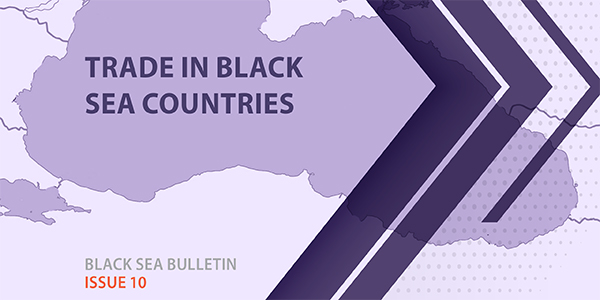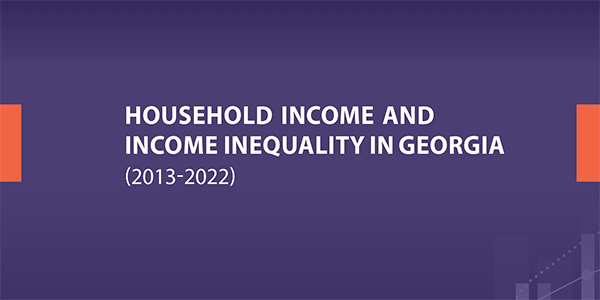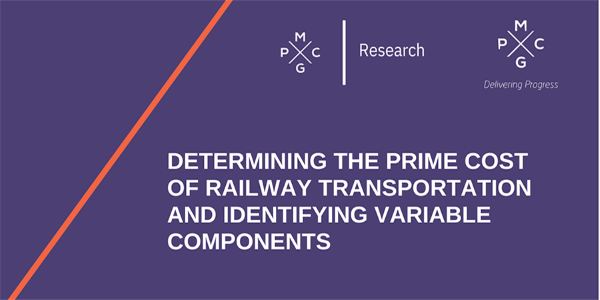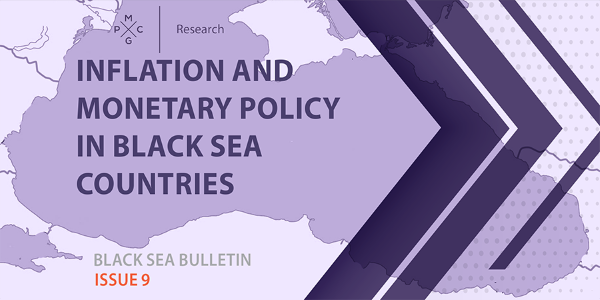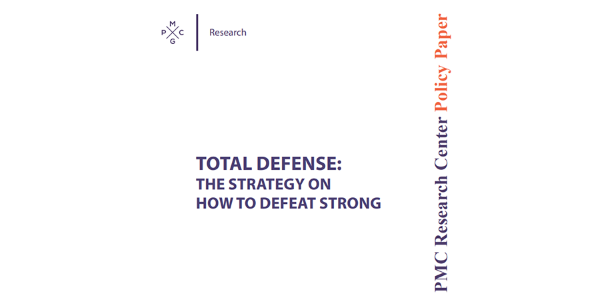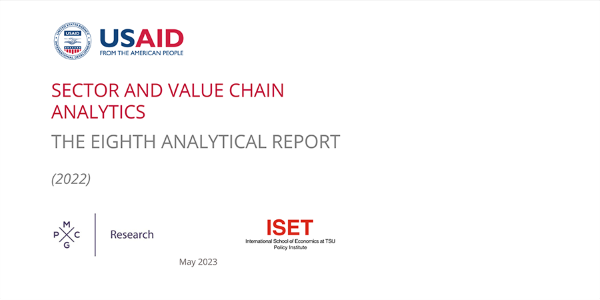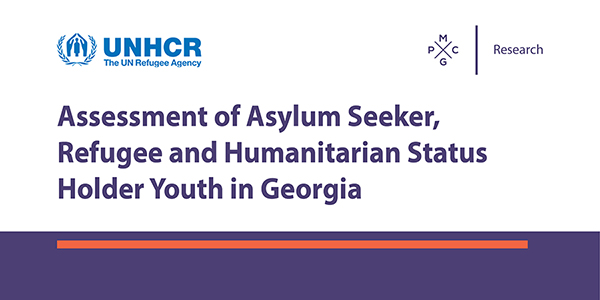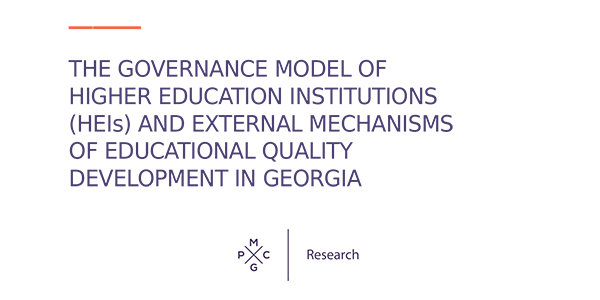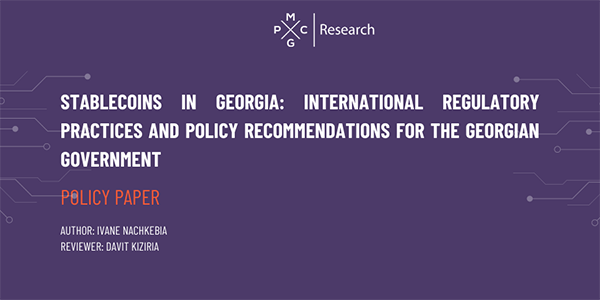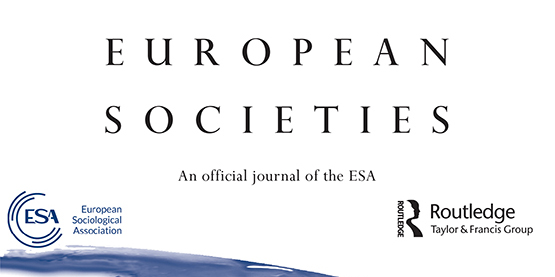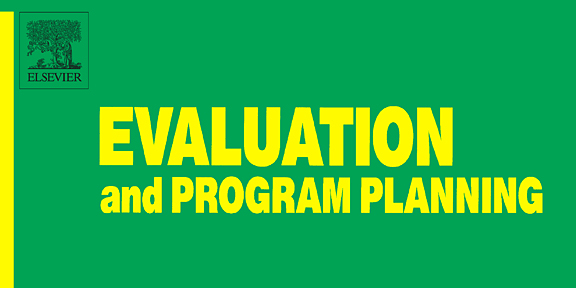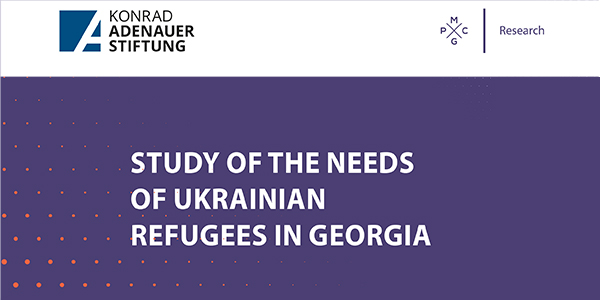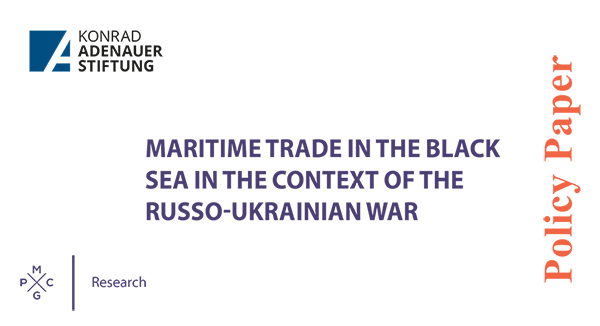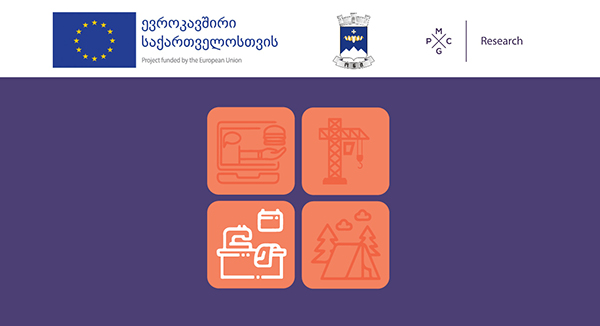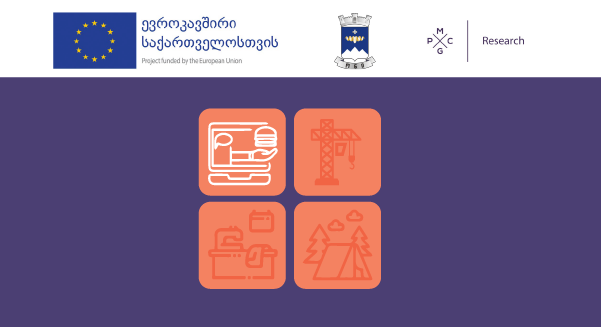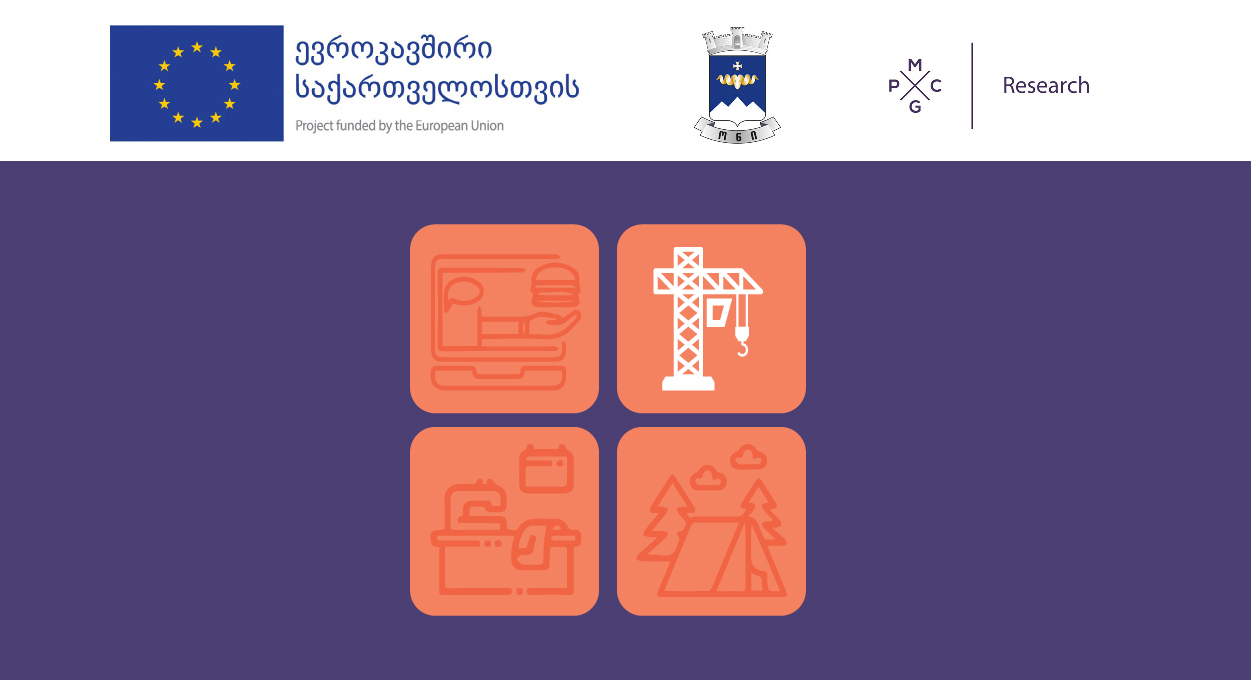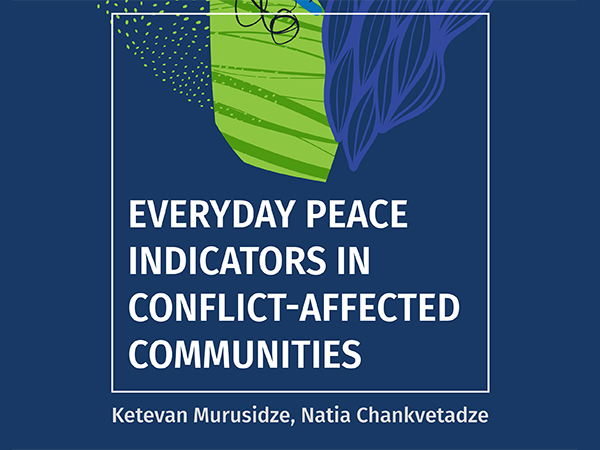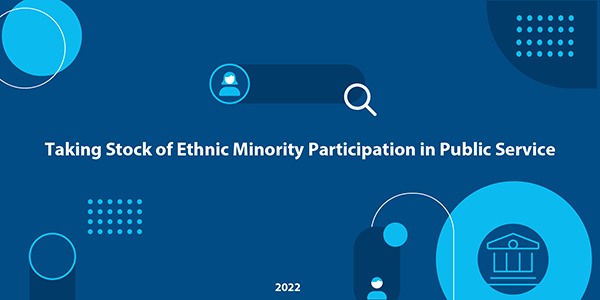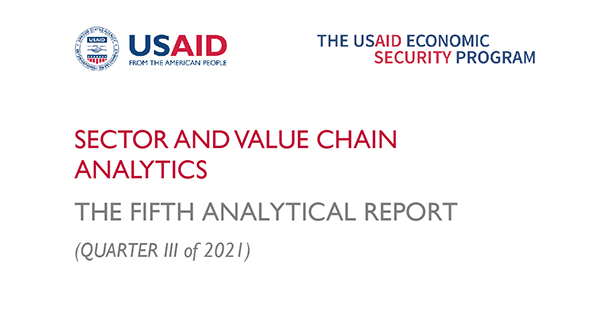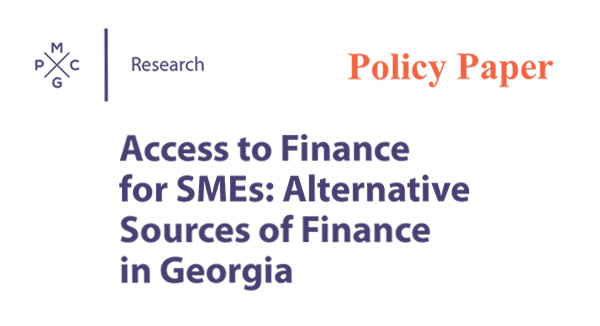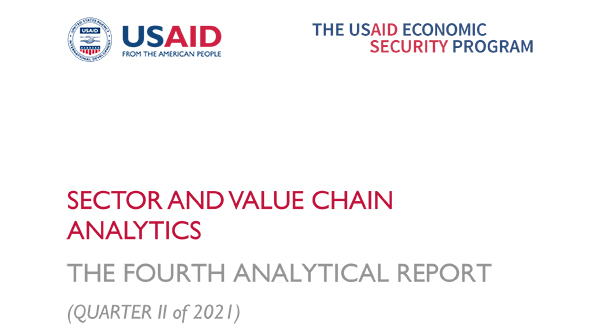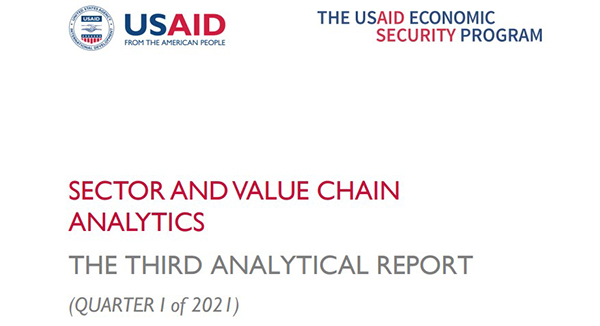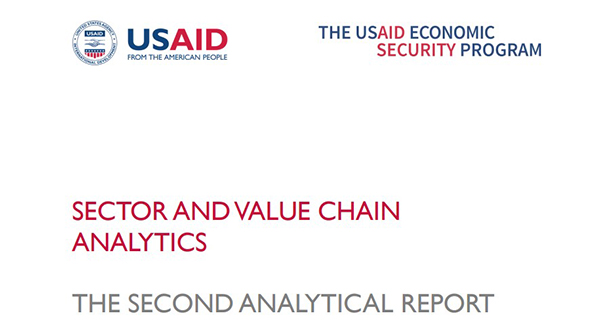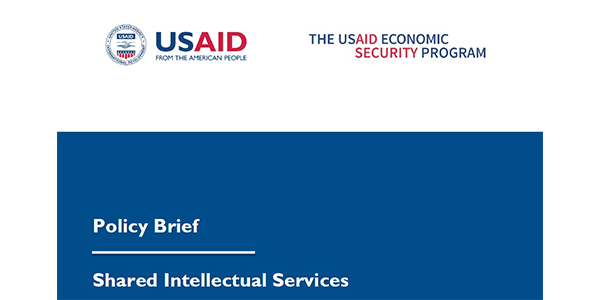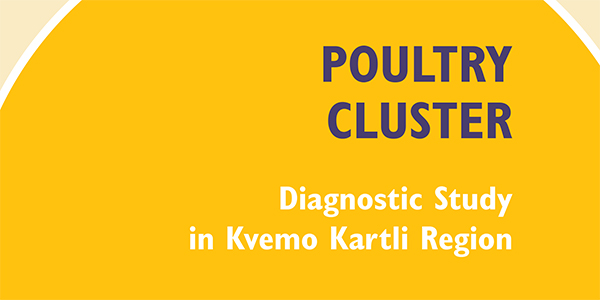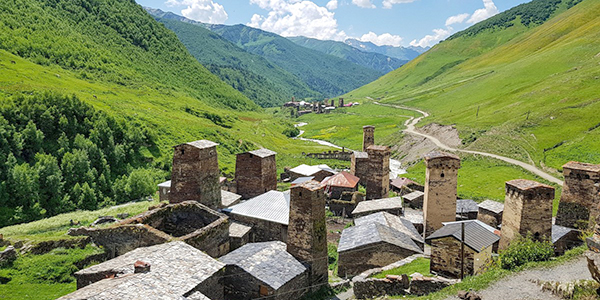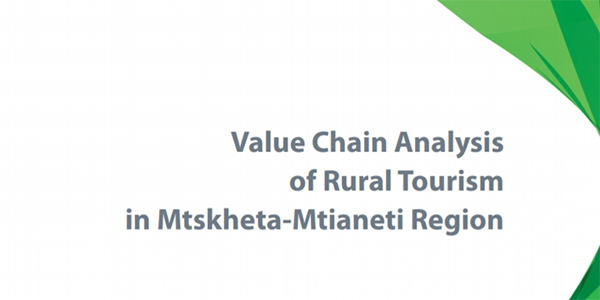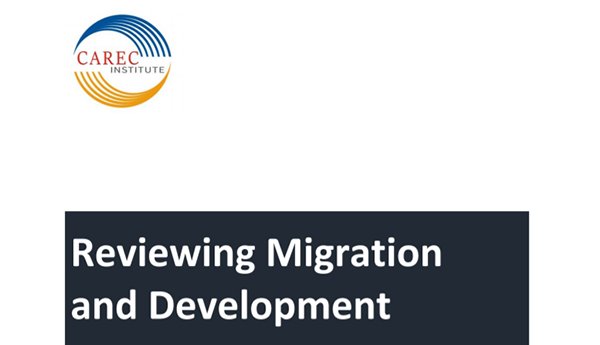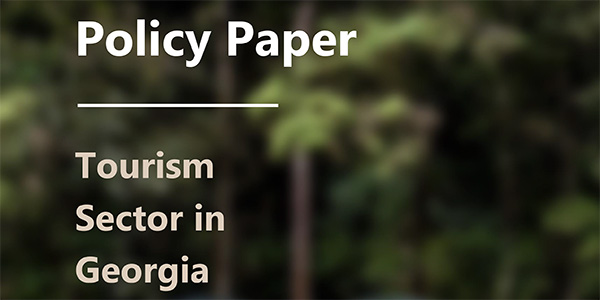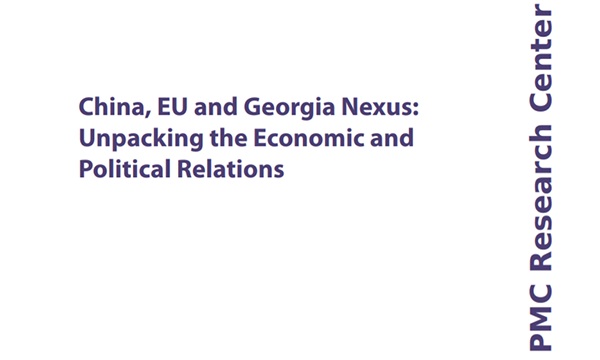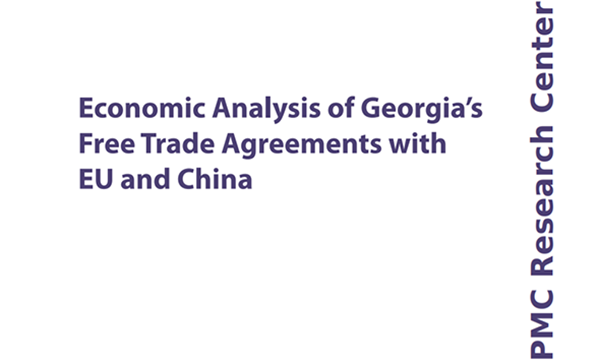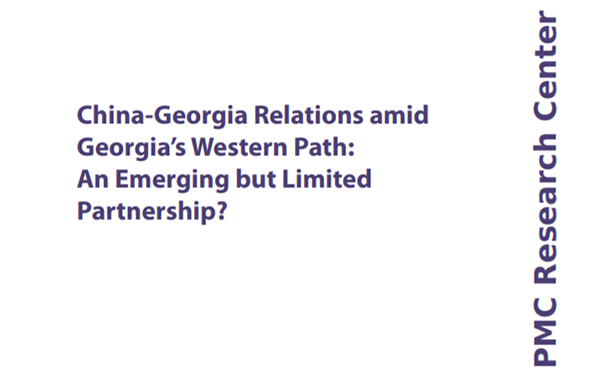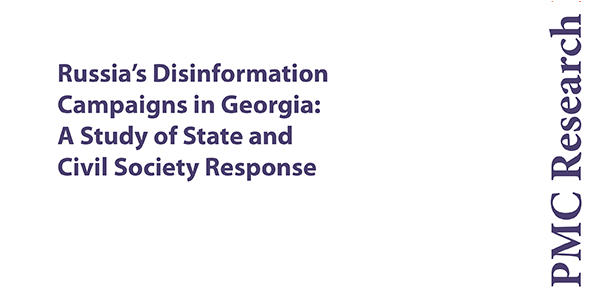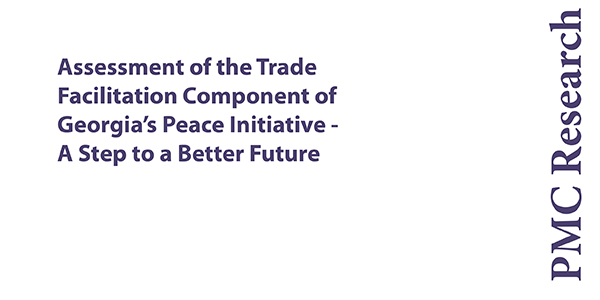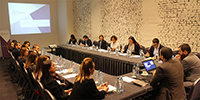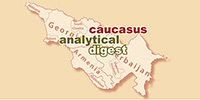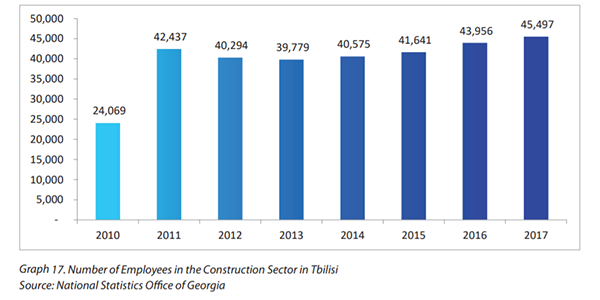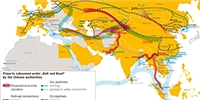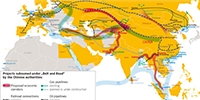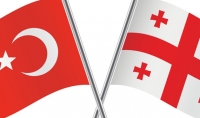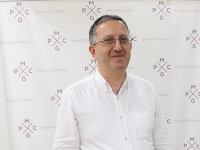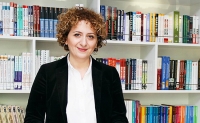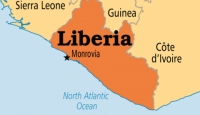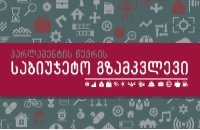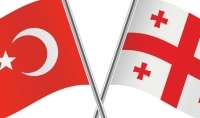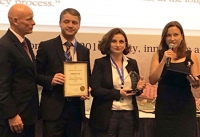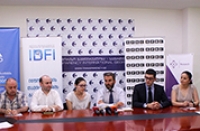BAG Index (Q4, 2025)
2026-02-13 00:00:00
The Business Association of Georgia (BAG) Index is a joint product of the Business Association of Georgia, PMC Research Center, and the ifo Institute for Economic Research. The BAG Index summarizes the BAG Business Climate, BAG Employment Barometer, and BAG Investment Environment, which are calculated according to the assessments of the top managers of BAG member businesses and companies in their corporate group. BAG and PMC Research Center publish the BAG Index on a quarterly basis from Q4 2019.
Hotel Price Index (January, 2026)
2026-02-03 00:00:00
In January 2026, hotel price index in Georgia decreased by 0.8% MoM, with the largest decrease observed in Tbilisi, Samtskhe-Javakheti and Racha compared to previous month.
In January 2026, hotel price index in Georgia increased by 8.9% YoY, with the largest increase in Samtskhe-Javakheti, Shida Kartli, and Adjara.
The average price of a room ranged from 107 GEL to 416 GEL in January 2026.
Employment Tracker (December, 2025)
2026-01-28 00:00:00
In December 2025, the number of people receiving a monthly salary increased both month-over-month (+2.8%) and year-over-year (+4.3%).
In December 2025, the total number of persons receiving a service fee increased compared to corresponding periods of 2024 (+11.3%) and 2023 (+10.0%).
From October to December 2025, the finance and statistics category contributed the most to the increase in vacancies on jobs.ge compared to the same period in the previous year.
Hotel Price Index (December, 2025)
2026-01-06 00:00:00
The hotel price index increased for 3-, 4-, 5-star hotels and decreased for guesthouses, both on a MoM and YoY basis.
In December 2025, hotel price index in Georgia increased by 4.3% MoM, with the largest increase in Mtskheta-Mtianeti, Samtskhe-Javakheti, Tbilisi.
In December 2025, hotel price index in Georgia increased by 3.9% YoY, with the largest increase in Samtskhe-Javakheti, Tbilisi, and Adjara.
Employment Tracker (November, 2025)
2025-12-30 00:00:00
In November 2025, the number of persons receiving a salary decreased by 0.8% month-over-month and by 1.0% year-over-year.
In November 2025, vacancies published on Jobs.ge decreased by 14.9% month-over-month, but increased by 5.0% year-over-year due to a low base effect.
From September to November 2025, the category that contributed the most to the year-over-year increase in vacancies was finance and statistics.
Hotel Price Index (November, 2025)
2025-12-02 00:00:00
In November 2025, hotel price index in Georgia decreased by 5.9% month-over-month (MoM), with the largest declines in Guria, Tbilisi, and Samtskhe-Javakheti.
In November 2025, hotel price index in Georgia decreased by 4.2% year-over-year (YoY), with the largest declines in Imereti, Kakheti, and Samegrelo-Zemo Svaneti.
The average price of a room ranged from 101 GEL to 390 GEL in November 2025.
Employment Tracker (October, 2025)
2025-11-28 00:00:00
In October 2025, the number of persons receiving a salary increased by 1.9% month-over-month and by 2.6% year-over-year.
In October 2025, vacancies published on Jobs.ge decreased month-over-month by 12.2% and by 2.1% year-over-year.
The number of vacancies in IT and programming category increased the most both year-over-year (+54.8%) and month-over-month (+5.0%) in October 2025.
In Q3 2025, compared to Q2 2025, labor market expanded, as seasonally adjusted job opening rate increased and unemployment rate decreased, while labor market efficiency remained unchanged.
Macro Overview: Issue 9
2025-11-19 00:00:00
From January to October 2025, Georgia’s economy grew by 7.6%. While YoY growth was robust, it was still below the previous year’s pace. Key growth contributors were the ICT and education sectors, accounting for 22.8% and 12.8% of growth, respectively. Services exports and other external inflows supported economic activity, with total FDI increasing by 11.0% YoY and tourism revenues rising by 5.1% YoY.
Hotel Price Index (October, 2025)
2025-11-06 00:00:00
In October 2025, hotel price index in Georgia decreased by 9.6% month-over-month (MoM), with the largest declines in Adjara,Guria, and Kakheti.
In October 2025, hotel price index in Georgia decreased by 2.3% year-over-year(YoY), with the largest declines in Mtskheta-Mtianeti, Samegrelo-ZemoSvaneti, and Kakheti.
The average price of a room ranged from 100 GEL to 442 GEL in October 2025.
Employment Tracker (September, 2025)
2025-10-30 00:00:00
In September 2025, the number of people receiving a monthly salary increasedby 4.9%month-over-month and by 2.6% year-over-year.
The total number of vacancies published on Jobs.ge increased month-over-month (+20.0%) and year-over-year (+4.7%).
Over the past three months, the number of vacancies on Jobs.gein logistics declined by 4.5%, while those in management fell by 4.4% compared to the same period in 2024.
BAG Index (Q3, 2025)
2025-10-27 00:00:00
The Business Association of Georgia (BAG) Index is a joint product of the Business Association of Georgia, PMC Research Center, and the ifo Institute for Economic Research. The BAG Index summarizes the BAG Business Climate, BAG Employment Barometer, and BAG Investment Environment, which are calculated according to the assessments of the top managers of BAG member businesses and companies in their corporate group. BAG and PMC Research Center publish the BAG Index on a quarterly basis from Q4 2019.
Hotel Price Index (September, 2025)
2025-10-06 00:00:00
• In September 2025, hotel price index in Georgia decreased by 9.2% month-over-month (MoM), with the largest declines in Guria, Adjara and Samtskhe-Javakheti.
• In September 2025, hotel price index in Georgia decreased by 1.8% year-over-year (YoY), with the largest declines in Adjara, Tbilisi and Kakheti.
• The average price of a room ranged from 111 GEL to 440 GEL in September 2025.
Employment Tracker (August, 2025)
2025-10-01 00:00:00
In August 2025, the number of persons receiving a monthly salary declined by 5.7% month-over-month but rose by 2.6% year-over-year.
In August 2025, the share of employees earning 2,400 GEL or more fell to 33.1%, while the share earning up to 600 GEL rose to 13.5%, month-over-month.
Vacancies published on Jobs.ge decreased month-over-month by 11.0% and increased by 3.0% year-over-year.
Hotel Price Index (August, 2025)
2025-08-25 00:00:00
• In August 2025, hotel price index in Georgia increased by 3.5% month-over-month (MoM), with the highest growth recorded in Guria, Adjara and Racha. • In August 2025, hotel price index in Georgia increased by 1.1% year-over-year (YoY), with the highest growth recorded in Samtskhe-Javakheti, Shida Kartli and Racha. • Both MoM and YoY growth was mainly driven by rising guesthouse prices in August 2025• The average price of a room ranged from 119 GEL to 553 GEL in August 2025.
Employment Tracker (July, 2025)
2025-08-01 00:00:00
In July 2025, the number of persons receiving a salary of 2,400 GEL or more exceeded the number of persons receiving a salary between 1,200 and 2,399 GEL.
In July 2025, the highest growth in the number of vacancies on jobs.ge was recorded in IT and programming category, both month-over-month (+11.1%) and year-over-year (+26.8%).
In Q2 of 2025, compared to Q1 2025, the efficiency of the labor market remained unchanged, as neither the job openings rate nor the unemployment rate showed a statistically significant change.
Hotel Price Index (July, 2025)
2025-08-01 00:00:00
• In July 2025, hotel prices in Georgia increased month-over-month (MoM), with the highest growth recorded in Guria and Adjara, followed by Tbilisi.
• In July 2025, hotel prices remained unchanged year-over-year (YoY), as decreases in 3-, 4-, and 5-star hotel prices were offset by increases in guesthouse prices.
• The average price of a room ranged from 116 GEL to 517 GEL in July 2025.
Employment Tracker (June, 2025)
2025-07-30 00:00:00
In June 2025, the number of persons receiving a monthly salary increased by 0.5% month-over-month (MoM) and by 3.4% year-over-year (YoY).
In June 2025, the share of persons receiving a monthly salary of 2,400 GEL or more amounted to 32.8%, up 0.9 percentage points MoM and 6.6 percentage points YoY.
In June 2025, the number of jobs published on Jobs.ge increased by 6.4% MoM but decreased by 1.0% YoY.
Employment Tracker (May, 2025)
2025-07-02 00:00:00
In May 2025, the number of persons receiving a monthly salary increased by 1.5% YoY. However, the YoY growth rate slowed by 2.8 percentage points compared to May 2024.
In May 2025, the share of persons receiving a monthly salary of 2,400 GEL or more increased by 4.9 percentage points YoY, while the share of those receiving up to 600 GEL declined by 2.3 percentage points.
In May 2025, the total number of vacancies published on jobs.ge declined by 5.1% YoY, but increased by 10.8% MoM.
BAG Index (Q2, 2025)
2025-06-26 00:00:00
The Business Association of Georgia (BAG) Index is a joint product of the Business Association of Georgia, PMC Research Center, and the ifo Institute for Economic Research. The BAG Index summarizes the BAG Business Climate, BAG Employment Barometer, and BAG Investment Environment, which are calculated according to the assessments of the top managers of BAG member businesses and companies in their corporate group. BAG and PMC Research Center publish the BAG Index on a quarterly basis from Q4 2019.
Issue 151: Labour Market Overview
2025-06-19 00:00:00
The latest issue of Economic Outlook and Indicators in Georgia highlights recent improvements in the labor market while also addressing emerging challenges. In this bulletin, we explore key labor market developments and provide a comprehensive overview, including:
• Key labor market indicators
• Beveridge curve analysis
• Employment by economic sectors and foreign nationals
• Salaries of paid employees
• Vacancies posted on Jobs.ge
Employment Tracker (April, 2025)
2025-05-27 00:00:00
Our latest monthly publication, Employment Tracker, offers insights into recent developments in Georgia’s labor market.
In April 2025, the number of persons receiving a monthly salary saw an increase of 2.2% compared to the same period of 2024. However, the YoY growth rate slowed by 2.6 percentage points compared to April 2024.
In April 2025, the total number of vacancies posted on jobs.ge decreased by 16.6% YoY.
Over the past 3 months (from February 2025 to April 2025), the administration and management category saw the largest YoY decrease (–21.8%), contributing the most to the overall decline.
Issue 8: Macro Overview
2025-05-21 00:00:00
Georgia’s economy demonstrated robust average YoY growth of 9.3% in Q1 of 2025 (rapid estimate), sustaining strong momentum after 9.5% growth in 2024.
Issue 8 of the Macro Overview examines key aspects of Georgia’s economy and beyond, including:
• Economic Growth;
• Economic and Business Climate;
• Key Macroeconomic Indicators;
• Labor Market;
• External Sector;
• Global Economic Trends.
Beverage Manufacturing in Georgia
2025-05-01 00:00:00
The beverage manufacturing sector, encompassing the production of fruit juices, mineral water, soft drinks, beer, and spirits, has high export potential and a strong presence of small and medium-sized enterprises (SMEs).
From 2017 to 2023, Georgia’s total beverage exports grew at a CAGR of 10%, reaching USD 463 million in 2023. Despite overall export growth, the share of exports to the EU declined significantly during this time, particularly for SMEs.
Key challenges include limited access to quality raw materials, outdated machinery, a shortage of skilled labor, and logistical constraints, as well as difficulties in meeting EU standards and DCFTA regulations and limited access to financing for export operations.
Employment Tracker (March, 2025)
2025-04-24 00:00:00
Our latest monthly publication, Employment Tracker, offers insights into recent developments in Georgia’s labor market.
In March 2025, the number of persons receiving a monthly salary saw a modest increase of 0.3% compared to the same period in 2024.
In March 2025, the total number of vacancies posted on jobs.ge decreased by 18% YoY.
The administration and management category contributed the most to the decline in vacancies from January to March 2025.
IT Services in Georgia
2025-04-10 00:00:00
Georgia’s IT services sector has experienced rapid expansion, with tax revenues quadrupling between 2020 and 2023, employment increasing 5.4-fold, and turnover rising 13-fold.
Government policies and incentives, such as the International Company Status and FDI Grant Program, have played a key role in attracting foreign investment and driving the sector’s development.
Future growth will rely on strategic initiatives such as the successful implementation of GITA 2.0, enhanced IT procurement policies, and stronger collaboration with the private sector, while addressing key challenges like export capabilities and talent retention.
Reshaping Maritime Trade in the Black Sea: The Effects of the Russo-Ukrainian War
2025-03-31 00:00:00
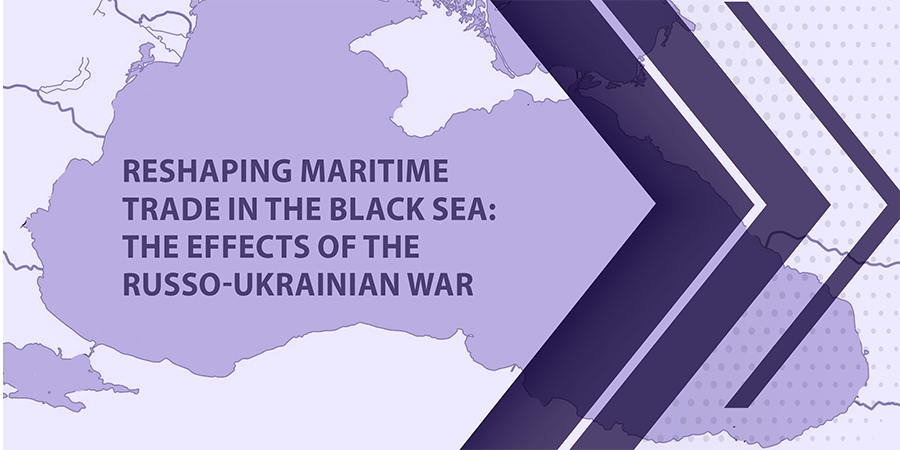
Shortly after Russia’s full-scale invasion of Ukraine in February 2022, maritime trade flows in the Black Sea were significantly reshaped. As the war continued, developments affecting the trade in the Black Sea changed, underscoring the importance of thoroughly analyzing how the region has adapted to such disruptions. This publication builds upon the previous edition, which was released shortly after the outbreak of the war. Now, three years later, our focus shifts to examining how trade dynamics, particularly maritime trade in the Black Sea region, have evolved during this period.
Key insights include:
Upon the outbreak of the Russo-Ukrainian War, port calls in Ukraine and Russia dropped sharply, while other Black Sea countries briefly benefited from redirected trade flows. By late 2023, port calls in Ukraine had gradually recovered, supported by new shipping routes through Romania and Bulgaria. However, serious threats to commercial shipping remained.
Ukraine’s maritime exports and imports fell sharply in 2022, with a slow recovery in imports in 2023. In Russia, maritime imports declined, while exports initially increased in 2022, possibly due to sanctions being ineffective. However, as the sanctions intensified, exports also fell significantly the following year.
Employment Tracker (February, 2025)
2025-03-26 00:00:00
Our latest monthly publication, Employment Tracker, offers insights into recent developments in Georgia’s labor market.
In February 2025, the annual growth in the number of salaried employees recorded its lowest rate since 2023.
In February 2025, the total number of vacancies posted on jobs.ge decreased by 20% YoY.
Between December 2024 and February 2025, the Sales and Procurement category saw the highest number of job postings.
Quarterly Tourism Update (Tourism Indicators in 2024)
2025-03-18 00:00:00
In 2024, a total of 6.5 million international visits to Georgia were recorded, a 4.6% increase YoY, driven by a 9.0% rise in overnight trips, while same-day trips declined by 9.2%.
In 2024, visits from the EU and the UK totaled 438,414, a 3.8% increase YoY. However, the number of visits from the EU and the UK declined every quarter from Q1 of 2024 onwards.
In 2024, there were 2.2 million outbound visits made by Georgian residents, a marginal 0.1% increase YoY. Notably, outbound visits declined YoY in both Q3 and Q4 of 2024.
Foreign Assistance to Ukraine (2022-2024)
2025-03-10 00:00:00
From the beginning of the war in February 2022 up until 31 December 2024, the international community has committed a total of €399.8 billion to Ukraine, with the majority (52%) designated for financial assistance, 42% for military assistance, and 6% for humanitarian assistance.
Of the committed assistance, 67% (€267.2 billion) has already been allocated.
The US leads the way in terms of total commitments, with 96% of its pledged assistance already allocated.
Georgian Economic Climate (Q1, 2025)
2025-03-06 00:00:00
In Q1 2025, surveyed Georgian economists negatively assess Georgia’s present economic situation, and their expectations for the next six months are also negative.
They believe that the political crisis had the most significant impact on the Georgian economy in Q1 2025.
The reduction in foreign assistance, including that from the United States Agency for International Development (USAID), was assessed negatively by 97% of the surveyed economists in terms of its effects on Georgia’s economic and political climate.
Employment Tracker (January, 2025)
2025-02-25 00:00:00
Our latest monthly publication, Employment Tracker, offers insights into recent developments in Georgia’s labor market.
In January 2025, the number of persons receiving a monthly salary increased by 4% YoY.
In January 2025, the total number of vacancies published on jobs.ge decreased by 9% YoY.
In Q4 of 2024, labor market efficiency slightly increased as the seasonally adjusted unemployment rate declined slightly, while the job openings rate dropped significantly.
Issue 150: Vocational Education in Georgia
2025-02-10 00:00:00
The latest issue of Economic Outlook and Indicators in Georgia, analyzes Vocational Education in Georgia (2019 – 2023):
State expenditure on VET tripled between 2017 and 2024, with its share in total education spending rising from 3.1% to 4%.
From 2017 to 2023, the number of registered students increased; however, the number of admitted students has not risen correspondingly, leading to a widening gap between registered and admitted students.
The transition from secondary school to VET remains challenging, with 10.6 times more students opting for higher education, albeit the number of registered VET students has grown.
Employment Tracker (December, 2024)
2025-01-22 00:00:00
Our latest monthly publication, Employment Tracker, offers insights into recent developments in Georgia’s labor market.
In December 2024, the number of people receiving a monthly salary recorded the lowest YoY growth during 2023-2024.
In December 2024, the total number of persons receiving a service fee decreased both YoY and MoM.
In December 2024, the total number of vacancies published on jobs.ge decreased by 20% MoM and 5% YoY.
Please refer to the full publication for more insights.
Georgian Economic Climate (Q4, 2024)
2025-01-16 00:00:00
Our latest Georgian Economic Climate publication offers assessments of various economic developments by Georgian economists.
Assessment of Georgia’s current economic situation was negative, while predictions for Georgia’s economic situation by the end of the next six months were extremely negative. Overall, their outlook was significantly more pessimistic compared to the previous reporting period. Political turmoil and exchange rate fluctuations had the greatest impact on the Georgian economy in Q4 2024. The suspension of EU membership talks was assessed negatively by all surveyed economists in terms of its effects on Georgia’s economy.
Georgia and Kazakhstan
2025-01-14 00:00:00
Georgia and Kazakhstan share strong ties rooted in the historic Silk Road. Today, the countries are connected by the Trans-Caspian route and the Middle Corridor, interest in which has grown in recent years. Since 2022, Georgia has strengthened its relations with Kazakhstan, with new logistics agreements and crucial advances in transport and infrastructure, making Kazakhstan a key trade partner.
The second issue of the Profile of Bilateral Relations offers an in-depth exploration of key topics of the trade relationship between Kazakhstan and Georgia:
Historical Background
Bilateral Trade Between Georgia and Kazakhstan
Identifying Profitable Products for Trade
Transportation Trends
Common Trade Routes Between Georgia and Central Asia
The Middle Corridor
Future Outlook
The full policy paper, “Facilitating Trade with Central Asia: Georgia’s Role as a Transit Corridor“, is available in Georgian.
Hotel Price Index (December, 2024)
2024-12-30 00:00:00
In Georgia, the average cost of a room in a 3-star hotel was 154 GEL per night in December 2024, while the average cost of a room in a 4-star hotel in Georgia was 238 GEL per night and the average cost of a room in a guesthouse was 110 GEL per night.
The average cost of a room in a 5-star hotel in Georgia in December 2024 was 444 GEL per night. In Mtskheta–Mtianeti, the average price was 928 GEL, followed by Tbilisi – 580 GEL, Kakheti – 568 GEL, and Samtskhe-Javakheti – 371 GEL.
Employment Tracker (November, 2024)
2024-12-24 00:00:00
Our latest monthly publication, Employment Tracker, offers insights into recent developments in Georgia’s labor market.
November marked the largest YoY decrease in 2024 in the total number of vacancies published on jobs.ge (-9%).
In November 2024, the total number of people receiving a monthly salary reached 1 million for the first time.
In Q3 of 2024, the labor market efficiency decreased as both the seasonally adjusted unemployment rate and the job openings rate increased.
Please refer to the full publication for more insights.
Quarterly Tourism Update (Q3, 2024)
2024-12-18 00:00:00
In Q3 of 2024, Georgia recorded 2.4 million international visits, marking a slight 2% rise YoY, primarily attributed to a 15% decrease in same-day trips, while overnight trips increased by 8%.
In Q3 of 2024, outbound visits declined by 7% YoY, possibly due to rising travel costs, particularly in Türkiye, the top destination for Georgian outbound visitors, where inflation led to a 68% YoY increase in hospitality costs.
Over two years, 125,000 people attended performances as part of the “Starring Georgia” series, while income generated from ticket sales amounted to GEL 21.4 million, with tourists contributing 16%.
Hotel Price Index (November, 2024)
2024-12-05 00:00:00
In Georgia, the average cost of a room in a 3-star hotel was 153 GEL per night in November 2024, while the average cost of a room in a 4-star hotel in Georgia was 232 GEL per night and the average cost of a room in a guesthouse was 111 GEL per night.
The average cost of a room in a 5-star hotel in Georgia in November 2024 was 443 GEL per night. In Tbilisi, the average price was 612 GEL, followed by Kakheti – 548 GEL, Guria – 502 GEL, and Mtskheta–Mtianeti – 372 GEL.
Hospitality Sector in Georgia
2024-11-26 00:00:00
Georgia's hospitality industry benefits from country’s rich cultural and natural attractions. To support the growing interest in these offerings, Georgia has 3,198 registered accommodation providers, though most are smaller-capacity family hotels and guesthouses.
Since 2020, 238 new hotels have opened, and another 324 are planned by 2027, which will increase bed capacity by 130%. While Tbilisi and Adjara see the most growth, rural areas lag behind.
Key challenges include weak long-term planning, high operating costs for smaller businesses, and limited market diversification. For the sector to grow sustainably, the focus must shift to improving infrastructure, diversifying markets, and attracting high-value tourists.
Employment Tracker (October, 2024)
2024-11-21 00:00:00
The latest issue of Employment Tracker, offers insights into recent developments in Georgia’s labor market.
In October 2024, the number of people receiving a monthly salary increased by 3.2% YoY.
The share of individuals earning up to 600 GEL continues to decrease, though they still represent a notable portion (15%) of total salary recipients.
Over the past six months, the Administration and Management sector, previously one of the fastest-growing, has experienced a decline in the number of vacancies.
Please refer to the full publication for more insights.
Issue 149: Household Income and Poverty in Georgia (2019 – 2023)
2024-11-15 00:00:00
Our latest publication analyzes Household Income and Poverty in Georgia (2019 – 2023):
From 2019 to 2023, Georgia’s nominal median household income grew at a compound annual growth rate (CAGR) of 11%, while real median household income, adjusted for inflation, increased at a CAGR of 4% annually.
During this period, social transfers accounted for an average of 58% of the total income for the poorest 20% of households, highlighting their strong reliance on government assistance.
Between 2020 and 2023, absolute poverty significantly decreased from 21.3% to 11.8%, while the relative poverty rate remained relatively stable, dropping by just 0.3 percentage points to 19.8%.
The share of households reporting themselves as “poor” or “extremely poor” decreased slightly from 39.7% to 35.4% over the analyzed period, suggesting a persistent gap between subjective and objective measures of poverty.
Hotel Price Index (October, 2024)
2024-11-07 00:00:00
In Georgia, the average cost of a room in a 3-star hotel was 168 GEL per night in October 2024, while the average cost of a room in a 4-star hotel in Georgia was 261 GEL per night and the average cost of a room in a guesthouse was 115 GEL per night.
Employment Tracker (September, 2024)
2024-10-24 00:00:00
Our latest monthly publication, Employment Tracker, offers insights into recent developments in Georgia’s labor market.
In September 2024, 149 thousand persons received a monthly salary of up to 600 GEL.
Over the past 6 months (from April 2024 to September 2024), the IT/Programming sector experienced a decline in the number of vacancies posted on jobs.ge compared to the same period of 2023 (-11.6%).
From April 2024 to September 2024, the average YoY growth of vacancies published on jobs.ge sped up.
Please refer to the full publication for more insights.
Georgia and the United States of America
2024-10-22 00:00:00
The U.S. has been a key economic partner for Georgia since regaining its independence in the early 1990s, providing significant support in the form of foreign assistance, foreign direct investment (FDI), and remittances.
The first issue of the Profile of Bilateral Relations offers an in-depth exploration of key topics of the relationship between the United States and Georgia:
Historical Background
Bilateral Trade
Foreign Direct Investment (FDI)
U.S. Multinational Enterprises (MNEs) in Georgia
U.S. Foreign Assistance
Migration
Remittances
Foreign Exchange Flows
Future Outlook
Issue 7: Macro Overview
2024-10-17 00:00:00
From January to August 2024, the Georgian economy demonstrated robust performance, with an average real GDP growth rate of 9.6%. Education and transportation and storage were the key contributors to growth in the first 6M of 2024, with contributions of 14.6% and 13.3%, respectively.
Issue seven of the Macro Overview thoroughly explores different aspects of the economy in Georgia and beyond, including:
Economic Growth;
Economic and Business Climate;
Key Macroeconomic Indicators;
Labor Market;
External Sector;
Global Economic Trends.
Hotel Price Index (September, 2024)
2024-10-11 00:00:00
In Georgia, the average cost of a room in a 3-star hotel was 178 GEL per night in September 2024, while the average cost of a room in a 4-star hotel in Georgia was 291 GEL per night and the average cost of a room in a guesthouse was 110 GEL per night.
The average cost of a room in a 5-star hotel in Georgia in September 2024 was 547 GEL per night. In Tbilisi, the average price was 721 GEL, followed by Guria – 661 GEL, Kakheti – 649 GEL, and Adjara – 476 GEL.
BAG Index (Q3, 2024)
2024-10-09 00:00:00
The Business Association of Georgia (BAG) Index is a joint product of the Business Association of Georgia, PMC Research Center, and the ifo Institute for Economic Research. The BAG Index summarizes the BAG Business Climate, BAG Employment Barometer, and BAG Investment Environment, which are calculated according to the assessments of the top managers of BAG member businesses and companies in their corporate group. BAG and PMC Research Center publish the BAG Index on a quarterly basis from Q4 2019.
Georgian Economic Climate (Q3, 2024)
2024-10-03 00:00:00
Our latest Georgian Economic Climate publication offers assessments of various economic developments by Georgian economists.
Assessment of Georgia’s present economic situation was slightly positive, while predictions for Georgia’s economic situation by the end of the next six months were negative. Overall, their outlook was significantly more optimistic compared to the previous reporting period.
Political instability and labor shortage had the greatest impact on the Georgian economy in Q3 2024.
The pause in U.S. assistance “that directly benefits the Government of Georgia” was assessed very negatively in terms of its effects on Georgia’s economy.
Please refer to the full publication for more insights.
BAG Index (Q2, 2024)
2024-10-01 00:00:00
The Business Association of Georgia (BAG) Index is a joint product of the Business Association of Georgia, PMC Research Center, and the ifo Institute for Economic Research. The BAG Index summarizes the BAG Business Climate, BAG Employment Barometer, and BAG Investment Environment, which are calculated according to the assessments of the top managers of BAG member businesses and companies in their corporate group. BAG and PMC Research Center publish the BAG Index on a quarterly basis from Q4 2019.
Employment Tracker (August, 2024)
2024-09-25 00:00:00
Our latest monthly publication, Employment Tracker, offers insights into recent developments in Georgia’s labor market.
In August 2024, 148 thousand persons received a monthly salary up to 600 GEL.
Over the past 6 months (from March 2024 to August 2024), the IT/Programming sector experienced a decline in the number of vacancies posted on jobs.ge compared to the same period of 2023.
In Q2 of 2024, as in the previous quarter, the labor market efficiency is returning to its pre-pandemic levels. However, further observation is needed to draw final conclusions.
Please refer to the full publication for more insights.
Quarterly Tourism Update (Q2, 2024)
2024-09-19 00:00:00
In Q2 of 2024, unlike the previous quarter, overnight visits did not fully recover to 2019 levels. Hotel representatives attributed this lag in recovery to civil protests and political instability in May over the Georgian government’s passing of the “Law on Transparency of Foreign Influence.”
The biggest increase in visits was recorded from China (127%), which is likely due at least in part to the number of direct flights between China and Georgia doubling.
From April to August 2024, average hotel prices in Adjara increased for 3-star hotels (5% YoY), 5-star hotels (10% YoY), and guesthouses (13% YoY), while the average 4-star hotel price declined by 15%.
Hotel Price Index (August, 2024)
2024-09-04 00:00:00
In Georgia, the average cost of a room in a 3-star hotel was 184 GEL per night in August 2024, while the average cost of a room in a 4-star hotel in Georgia was 272 GEL per night and the average cost of a room in a guesthouse was 114 GEL per night.
The average cost of a room in a 5-star hotel in Georgia in August 2024 was 586 GEL per night. In Guria, the average price was 1012 GEL, followed by Tbilisi – 687 GEL, Kakheti – 686 GEL, and Adjara – 575 GEL.
Employment Tracker (July, 2024)
2024-08-22 00:00:00
Our latest monthly publication, Employment Tracker, offers insights into recent developments in Georgia’s labor market.
In July 2024, the share of people receiving a lower monthly salary (up to 600 GEL) decreased (-2.9%), while the share of people receiving the highest salary range (9,600 GEL and more) increased (+0.6%).
In July 2024, the total number of vacancies published on jobs.ge was the highest since 2022.
Over the past 6 months (from February 2024 to July 2024), the fastest growing number of vacancies category was logistics, transport and distribution.
Please refer to the full publication for more insights.
Hotel Price Index (July, 2024)
2024-08-06 00:00:00
In Georgia, the average cost of a room in a 3-star hotel was 178 GEL per night in July 2024, while the average cost of a room in a 4-star hotel in Georgia was 272 GEL per night and the average cost of a room in a guesthouse was 114 GEL per night.
Issue 148: Youth Employment in Georgia
2024-08-01 00:00:00
Our latest publication examines youth employment in Georgia from 2020 to 2023.
The successful participation of youth (those aged 15-24) in Georgia’s labor market is vital for the country’s socioeconomic development. It promotes social integration, reduces poverty, and boosts economic productivity.
During 2020-2023, the contribution of youth to the Georgian labor market declined, even though during this time the proportion of youth among the total population aged 15 and older remained stable. Decreasing participation of youth in the labor market is driven by both emigration and extended education periods.
In 2023, approximately one out of every five young persons in Georgia neither worked nor studied, while only 7% of them managed to work and study simultaneously.
Please refer to the full publication for more insights.
Employment Tracker (June, 2024)
2024-07-24 00:00:00
Our latest Employment Tracker publication offers insights into recent developments in Georgia’s labor market.
In June 2024, the share of people receiving a monthly salary of 2400 GEL or more continued to increase (+3.6 pp).
In June 2024, the number of vacancies published on jobs.ge did not change compared to June 2023.
Over the past 6 months (from January 2024 to June 2024), the fastest growing number of vacancies category was administration and management.
Please refer to the full publication for more insights.
Innovation ecosystems in Black Sea Countries
2024-07-23 00:00:00
Amid rapid technological advancements and the widespread development of AI (specifically, the democratization of generative AI), coupled with the fraught geopolitical situation in the region, largely stemming from Russia’s ongoing war on Ukraine, it is imperative to understand the nuances of the innovation ecosystems of Black Sea countries.
Quarterly Tourism Update (Q1, 2024)
2024-07-10 00:00:00
Our latest Quarterly Tourism Update offers insight into Georgia’s tourism indicators in Q1 of 2024.
In Q1 of 2024, international visits to Georgia increased by 25%, compared to Q1 of 2023. For such visits, Türkiye was the leading country of origin, closely followed by Russia.
In Q1 of 2024, visits to Georgia’s protected areas did not recover to pre-pandemic levels for the corresponding period.
In Q1 of 2024, average hotel prices in Georgia generally increased compared to the same period in 2023.
Hotel Price Index (June, 2024)
2024-07-08 00:00:00
In Georgia, the average cost of a room1 in a 3-star hotel was 183 GEL per night in June 2024, while the average cost of a room in a 4-star hotel in Georgia was 275 GEL per night and the average cost of a room in a guesthouse2 was 126 GEL per night.
The average cost of a room in a 5-star hotel in Georgia in June 2024 was 518 GEL per night. In Guria, the average price was 757 GEL, followed by Kakheti – 641 GEL, Tbilisi – 597 GEL, and Adjara – 524 GEL.
Georgian Economic Climate (Q2, 2024)
2024-07-04 00:00:00
The latest Georgian Economic Climate (Q2, 2024) publication offers assessments of various economic developments by Georgian economists.
Assessment of Georgia’s present economic situation was slightly negative, while predictions for Georgia’s economic situation by the end of the next six months were also negative.
Political instability and exchange rate fluctuations had the greatest impact on the Georgian economy in Q2 2024.
The bill on “transparency of foreign influence” is expected to have a negative impact on the EU accession process, FDI inflows, and currency depreciation.
Employment Tracker (May, 2024)
2024-06-27 00:00:00
Our latest Employment Tracker publication offers insights into recent developments in Georgia’s labor market.
In May 2024, the share of people receiving a monthly salary of 2400 GEL or more continued to increase (+5.6 pp).
In May 2024, the number of vacancies published on jobs.ge decreased by 3% compared to May 2023.
The labor market efficiency is returning to its pre-pandemic levels. However, further observation is needed to draw final conclusions.
Please refer to the full publication for more insights.
Ukraine In International Rankings
2024-06-19 00:00:00
This publication compares the position of Ukraine in relation to two fellow EU candidate countries, namely Georgia and Moldova, to understand where it stands on European integration. Specifically, it evaluates the performance of all three nations alongside that of EU member states across several key indices and rankings.
A promising trend is evident in Ukraine's Control of Corruption indicator, showing a steady increase from 2019 to 2022. Fighting corruption is a key demand of the Ukrainian people and a crucial prerequisite for EU accession.
According to the European Commission, despite Russia’s full-scale invasion in February 2022 and subsequent war, Ukraine has persisted in advancing democratic and rule of law reforms. Relatedly, in December 2023, EU leaders initiated accession negotiations with Ukraine.
Hotel Price Index (May, 2024)
2024-06-06 00:00:00
In Georgia, the average cost of a room in a 3-star hotel was 157 GEL per night in May 2024, while the average cost of a room in a 4-star hotel in Georgia was 252 GEL per night and the average cost of a room in a guesthouse was 118 GEL per night.
The average cost of a room in a 5-star hotel in Georgia in May 2024 was 425 GEL per night. In Guria, the average price was 659 GEL, followed by Tbilisi – 635 GEL, Kakheti – 478 GEL, and Adjara – 344 GEL.
Issue 147: Georgia in International Rankings
2024-06-03 00:00:00
This publication analyzes where Georgia stands in comparison to Moldova and Ukraine, two other countries with candidate status for EU membership, and evaluates how these three countries are performing relative to EU member states across several key indices and rankings to gain a comprehensive understanding of Georgia’s position regarding European integration.
The most significant gap between Georgia and the EU average was identified in the area of Democracy, according to the analysis. Today, this concern is heightened as democracy in Georgia is considered to be under threat as the Parliament of Georgia has passed a law on the transparency of foreign influence.
Employment Tracker (April, 2024)
2024-05-24 00:00:00
In April 2024, the share of people receiving a monthly salary of 2400 GEL or more continued to increase (+5.2 pp).
In April 2024, the number of vacancies published on jobs.ge increased by 22% compared to April 2023.
Over the past 6 months (from November 2023 to April 2024), the fastest growing number of vacancies category was administration and management.
Re-assessment of the Effectiveness of Sanctions Against Russia
2024-05-22 00:00:00
More than two years have now passed since Russia’s full-scale invasion of Ukraine on 24 February 2022. During this period, an unprecedentedly broad package of sanctions has been imposed against Russia, with the quantity of measures and the targeted sectors, entities, and individuals constantly expanding. This bulletin, which is a follow up to an earlier issue published in 2022, provides a re-assessment of the effectiveness of the most important sanctions to have been imposed on Russia since its invasion of Ukraine on 24 February 2022.
Hotel Price Index (April, 2024)
2024-05-15 00:00:00
In Georgia, the average cost of a room in a 3-star hotel was 154 GEL per night in April 2024, while the average cost of a room in a 4-star hotel in Georgia was 244 GEL per night and the average cost of a room in a guesthouse was 121 GEL per night.
The average cost of a room in a 5-star hotel in Georgia in April 2024 was 431 GEL per night. In Tbilisi, the average price was 554 GEL, followed by Kakheti – 466 GEL, Adjara – 428 GEL, and Samtskhe-Javakheti – 290 GEL.
Employment Tracker (March, 2024)
2024-04-26 00:00:00
Our latest Employment Tracker publication offers insights into recent developments in Georgia’s labor market.
In March 2024, the share of people receiving a monthly salary of 2400 GEL or more continued to increase (+7 pp).
In March 2024, the number of vacancies published on jobs.ge increased by 2% compared to March 2023.
Over the past 6 months (from October 2023 to March 2024), the fastest growing number of vacancies category was administration and management.
Hotel Price Index (March, 2024)
2024-04-19 00:00:00
In Georgia, the average cost of a room in a 3-star hotel was 153 GEL per night in March 2024, while the average cost of a room in a 4-star hotel in Georgia was 247 GEL per night and the average cost of a room in a guesthouse was 133 GEL per night.
The average cost of a room in a 5-star hotel in Georgia in March 2024 was 449 GEL per night. In Tbilisi, the average price was 611 GEL, followed by Guria – 550 GEL, Kakheti – 545 GEL, and Adjara – 417 GEL.
Georgian Economic Climate (Q1, 2024)
2024-04-11 00:00:00
Our latest Georgian Economic Climate publication offers assessments of various economic developments by Georgian economists.
Georgia’s present economic situation was assessed positively. Predictions for Georgia’s economic situation for the next six months were also slightly positive.
Export volumes are forecasted to decline, and import volumes are expected to increase over the next six months compared to 2023.
EU candidacy and labor shortage has the greatest impact on the Georgian economy. Additionally, employment and the labor market is the most challenging area when it comes to Georgia’s alignment with the EU standards.
BAG Index (Q1, 2024)
2024-04-04 00:00:00
The Business Association of Georgia (BAG) Index is a joint product of the Business Association of Georgia, PMC Research Center, and the ifo Institute for Economic Research. The BAG Index summarizes the BAG Business Climate, BAG Employment Barometer, and BAG Investment Environment, which are calculated according to the assessments of the top managers of BAG member businesses and companies in their corporate group. BAG and PMC Research Center publish the BAG Index on a quarterly basis from Q4 2019.
For the previous reports of the BAG Index, please visit the following link: https://bag.ge/ge/bag-index
Quarterly Tourism Update (Tourism Indicators in 2023)
2024-04-02 00:00:00
Our latest Quarterly Tourism Update offers insight into Georgia’s tourism indicators in 2023.
In 2023, international visits to Georgia increased significantly (by 31%) compared to 2022, but still did not recover to pre-pandemic levels, reaching only 80% of the 2019 total.
In 2023, international visits to Georgia's mountain resorts did not recover to pre-pandemic levels.
In 2023, average hotel prices in Georgia experienced a general decrease compared to 2022.
Employment Tracker (February, 2024)
2024-03-27 00:00:00
Employment Tracker publication offers insights into recent developments in Georgia’s labor market.
In February 2024, the share of people receiving a monthly salary of 2400 GEL or more continued to increase (+1pp).
In February 2024, the number of vacancies published on jobs.ge increased by 13% compared to February 2023.
Over the past 6 months (from September 2023 to February 2024), the fastest growing number of vacancies category was administration and management.
Transportation and Logistics Sector in Georgia
2024-03-20 00:00:00
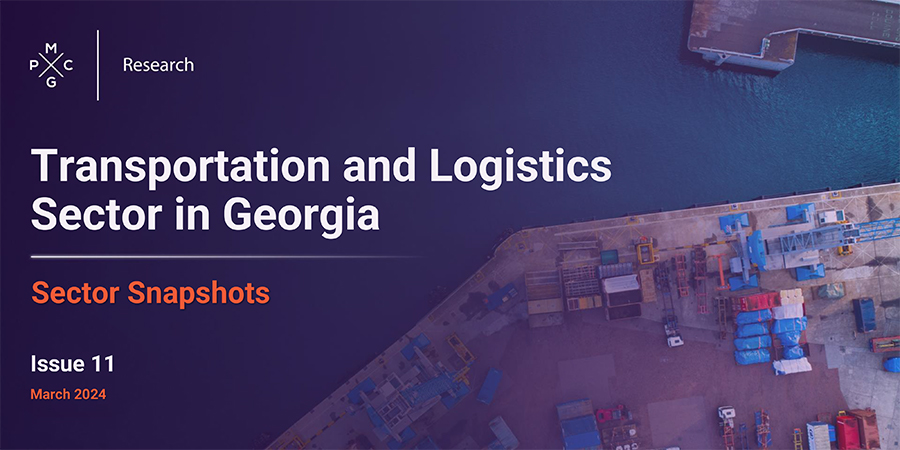
Transportation and logistics sector in Georgia is a vital pillar of the economy, facilitating domestic and international trade. Notably, Georgia's strategic location along the Middle Corridor enhances its significance as a key transit hub connecting Europe and Asia.
In 2023, Georgia's transportation and storage sector experienced moderate growth, with its contribution to GDP increasing by 5.1% despite facing challenges like disruptions in trade with Russia. Although the sector’s share of total gross output declined slightly (-0.8 percentage points, YoY), it remains vital, contributing 6.5% to the national economy's overall output.
Looking ahead, Georgia's transportation and logistics sector is expecting further growth and development. Despite recent challenges, the sector's strategic location along the Middle Corridor presents promising opportunities for expansion. With ongoing efforts to enhance infrastructure and connectivity, Georgia is well-positioned to strengthen its role as a key transit hub between Europe and Asia.
Hotel Price Index (February, 2024)
2024-03-14 00:00:00
In Georgia, the average cost of a room in a 3-star hotel was 158 GEL per night in February 2024, while the average cost of a room in a 4-star hotel in Georgia was 261 GEL per night and the average cost of a room in a guesthouse was 128 GEL per night.
The average cost of a room in a 5-star hotel in Georgia in February 2024 was 416 GEL per night. In Tbilisi, the average price was 596 GEL, followed by Kakheti – 551 GEL, Guria – 486 GEL, and Adjara – 304 GEL.
Issue 6: Macro Overview
2024-02-28 00:00:00
Georgia's economic growth remained robust (7.5%) in 2023, albeit at a slower pace than the previous two years.
In 2023, several factors presented positive and adverse economic developments - examined within the report in detail, along with the outlook for 2024.
Issue 6 of the Macro Overview thoroughly explores different aspects of the economy in Georgia and beyond, including:
Economic Growth;
Economic and Business Climate;
Key Macroeconomic Indicators;
Labor Market;
External Sector;
Global Economic Trends.
Employment Tracker (January, 2024)
2024-02-22 00:00:00
The latest Employment Tracker publication offers insights into recent developments in Georgia’s labor market.
Following a temporary year-over-year decrease of vacancies in December 2023, in the beginning of 2024, the trend of an increasing number of vacancies resumed.
In January 2024, the share of people receiving a monthly salary of 2400 GEL or more continued to increase (+8pp).
Over the past 6 months (from August 2023 to January 2024), the fastest growing number of vacancies category was administration and management.
Hotel Price Index (January, 2024)
2024-02-15 00:00:00
In Georgia, the average cost of a room in a 3-star hotel was 143 GEL per night in January 2024, while the average cost of a room in a 4-star hotel in Georgia was 248 GEL per night and the average cost of a room in a guesthouse was 125 GEL per night.
The average cost of a room in a 5-star hotel in Georgia in January 2024 was 418 GEL per night. In Kakheti, the average price was 639 GEL, followed by Tbilisi – 498 GEL, Guria – 538 GEL, and Adjara – 328 GEL.
Trade in Black Sea Countries
2024-02-05 00:00:00
The war in Ukraine has significantly altered trade dynamics in the Black Sea region. Firstly, it has created security challenges and increased tensions between countries. On the other hand, it has also unlocked opportunities to utilize the potential of the Black Sea as a strategic location and international transport route. With this context in mind, it is important to analyze intra-Black Sea countries’ trade, to identify the patterns and volumes of goods exchanged among these countries, and to determine the dynamics of regional economic cooperation and transportation networks. This bulleting provides analysis of the trade data of Black Sea countries and present the main trends in trade in and among Black Sea countries and provides some recommendations on how to both address existing challenges and realize opportunities.
Employment Tracker (December, 2023)
2024-01-23 00:00:00
For the first time in 2 years, the number of published vacancies on jobs.ge showed a year-over-year decline.
The share of persons receiving a monthly salary of 2400 GEL and more doubled in December 2023, compared to December 2022, reaching 39.4%.
In 2023, from July to December, the fastest growing number of vacancies category was finance and statistics.
Monthly Tourism Update (December, 2023)
2024-01-18 00:00:00
In Q1-Q3 of 2023, the number of outbound visits made by Georgian residents reached 1.6 million, marking a 42% rise compared to Q1-Q3 of 2022. Notably, the number of outbound visits almost recovered to the pre-pandemic level, reaching 95% of the corresponding period of 2019.
In Q1-Q3 of 2023, a significant proportion of outbound visitors chose Türkiye (44%) as their destination, followed by the EU (15%), Armenia (15%), and Russia (12%). Throughout Q1-Q3 of 2023, the number of visits to Russia was the most pronounced since Q2, following Russia’s decision to reinstate the visa-free regime for Georgian citizens and lifting the flight ban in May 2023.
The expenditure of outbound visitors in Q1-Q3 of 2023 reached GEL 1.5 billion, which is 6% lower than in Q1-Q3 of 2019. A shift in expenditure distribution was observed in the covered period, with a significant increase in the share spent on shopping (+10 pp) and a decline in the share assigned to food and drink (-6 pp).
Hotel Price Index (December, 2023)
2024-01-18 00:00:00
In Georgia, the average cost of a room1 in a 3-star hotel was 157 GEL per night in December 2023, while the average cost of a room in a 4-star hotel in Georgia was 253 GEL per night and the average cost of a room in a guesthouse2 was 123 GEL per night.
The average cost of a room in a 5-star hotel in Georgia in December 2023 was 407 GEL per night. In Kakheti, the average price was 547 GEL, followed by Tbilisi – 529 GEL, Guria – 409 GEL, and Adjara – 325 GEL.
BAG Index (Q4, 2023)
2024-01-15 00:00:00
The Business Association of Georgia (BAG) Index is a joint product of the Business Association of Georgia, PMC Research, and the ifo Institute for Economic Research. The BAG Index summarizes the BAG Business Climate, BAG Employment Barometer, and BAG Investment Environment, which are calculated according to the assessments of the top managers of BAG member businesses and companies in their corporate group. In Q4 of 2023, the surveyed businesses assess their present business situation and expectations for the next six months positively.
For the previous reports of the BAG Index, please visit the following link: https://bag.ge/ge/bag-index
Employment Tracker (November, 2023)
2023-12-21 00:00:00
In November 2023, the number of persons receiving a monthly salary increased by 3.9% compared to the corresponding period of 2022.
In November 2023, the share of persons receiving a monthly salary up to 600 GEL amounted to 17.7%, which was 3.5 percentage points less than the corresponding period of 2022.
In November 2023, the share of persons receiving a monthly salary of 9,600 GEL and more amounted to 2.0%, which was 0.4 percentage points more than the corresponding period of 2022.
In 2023, from June to November, the total number of vacancies published on jobs.ge amounted to 44,936, which was 3.7% higher compared to the corresponding period of 2022.
Monthly Tourism Update (November, 2023)
2023-12-15 00:00:00
During the first three quarters of 2023, turnover in the Georgian accommodation sector reached 823.9 million GEL, representing a 10.2% increase compared to the same period of 2022. This significant growth can be directly linked to record-high income from international visits in 2023 so far.
In Q1-Q3 of 2023, both the average number of persons employed and the average monthly salary in the Georgian accommodation sector rose compared to Q1-Q3 of 2022 by 5.7% and 11.4%, respectively. Notably, in Q3 of 2023, total salary fund in the sector reached an all-time high, amounting to 26.6 million GEL.
In November 2023, compared to November 2022, the Hotel Price Index (HPI) in Georgia decreased by 13.2%, with the yearly HPI at its lowest under the “guesthouses” category (-21.5%). Meanwhile, compared to October 2023, the HPI in November 2023 dropped by 6.6%.
Hotel Price Index (November, 2023)
2023-12-15 00:00:00
In Georgia, the average cost of a room in a 3-star hotel was 143 GEL per night in November 2023, while the average cost of a room in a 4-star hotel in Georgia was 221 GEL per night and the average cost of a room in a guesthouse was 117 GEL per night.
The average cost of a room in a 5-star hotel in Georgia in November 2023 was 386 GEL per night. In Kakheti, the average price was 553 GEL, followed by Tbilisi – 541 GEL, Guria – 358 GEL, and Adjara – 299 GEL.
Georgian Economic Climate (Q4, 2023)
2023-12-12 00:00:00
The main findings of the survey of Georgian economists conducted in the fourth quarter of 2023 are:
Georgian economists have a positive assessment of Georgia’s present economic situation.
Though their predictions for Georgia’s economic situation for the next six months are also positive.
64% of the surveyed economists identified a labor shortage as the most significant threat to the Georgian economy.
All of the surveyed economists either agreed or completely agreed with the IMF’s concerns regarding the independence of the NBG.
Overall, 76% of the surveyed economists believed that the recent developments surrounding the NBG posed a high or very high threat to the continuation of the IMF’s support program in Georgia.
Issue 21: Ukraine’s Monetary Stability: Monetary and Exchange Rate Policy
2023-12-05 00:00:00
Since Russia’s invasion of Ukraine on 24 February 2022, Ukraine has adopted various measures and policies to support business and economic activities in the country. Alongside fiscal policies as well as business and labor support programs, monetary regulations have played a crucial role in ensuring the resilience of its wartime economy.
The National Bank of Ukraine (NBU) has been efficiently responding to monetary developments, implementing effective actions to maintain the country’s monetary stability. This bulletin provides an overview of some of the most recent monetary and exchange rate policies adopted in Ukraine and analyzes their effectiveness by looking at three key monetary stability indicators: exchange rate, inflation, and reserves.
UKRAINIAN PUBLICATION
Hazelnut Production Sector in Georgia
2023-11-30 00:00:00
Georgia is a significant contributor to the global hazelnut industry, ranking among the world’s leading countries in both shelled and in-shell hazelnut exports.
Nearly all (97.9%) Georgian hazelnuts are produced in the following five regions: Samegrelo (42.2%); Guria (20.7%); Kakheti (12.9%); Adjara (12.0%); and Imereti (10.5%). Among these regions, the price of hazelnuts is highest in Kakheti, followed by Samegrelo and Imereti.
Most of the hazelnuts produced in Georgia are exported. The leading importer countries of Georgian hazelnuts are Italy and Germany.
Employment Tracker (October, 2023)
2023-11-27 00:00:00
In October 2023, the number of persons receiving a monthly salary increased by 5.1% compared to the corresponding period of 2022.
In October 2023, the share of persons receiving a monthly salary up to 600 GEL amounted to 17.9%, which was 4.6 percentage points less than the corresponding period of 2022.
In October 2023, the share of persons receiving a monthly salary of 9,600 GEL and more amounted to 1.9%, which was 0.3 percentage points more than the corresponding period of 2022.
In 2023, from May to October, the total number of vacancies published on jobs.ge amounted to 45,954, which was 5.1% higher compared to the corresponding period of 2022.
Issue 146: Emigration and the Effect of Remittances on the Georgian Economy (2013-2022)
2023-11-20 00:00:00
Georgia is considered a country of emigration. Since the mid-1990s, emigration from the country has been largely defined as labor migration, with Georgian citizens seeking better prospects abroad to ease persistent socio-economic challenges at home, including high unemployment, widespread poverty, and low wages.
A distinctive feature of this trend is that a significant proportion of Georgian labor emigrants choose to reside and work illegally in their host countries. Meanwhile, for Georgians who opt to emigrate, their primary motivation for doing so is to earn enough to support their families back in Georgia to whom they send remittances to alleviate economic hardships.
This bulletin discusses Georgia’s emigration trends and the role of remittances in the Georgian economy at macro and micro levels over the last decade.
Monthly Tourism Update (October, 2023)
2023-11-14 00:00:00
In Q3 of 2023, the number of international visits reached 2.3 million visits, recording a 21% YoY increase, however, only reaching 83% of visits in Q3 of 2019.
Among the top countries of origin for international visits, in the following periods, visits from Israel are expected to decline due to geopolitical issues. However, visits from China are set to increase gradually with the new visa-free policy. Additionally, India’s tourism market remains promising, despite some border crossing challenges for visitors.
In Q3 of 2023, income from international travel reached USD 1.4 billion, which significantly surpasses the pre-pandemic number by 28%, however, showing an incremental 5% rise compared to Q3 of 2022.
In October 2023, compared to October 2022, the Hotel Price Index (HPI) in Georgia decreased by 11.1%, with the yearly HPI at its lowest under the “guesthouses” category (-18.7%). Meanwhile, compared to September 2023, the HPI in October 2023 dropped by 11.3%.
Hotel Price Index (October, 2023)
2023-11-14 00:00:00
In Georgia, the average cost of a room in a 3-star hotel was 152 GEL per night in October 2023, while the average cost of a room in a 4-star hotel in Georgia was 237 GEL per night and the average cost of a room in a guesthouse was 118 GEL per night.
The average cost of a room in a 5-star hotel in Georgia in October 2023 was 411 GEL per night. In Tbilisi, the average price was 562 GEL, followed by Guria – 530 GEL, Kakheti – 517 GEL, and Adjara – 319 GEL.
Issue 5: Macro Overview
2023-11-09 00:00:00
Following rapid double-digit growth in 2021 and 2022, Georgia's economy in this year is continuing on an upward trajectory, albeit at a slower pace compared to the previous two years.
In the first 9 months of 2023, there were several factors that have contributed to growth slowing down. Moreover, there were several factors that presented challenges and opportunities in the economy - examined within the report in detail.
Issue 5 of the Macro Overview thoroughly explores different aspects of the economy in Georgia and beyond, including:
Economic Growth;
Economic and Business Climate;
Key Macroeconomic Indicators;
Labor Market;
External Sector;
Global Economic Trends.
Employment Tracker (September, 2023)
2023-10-25 00:00:00
In September 2023, the number of persons receiving a monthly salary increased by 3.9% compared to the corresponding period of 2022.
In September 2023, the share of persons receiving a monthly salary up to 600 GEL amounted to 18.6%, which was 4.3 percentage points less than the corresponding period of 2022.
In September 2023, the share of persons receiving a monthly salary of 9,600 GEL and more amounted to 1.9%, which was 0.3 percentage points more than the corresponding period of 2022.
In 2023, from April to September, the total number of vacancies published on jobs.ge amounted to 44,802, which was 5.4% higher compared to the corresponding period of 2022.
Monthly Tourism Update (September, 2023)
2023-10-19 00:00:00
In the first half of 2023, the number of domestic visits amounted to 9.2 million, which is 15% higher compared to the corresponding period of 2022. The upturn in domestic visits this year, following a year-on-year decline in the previous year, was especially pronounced in the Q2 of 2023, where the number of visits rose by 25% compared to the Q2 of 2022.
The total expenditure of domestic visitors reached GEL 1.4 billion in the first half of 2023, which is 14% higher compared to the corresponding period of 2022. By categories, in the first half of 2023, compared to the first half of 2022, the expenditure of domestic visitors on shopping (by 17%) and food and drinks (25%) increased significantly.
In September 2023, compared to September 2022, the Hotel Price Index (HPI) in Georgia decreased by 10.0%, with the yearly HPI at its lowest under the “guesthouses” category (-14.3%). Meanwhile, compared to August 2023, the HPI in September 2023 dropped by 6.2%.
Hotel Price Index (September, 2023)
2023-10-19 00:00:00
In Georgia, the average cost of a room1 in a 3-star hotel was 168 GEL per night in September 2023, while the average cost of a room in a 4-star hotel in Georgia was 268 GEL per night and the average cost of a room in a guesthouse was 124 GEL per night.
The average cost of a room in a 5-star hotel in Georgia in September 2023 was 495 GEL per night. In Guria, the average price was 780 GEL, followed by Tbilisi – 623 GEL, Kakheti – 514 GEL, and Adjara – 460 GEL.
BAG Index (Q3, 2023)
2023-10-16 00:00:00
The Business Association of Georgia (BAG) Index is a joint product of the Business Association of Georgia, PMC Research, and the ifo Institute for Economic Research. The BAG Index summarizes the BAG Business Climate, BAG Employment Barometer, and BAG Investment Environment, which are calculated according to the assessments of the top managers of BAG member businesses and companies in their corporate group. In Q3 of 2023, additional questions were integrated into the questionnaire to assess the investment environment.
For the previous reports of the BAG Index, please visit the following link: https://bag.ge/ge/bag-index
Georgian Economic Climate (Q3, 2023)
2023-10-06 00:00:00
In this bulletin, which is based on the ifo Institute’s methodology, we discuss Georgia’s economic climate, informed by the assessments of various Georgian economists.
The main findings of the survey of Georgian economists conducted in the third quarter of 2023 are:
Georgian economists have a positive assessment of Georgia’s present economic situation.
Though their predictions for Georgia’s economic situation for the next six months are negative.
93% of the surveyed economists think that a labor shortage currently represents a high or very high threat to the Georgian economy.
Almost 78% of the surveyed economists named a high emigration rate as a high or very high threat.
With Turkish Lira hitting a record low, 78% of the surveyed economists think that the decreasing competitiveness of domestic products against cheaper imports from Turkey will have at least a high impact on the Georgian economy.
Employment Tracker (August, 2023)
2023-09-26 00:00:00
In August 2023, the number of persons receiving a monthly salary increased by 4.0% compared to the corresponding period of 2022.
In August 2023, the share of persons receiving a monthly salary up to 600 GEL amounted to 19.1%, which was 4.1 percentage points less than the corresponding period of 2022.
In August 2023, the share of persons receiving a monthly salary of 9,600 GEL and more amounted to 2.1%, which was 0.4 percentage points more than the corresponding period of 2022.
In 2023, from March to August, the total number of vacancies published on jobs.ge amounted to 44,065, which was 10.2% higher compared to the corresponding period of 2022.
Issue 145: Household Income and Income Inequality in Georgia (2013-2022)
2023-09-19 00:00:00
This bulletin provides a comprehensive understanding of household income distribution in Georgia. It presents an analysis of income inequality beyond the traditional Gini coefficient by examining additional dimensions of income distribution. More precisely, the bulletin compares the income of different segments of society, household income in rural and urban areas, and between regions.
Monthly Tourism Update (August, 2023)
2023-09-14 00:00:00
Since the beginning of 2023, the tourism sector in Georgia has been showing signs of significant recovery. Therefore, with this background, it is interesting to analyze the latest hotel price dynamics in Georgia.
Since the beginning of 2023, the year-on-year (YoY) Hotel Price Index (HPI) in Georgia has experienced notable fluctuations, with a significant decline in the summer months. That drop was mainly attributed to the YoY price decrease for guesthouses.
To provide a better understanding of the latest price changes of hotels, the regional analysis is crucial. In the summer months of 2023, the YoY HPI in Adjara was positive and significant for all categories of hotels (16%) in June, followed by a decline in July (-2.8%) and August (-0.2%). This could partially be attributed to the relatively low demand in seaside locations, in some instances due to visitors’ sea safety concerns.
Hotel Price Index (August, 2023)
2023-09-14 00:00:00
In Georgia, the average cost of a room in a 3-star hotel was 181 GEL per night in August 2023, while the average cost of a room in a 4-star hotel in Georgia was 278 GEL per night and the average cost of a room in a guesthouse was 130 GEL per night.
The average cost of a room in a 5-star hotel in Georgia in August 2023 was 542 GEL per night. In Guria, the average price was 1055 GEL, followed by Adjara – 515 GEL, Tbilisi – 515 GEL, and Kakheti – 837 GEL.
Employment Tracker (July, 2023)
2023-08-30 00:00:00
In July 2023, the number of persons receiving a monthly salary increased by 4.7% compared to the corresponding period of 2022.
In July 2023, the share of persons receiving a monthly salary up to 600 GEL amounted to 17.1%, which was 4.0 percentage points less than the corresponding period of 2022.
In 2023, from February to July, the total number of vacancies published on jobs.ge amounted to 42,900, which was 12.8% higher compared to the corresponding period of 2022.
In 2023, from February to July, a total of 7,866 vacancies were published in the field of finance, statistics, which was 43.1% higher than the corresponding period of 2022 and 99.0% higher compared to the corresponding period of 2021.
Hotel Price Index (July, 2023)
2023-08-17 00:00:00
In Georgia, the average cost of a room in a 3-star hotel was 174 GEL per night in July 2023, while the average cost of a room in a 4-star hotel in Georgia was 267 GEL per night and the average cost of a room in a guesthouse was 132 GEL per night.
The average cost of a room in a 5-star hotel in Georgia in July 2023 was 498 GEL per night. In Guria, the average price was 894 GEL, followed by Adjara – 550 GEL, Tbilisi – 505 GEL, and Kakheti – 466 GEL.
Monthly Tourism Update (July, 2023)
2023-08-17 00:00:00
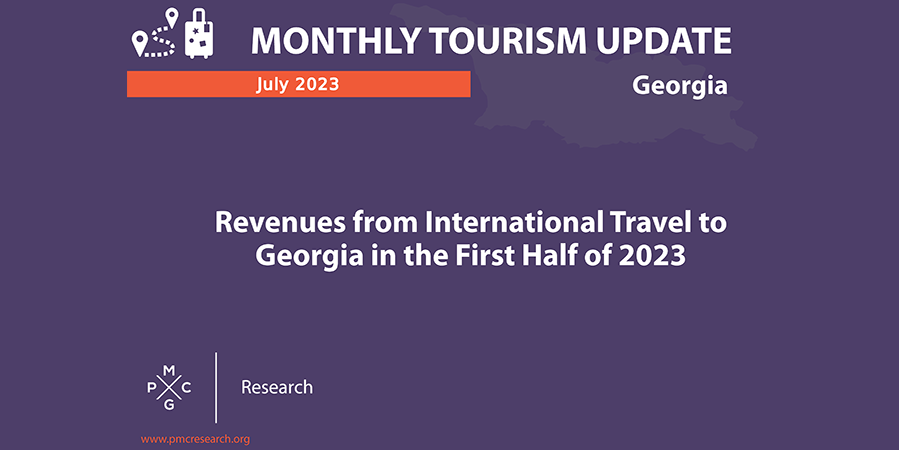
In the first half of 2023, the number of international visits to Georgia reached 2.5 million visits, which is 21.7% lower than in the first half of 2019 (referred to as the corresponding pre-pandemic figure). This relatively slow recovery could be attributed to the ongoing Russia-Ukraine War and related disruptions to Georgia’s tourism sector.
From a regional perspective, the number of international visits originating from Europe in the first half of 2023 was well below the pre-pandemic number (-23.3%), while for all other regions, the number of visits matched or exceeded the pre-pandemic figure.
Despite only a partial recovery in the number of international visitors in the first half of 2023 against the corresponding period of 2019, income from international travel reached USD 1.8 billion, representing a 24% increase compared to the first half of 2019.
According to the National Bank of Georgia, as of 30 June 2023, 38.4% of Russian citizens, 34.9% of Belarusian citizens, and 28.0% of Ukrainian citizens residing in Georgia were estimated to have been living in the country for at least one year or were intending to stay for more than one year.
Considering these estimates, income from Russian travelers was at its highest in the first half of 2023 when it amounted to USD 482.1 million (equating to 26.7% of total income from international travel), which is 9.4% higher compared to the same period of 2019.
Issue 4: Macro Overview
2023-08-10 00:00:00
Following rapid double-digit growth in 2021 and 2022, Georgia's economy in this year is continuing on an upward trajectory, albeit at a slower pace compared to the previous two years.
In the first half of 2023, there were several positive developments in the Georgian economy, even of these have all come with their own challenges and associated risks – examined within the report in detail.
Issue 4 of the Macro Overview thoroughly explores different aspects of the economy in Georgia and beyond, including:
Economic Growth;
Economic and Business Climate;
Key Macroeconomic Indicators;
Labor Market;
External Sector;
Global Economic Trends.
Employment Tracker (June, 2023)
2023-07-25 00:00:00
In June 2023, the number of persons receiving a monthly salary increased by 4.7% compared to the corresponding period of 2022.
In June 2023, the share of persons receiving a monthly salary of 2,400 GEL and more amounted to 22.6%, which was 5.3 percentage points more compared to the corresponding period of 2022.
In 2023, from January to June, the total number of vacancies published on jobs.ge amounted to 42,075, which was 15.0% higher compared to the corresponding period of 2022.
In 2023, from January to June, a total of 7,799 vacancies were published in the field of finance and statistics, which was 46.4% higher than the corresponding period of 2022.
Hotel Price Index (June, 2023)
2023-07-19 00:00:00
In Georgia, the average cost of a room in a 3-star hotel was 186 GEL per night in June 2023, while the average cost of a room in a 4-star hotel in Georgia was 262 GEL per night and the average cost of a room in a guesthouse was 133 GEL per night.
The average cost of a room in a 5-star hotel in Georgia in June 2023 was 485 GEL per night. In Guria, the average price was 646 GEL, followed by Kakheti – 556 GEL, Adjara – 516 GEL, and Tbilisi – 512 GEL.
Monthly Tourism Update (June, 2023)
2023-07-19 00:00:00
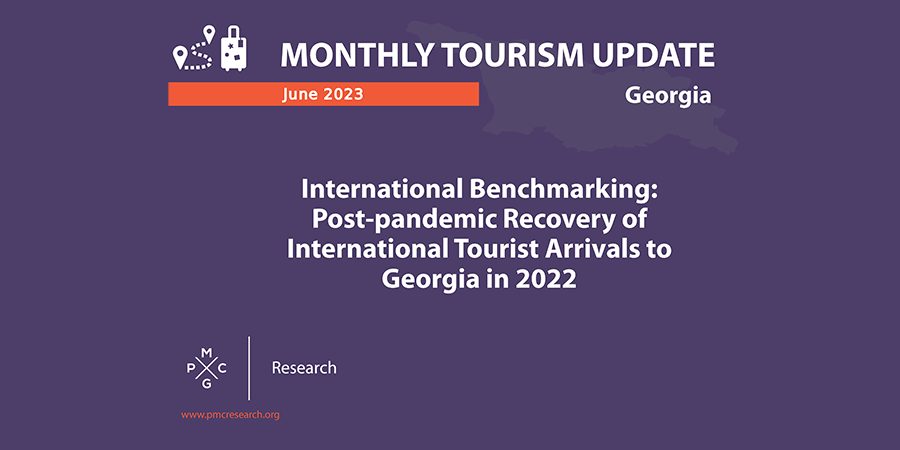
In 2022, the recovery level of international tourist arrivals to Georgia (72%) was higher compared to the averages of the world (63%), and Central/Eastern Europe (59%), yet lower than that of Europe as a whole (80%). The rate of recovery for Georgia accelerated in Q1 of 2023, reaching 96%, above the averages of the world (80%), Europe as a whole (90%), and Central/Eastern Europe (59%).
However, among selected comparable countries in which tourism makes a large contribution to the national economy, Georgia’s performance was not so outstanding in 2022. Specifically, high levels of recovery in the number of international tourists were evident in all such nations, with Albania even exceeding its pre-pandemic figure, followed by Greece and Croatia showing a strong rebound, while Georgia performed the worst among these four countries.
In a regional context, Turkey and Armenia showed better performance regarding the recovery of international tourist arrivals than Georgia both in 2022 and in Q1 of 2023.
Issue 20: Ukraine: Reconstructing International Trade
2023-07-04 00:00:00
In this bulletin, we overview the infrastructural losses Ukraine has suffered from the war so far, the plan for rebuilding the country’s trade infrastructure, the dynamics of Ukraine’s international trade, the facilitation of exports, and the strengthening of the country’s economic resilience with the assistance of external actors.
Georgian Economic Climate (Q2, 2023)
2023-06-27 00:00:00
The main findings of the survey of Georgian economists conducted in the second quarter of 2023 are:
Georgian economists have a positive assessment of Georgia’s present economic situation.
Though their predictions for Georgia’s economic situation for the next six months are negative.
63% of the surveyed economists think that Russia’s war on Ukraine as well as labor market problems like skills mismatch and labor shortage (lack of qualified personnel) currently represent a high or very high threat to the Georgian economy.
More than one year since Russia launched its war on Ukraine, nearly half (47%) of the surveyed economists claimed they are uncertain about how to assess the overall impact of the war on the Georgian economy.
Almost 90% of the economists agree with the decision of National Bank of Georgia (announced on 10 May, 2023) to loosen its monetary policy and decrease the policy rate by 0.5 percentage points from 11% to 10.5%.
Employment Tracker (May, 2023)
2023-06-22 00:00:00
In May 2023, the number of persons receiving a monthly salary increased by 7.0% compared to the corresponding period of 2022.
In May 2023, the share of persons receiving a monthly salary of 2,400 GEL and more amounted to 21.3%, which was 4.7 percentage points more compared to the corresponding period of 2022.
From December 2022 to May 2023, the total number of vacancies published on jobs.ge amounted to 39,630, which was 17.6% higher compared to the corresponding period of 2021- 2022.
From December 2022 to May 2023, a total of 10,495 vacancies were published in sales, procurement, which was 11.2% higher compared to the corresponding period of 2021-2022.
BAG Index (Q2, 2023)
2023-06-20 00:00:00
The Business Association of Georgia (BAG) Index is a joint product of the Business Association of Georgia, PMC Research and the ifo Institute for Economic Research. The BAG Index summarizes the BAG Business Climate, BAG Employment Barometer and BAG Investment Environment, which are calculated according to the assessments of the top managers of BAG member businesses and companies in their corporate group. In Q2 of 2023, additional questions were integrated into the questionnaire to assess the effect of the removal of some industries from the list of sectors with specific operating conditions on businesses. BAG and PMC Research publish the BAG Index on a quarterly basis from Q4 2019.
For the previous reports of the BAG Index, please, visit the following link: https://bag.ge/ge/bag-index
Hotel Price Index (May, 2023)
2023-06-12 00:00:00
In Georgia, the average cost of a room in a 3-star hotel was 166 GEL per night in May 2023, while the average cost of a room in a 4-star hotel in Georgia was 270 GEL per night and the average cost of a room in a guesthouse was 124 GEL per night.
The average cost of a room in a 5-star hotel in Georgia in May 2023 was 409 GEL per night. In Guria, the average price was 584 GEL, followed by Tbilisi – 515 GEL, Kakheti – 354 GEL, and Adjara – 369 GEL.
Monthly Tourism Update (May, 2023)
2023-06-12 00:00:00
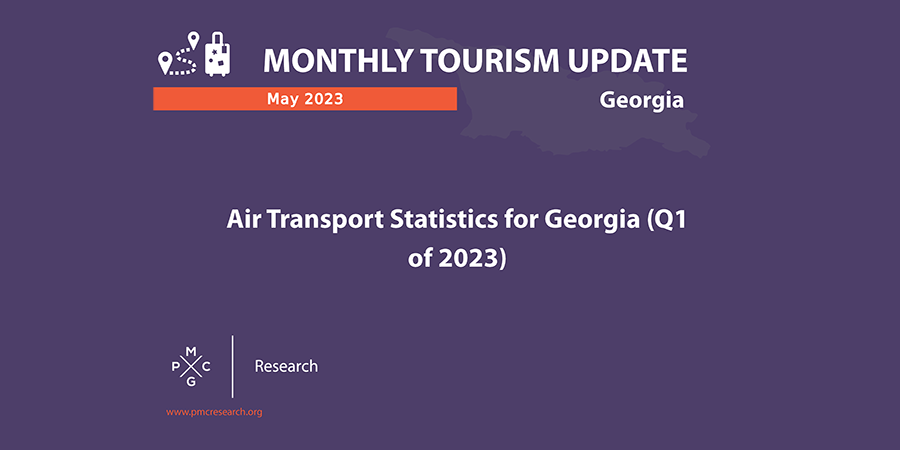
In Q1 of 2023, 1.05 million passengers were transported by airline companies in Georgia, which is 3.3% higher compared to the corresponding pre-pandemic (Q1 of 2019) figure.
Despite significant YoY growth, the number of passengers traveling to and from Tbilisi airport did not fully recover to pre-pandemic levels (-11% compared to Q1 of 2019), while the number of passengers traveling through Kutaisi and Batumi airports exceeded pre-pandemic numbers significantly.
Throughout the winter season of 2022-2023, regular flights to and from Georgian airports were provided by 41 airlines on 61 routes. The average number of flights per week over this period was 390, which is 6% lower compared to the scheduled weekly flights for the winter season of 2018-2019.
In the summer season of 2023, the number of airlines is expected to rise to 43, while the number of routes is expected to increase to 88. The average number of weekly flights will reach 555, which is 42.3% higher compared to the previous season, and 5.9% lower compared to the number of scheduled flights in the summer season of 2019.
Inflation and Monetary Policy in Black Sea Countries
2023-06-08 00:00:00
Since mid-2020, when stringent restrictions were imposed to combat the spread of the COVID-19 pandemic, inflation has been running at multi-decade highs in many countries across the globe. In 2022 in particular, inflationary pressures from pandemic-related disruptions were exacerbated by the Russo-Ukrainian War and spiking food and energy prices. In response, central banks implemented different monetary policy approaches in an attempt to stabilize the situation. Against this background, recent inflationary trends and monetary policy approaches adopted by economically diverse Black Sea countries are analyzed and compared in this issue of Black Sea bulletin.
Employment Tracker (April, 2023)
2023-05-30 00:00:00
In April 2023, the number of persons receiving a monthly salary increased by 3.7% compared to the corresponding period of 2022.
In April 2023, the share of persons receiving a monthly salary of 2,400 GEL and more amounted to 21.8%, which was 5.7 percentage points more compared to the corresponding period of 2022.
From November 2022 to April 2023, the total number of vacancies published on jobs.ge amounted to 38,330, which was 18.7% higher compared to the corresponding period of 2021- 2022.
Issue 144: Georgia - Labor Market Overview
2023-05-18 00:00:00
Notwithstanding the recent positive tendencies, considerable challenges persist in the Georgian labor market. In this bulletin, we address several of these pressing concerns and provide a comprehensive overview of the labor market including:
Labor market key indicators
The Beveridge curve analysis
Employment by economic sectors and employed foreign nationals
Salaries of paid employees
Vacancies published on Jobs.ge
Monthly Tourism Update (April, 2023)
2023-05-16 00:00:00
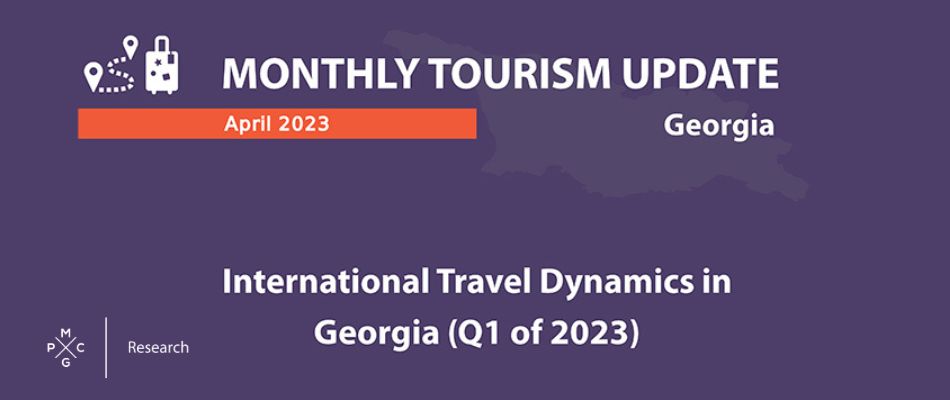
In Q1 of 2023, the number of international visits to Georgia reached a total of 1.1 million, which amounts to 79.9% of the corresponding quarter of 2019 (i.e. the pre-pandemic level).
In Q1 of 2023, Russia was the biggest source country of visitors to Georgia, amounting to 256,787 visits (exceeding the pre-pandemic level by 1.1%).
In Q1 of 2023 the income from international travel reached USD 795.4 million, which is 38% higher compared to the pre-pandemic number.
In terms of nationality, the income from Russian travelers was the highest in Q1 of 2023 and amounted to USD 266.4 million - 29% higher than in Q1 of 2019.
Notably, according to the National Bank of Georgia, as of 31 March 2023, 35.5% of Russian citizens, 23.7% of Ukrainian citizens, and 44% of Belarusian citizens residing in Georgia were estimated to have been living in the country for one year or intending to stay for more than one year, and their expenditure is not included in the calculations of income from travel.
Hotel Price Index (April, 2023)
2023-05-16 00:00:00
In Georgia, the average cost of a room in a 3-star hotel was 157 GEL per night in April 2023, while the average cost of a room in a 4-star hotel in Georgia was 247 GEL per night and the average cost of a room in a guesthouse was 115 GEL per night.
The average cost of a room in a 5-star hotel in Georgia in April 2023 was 373 GEL per night. In Kakheti, the average price was 548 GEL, followed by Tbilisi – 452, Samtskhe-Javakheti – 354, and Guria – 328.
Honey Production Sector in Georgia
2023-05-04 00:00:00
The global demand for honey is increasing, driven by consumers' growing preference for natural and organic sweeteners over sugar and other health-damaging artificial substitutes and the global honey market is expected to grow from $8.53 billion in 2022 to $12.69 billion by 2029, at a CAGR of 5.83%.
Considering that Georgia is known as the land of the oldest honey discovered, and has suitable natural conditions and biodiversity for high-quality honey production, the development potential for the honey production sector in Georgia is high.
Employment Tracker (March, 2023)
2023-04-25 00:00:00
In March 2023, the number of persons receiving a monthly salary increased by 3.9% compared to the corresponding period of 2022 and by 8.3% compared to the corresponding period of 2021.
From October 2022 to March 2023, the total number of vacancies published on jobs.ge amounted to 38,836, which was 20.0% higher compared to the corresponding period of 2021- 2022.
In March 2023, compared to February 2023, the total number of vacancies published on jobs.ge increased by 19.4%.
From October 2022 to March 2023, a total of 7,047 vacancies were published in the field of finance, statistics, which was 42.5% higher than the corresponding period of 2021-2022 and 179.9% higher compared to the corresponding period of 2020-2021.
Monthly Tourism Update (March, 2023)
2023-04-18 00:00:00
In 2022, the number of domestic visits amounted to 16.3 million visits, which is 3.6% lower compared to 2021, and 14.6% higher compared to the pre-pandemic number, indicating continuing increased demand for tourist activities from domestic visitors, albeit at a decelerating rate.
In 2022, the average nights spent per visit fully returned to the pre-pandemic number, showing the reversal of the behavior of domestic visitors after the growth in the length of stay in 2020 and 2021.
The expenditure of domestic visitors reached GEL 3 billion, which is higher both compared to the previous year (by 9.8%) and 2019 (by 61.7%).
In absolute values, in 2022, compared to 2021, the expenditures of domestic visitors on transport (by GEL 75.5 mln), accommodation (by GEL 43.7 mln), and food and drinks (by GEL 38 bln) increased significantly.
Hotel Price Index (March, 2023)
2023-04-18 00:00:00
In Georgia, the average cost of a room in a 3-star hotel was 167 GEL per night in March 2023, while the average cost of a room in a 4-star hotel in Georgia was 275 GEL per night and the average cost of a room in a guesthouse was 122 GEL per night.
The average cost of a room in a 5-star hotel in Georgia in March 2023 was 456 GEL per night. In Tbilisi, the average price was 559 GEL, followed by Kakheti – 552, Samtskhe-Javakheti – 458, and Adjara –429.
Issue 143: Subsistence allowance in Georgia (2018-2022)
2023-04-11 00:00:00
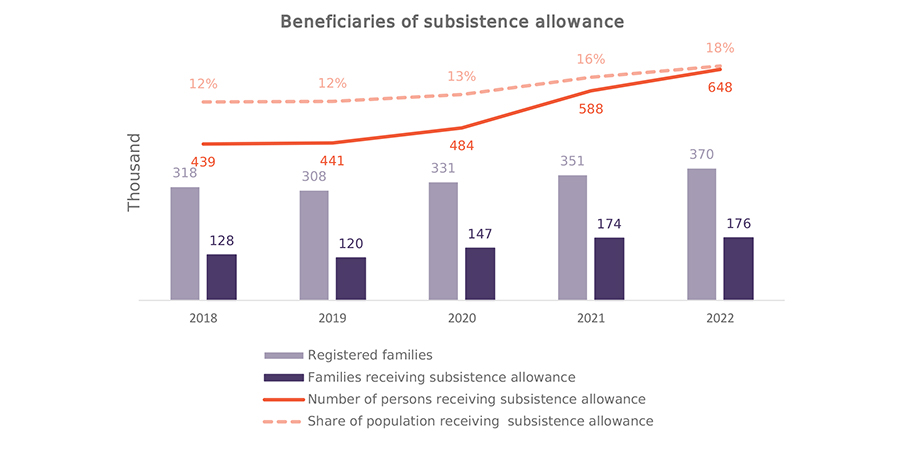
Socio-economic problems continue to represent a significant challenge for Georgia. Specifically, in 2021, 17.5% of the Georgian population fell under the absolute poverty line. By and large, different states typically offer various forms of social assistance (including subsistence allowance) to help the most vulnerable within society.
In Georgia, the subsistence allowance program provides financial aid to the country’s poorest families, whose rating score is less than 120,001. The rating score is determined by the social services agency and reflects the family’s income and assets. The lower the score, the poorer the family. However, recent studies have indicated that this program does not help beneficiaries to get out of poverty and that it instead encourages them to maintain a low income to remain eligible to receive the allowance. To address such issues, starting from March 2022, the Georgian government implemented a wide-scale public works employment program for the country’s socially vulnerable citizens. It should be noted that the persons involved in the program will maintain the status of socially vulnerable for 4 years.
In this newsletter, we take a close look at the dynamics of the population receiving subsistence allowance. Moreover, the trends with respect to the announced working program are also discussed.
BAG Index (Q1, 2023)
2023-04-05 00:00:00
The Business Association of Georgia (BAG) Index is a joint product of the Business Association of Georgia, PMC Research Center and the ifo Institute for Economic Research. The BAG Index summarizes the BAG Business Climate, BAG Employment Barometer and BAG Investment Environment, which are calculated according to the assessments of the top managers of BAG member businesses and companies in their corporate group. In Q1 of 2023, additional questions regarding the employees’ salary dynamics were integrated into the survey. BAG and PMC Research Center publish the BAG Index on a quarterly basis from Q4 2019.
For the previous reports of the BAG Index, please, visit the following link: https://bag.ge/ge/bag-index
Information and Communications Technology Sector in Georgia
2023-04-03 00:00:00
Trends in information and communication technologies (ICT) are shaping the future amid existing global challenges. Among major global ICT trends are the growing prevalence of artificial intelligence (AI) and machine learning (ML), increased mobility, and advanced connectivity.
It is essential for Georgia’s economic development that it keeps pace with these worldwide advances, establishes its own niche, and specializes in certain aspects of ICT. The capabilities of countries to use, adopt, and adapt innovations and digital transformation will play a crucial role in their shaping future economic development. That is why it is crucial to analyse the challenges and opportunities with regard to the development of the ICT sector in Georgia
Employment Tracker (February, 2023)
2023-03-23 00:00:00
In February 2023, the number of persons receiving a monthly salary increased by 4.9% compared to the corresponding period of 2022 and by 11.6% compared to the corresponding period of 2021.
From September 2022 to February 2023, the total number of vacancies published on jobs.ge amounted to 39,565, which was 20.4% higher compared to the corresponding period of 2021-2022.
In February 2023, compared to January 2023, the total number of vacancies published on jobs.ge decreased by 3.5%.
From September 2022 to February 2023, a total of 7,065 vacancies were published in the field of finance, statistics, which was 40.6% higher than the corresponding period of 2021-2022 and 192.5% higher compared to the corresponding period of 2020-2021.
Monthly Tourism Update (February, 2023)
2023-03-21 00:00:00
In 2022, the number of outbound visits made by Georgian residents tripled compared to 2021 and reached 1.7 million, equating to 71% of the pre-pandemic figure.
In 2022, a significant proportion of outbound visits were to Turkey (54%), followed by Russia (14%). Notably, the number of outbound visits to Russia exceeded the pre-pandemic figure by 49% with the highest quarterly increase (143%) coming in Q3 of 2022 compared to Q3 of 2019.
The most popular purpose of outbound visits in 2022 was shopping, representing 41% of total visits, while this number was equal to 29% in 2019. The share of shopping also increased in total expenditure of outbound visitors, reaching GEL 759 million, marking a 16% increase compared to 2019.
Hotel Price Index (February, 2023)
2023-03-21 00:00:00
In Georgia, the average cost of a room in a 3-star hotel was 140 GEL per night in February 2023, while the average cost of a room in a 4-star hotel in Georgia was 236 GEL per night and the average cost of a room in a guesthouse was 116 GEL per night.
The average cost of a room in a 5-star hotel in Georgia in February 2023 was 392 GEL per night. In Kakheti, the average price was 562 GEL, followed by Tbilisi – 489, Samtskhe-Javakheti – 454, and Guria – 339.
Issue 142: Foreign Students and Foreign Language Programs Dynamics in Georgia
2023-03-15 00:00:00
In recent years, the number of international students has been increasing worldwide, with their contributions to host countries’ economies growing accordingly, and Georgia is not an exception. As shown in PMC RC’s study, total expenses incurred by foreign students, their foreign relatives, and friends in Georgia in the 2020-2021 academic year exceeded US$132 million. Understanding the dynamics of foreign students and foreign language programs in Georgia is crucial to ensure further growth and investment in the education sector. Therefore, this bulletin overviews the dynamics of foreign students in Georgia and their financial contribution to the country’s education sector.
Georgian Economic Climate (Q1, 2023)
2023-03-13 00:00:00
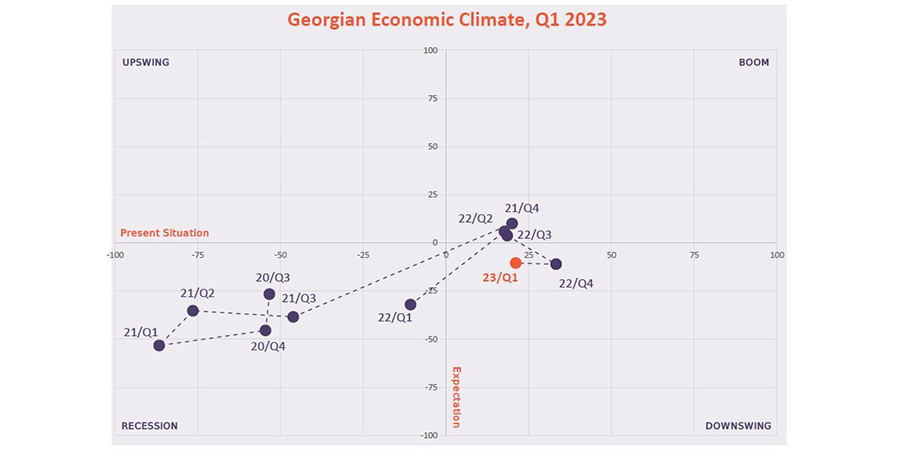
The main findings of the survey of Georgian economists conducted in the first quarter of 2023 are:
The surveyed Georgian economists positively assess Georgia’s present economic situation.
Though their predictions for Georgia’s economic situation for the next six months are negative.
The surveyed Georgian economists’ prediction for real GDP growth for 2023, on average, is 5.5%.
Almost 83% of the surveyed economists think that Russia’s war in Ukraine currently represents a high or very high threat to the Georgian economy. Meanwhile, a skills mismatch was assessed as a very high threat by nearly half of the surveyed economists (44%).
One third of respondents (33%) think that the “GOG Vision 2030 - Development Strategy of Georgia” partially responds to the challenges and problems faced by Georgia but none of the respondents think that the strategy fully addresses them.
Regarding the EU Commission’s analytical report on Georgia’s alignment with the EU acquis, the majority of surveyed economists (75%) think that introducing improvements with respect to the environment and climate change mitigation in line with the EU acquis will be challenging or very challenging.
Issue 19: Ukrainian Refugees and their Effect on Labor Markets at Home and Abroad
2023-03-02 00:00:00
The unprovoked Russian invasion of Ukraine has brought economic and political turmoil to the world, taking numerous civilian lives as well. Since the war broke out, more than 8 million Ukrainians have been recorded as having emigrated across Europe, making it crucial to understand their impacts on the economy and in particular the labor market of host countries and Ukraine. Therefore, this bulletin overviews the dynamics of displacement from Ukraine and analyzes their current and potential economic and social impacts on Ukraine and host countries.
Issue 3: Macro Overview
2023-02-28 00:00:00
Macro Overview aims to review the recent trends and developments of the Georgian economy and sets the stage for what is to come in the approaching months.
Macro overview highlights some of the key indicators in Georgian economy such as inflation, economic growth, and employment. It also explores external sector of the economy, overviewing trends in tourism, trade, remittances and FDI.
The publication consolidates and includes analytical pieces from the PMC Research Center’s periodic newsletters, such as economic outlook and indicators series, monthly tourism update, black sea bulletin, employment tracker. It also includes insights about the expectations of businesses and economists about the future of the Georgian economy from our Georgian economic climate and bag indexes.
Monthly Tourism Update (January, 2023)
2023-02-24 00:00:00
In 2022, the number of international visitors reached a total of 3.9 million, which is 176% higher compared to 2021 and amounts to 65% of the pre-pandemic (2019) total. In 2022, the highest number of visitors to Georgia came from Russia, amounting to 915,000. Russia was followed by neighboring countries: Turkey (711 thousand) and Armenia (531 thousand).
In 2022, the income from international travel reached USD 3.5 billion, which is 8% higher compared to 2019. The recovery was gradual but by Q4 of 2022, it had exceeded the corresponding figure for Q4 of 2019 by 46%.
In terms of nationality, the income from Russian travelers was the highest in 2022 and amounted to USD 891 million (25.3% of total income), which is 15% higher compared to 2019. Meanwhile, income from Ukrainian travelers exceeded the pre-pandemic number by 52% and reached USD 282 million.
Hotel Price Index (January, 2023)
2023-02-24 00:00:00
In Georgia, the average cost of a room in a 3-star hotel was 159 GEL per night in January 2023, while the average cost of a room in a 4-star hotel in Georgia was 245 GEL per night and the average cost of a room in a guesthouse was 129 GEL per night.
The average cost of a room in a 5-star hotel in Georgia in January 2023 was 400 GEL per night. In Kakheti, the average price was 545 GEL, followed by Tbilisi – 462, Samtskhe-Javakheti – 447, and Guria – 340.
Employment Tracker (January, 2023)
2023-02-23 00:00:00
In January 2023, the number of persons receiving a monthly salary increased by 2.5% compared to the corresponding period of 2022 and by 10.7% compared to the corresponding period of 2021.
From August 2022 to January 2023, the total number of vacancies published on jobs.ge amounted to 40,531, which was 24.3% higher compared to the corresponding period of 2021-2022.
In January 2023, compared to December 2022, the total number of vacancies published on jobs.ge increased by 19%.
From August 2022 to January 2023, a total of 7,077 vacancies were published in the field of finance, statistics, which was 142.9% higher than the corresponding period of 2021-2022 and 297.2% higher compared to the corresponding period of 2020-2021.
Monthly Tourism Update (December, 2022)
2023-01-26 00:00:00
In 2022, the tourism sector showed a significant recovery, which could be attributed to a combination of factors, such as the rapid inflow of international visitors after the outbreak of the Russia-Ukraine war, the alleviation of COVID-19-related restrictions, the reopening of land borders, the revival of flight routes, and sustained high demand among domestic visitors.
The accommodation sector recovered significantly in Q3 of 2022, with turnover showing a 20.1% increase compared to Q3 of 2019. Notably, the turnover of the accommodation sector reached a high of GEL 794.9 mln in Q3 of 2022.
In the first three quarters of 2022, the average monthly salary in the accommodation sector exceeded pre-pandemic values significantly with an average YoY increase of 22.5%. This could be attributed to a labor shortage in the tourism sector, inflationary trends, and increased demand for accommodation and food services.
Hotel Price Index (December, 2022)
2023-01-26 00:00:00
In Georgia, the average cost of a room in a 3-star hotel was 167 GEL per night in December 2022, while the average cost of a room in a 4-star hotel in Georgia was 275 GEL per night and the average cost of a room in a guesthouse was 122 GEL per night.
The average cost of a room in a 5-star hotel in Georgia in December 2022 was 456 GEL per night. In Tbilisi, the average price was 559 GEL, followed by Kakheti – 552, Samtskhe-Javakheti – 458, and Adjara – 429.
Employment Tracker (December, 2022)
2023-01-24 00:00:00
In December 2022, the number of persons receiving a monthly salary increased by 2.9% compared to the corresponding period of 2021 and by 6.4% compared to the corresponding period of 2020.
In 2022, from July to December, the total number of vacancies published on jobs.ge amounted to 41,237, which was 26% higher compared to the corresponding period of 2021 and 159.4% higher compared to the corresponding period of 2020.
In December 2022, compared to November 2022, the total number of vacancies published on jobs.ge decreased by 19%.
In 2022, from July to December, a total of 11,928 vacancies were published in the field of sales/procurement, which was 41% higher than the corresponding period of 2021 and 197% higher compared to the corresponding period of 2020.
Issue 18: Audit of War Damage and Overview of Ukraine’s Budget for 2023
2023-01-09 00:00:00
The unprovoked Russian invasion of Ukraine has shattered the lives of millions of civilians and destroyed dozens of Ukrainian cities. The damage has been enormous, with only some of it economically measurable. While we cannot assess the true cost of thousands of lives being taken, we can approximately measure the damage done to Ukraine’s infrastructure, social, and other sectors, which is discussed in this bulletin alongside the revised 2023 budget for Ukraine.
BAG Index (Q4, 2022)
2022-12-28 00:00:00
The Business Association of Georgia (BAG) Index is a joint product of the Business Association of Georgia, PMC Research Center and the ifo Institute for Economic Research. The BAG Index summarizes the BAG Business Climate, BAG Employment Barometer and BAG Investment Environment, which are calculated according to the assessments of the top managers of BAG member businesses and companies in their corporate group. In Q4 of 2022, additional questions regarding the need for labor resources were integrated into the survey. BAG and PMC Research Center publish the BAG Index on a quarterly basis from Q4 2019.
For the previous reports of the BAG Index, please, visit the following link: https://bag.ge/ge/bag-index
Monthly Tourism Update (November, 2022)
2022-12-27 00:00:00
Since 2021, international visits to Georgia have been showing signs of significant recovery. The recovery accelerated in Q3 of 2022, when the number of international visits reached 69% of the corresponding figure in Q3 of 2019.
The average expenditure per visit tripled in Q3 of 2022 compared to the corresponding period of 2019, and reached GEL 2,440. Meanwhile, the total expenditure exceeded the pre-pandemic (Q3 of 2019) value by 41%, reaching GEL 4.6 billion.
The average nights spent per visit increased significantly (42%) in Q3 of 2022, compared to the corresponding period of 2019, reaching 6.8 nights per visit, similar to the first half of 2022.
Hotel Price Index (November, 2022)
2022-12-27 00:00:00
In Georgia, the average cost of a room in a 3-star hotel was 155 GEL per night in November 2022, while the average cost of a room in a 4-star hotel in Georgia was 233GEL per night and the average cost of a room in a guesthouse was 114 GEL per night.
The average cost of a room in a 5-star hotel in Georgia in November 2022 was 419 GEL per night. In Kakheti, the average price was 575 GEL, followed by Tbilisi - 554, Guria - 381 and Adjara - 344.
Employment Tracker (November, 2022)
2022-12-22 00:00:00
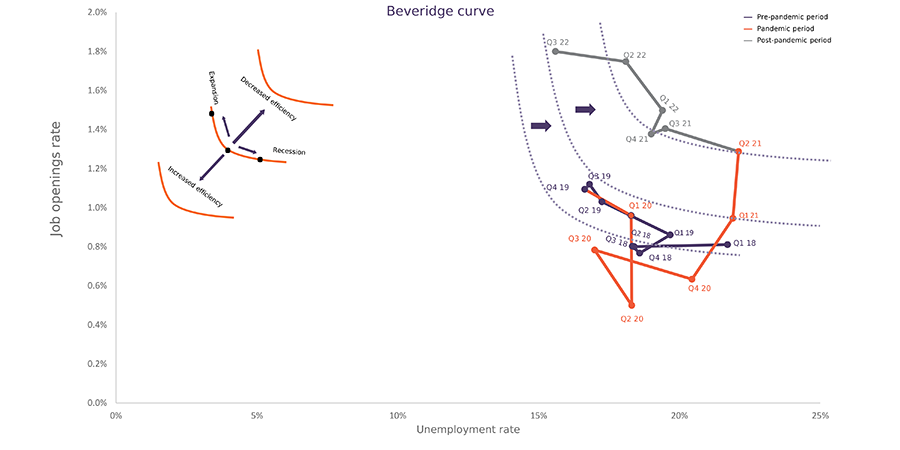
In November 2022, the number of persons receiving a monthly salary increased by 1.4% compared to the corresponding period of 2021 and by 5.4% compared to the corresponding period of 2020.
Overall, in Q4 of 2022, the BAG Employment Barometer amounted to 29.1 points, which is 1 point more than in Q3. In Q4 of the 2022 year, the Employment Barometer was positive for all sectors.
Overall, in Q4 of 2022, according to the BAG Index Survey 35% of surveyed companies increased their number of employees, 7% recorded a decrease, and 58% reported no change.
In 2022, from June to November, the total number of vacancies published on jobs.ge amounted to 43,323, which was 27.7% higher compared to the corresponding period of 2021 and 154.3% higher compared to the corresponding period of 2020.
In 2022, from June to November, a total of 12,702 vacancies were published in the field of sales/procurement, which was 48% higher than the corresponding period of 2021 and 162% higher compared to the corresponding period of 2020.
According to the Beveridge Curve, labor market efficiency decreased in the post-pandemic period (Q3 2022), compared to the pre-pandemic period (Q4 2019). The latter trend could be attributed to different factors, including labor force migration, the flow of personnel to adjacent sectors, and increased wage expectations of job-seekers (i.e., the minimum wage that candidates are prepared to work for).
Georgian Economic Climate (Q4, 2022)
2022-12-07 00:00:00
The main findings of the survey of Georgian economists conducted in the fourth quarter of 2022 are:
Georgian economists have a positive assessment of Georgia’s present economic situation.
Though their predictions for Georgia’s economic situation for the next six months are negative.
Almost 90% of surveyed economists think that high inflation currently represents the highest threat to the Georgian economy.
94% of surveyed economists think that among other policy approaches tighter fiscal policy is likely to be the most effective in tackling inflation in Georgia. Similarly, 89% believe in the effectiveness of imposing a tighter monetary policy.
The majority of Georgian economists (44%) think that the Estonian model for profit tax should be applied to the financial sector in Georgia from 2023.
Issue 17: Ukraine’s Maritime Trade and Port Infrastructure
2022-12-01 00:00:00
Russia’s war in Ukraine has stifled the latter’s maritime industry. It has disrupted 15 of Ukraine’s 18 seaports as well as its inland water navigation facilities. As the maritime industry usually plays a crucial part in Ukraine’s external trade, the abovementioned disruptions have hampered the country’s exports markedly. To portray the effects of the halting of operations at Ukrainian ports on both domestic and international markets, it is essential to analyze the significance of Ukraine’s maritime industry and its role in the country’s external trade, the Black Sea, and beyond.
Issue 141: Youth Employment in Georgia
2022-11-29 00:00:00
The successful participation of youth in the Georgian labor market is crucial for not only their own personal wellbeing, but also the prosperity of the country as a whole. Although the broad topic of employment is one of the most discussed issues at the national level in Georgia, the more specific matter of youth employment is afforded relatively little attention. Seeking to address this shortcoming, this bulletin focuses on changes in the Georgian labor market and relevant indicators for the age group of 15-24 in the period of 2017-2021.
Monthly Tourism Update (October, 2022)
2022-11-24 00:00:00
In Q2 of 2022, international visits to natural attractions amounted to 62% of the pre-pandemic (Q2 of 2019) value, while domestic visits exceeded the pre-pandemic value by 54%, which could be explained by changing behavioral trends among domestic visitors and specifically their increased demand for local tourism destinations.
By the end of the first nine months of 2022, the number of visits to Protected Areas had already recovered to 66% of the total number of visits in 2019. During the covered period, most of the international visitors to Protected Areas were from Russia (83 286 visitors) and Belarus (48 422). Meanwhile, the most visited destinations were Martvili Canyon, followed by Prometheus Cave and Tsalka Canyon.
Hotel Price Index (October, 2022)
2022-11-24 00:00:00
In Georgia, the average cost of a room in a 3-star hotel was 163 GEL per night in October 2022, while the average cost of a room in a 4-star hotel in Georgia was 255 GEL per night and the average cost of a room in a guesthouse was 121 GEL per night.
The average cost of a room in a 5-star hotel in Georgia in October 2022 was 428 GEL per night. In Kakheti, the average price was 570 GEL, followed by Tbilisi - 564, Guria - 531 and Adjara - 378.
Employment Tracker (October, 2022)
2022-11-22 00:00:00
In October 2022, the number of persons receiving a monthly salary decreased by 0.4% compared to the corresponding period of 2021 and increased by 3.7% compared to the corresponding period of 2020.
In 2022, from May to October, the total number of vacancies published on jobs.ge amounted to 43,751, which was 32% higher compared to the corresponding period of 2021 and 164% higher compared to the corresponding period of 2020.
In 2022, from May to October, a total of 12,962 vacancies were published in the field of sales/procurement, which was 58% higher than the corresponding period of 2021 and 209% higher compared to the corresponding period of 2020.
Employment Tracker (September, 2022)
2022-10-25 00:00:00
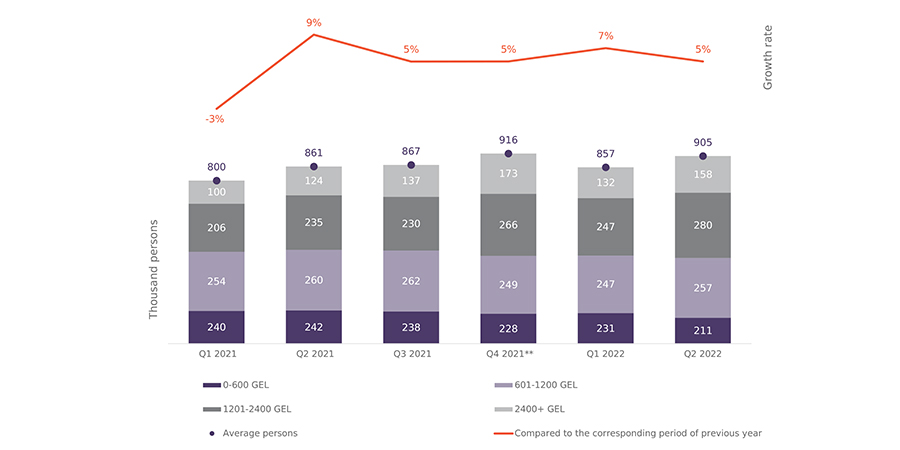
In September 2022, the number of persons receiving a monthly salary increased by 3.5% compared to the corresponding period of 2021 and by 6.3% compared to the corresponding period of 2020.
Overall, in Q2 of 2022, the BAG Employment Barometer amounted to 27.7 points, which is 2.8 points more than in Q1. In Q2 of 2022 year, the Employment Barometer was positive for all sectors.
Overall, according to the BAG Index Survey, in Q2 of 2022, 32.1% of surveyed companies increased their number of employees, 6.3% recorded a decrease, and 61.6% reported no change.
In 2022, from April to September, the total number of vacancies published on jobs.ge amounted to 42,523, which was 37% higher compared to the corresponding period of 2021 and 194% higher compared to the corresponding period of 2020.
In 2022, from April to September, a total of 12,628 vacancies were published in the field of sales/procurement, which was 63% higher than the corresponding period of 2021 and 263% higher compared to the corresponding period of 2020.
Monthly Tourism Update (September, 2022)
2022-10-12 00:00:00
Since the outbreak of the war in Ukraine, the border crossing statistics have shown significant differences in the number of entries and exits by Russians, Belarusians, and Ukrainians. From January to September 2022, the difference between entries and exits of citizens of Russia was equal to 58.6 thousand unique persons.
Despite only a partial recovery in the number of international visits, in Q1 of 2022, the total expenditure of international visitors exceeded the pre-pandemic (Q1 of 2019) value by 21%, while in Q2 of 2022, the total expenditure was only 6% lower than Q2 of 2019.
The average expenditure per visit tripled in Q1 of 2022 and almost doubled in Q2 of 2022, compared to the corresponding periods of 2019. This could be explained by the fact that in the first half of 2022, the average length of stay almost doubled as it increased from 3.8 to 6.4 nights.
Hotel Price Index (September, 2022)
2022-10-12 00:00:00
In Georgia, the average cost of a room in a 3-star hotel was 177 GEL per night in September 2022, while the average cost of a room in a 4-star hotel in Georgia was 287 GEL per night and the average cost of a room in a guesthouse was 115 GEL per night.
The average cost of a room in a 5-star hotel in Georgia in September 2022 was 440 GEL per night. In Kakheti, the average price was 580 GEL, followed by Adjara - 489, Guria - 454 and Tbilisi - 434.
Issue 140: Georgia in International Rankings
2022-10-04 00:00:00
International rankings and indicators help us to understand and assess how countries are performing in different areas. In this bulletin, Georgia’s positions in international rankings and the dynamics therein are reviewed based on the latest data. Georgia’s positions will also be compared with other Eastern Partnership (EaP) countries (Armenia, Azerbaijan, Moldova, Ukraine, and Belarus).
Georgian Economic Climate (Q3, 2022)
2022-09-28 00:00:00
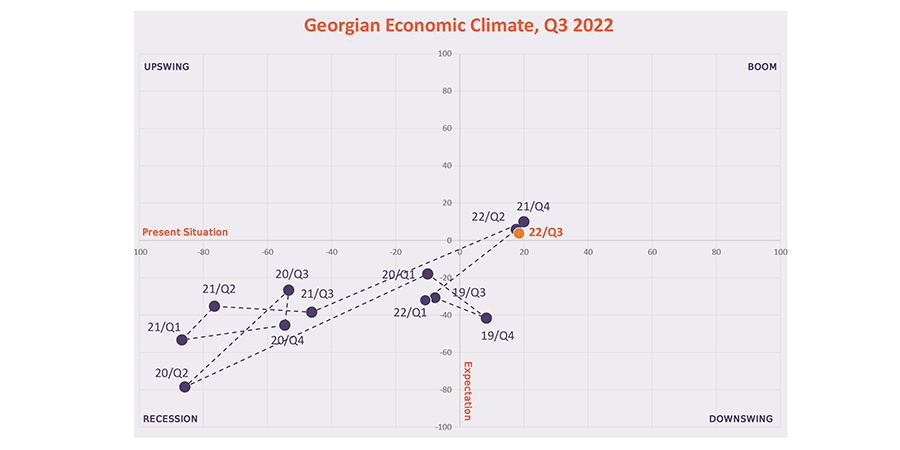
According to a survey of Georgian economists, the economic climate in the country in the third quarter of 2022 has improved compared to both: the second quarter of 2022 and the third quarter of 2021.
In the third quarter of 2022, the surveyed Georgian economists positively assessed Georgia’s present economic situation. Their assessment of the present economic situation has significantly improved compared to both - the second quarter of 2022, as well as third quarter of 2021 when the assessment of the economic situation of the respective quarter was negative.
The surveyed economists’ predictions for Georgia’s economic situation for the next six months were also positive. Though, their expectations have slightly worsened compared to the predictions made for the next six months in the second quarter of 2022, but have significantly improved compared to the third quarter of 2021, when the economists had negative expectations for the next six months of the respective quarter.
Employment Tracker (August, 2022)
2022-09-26 00:00:00
In August 2022, the number of persons receiving a monthly salary increased by 3.5% compared to the corresponding period of 2021 and by 7.7% compared to the corresponding period of 2020.
In 2022, from March to August, the total number of vacancies published on jobs.ge amounted to 39,984, which was 37% higher compared to the corresponding period of 2021 and 197% higher compared to the corresponding period of 2020.
In 2022, from March to August, a total of 11,757 vacancies were published in the field of sales/procurement, which was 64% higher than the corresponding period of 2021 and 258% higher compared to the corresponding period of 2020.
Monthly Tourism Update (August, 2022)
2022-09-19 00:00:00
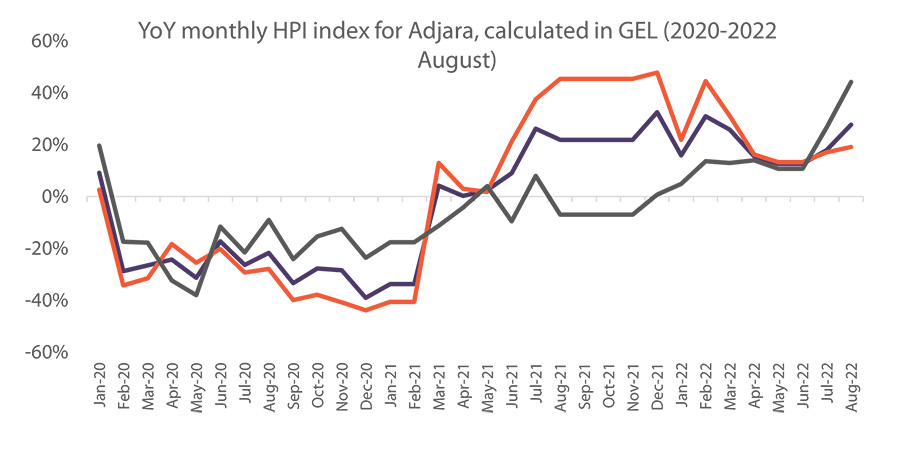
In the third quarter of every year between 2016 and 2020, the number of international visits to Adjara, on average, amounted to 42% of total international visits to Georgia, while contributing up to 14.9% of all domestic visits.
Throughout the past few months, in Adjara in particular and Georgia in general, significant hotel price increases have been evident due to a combination of factors, such as the marked recovery of international tourism, the rapid inflow of Russians, Belarusians, and Ukrainians since the beginning of the Russia-Ukraine war, higher demand for Georgian tourist destinations among domestic visitors, and a rise in prices for essential goods for hotel maintenance.
In the summer of 2022, a significant increase has been observed in average hotel prices compared to the pre-pandemic level in Georgia. Specifically, price increases have been especially apparent in Adjara. Average hotel prices there increased by 16% compared to 2019 and by 25% compared to 2021. Meanwhile, in Batumi, average summer prices compared to the same two years increased by 17% and 23%, respectively.
Hotel Price Index (August, 2022)
2022-09-19 00:00:00
In Georgia, the average cost of a room in a 3-star hotel was 182 GEL per night in August 2022, while the average cost of a room in a 4-star hotel in Georgia was 284 GEL per night and the average cost of a room in a guesthouse was 122 GEL per night.
The average cost of a room in a 5-star hotel in Georgia in August 2022 was 510 GEL per night. In Guria, the average price was 727 GEL, followed by Kakheti - 569 GEL, Adjara - 547 and Tbilisi - 538.
Issue 139: Emigration and Effect of Remittances on Georgian Economy
2022-09-13 00:00:00
Georgia is a country of emigration. Since the mid-1990s, Georgian migration patterns have been characterized as labor emigration driven by socio-economic challenges (high unemployment, poverty, and low salaries). As different studies have indicated, the significant proportion of Georgian labor emigrants reside and work illegally in their host country. The primary motivation for Georgian emigrants is to be able to send money back to their families in Georgia to support them. This bulletin discusses Georgia’s emigration trends and the role of remittances in the Georgian economy on macro and micro levels over the last decade.
Wheat And Flour Sector in Georgia
2022-09-07 00:00:00
Since the spread of COVID-19 at the end of 2019, the ensuing pandemic has caused an economic crisis impacting global food availability and food security. The effects of the pandemic have been aggravated by the war between Russia and Ukraine, two prominent players in global food and agriculture.
In Georgia, since July 2021, the YoY price increase for both wheat flour and wheat bread has shown a dramatic increase. The YoY price increase for wheat flour reached an all-time maximum of 36.5% in July 2022, while for wheat bread, it peaked in June 2022 at 36.3%.
Finally, considering Georgia’s high dependence on imports from Russia and low self-sufficiency in terms of domestic wheat production, it is crucial that the dialogue between potential trade partners, such as Kazakhstan and Turkey, be intensified in the long run to diversify the wheat market and ensure food security for Georgia.
Maritime Trade and Port Infrastructure in Black Sea Countries
2022-09-06 00:00:00
The Black Sea region is often referred to as a gateway between Europe and Asia, though its potential benefits are far from being fully realized. This is especially true for the naval trade. Meanwhile, the enhancement of maritime transportation and the improvement of port infrastructure becomes more and more desirable if not indispensable for economic development of the region.
Recent drastic changes – namely the ongoing Russia-Ukraine war, which has further exacerbated the disruptions caused by the COVID-19 pandemic, are significantly hindering this development. At the same time, it is yet ambiguous how the war might alter the development of maritime trade in the region. Accordingly, this bulletin aims to analyze the pre-war state of the Black Sea region’s logistics, port activity, and shipping connectivity and then provide some insights into the potential impact of the ongoing war.
Employment Tracker (July, 2022)
2022-08-23 00:00:00
In July 2022, the number of persons receiving a monthly salary increased by 1% compared to the corresponding period of 2021 and by 4.5% compared to the corresponding period of 2020.
In 2022, from February to July, the total number of vacancies published on jobs.ge amounted to 38,048, which was 38% higher compared to the corresponding period of 2021 and 155% higher compared to the corresponding period of 2020.
In 2022, from February to July, a total of 11,179 vacancies were published in the field of sales/procurement, which was 62% higher than the corresponding period of 2021 and 215% higher compared to the corresponding period of 2020.
Special Issue: Overview of the Measures Taken to Support the Ukrainian Economy During the War
2022-08-18 00:00:00
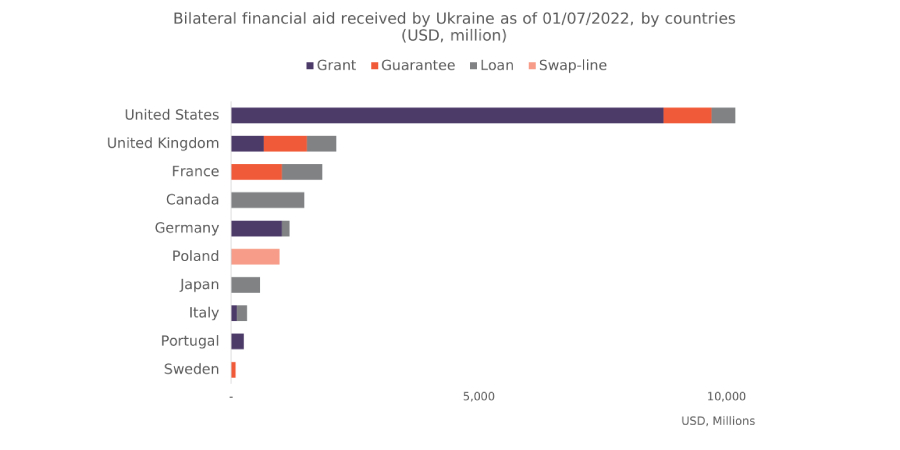
The Ukrainian authorities have recently presented Ukraine’s National Recovery Plan and while it is indeed important for the Government to have a plan for Ukraine’s post-war reconstruction, it is also crucial to analyze what instruments the state is using now to survive the war economically and to safeguard business activity, primarily of SMEs.
Since Russia’s invasion of Ukraine on 24 February 2022, martial law has been in effect across the whole territory of Ukraine. Alongside restrictions on the movement of male Ukrainian citizens aged 18 to 60 from their places of residence, the imposition of curfews, and other laws needed to repel the armed aggression and ensure national security, the Ukrainian government has also adopted special laws and measures aimed at supporting business and economic activity in the country.
To ensure the resilience of the wartime economy, a significant portion of assistance has already been provided to the Ukrainian government by partner countries and international organizations. Currently, as Ukraine is at the first stage of its recovery plan, also referred to as the “wartime economy” or “urgent/resilience” stage, the total funding needs for 2022 are estimated at USD 60-65 billion.
Hotel Price Index (July, 2022)
2022-08-16 00:00:00
In Georgia, the average cost of a room1 in a 3-star hotel was 173 GEL per night in July 2022, while the average cost of a room in a 4-star hotel in Georgia was 276 GEL per night and the average cost of a room in a guesthouse was 118 GEL per night.
The average cost of a room in a 5-star hotel in Georgia in July 2022 was 563 GEL per night. In Guria, the average price was 1001 GEL, followed by Tbilisi - 619 GEL, Adjara - 612 and Kakheti - 522.
Monthly Tourism Update (July, 2022)
2022-08-16 00:00:00
In the past few months, significant increases in hotel prices have been evident due to a combination of factors, such as the partial recovery of international tourism, the rapid inflow of Russians, Belarusians, and Ukrainians since the beginning of the war, a higher domestic tourism demand among Georgians, and the increase in prices for essential goods for hotel services.
Issue 2: Macro Overview
2022-08-03 00:00:00
Macro Overview aims to review the recent trends and developments of the Georgian economy and sets the stage for what is to come in the approaching months.
Macro overview highlights some of the key indicators in Georgian economy such as inflation, economic growth, and employment. It also explores external sector of the economy, overviewing trends in tourism, trade, remittances and FDI.
The publication consolidates and includes analytical pieces from the PMC Research Center’s periodic newsletters, such as economic outlook and indicators series, monthly tourism update, black sea bulletin, employment tracker. It also includes insights about the expectations of businesses and economists about the future of the Georgian economy from our Georgian economic climate and bag indexes.
Employment Tracker (June, 2022)
2022-07-26 00:00:00
In June 2022, the number of persons receiving a monthly salary increased by 4.3% compared to the corresponding period of 2021 and by 11.7% compared to the corresponding period of 2020.
According to the BAG Index Survey, overall, in Q2 of 2022, 29.9% of surveyed companies increased their number of employees, 5.6% recorded a decrease, and 64.5% reported no change.
In 2022, from January to June, the total number of vacancies published on jobs.ge amounted to 36,584, which was 51% higher compared to the corresponding period of 2021 and 123% higher compared to the corresponding period of 2020.
In 2022, from January to June, a total of 10,695 vacancies were published in the field of sales/procurement, which was 112% higher than the corresponding period of 2021 and 165% higher compared to the corresponding period of 2020.
Monthly Tourism Update (June, 2022)
2022-07-20 00:00:00
Since the outbreak of the war in Ukraine, the border crossing statistics have revealed significant differences in the number of entries and exits by Russians, Belarusians, and Ukrainians. In May 2022, the gap between the number of entries and exits declined significantly with the number of exists increasing significantly for Ukrainians, while in the same month, for Russians and Belarusians, the number of exits exceeded the number of entries.
Since the beginning of the war in Ukraine, travel receipts from Russia have shown a significant increase, while in March 2022 receipts from Belarus experienced a drastic jump of 552% compared to February 2022 and this high level has been maintained for the following three months.
Hotel Price Index (June, 2022)
2022-07-20 00:00:00
In Georgia, the average cost of a room in a 3-star hotel was 157 GEL per night in June 2022, while the average cost of a room in a 4-star hotel in Georgia was 245 GEL per night and the average cost of a room in a guesthouse was 110 GEL per night. The average cost of a room in a 5-star hotel in Georgia in May 2022 was 519 GEL per night. In Guria, the average price was 702 GEL, followed by Kakheti - 575, Tbilisi - 568 GEL and Adjara - 552.
Issue 138: Poverty in Georgia (2017-2021)
2022-07-13 00:00:00
Poverty alleviation remains one of the biggest challenges for the world, including Georgia. The COVID-19 crisis has worsen the problem as many households’ income shrank even further due to the crisis. For instance, according to a public opinion poll conducted by NDI in 2021, 37% of respondents indicated that poverty was the main issue they were facing. Against this background, we take a closer look at poverty in Georgia and discuss trends and changes therein over the last five years.
Construction Sector in Georgia
2022-06-30 00:00:00
In this issue, we overview major economic indicators in the construction sector, construction permits, commercial bank mortgage loans for real estate purchases, and construction-related price indices. In addition to that, the results of the BAG business index survey regarding the sales, sales prices, employment, and factors hindering business activity in the construction sector are also provided.
Georgian Economic Climate (Q2, 2022)
2022-06-23 00:00:00
According to a survey of Georgian economists, the economic climate in the country in the second quarter of 2022 has improved compared to the first quarter of 2022, as well as compared to the second quarter of 2021.
With respect to the covered period, the surveyed Georgian economists positively assessed Georgia’s present economic situation. Meanwhile, in the first quarter of 2022 and in the second quarter of 2021, the assessment of the economic situation for the respective quarters was negative. Thus, in the second quarter of 2022, their assessment of the present economic situation has significantly improved compared to both quarters.
The surveyed economists’ predictions for Georgia’s economic situation for the next six months were also positive. In fact, their expectations were much more optimistic compared to the predictions they made for the next six months in both the first quarter of 2022 and the second quarter of 2021.
Employment Tracker (May, 2022)
2022-06-22 00:00:00
In May 2022, the number of persons receiving a monthly salary increased by 5% compared to the corresponding period of 2021 and by 14.6% compared to the corresponding period of 2020.
From December 2021 to May 2022, the total number of vacancies published on jobs.ge amounted to 33,703, which was 67% higher compared to the corresponding period of 2020-2021 and 101% higher compared to the corresponding period of 2019-2020.
From December 2021 to May 2022, a total of 9,635 vacancies were published in the field of sales/procurement, which was 91% higher than the corresponding period of 2020-2021 and 128% higher compared to the corresponding period of 2019-2020.
Issue 137: Pension System in Georgia (2017-2021)
2022-06-16 00:00:00
As Georgia struggles to overcome various social and economic problems, pensions remain among the country’s central issues.
For many years, Georgia’s pension system had comprised only a state pension based on a solidarity principle. However, the state pension had not been sufficient to allow retired persons to maintain acceptable living standards. Therefore, pension system reform was a topic of hot discussion for a long time in Georgia and pertinently, in 2018, a funded pension scheme was integrated into the pension system.
The following bulletin will review the key changes that have taken place in the pension system over the last five years.
Monthly Tourism Update (May, 2022)
2022-06-14 00:00:00
• Following the easing of travel restrictions by many countries, the outbound international visits by residents of Georgia have shown a significant recovery, reaching almost half of the pre-pandemic level by Q1 2022.• The main destination for outbound Georgian visitors was Turkey, followed by Russia, Armenia, and EU countries. • In Q1 2022, the expenditure of outbound visitors reached GEL 285 mln, which is 14% lower compared to Q1 2020, and 21% lower compared to Q1 2019.
Hotel Price Index (May, 2022)
2022-06-14 00:00:00
In Georgia, the average cost of a room in a 3-star hotel was 148 GEL per night in May 2022, while the average cost of a room in a 4-star hotel in Georgia was 255 GEL per night and the average cost of a room in a guesthouse was 105 GEL per night.
The average cost of a room in a 5-star hotel in Georgia in May 2022 was 468 GEL per night. In Kakheti, the average price was 581 GEL, followed by Tbilisi - 558, Guria - 474 GEL and Adjara - 457.
The Sixth Analytical Report: Sector and Value Chain Analytics in Georgia
2022-06-06 00:00:00
This annual report provides an analysis of economic trends, as well as denoting the challenges and opportunities (in local, regional, and global contexts) across selected value chains within six sectors to improve evidence-based decision-making through the provision of quality information and analytics. The specific sectors are tourism, creative industries, light manufacturing, shared intellectual services, waste management and recycling, along with cross-cutting sectors. The analysis tracks trends of 2021.
Issue 136: The Roles of Russia and Ukraine in Georgia’s Food and Energy Security
2022-06-02 00:00:00
PMC RC stands firmly with Ukraine, supports its sovereignty and territorial integrity, and condemns Russia’s ongoing military aggression. While the most devastating outcome of this war is the humanitarian catastrophe in Ukraine and the destroyed lives of people, it is also essential to discuss the consequences of this war on the global economy.
Georgia lacks its own production and is highly dependent on imports of essential food and energy goods. Considering Russia and Ukraine are prominent players in the global trade of food and agricultural products, while Russia is one of the world’s largest exporters of energy products, in this bulletin, we discuss threats to the food and energy security of Georgia amid Russia-Ukraine War.
Employment Tracker (April, 2022)
2022-05-24 00:00:00
In April 2022, the number of persons receiving a monthly salary increased by 3% compared to the corresponding period of 2021 and by 15% compared to the corresponding period of 2020.
From November 2021 to April 2022, the total number of vacancies published on jobs.ge amounted to 32,301, which was 81% higher compared to the corresponding period of 2020-2021 and 69% higher compared to the corresponding period of 2019-2020.
From November 2021 to April 2022, a total of 9,112 vacancies were published in the field of sales/procurement, which was 109% higher than the corresponding period of 2020-2021 and 82% higher compared to the corresponding period of 2019-2020.
Issue 135: Vocational Education in Georgia (2017-2021)
2022-05-23 00:00:00
In recent years strengthening vocational education and training (VET) has been among the top priorities of Georgia’s education strategy. In the process, several important reforms have been undertaken including the establishment of the “Vocational Skills Agency”, with the primary goal of increasing private sector participation in VET, and amendments to the rules regarding the authorization of VET institutions, which are widely believed to improve the quality of education. Moreover, specific goals were set under the “2021-2025 Vocational Education Strategy” such as increasing the number of VET students to support the country’s socio-economic development, ensuring their competitiveness by developing professional and general skills, and providing lifelong educational opportunities. The following bulletin discusses the trends of development in VET in Georgia over the last five years.
E-Work Development in Georgia
2022-05-17 00:00:00
This paper explores the challenges and opportunities teleworking presents in the rural areas of Georgia and seeks answers on how to resolve the existing problems while taking advantage of the transitions the labor market is undergoing. It aims to analyze the institutional relationships, barriers, and opportunities to promoting change in the e-work market or workforce development system in the rural areas of Georgia. The paper also sets out to identify the potential policy interventions that could be taken to support this change.
The Fifth Analytical Report: Sector and Value Chain Analytics in Georgia
2022-05-16 00:00:00
This quarterly report provides an analysis of economic trends, as well as denoting the challenges and opportunities (in local, regional, and global contexts) in selected value chains within six sectors to improve evidence-based decision-making by providing quality information and analytics. The specific sectors covered are tourism; creative industries; light manufacturing; shared intellectual services; solid waste management and recycling; and cross-cutting sectors. The analysis tracks trends from the third quarter of 2021.
Monthly Tourism Update (April, 2022)
2022-05-13 00:00:00
In 2021, the recovery of international tourist arrivals to Georgia (31% of 2019 figure) was lower both compared to European (38%) and Central/Eastern European (36%) averages, but higher compared to the global average (28%).
Among the selected international benchmark countries (Albania, Croatia, and Greece), Georgia performed the worst, while Albania almost recovered to 2019 levels (89%).
Compared to its neighboring countries, Georgia performed worse than Turkey (55%) and Armenia (46%), but better than Azerbaijan (25%).
Hotel Price Index (April, 2022)
2022-05-13 00:00:00
In Georgia, the average cost of a room in a 3-star hotel was 141 GEL per night in March 2022, while the average cost of a room in a 4-star hotel in Georgia was 231 GEL per night and the average cost of a room in a guesthouse was 103 GEL per night.
The average cost of a room in a 5-star hotel in Georgia in March 2022 was 413 GEL per night. In Tbilisi and Kakheti, the average price was 493 GEL, followed by Guria - 398 GEL and Adjara - 390.
Microfinance Sector in Georgia (2018-Q1 2022)
2022-05-10 00:00:00
Financial institutions play a pivotal role in the development of the Georgian economy. Indeed, while the financial system remains dominated by commercial banks, microfinance institutions (MFIs) are the biggest non-bank lending institutions based on portfolio volume.
The PMC RC periodically publishes sector snapshots on state of MFI sector in Georgia and in this bulletin the state of sector during the period of 2018-Q1 2022 will be overviewed.
Monthly Tourism Update (March, 2022)
2022-05-02 00:00:00
In March 2022, the number of Russian, Belarusian and Ukrainian travelers entering country increased significantly and reached 45.1 thsd, 20 thsd and 16.9 thsd, respectively. The month over month (MoM) increase was especially high for Belarus (281%) and Russia (69%). Meanwhile, the exit from Georgia by Belarusian and Russian visitors has also shown a significant MoM increase.
In March 2022, remarkable differences can be noticed between the number of entries and exits, indicating that significant part of the travelers, especially from Russia and Belarus, have not left the country.
In March 2022, the travel receipts from Belarus and Russia showed MoM increase of 551% and 133%, respectively, which again strengthens the observation of the rapid inflow of travelers from Russia and Belarus.
Hotel Price Index (March, 2022)
2022-05-02 00:00:00
In Georgia, the average cost of a room in a 3-star hotel was 152 GEL per night in March 2022, while the average cost of a room in a 4-star hotel in Georgia was 246 GEL per night and the average cost of a room in a guesthouse was 114 GEL per night.
The average cost of a room in a 5-star hotel in Georgia in March 2022 was 406 GEL per night. In Tbilisi, the average price was 574 GEL, followed by Kakheti - 451 GEL, Samtskhe-Javakheti - 373 GEL and Guria - 352 GEL.
Employment Tracker (March, 2022)
2022-04-26 00:00:00
In March 2022, the number of persons receiving a monthly salary increased by 4.9% compared to the corresponding period of 2021 and by 5.3% compared to the corresponding period of 2020.
From October 2021 to March 2022, the total number of vacancies published on jobs.ge amounted to 32,380, which was 91% higher compared to the corresponding period of 2020-2021 and 39% higher compared to the corresponding period of 2019-2020.
From October 2021 to March 2022, a total of 2,330 vacancies were published in the field of informational technologies, which was 33% higher than the corresponding period of 2020-2021 and 48% higher compared to the corresponding period of 2019-2020.
Marine Fishing Sector in Georgia
2022-04-19 00:00:00
The marine fishing cluster in Georgia is mainly based in Poti in the Samegrelo-Zemo Svaneti region. The primary activity for companies therein is fishing in the Black Sea. Currently, enterprises mainly deploy outdated, Soviet-era vessels in their operations, which are in acute need of upgrading. However,significant measures have been taken to tackle this pressing challenge.
This issue is largely based on the “Marine Fishing Cluster Diagnostic Study in Samegrelo-Zemo Svaneti Region” published by PMC Research Center for United Nations Industrial Development Organization (UNIDO) under the “EU Innovative Action for Private Sector Competitiveness in Georgia (EU IPSC).”
Special Issue: Assessment of the Effectiveness of Sanctions Against Russia
2022-04-06 00:00:00
The sanctions imposed on Russia are unprecedented in their scale and speed. In total, including restrictions already been in place before the 2022 invasion, Russia has been the subject of over 5,000 restrictive measures enacted by 41 countries, which makes it the world’s most sanctioned country. This bulletin provides an overview of the most important sanctions that have been imposed on Russia following its invasion of Ukraine on February 24, 2022 and an assessment of the potential effectiveness of those sanctions.
Issue 134: Subsistence Allowance in Georgia (2017-2021)
2022-03-30 00:00:00
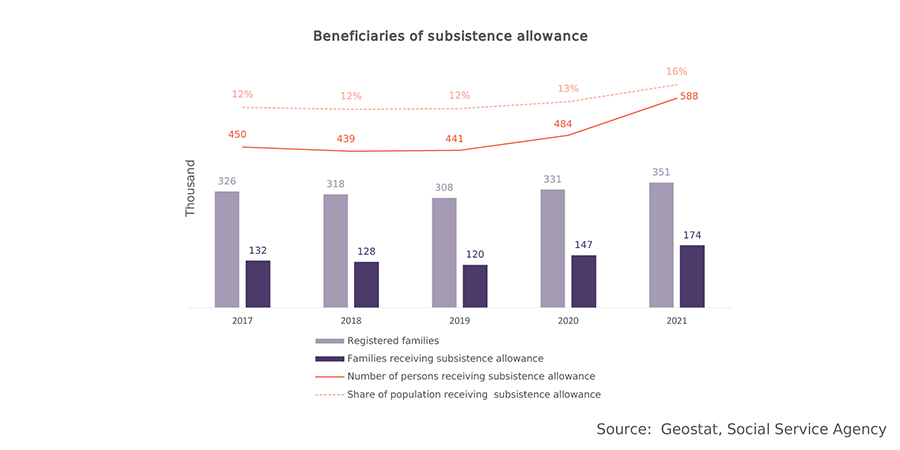
Socio-economic problems remain significantly challenging for Georgia. Specifically, in 2020, 21.3% of the Georgian population fell under the absolute poverty line. To support the most vulnerable within society, states ordinarily provide diverse social assistance, sometimes including subsistence allowance.
In Georgia, the subsistence allowance program provides financial aid to the country’s poorest families, which is determined by the Social Service Agency rating system. The lower a family’s rating, the poorer their financial position. Recent studies have however indicated that the program does not help beneficiaries to get out of poverty and instead encourages them to maintain a low income in order to receive the allowance. Moreover, the Georgian government plans to significantly reform the program in the nearest future. According to the planned reform, instead of providing money directly, families will be given job opportunities to improve their financial positions. Before changes are made within the program, we take a closer look at the dynamics and structure of the population to have been receiving the subsistence allowance over the last five years.
Supporting E-Work Market Development in Rural Areas
2022-03-29 00:00:00
This publication includes the survey findings of the opportunities for teleworking, among employees of business companies. The survey was conducted through telephone interviews in January-May 2021 and predominantly covered large and medium sized companies in five self-governing cities: Tbilisi, Kutaisi, Batumi, Rustavi and Poti.
The survey was prepared in the framework of the project “Supporting E-work Market Development in Rural Areas”, in assistance from the European Union (EU) and the United Nations Development Programme (UNDP) under the EU Neighbourhood Programme for Agriculture and Rural Development (ENPARD).
Employment Tracker (February, 2022)
2022-03-28 00:00:00
In February 2022, the number of persons receiving a monthly salary increased by 7% compared to the corresponding period of 2021 and by 3% compared to the corresponding period of 2020.
In February 2022, the average share of persons receiving a monthly salary up to 600 GEL amounted to 25.5%, which was 3 percentage points less than the corresponding period of 2021, and 7 percentage points lower than the corresponding period of 2020.
In February 2022, the average share of persons receiving a monthly salary of more than 2,400 GEL amounted to 15.7%, which was 2.8 percentage points more compared to the corresponding period of 2021, and 4 percentage points higher than the corresponding period of 2020.
In February 2022, the number of persons receiving a monthly salary higher than 9 600 GEL, increased by 37% compared to 2021 and 50% compared to 2020.
Monthly Tourism Update (February, 2022)
2022-03-23 00:00:00
In this issue we will discuss the hotel price dynamics of winter destinations in Georgia.
According to the Georgian National Tourism Administration (GNTA), Mtskheta-Mtianeti and Samtskhe-Javakheti have been among the top visited regions in winter season, largely due to major ski resorts (Gudauri and Bakuriani) being located there.
Throughout 2020, the YoY HPI was negative for both regions, with a more pronounced YoY decline in Samtskhe-Javakheti. As 2021 wore on, hotel prices increased significantly and from December 2021 to February 2022 the HPI in Mtskheta-Mtianeti averaged 23.5%, while for Samtskhe-Javakheti it was 15.2%.
The average monthly hotel prices were higher in Mtskheta-Mtianeti region compared to Samtskhe-Javakheti from January 2019 to February 2022. In particular, during winter months the average hotel price in Mtskheta-Mtianeti was 175 GEL, which was 12.9% higher compared to Samtskhe-Javakheti (155 GEL).
Hotel Price Index (February, 2022)
2022-03-23 00:00:00
In Georgia, the average cost of a room in a 3-star hotel was 140 GEL per night in February 2022, while the average cost of a room in a 4-star hotel in Georgia was 234 GEL per night and the average cost of a room in a guesthouse was 113 GEL per night. The average cost of a room in a 5-star hotel in Georgia in February 2022 was 416 GEL per night. In Tbilisi, the average price was 556 GEL, followed by Kakheti - 482 GEL, Samtskhe-Javakheti - 389 GEL and Guria - 387 GEL.
Georgian Economic Climate ( Q1, 2022 )
2022-03-10 00:00:00
According to a survey of Georgian economists, the economic climate in the country in the first quarter of 2022 has worsened compared to the fourth quarter of 2021 but has improved compared to the first quarter of 2021. In the covered period, the surveyed Georgian economists issued a negative assessment of Georgia’s present economic situation. For the first quarter of 2022 the present economic situation was deemed to have worsened compared to the fourth quarter of 2021, albeit to have significantly improved compared to the first quarter of 2021. The surveyed economists’ predictions for Georgia’s economic situation for the next six months were even more negative. In fact, their expectations for this period were lower compared to their predictions made in the fourth quarter of 2021, but higher compared to the ones made in the first quarter of 2021.
Issue 133: Foreign Students and Foreign Language Programs Dynamics in Georgia
2022-02-28 00:00:00
In recent years, the number of international students has been increasing worldwide. For instance, according to UNESCO data from 2015 to 2019, the number of international students increased from 4.8 million to 6.1 million. Moreover, studies have illustrated that international students, directly and indirectly, contribute to the host countries’ economies through tuition fees, living costs, transportation, travel, and other aspects. In this issue, we overview the dynamics of foreign students in Georgia and their financial contribution to the country’s educational sector.
Monthly Tourism Update (January, 2022)
2022-02-21 00:00:00

The number of international travelers increased by 471.2% in January 2022, compared to the same period of 2021, and declined by 62.3% compared to the same period in 2019. Meanwhile, the number of international visitors increased by 424.4% (2022/2021) and declined by 59.5% (2022/2019), and the number of international tourists increased by 455.7% (2022/2021) and declined by 46.5% (2022/2019).
In January 2022, the Hotel Price Index (HPI) showed a significant 5.3% increase in prices compared to 2021, with the highest price increases recorded in Samtskhe-Javakheti (32.8%) and Mtskheta-Mtianeti (20.6%) regions.
The number of employees in the HORECA industry increased steadily from 2016 to 2019 with an average annual growth rate of 10.1%. However, in 2020 the number of employees dropped by 33.2%. Even though some positive trends have emerged since Q2 of 2021, the number of employees in the industry is still well below pre-pandemic levels.
The nominal average monthly salaries of employees in the HORECA industry also increased steadily throughout the 2016-2019 period. Since the pandemic began, salaries have been declining significantly. However, since Q2 2021, salaries recorded a considerable YoY increase, which can be explained by the high inflation rate, partial alleviation of restrictions, and higher demand in the HORECA industry.
Hotel Price Index (January, 2022)
2022-02-21 00:00:00
In Georgia, the average cost of a room in a 3-star hotel was 132 GEL per night in January 2022, while the average cost of a room in a 4-star hotel in Georgia was 237 GEL per night and the average cost of a room in a guesthouse was 107 GEL per night.
The average cost of a room in a 5-star hotel in Georgia in January 2022 was 441 GEL per night. In Kakheti, the average price was 567 GEL, followed by Tbilisi - 524 GEL, Samtskhe-Javakheti - 487 GEL and Adjara - 362 GEL.
Black Sea Countries in International Rankings
2022-02-14 00:00:00
In this bulletin, we discuss the positions held by Black Sea countries in various international rankings (indicators and indices). This helps us to understand and assess how those states are performing in different areas, to detect what similarities and differences can be found between the countries of the region, as well as to compare the performance of Black Sea countries with that of the rest of the world.
Issue 1: Macro Overview
2022-02-03 00:00:00
PMC Research Center has launched a new periodic newsletter entitled Macro Overview. It aims to review the recent trends and developments of the Georgian economy and sets the stage for what is to come in the approaching months.
Macro overview highlights some of the key indicators in Georgian economy such as inflation, economic growth, and employment. It also explores external sector of the economy, overviewing trends in tourism, trade, remittances and FDI.
The publication consolidates and includes analytical pieces from the PMC Research Center’s periodic newsletters, such as economic outlook and indicators series, monthly tourism update, black sea bulletin, employment tracker. It also includes insights about the expectations of businesses and economists about the future of the Georgian economy from our Georgian economic climate and bag indexes.
Employment Tracker (December, 2021)
2022-01-26 00:00:00
The Employment Tracker is a new periodic publication developed by PMC Research Center, in collaboration with Jobs.ge.
The tracker produces valuable insights into the Georgian labor market as it lays out the trajectory of employment and salaries, most demanded job categories, and expectations of specific economic sectors regarding their employment plans. Using real-time data, the insights produced by the tracker can prove crucial to rapid analysis and decision-making process with regards to the labor market.
The publication illustrates a 6-month trend of individuals receiving salary and the number of vacancies posted on Jobs.ge. Additionally, in every quarter based on the BAG Index Survey results, the Employment Tracker will provide information on changes in the number of employees of the Business Association Georgia (BAG) member companies and their expectations regarding the changes in employment.
Monthly Tourism Update (December, 2021)
2022-01-21 00:00:00
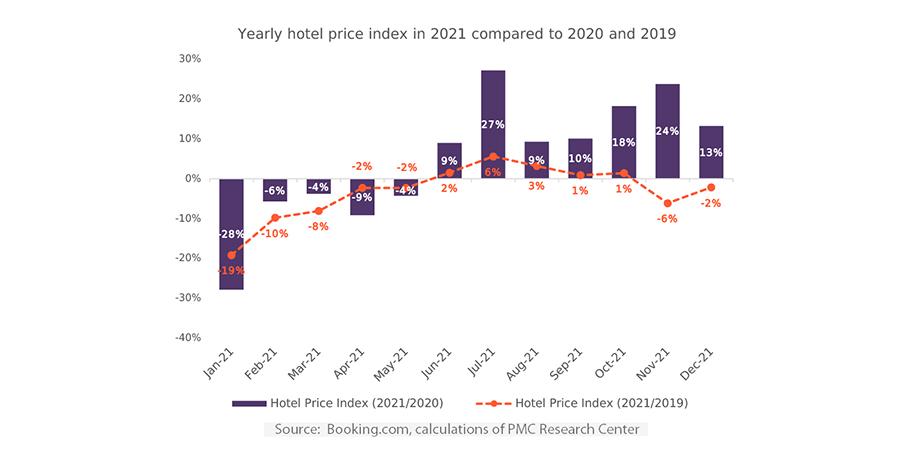
The number of international travelers increased by 249.2% in December 2021, compared to the same period of 2020, and declined by 73.3% compared to the same period in 2019. Meanwhile, the number of international visitors increased by 226.4% (2021/2020) and declined by 69.9% (2021/2019), and the number of international tourists increased by 239.1% (2021/2020) and declined by 53.7% (2021/2019).
At the beginning of 2021, the Hotel Price Index (HPI) was negative compared to both 2020 and 2019, however the monthly prices showed a significant YoY increase from June 2021 onwards and recovered considerably compared to 2019 levels.
In 2021, the average monthly prices of hotels exceeded both the pre-pandemic level (by 23.7%) and the 2020 level (by 39.1%). Looking at specific categories, the price increase has been most significant for 5-star hotels (by 12.1% compared to 2019 and by 51.4% compared to 2020), while for 3-star hotels the price increase has been least significant (by 4.8% compared to 2019 and by 20.1% compared to 2020).
Hotel Price Index (December, 2021)
2022-01-21 00:00:00
In Georgia, the average cost of a room in a 3-star hotel was 135 GEL per night in December 2021, while the average cost of a room in a 4-star hotel in Georgia was 246 GEL per night and the average cost of a room in a guesthouse was 106 GEL per night.
The average cost of a room in a 5-star hotel in Georgia in December 2021 was 423 GEL per night. In Kakheti, the average price was 548 GEL, followed by Tbilisi - 524 GEL, Guria – 398 GEL and Adjara - 391 GEL.
Issue 14: Economic Growth Forecasts in Ukraine: 2022
2022-01-14 00:00:00
Nearly two years since the outbreak of COVID-19, the spread of the virus itself, vaccination rates, and new variants, continue to shape the speed and strength of economic recovery. In the case of Ukraine, geopolitical and domestic political tensions are also important variables to have been hindering economic growth. In this issue, we provide an overview of the ongoing economic recovery in Ukraine and try to supply an economic forecast for the country for 2022, looking at the performance of each economic sector in the process.
Electricity Market Prices and Georgia’s Energy Security
2021-12-22 00:00:00
This policy research paper aims to draw the attention of stakeholders in Georgia’s energy sector to the issue of prices, their importance in energy security, and electricity supply security. The paper firstly reviews the existing academic and policy literature and afterwards analyses the current structure of the wholesale electricity market in Georgia to identify different prices and payment schemes. This analysis of the Georgian regulatory framework, along with current data and tendencies, allows us to identify some fundamental issues that are inherent in the structure of the ongoing wholesale electricity market in Georgia. As a result, this policy research paper highlights some challenges that need resolving in order to strengthen the security of supply in the electricity market.
Issue 13: Ukraine in International Rankings
2021-12-21 00:00:00
International rankings and indicators help us to understand and assess how countries are performing in different areas. In this bulletin, Ukraine’s positions in international rankings and the dynamics therein are reviewed based on recent data. Its positions will also be compared with other Eastern Partnership (EaP) countries (Armenia, Azerbaijan, Belarus, Georgia, and Moldova).
Monthly Tourism Update (November, 2021)
2021-12-16 00:00:00
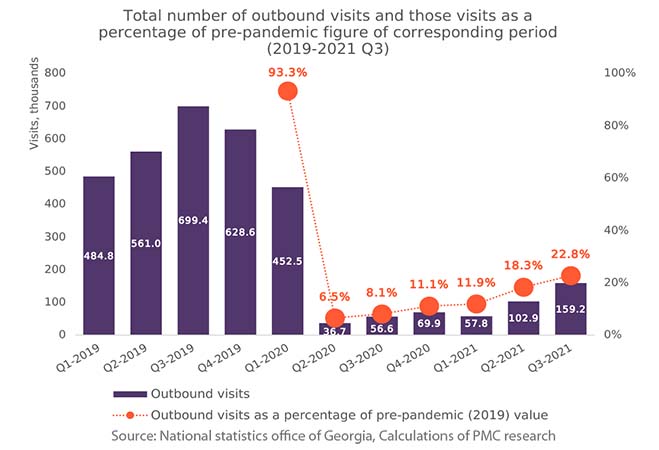
The number of international travelers increased by 288.8% in November 2021, compared to the same period of 2020, and declined by 73.0% compared to the same period in 2019. Meanwhile, the number of international visitors increased by 267.2% (2021/2020) and declined by 69.3% (2021/2019), and the number of international tourists increased by 283.2% (2021/2020) and declined by 55.3% (2021/2019).
Observing the total number of outbound tourism trips taken by Georgians in 2019 and the pandemic-dominated years since shows that from the beginning of 2021, the demand for international travel among Georgians has demonstrated significant recovery trends, the total number of outbound visits reaching 22.6% of pre-pandemic value in Q3 of 2021, due to vaccination rollout and the easing of entry restrictions in many countries.
An evaluation of the common characteristics of Georgian outbound visits shows that the outbound tourism industry is fairly concentrated in terms of the purpose of visit (top 3 purposes amounting 82.4% of total outbound visits) and visited countries (top 4 destinations accounting for 82.9% of total visits), meaning that the alleviation of entry restrictions to such countries positively affects the number of Georgians taking trips abroad.
Hotel Price Index (November, 2021)
2021-12-16 00:00:00
In Georgia, the average cost of a room in a 3-star hotel was 135 GEL per night in November 2021, while the average cost of a room in a 4-star hotel in Georgia was 226 GEL per night and the average cost of a room in a guesthouse was 101 GEL per night.
The average cost of a room in a 5-star hotel in Georgia in November 2021 was 395 GEL per night. In Kakheti, the average price was 555 GEL, followed by Tbilisi - 544 GEL, Guria – 397 GEL and Adjara - 354 GEL.
Access to Finance for SMEs: Alternative Sources of Finance in Georgia
2021-12-14 00:00:00

This paper explores the alternative financial instruments that are or could become available to Georgian SMEs. Through the examination of various secondary sources and several interviews with relevant stakeholders, the paper identifies obstacles and opportunities in the path toward development of two asset-based instruments (leasing and factoring) and two equity-based instruments (crowdfunding and venture capital) that currently have limited availability and/or are being discussed by the regulatory authority of the country.
The paper also looks into several innovative practices that are increasingly being implemented around the world to support the creation of alternative sources of finance, namely open banking, regulatory sandboxes, digital banks, and central bank digital currency (CBDC).Based on secondary sources, the paper also includes three case studies on Lithuania, Poland, and Israel. Meanwhile, the paper ultimately provides several recommendations to foster the development of the alternative instruments reviewed in the paper in Georgia.
The Fourth Analytical Report: Sector and Value Chain Analytics in Georgia
2021-12-06 00:00:00
This quarterly report provides an analysis of economic trends, as well as denoting the challenges and opportunities (in local, regional, and global contexts) across selected value chains within six sectors to improve evidence-based decision-making through the provision of quality information and analytics. The specific sectors are tourism, creative industries, light manufacturing, shared intellectual services, waste management and recycling, along with cross-cutting sectors. The analysis tracks trends from the second quarter of 2021.
Please find the full publication in English and the executive summary of the report in Georgian.
Georgian Economic Climate (Q4, 2021)
2021-12-03 00:00:00
According to a survey of Georgian economists, the economic climate in the country in the fourth quarter of 2021 has improved compared to the third quarter of the same year, as well as compared to the fourth quarter of 2020. Meanwhile, with respect to the current situation, the Georgian economists’ appraisal was again positive and has improved compared to both: the previous quarter this year and the corresponding quarter of the last year. The economists’ predictions for Georgia’s economic situation for the next six months were also positive. Indeed, their expectations for this period were much higher compared to their predictions in the third quarter of 2021 and the forecasts they made in the fourth quarter of 2020.
Issue 132: Inflation Trends in Georgia
2021-11-25 00:00:00
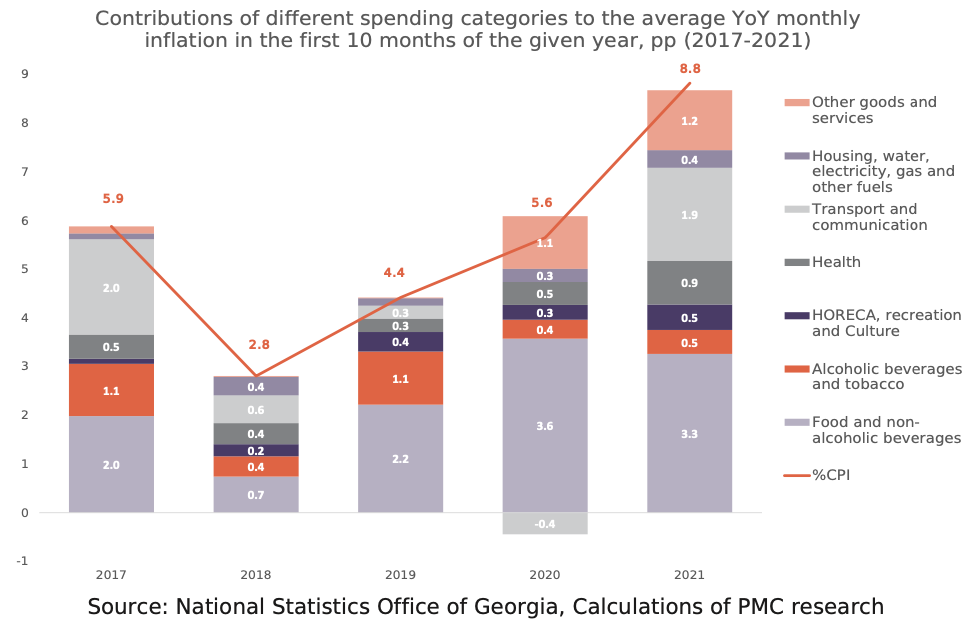
The global economic recovery is ongoing, however the COVID-19 pandemic is still causing considerable volatility. Since the beginning of 2021, inflation rates have increased in both advanced and emerging economies, generally driven by pandemic-related supply-demand mismatches and rapidly rising commodity prices, following a global decline in inflation over the course of 2020. According to the latest forecasts, for most countries upward price pressures are expected to subside with a return to pre-pandemic levels by mid-2022. With this in mind, it is pertinent to compare the inflationary trends of Georgia with global patterns.
In Georgia, the year-over-year (YoY) Consumer Price Index (CPI), which measures the average price of goods and services acquired by consumers compared to the reference period, has proved relatively similar to global trends, as in December 2020 the inflation rate showed a significant decline of 4.6 percentage points compared to December 2019, reaching 2.4%, major decrease (25.4 pp) in prices coming from “housing, water, electricity, gas and other fuels” category, which can be explained by the introduction of utility subsidies for households from November 2020 and plummeting global oil prices in the middle of 2020. This figure was still higher than the lowest figure of the reporting period which was recorded in December 2018 (1.5%). Since the beginning of 2021, monthly YoY CPI inflation has been increasing sharply, surpassing pre-pandemic levels, and reaching its peak to date of 12.8% in October 2021 with a 10 pp increase from the beginning of the year.
On the contrary, YoY monthly core inflation increased in the middle of 2020, reaching 6.6% in June 2020 (with significant increases in prices of routine household maintenance, healthcare, and restaurants and hotels) and this has continued to be relatively stable with a monthly average value of 5.8% over the 2020-2021 period, while the pre-pandemic (2017-2019) monthly average was equal to 3.1%. The magnitude of the fluctuations was significantly lower in the case of core inflation compared to CPI inflation, which could be explained by the fact that the most significant price variations have tended to come under the food and energy categories.
Monthly Tourism Update (October, 2021)
2021-11-18 00:00:00
The number of international travelers increased by 324.3% in October 2021, compared to the same period of 2020, and declined by 71.8% compared to the same period in 2019. Meanwhile, the number of international visitors increased by 313.7% (2021/2020) and declined by 69.1% (2021/2019), and the number of international tourists increased by 331.5% (2021/2020) and declined by 57.0% (2021/2019).
An observation of the total number of domestic tourism visits in Georgia in 2019 and then throughout the pandemic revealed that since the end of 2020 the numbers surpassed pre-pandemic levels significantly.
The total expenses of domestic visitors in Q2 2021 reached GEL 610 million, which is 70.7% higher than in the corresponding period of 2019, and 128.1% higher compared to Q2 2020.
Hotel Price Index (October, 2021)
2021-11-18 00:00:00
In Georgia, the average cost of a room in a 3-star hotel was 136 GEL per night in October 2021, while the average cost of a room in a 4-star hotel in Georgia was 246 GEL per night and the average cost of a room in a guesthouse was 99 GEL per night.
The average cost of a room in a 5-star hotel in Georgia in October 2021 was 436 GEL per night. In Kakheti, the average price was 615 GEL, followed by Tbilisi - 588 GEL, Adjara – 416 GEL and Guria - 403 GEL.
Issue 131: Foreign Direct Investment Trends in Georgia
2021-11-01 00:00:00
For developing countries, attracting FDI has great potential to serve as a tool to achieve higher economic growth through reducing unemployment, increasing exports, boosting productivity, and improving capital inflows. During the last two decades, Georgia has adopted many reforms to eliminate obstacles in the way of doing business and to attract foreign investors. As a result, Georgia became one of the best performers in the world according to international indices on doing business and openness to investments, and recorded substantial growth in FDI, especially in the period of 2014-2017. However, those reforms have not been sufficient to ensure a prolonged steady inflow of FDI nor have they maximized the potential gains from foreign investment.
Monthly Tourism Update (September, 2021)
2021-10-22 00:00:00
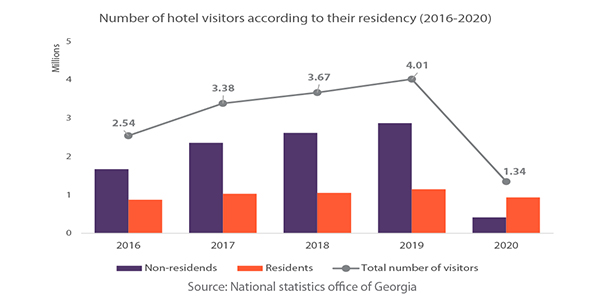
The number of international travelers increased by 362.5% in September 2021, compared to the same period of 2020, and declined by 73.1% compared to the same period in 2019. Meanwhile, the number of international visitors increased by 348.8% (2021/2020) and declined by 71.1% (2021/2019), and the number of international tourists increased by 401.3% (2021/2020) and declined by 61.1% (2021/2019);
The hotel industry of Georgia had been growing steadily before the pandemic struck, with a significant increase in the number of hotels and considerable growth in the number of people employed in the sector. In 2020, the previously positive trends in major industry indicators reversed which had a large economic impact, causing a 37.3% decrease in the number of hotels operating in Georgia;
During the first year of the pandemic, the role of Georgian residents in tourism increased significantly as they made up 69.4% of total visitors, while the share of hotel visits for medical reasons peaked over the period of 2016-2020 largely due to the utilization of hotels as quarantine zones.
Issue 130: Poverty in Georgia (2010-2020)
2021-10-12 00:00:00
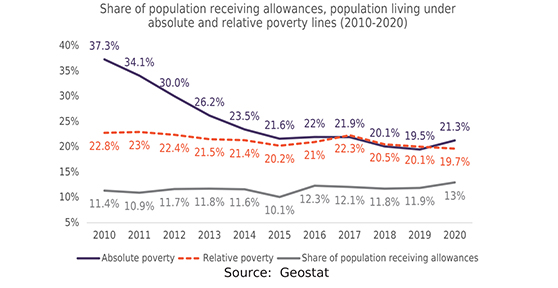
Poverty alleviation remains one of the biggest challenges for the world, including Georgia. Methods applied to determine the poverty rate vary from country to country, so in order to gain a broad understanding of the current situation regarding poverty in Georgia at the international level, it is important to take into account a variety of indicators. In 2020, GDP per capita in Georgia amounted to 4279 USD, ranking it 122nd in the world and 3rd among Eastern Partnership (EaP) countries. Meanwhile, the Human Capital Index (HCI) calculates the contributions of health and education to worker productivity with Georgia scoring 0.57 in 2020, ranking 85th out of 174 countries world and having the lowest score among EaP countries.Multidimensional poverty encompasses various forms of deprivation experienced by poor people such as poor health, lack of education, inadequate living standards, poor quality of work and the threat of violence. In 2019, 3.8% of the population in Georgia was multidimensionally poor, ranking 57th out of 120 countries in the world and first among EaP countries. The Gini Index measures income distribution within a society. In 2021, Georgia scored 36.4 on the Gini Index, ranking 76th out of 165 countries and having the highest inequality rate among EaP countries. In terms of life expectancy, in 2020 average life expectancy in Georgia was 74.2 years, ranking it 101st in the world and 3rd among EaP countries. Taking into account these indicators, Georgia, on an international level, is an upper-middle-income country with moderate rates of inequality and life expectancy. Due to its poor educational and healthcare systems, Georgia has been unable to mobilize its human capital to achieve a higher level of economic development.
Issue 12: Ukraine’s External Trade (January-June, 2017-2021)
2021-10-04 00:00:00
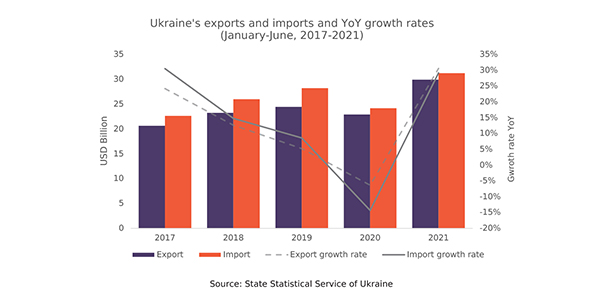
Total trade turnover in Ukraine amounted to 61.2 bln USD, marking an increase of 14.07 bln USD (29.9%) compared to the corresponding period of 2020;
Ukrainian exports increased by 7.01 bln USD (30.6%) compared to the corresponding period of 2020, while Ukrainian imports increased by 7.06 bln USD (29.2%);
Compared to the corresponding prepandemic period of 2019, Ukrainian exports increased by 5.5 bln USD (22.3%), while its imports increased by 3.01 bln USD (10.7%);
Ukraine’s trade deficit amounted to 1.3 bln USD, which represents a 0.02 bln USD (1.5%) decrease compared to the corresponding period of 2020;
Ukraine’s main trade partners were China, Poland, and Germany, with shares in total trade volume of 14.5%, 7.6% and 6.5%, respectively. Ukraine’s main export partners were China (14.3% of total exports), Poland (7.9%), and Turkey (6%). Meanwhile, its main import partners were China (14.6% of total imports), Germany (8.9%), and Russia (9.1%);
54.4% of Ukrainian exports were concentrated among its top ten partners, while imports were slightly less diversified with the top ten partners responsible for 63.7% of total imports;
Compared with the corresponding period of 2020, a 24.3% decrease in trade turnover with Russia was observed, while significant 33% and 40.6% increases were recorded in the cases of China and the EU.
Poultry Sector in Georgia
2021-09-30 00:00:00
The poultry sector in Georgia enjoyed stable growth between 2007 and 2020 (i.e. since the global outbreak of bird flu had abated in 2006). The sector is the only agricultural sector to contribute VAT payments to the Georgian economy. The sector, as well as most other sectors of the economy, has been affected by the country’s move toward approximation with European standards, especially in recent years. This issue is largely based on the "Poultry Cluster Diagnostic Study in Kvemo Kartli Region," published by PMC Research Center, for United Nations Industrial Development Organization (UNIDO) under the “EU Innovative Action for Private Sector Competitiveness in Georgia (EU IPSC).” Find the full publication here: https://bit.ly/3kSILkL
Monthly Tourism Update (August, 2021)
2021-09-20 00:00:00
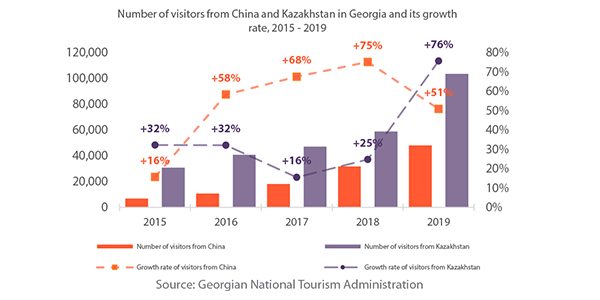
The number of international travelers increased by 538.3% in August 2021, compared to the same period of 2020, and declined by 77.3% compared to the same period in 2019. Meanwhile, the number of international visitors increased by 510.5% (2021/2020) and declined by 75.5% (2021/2019), and the number of international tourists increased by 615.2% (2021/2020) and declined by 67.2% (2021/2019);
Tourists coming to Georgia have customarily originated from a small concentrated selection of countries. Specifically, in 2019, 71.4% of all international visitors to Georgia came from its four neighboring countries. However, in August 2021, the corresponding proportion amounted to just 40.8%, mostly due to an increase in the number of visits from Ukraine, Saudi Arabia, Belarus, and Kazakhstan;
Targeting tourism markets with potential for expansion could be a fruitful approach in Georgia’s economic recovery as the pandemic eventually subsides. In particular, China, with an average growth rate in its number of visitors to Georgia of 54% over 2015-2019, and Kazakhstan, with a corresponding indicator at 36%, stand out as promising markets.
Hotel Price Index (August, 2021)
2021-09-20 00:00:00
In Georgia, the average cost of a room in a 3-star hotel was 151 GEL per night in August 2021, while the average cost of a room in a 4-star hotel in Georgia was 268 GEL per night and the average cost of a room in a guesthouse was 95 GEL per night. The average cost of a room in a 5-star hotel in Georgia in August 2021 was 514 GEL per night. In Guria, the average price was 807 GEL, followed by Tbilisi - 604 GEL, Adjara - 570 GEL and Kakheti – 546 GEL.
Georgian Economic Climate (Q3, 2021)
2021-09-16 00:00:00
According to this survey of Georgian economists, the economic climate in the country in the third quarter of 2021 has improved compared to the second quarter of the same year. Georgian economists’ assessments of the current situation have generally improved, compared to the previous quarter and the corresponding quarter of 2020, but nevertheless remain negative. The economists’ predictions for Georgia’s economic situation for the next six months were also negative. Indeed, their expectations for this period deteriorated slightly, compared to their predictions in the second quarter of 2021 and the forecasts they made in the third quarter of last year.
Issue 11: Inflation Trends in Ukraine
2021-09-13 00:00:00
The COVID-19 pandemic continues to represent a major economic shock, causing considerable inflation volatility. The pandemic has been responsible for a substantial decline in inflation rates over the course of 2020 globally. However, this trend underwent a significant reversal in the first half of 2021. In this issue, we overview inflation trends in Ukraine prior to and during the COVID-19 crisis.
The Third Analytical Report: Sector and Value Chain Analytics in Georgia
2021-09-10 00:00:00
This quarterly report provides an analysis of economic trends, as well as denoting the challenges and opportunities (in local, regional, and global contexts) across selected value chains within six sectors to improve evidence-based decision-making through the provision of quality information and analytics. The specific sectors are tourism, creative industries, light manufacturing, shared intellectual services, waste management and recycling, along with cross-cutting sectors. The analysis tracks trends from the first quarter of 2021.Please find the full publication in English and the executive summary of the report in Georgian.
The Second Analytical Report: Sector and Value Chain Analytics in Georgia
2021-09-09 00:00:00
This quarterly report provides an analysis of economic trends, as well as denoting the challenges and opportunities (in local, regional, and global contexts) in the selected value chains within six sectors to improve evidence-based decision-making by providing quality information and analytics. These specific sectors are tourism, creative industries, light manufacturing, shared intellectual services, waste management, and recycling, along with cross-cutting sectors. The analysis tracks trends from 2016 to December 31, 2020.Please find the full publication in English and the executive summary of the report in Georgian.
The First Analytical Report: Sector and Value Chain Analytics in Georgia
2021-09-08 00:00:00

This quarterly report provides an analysis of economic trends, as well as denoting the challenges and opportunities (in local, regional, and global contexts) in the selected value chains within six sectors to improve evidence-based decision-making by providing quality information and analytics. These specific sectors are tourism, creative industries, light manufacturing, shared intellectual services, waste management and recycling, along with cross-cutting sectors. The analysis tracks trends from 2014 to the third quarter of 2020. The following is a synopsis of the findings for this quarter: Tourism (accommodation, catering, adventure tourism, gastronomic tourism, and cultural tourism); Creative industries (media content production and post-production, and artisan); Light manufacturing (furniture, packaging, construction materials, personal and protective equipment (PPE), and wooden toys); and Solid waste management and recycling.
Please find the full publication in English and the executive summary of the report in Georgian.
Issue 129: Georgia’s External Trade (January-June, 2017-2021)
2021-09-01 00:00:00
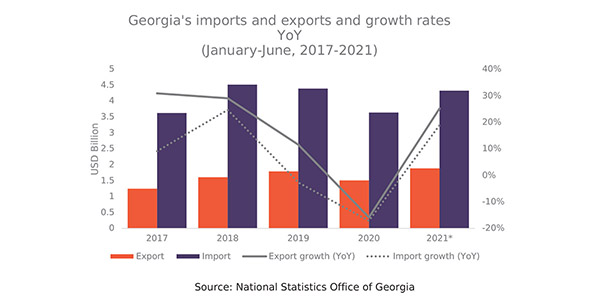
In the first half of 2021, external trade turnover in Georgia amounted to 6.2 bln USD, which is 20.7% more than corresponding period of 2020 and 0.5% more than the prepandemic period of January-June 2019.
Georgian exports amounted to 1.9 bln in January-June 2021, which is 25.2% more than in January-June of 2020 and 5.3% more than in January-June of 2019. Moreover, Georgian imports recorded 4.3 bln USD, which is 18.9% more than in the first half of 2020 and 1.5% less than in the corresponding period of 2019.
In the first half of 2021 Georgian trade deficit increased by 0.3 bln USD (14.5%), compared to the first half of 2020, and decreased by 0.16 bln USD (6.1%), compared to the corresponding period of 2019 and amounted to 2.44 bln USD.
In the period of January-June 2021, compared to January-June of 2020, trade turnover increased with the EU (9.9%), Russia (24.8%) and China (22.7%). However, compared to the corresponding period of 2019, trade turnover increased with Russia (12.3%) and China (27.9%), but decreased with the EU (-14%).
Georgia’s main total trade partners in the first half of 2021 were Turkey (15.2%), Russia (11.8%) and China (10.5%). Main export partners were China (15.4%), Russia (14%) and Azerbaijan (8.4%). Moreover, main import partners were Turkey (18%), Russia (10.8%) and China (8.4%).
Hotel Price Index (July, 2021)
2021-08-17 00:00:00
In Georgia, the average cost of a room1 in a 3-star hotel was 149 GEL per night in July 2021, while the average cost of a room in a 4-star hotel in Georgia was 265 GEL per night and the average cost of a room in a guesthouse2 was 85 GEL per night.
The average cost of a room in a 5-star hotel in Georgia in July 2021 was 524 GEL per night. In Guria, the average price was 809 GEL, followed by Adjara - 550 GEL, Kakheti - 543 GEL and Tbilisi – 539 GEL.
Monthly Tourism Update (July, 2021)
2021-08-17 00:00:00
After a challenging 2020 and early 2021 for the tourism sector, various positive developments, such as the alleviation of restrictions, were seen in the tourism sector in Georgia in the second quarter of 2021. As of July 2021, there are no restrictions of movement in place within Georgia, and both land and air borders are open for eligible visitors. Below is a timeline of the relaxing of various COVID-19 measures in the second quarter of 2021:
Since May 17, the curfew was moved from 21:00 to 23:00.
Since May 22, restaurants have been allowed to operate on weekends in open spaces.
Since June 1, restaurants have been allowed to operate on weekends in both open and closed spaces.
Since June 1, land borders have been reopened.
On June 14, tourism information centers around the country re-opened.
On June 16, mandatory PCR testing for visitors aged less than 10 was eliminated.
Since July 1, the curfew (23:00 – 04:00) was removed.
Shared Intellectual Services
2021-08-16 00:00:00

This policy brief on the shared intellectual services sector in Georgia has been developed by Policy and Management Consulting Group (PMCG) under the USAID Economic Security Program. Its aims are to identify the key economic policy challenges in Georgia existing in this sector, and to facilitate dialogue between private and public sectors including a wide spectrum of civil society and political representatives.
First, the policy brief provides an overview of the shared intellectual services (SIS) sector in the Georgian economy.
Second, it analyzes policy challenges in this sector in Georgia from the perspectives of different stakeholders, including representatives of the private sector, government, donor organizations, and business associations/clusters. Moreover, it overviews the Georgian government’s responses to the existing challenges in the sector.
Third, it analyzes the impact of the COVID-19 pandemic on the SIS sector in Georgia from the perspectives of different stakeholders (including government, the private sector, business associations/clusters, and donor organizations).
The document concludes by presenting recommendations to address existing challenges in the SIS sector in Georgia.
Light Manufacturing
2021-08-16 00:00:00
This policy document has been prepared within the scope of the USAID Economic Security Program. The goal of the program is to improve the competitiveness of four priority sectors (light manufacturing, tourism, creative industries, and shared intellectual services) by increasing investment, revenues, and the number of high-value jobs therein.
This study focuses on the light manufacturing industry, and specifically on the furniture and packaging material sub-sectors. It aims to examine the existing challenges in the relevant value chains and to determine ways to overcome the obstacles identified through dialogue with the representatives of the public and private sectors.
Issue 10: Exchange Rates in Ukraine (2016-2021)
2021-08-12 00:00:00
The Ukrainian Hryvnia’s exchange rates relative to foreign currencies experienced some noteworthy tendencies in 2016-2021. This period of course includes the ongoing COVID-19 pandemic, which has had a significant impact on exchange rate fluctuations globally. In this bulletin, we review the exchange rate fluctuations in Ukraine in 2016-2021, as well as some of the key factors affecting it.
Post-Pandemic Recovery in the Black Sea Region
2021-08-09 00:00:00
A year and a half since the outbreak of the coronavirus (COVID-19) pandemic, the world has entered a new phase in which the race to vaccinate is shaping the path for post-pandemic recovery and economic growth. In this bulletin, we review the dynamics of the virus spread and the extent of the economic recovery being achieved by the countries of the Black Sea region.
Issue 128: Unemployment in Georgia (2017-2020)
2021-07-27 00:00:00
In 2021, unemployment remains an unresolved obstacle for the Georgian economy and society’s most pressing problem. Over the years, diverse public opinion polls have indicated that unemployment is the most important issue at national level. For instance, in 2020, according to a public attitudes poll conducted by the National Democratic Institute, for 46% of respondents, the main challenge they were facing was unemployment.This issue focuses on changes in unemployment trends in Georgia in the period of 2017-2020 and provides an analysis of the effects of the COVID-19 crisis on unemployment in the country.
Wine Production Sector in Georgia
2021-07-15 00:00:00
The wine industry in Georgia has experienced strong growth over the past decade in all key indicators such as exports, turnover, and employment and salaries (measured both in GEL and in USD). The financials of the sector have also looked impressive during this time.
Monthly Tourism Update (June, 2021)
2021-07-12 00:00:00
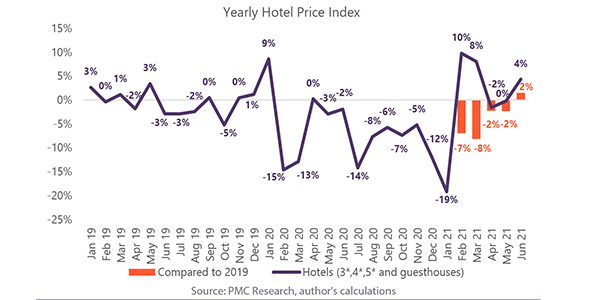
The number of international travelers increased by 294.2% in June 2021 compared to the same period of 2020, and declined by 82.1% compared to the same period in 2019. Meanwhile, the number of international visitors increased by 286.8% (2021/2020) and declined by 79.8% (2021/2019), and the number of international tourists increased by 361.6% (2021/2020) and declined by 71.7% (2021/2019);
In June 2021, the number of visitors from Israel, Ukraine and Kazakhstan recovered to approximately 75% of their June 2019 levels;
During the period of 2018-2021, average hotel prices in Georgia peaked in 2018, gradually falling in 2019 before plummeting in 2020;
Prices of 5-star hotels experienced the highest volatility, while the prices of guesthouses were most stable;
In June 2021, the Hotel Price Index increased by 1.5% compared to the corresponding month of 2019, mainly driven by positive expecta�tions about tourism’s recovery, as well as the low base effect due to the shock (Russian flight ban) in June 2019.
Hotel Price Index (June, 2021)
2021-07-12 00:00:00
In Georgia, the average cost of a room in a 3-star hotel was 136 GEL per night in June 2021, while the average cost of a room in a 4-star hotel in Georgia was 243 GEL per night and the average cost of a room in a guesthouse was 81 GEL per night. The average cost of a room in a 5-star hotel in Georgia in June 2021 was 496 GEL per night. In Guria, the average price was 739 GEL, followed by Tbilisi - 644 GEL, Kakheti - 470 GEL and Adjara – 457 GEL.
Issue 9: Foreign Direct Investments in Ukraine 2016-2020
2021-06-25 00:00:00
The COVID-19 pandemic and the subsequent Great Lockdown have affected investment flows all over the globe, especially in emerging markets. According to UNCTAD, global Foreign Direct Investment (FDI) flows dropped by 35% in 2020, to $1 trillion, from $1.5 trillion in 2019. This is almost 20% below the 2009 levels after the global financial crisis. Moreover, the number of newly announced greenfield projects in developing countries declined by 42% in 2020 compared to 2019. To assess the impact of the crisis on the FDI flows in Ukraine, it is crucial to have a snapshot of the pre-crisis situation along with developments in 2020.
Issue 127: Remittance Inflows in Georgia during Covid-19 Crisis
2021-06-22 00:00:00

This bulletin focuses on remittance inflows into Georgia in 2020 and its development in 2021.
The social and economic stability of Georgia strongly relies on the money sent from emigrants to their families. Based on World Bank Data, in 2019, in terms of dependence on remittance inflows, Georgia ranked 21st in the world, with remittance inflows to GDP ratio. Moreover, the study conducted by the State Commission on Migration Issues revealed that in 2016 money sent by every second emigrant to their families accumulated half or 3/4 of family budget, and for the 15% of families remittance was the only source of income in Georgia.
The COVID-19 pandemic and imposed restrictions hindered economic activity in nearly every country, resulting in a negative effect on wages and employment for migrant workers and consequently, drying up of remittance inflows. In 2020 due to the emerged crises and uncertain situation, the World Bank projected shrinking remittance flows for low and middle-income coun�tries by 7.2%3, while the IMF forecasted a 15%4 decline for Georgia. However, despite the crisis and pessimistic predictions in Georgia, the volume of remittance inflows in 2020 compared to 2019 has increased by 8.8% and reached the highest figure in the past decade - 1.9 BLN USD, amounting to 11.9%, expressed as a percentage to GDP.
Georgian Economic Climate (Q2, 2021)
2021-06-03 00:00:00
According to this survey of Georgian economists, the economic climate in the country in the second quarter of 2021 is better than the first quarter of the same year. Georgian economists’ assessment of the current situation has improved, compared to the previous quarter and corresponding quarter of 2020, but nevertheless remained negative. The economists’ predictions for Georgia’s economic situation for the next six months were also negative. Their expectations for this period improved though, compared to their predictions in the first quarter of 2021, and were considerably more optimistic than the forecasts they made at the same time last year.
Monthly Tourism Update (May, 2021)
2021-05-31 00:00:00

The number of international travelers increased by 141.6% in April 2021 compared to the same period of 2020, and declined by 86.8% compared to the same period in 2019. Meanwhile, the number of international visitors increased by 140.4% (2021/2020) and declined by 85.0% (2021/2019), and the number of international tourists increased by 182.2% (2021/2020) and declined by 78.2% (2021/2019);
The number of visitors to Georgia from Israel in April 2021 recovered to 70% of its April 2019 level, with its share in total visitors amounting to 12.2%;
Georgia’s four neighboring countries accounted for 71% of total visitors in 2019. None of these countries had vaccinated more than 20% of their population as of May 23, 2021;
Some countries that stand out for their high vaccination rates among Georgia's key source markets include Israel (63% of the population), United Arab Emirates (61%), the United Kingdom (56%), Hungary (52%), the United States (49%), and Finland (41%). Most EU countries have a rate of around 30-40%;
In April 2021, the Hotel Price Index decreased by 2.3% compared to the corresponding month of 2019, mainly driven by a price decline of 27.4% in Adjara.
Hotel Price Index (May, 2021)
2021-05-31 00:00:00
In Georgia, the average cost of a room in a 3-star hotel was 132 GEL per night in May 2021, while the average cost of a room in a 4-star hotel in Georgia was 246 GEL per night and the average cost of a room in a guesthouse was 82 GEL per night. The average cost of a room in a 5-star hotel in Georgia in May 2021 was 402 GEL per night. In Guria, the average price was 600 GEL, followed by Tbilisi - 509 GEL, Kakheti - 432 GEL and Adjara – 391 GEL.
Professional Development of Civil Servants in Georgia – Supporting the Shift to Online Learning
2021-05-24 00:00:00
The research objectives are to examine the challenges that exist in the civil servants’ professional development system, in general, explore barriers specifically associated with the shift to online learning, assess the readiness of civil servants for online training, and develop recommendations to increase the effectiveness of remote teaching.The research methodology is based on a mixed-method design and combines qualitative and quantitative approaches: analysis of the existing documents, interviews with key informants, focus group discussions, and a computer-assisted telephone survey that is representative for professional civil servants working in the councils and town halls across the country. In order to provide in-depth analysis of the issue, the research draws on the perspectives of multiple stakeholders, including civil servants as well as representatives of the Civil Service Bureau, international organizations, and training centers.
Issue 8: Ukraine in International Rankings
2021-05-18 00:00:00
International rankings and indicators help us to understand and assess how countries are performing in different areas. In this bulletin, Ukraine’s positions in international rankings and the dynamics therein will be reviewed based on recent data. The positions will also be compared with other Eastern Partnership (EaP) countries (Armenia, Azerbaijan, Moldova, Georgia, and Belarus).
Monthly Tourism Update (April, 2021)
2021-05-06 00:00:00
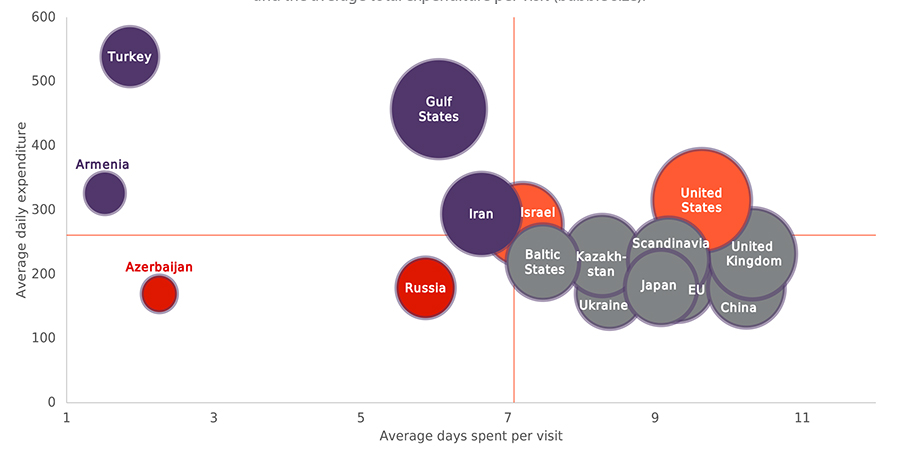
The number of international travelers increased by 141.6% in April 2021 compared to the same period of 2020, and declined by 86.8% compared to the same period in 2019. Meanwhile, the number of international visitors increased by 140.4% (2021/2020) and declined by 85.0% (2021/2019), and the number of international tourists increased by 182.2% (2021/2020) and declined by 78.2% (2021/2019);
Visitors from the United States and Israel stand out as high-spenders and long-stayers in Georgia, while visitors from Turkey, the Gulf States, Iran, and Armenia have been categorized as high-spenders but short-stayers. Visitors from Russia and Azerbaijan fall into the low-spend, short-stay category;
Israel and the Gulf States accounted for the highest estimated revenue loss in 2020 due to the COVID-19, apart from immediate neighbors. Now, Israel and the United Arab Emirates have one of the highest percentage of vaccinated population, so visitors from the two countries could be worth targeting;
For 2021, it is recommended to channel marketing campaigns toward high-spenders and short-stayers, along with high-spenders and long-stayers;
Due to the abnormal impact of the pandemic on 2020 prices, we use 2019 as the comparison year for the Hotel Price Index for the rest of 2021.
Hotel Price Index (April, 2021)
2021-05-06 00:00:00
In Georgia, the average cost of a room in a 3-star hotel was 133 GEL per night in April 2021, while the average cost of a room in a 4-star hotel in Georgia was 225 GEL per night and the average cost of a room in a guesthouse was 77 GEL per night. The average cost of a room in a 5-star hotel in Georgia in April 2021 was 380 GEL per night. In Guria, the average price was 606 GEL, followed by Tbilisi - 512 GEL, Kakheti - 425 GEL and Adjara – 329 GEL.
Issue 7: Remittance Inflows into Ukraine
2021-04-29 00:00:00
In this bulletin, a snapshot of remittance inflows into Ukraine pre-COVID is discussed, followed by its developments in 2020.
According to the World Bank, global remittances will decline by 14% by the end of 20212, compared to the pre-pandemic level of 2019;
In 2020, remittance inflows into Ukraine declined just by 0.3%, compared to 2019;
Remittance inflows in Ukraine have been growing at an annual average of 8.2% over the past decade;
The contribution of remittances to GDP in Ukraine amounted to 7.7% in 2020;
The top senders of remittances to Ukraine in 2020 were Poland (26%), the United States (10%), and the United Kingdom (9%). In 2016-2019, the top senders were Poland (30%), Russia (12%), and the United States (8%);
Remittances from Russia declined the most in 2020 (-20%), compared to 2019, while the United Kingdom recorded the strongest growth (69%) over the same period.
Microfinance Sector in Georgia (2017-2020)
2021-04-23 00:00:00

PMC Research has launched a new periodic publication entitled Sector Snapshots. Each issue focuses on a specific sector of the Georgian economy, observing developments with respect to key indicators of the given sector as a whole, the sector’s dynamics, its role in the overall economy, and, finally, financial indicators of companies within that sector.
The publication will produce valuable insights for businesses engaged in the covered sectors, as it lays out the trajectory of development for each sector and its possible financial bottlenecks, thereby contributing to more informed and efficient decision-making.
In the first issue of our new publication, we focus on Georgia’s microfinance sector.
In 2017-2019 new regulations on microfinance institutions (MFIs) entered into force, which significantly altered the landscape of the industry;
Between Q1 2017 and Q4 2020, the number of MFIs and employees in the sector fell, with the former dropping to 40 and the latter to 4145 by Q4 2020 (52% and 16% decrease, respectively)
In Q4 2020, MFIs in Georgia held 1.48 bln GEL of assets and 0.98 bln GEL of liabilities. In this period, the consolidated assets and liabilities of MFIs increased, compared to Q4 2019 with a growth of 7% and 9%, respectively. Compared to Q1 of 2017, figures increased by 6% and decreased by 1%, respectively;
In 2020, gross income (revenue) of MFIs decreased, compared to 2019, and dropped by 10% to 332.6 mln GEL, while net income increased to 44.8 mln GEL. Moreover, the net income margin increased by 14 percentage points and reached 14%;
By the end of 2020, portfolio of loans issued by MFIs amounted to 1.18 bln GEL, while number of loans in portfolio amounted to 0.66 mln loans, which represented 8% increase and 16% decrease, respectively, compared to the figures by the end of 2018.
Monthly Tourism Update (March, 2021)
2021-04-15 00:00:00
The number of international travelers declined by 75.3% in March compared to the same period of 2020, and by 90.7% compared to the same period in 2019. Meanwhile, the number of international visitors fell by 73.4% (2021/2020) and by 89.0% (2021/2019), and the number of international tourists fell by 64.4% (2021/2020) and by 84.4% (2021/2019);
Saudi Arabia, the United States, Qatar, United Arab Emirates (UAE), and the United Kingdom rank as the top five countries of origin when it comes to highest average expenditure per visit;
Turkey, Saudi Arabia, Qatar, UAE, and Armenia rank as the top five countries of origin when it comes to average expenditure per day;
Targeting visitors from Turkey, via both air and land routes, could be an effective marketing strategy, at least in the short term;
Due to the abnormal impact of the pandemic on 2020 prices, we use 2019 as the comparison year for the Hotel Price Index for the rest of 2021.
Hotel Price Index (March, 2021)
2021-04-15 00:00:00
In Georgia, the average cost of a room in a 3-star hotel was 124 GEL per night in March 2021, while the average cost of a room in a 4-star hotel in Georgia was 219 GEL per night and the average cost of a room in a guesthouse was 80 GEL per night. The average cost of a room in a 5-star hotel in Georgia in March 2021 was 332 GEL per night. In Guria, the average price was 587 GEL, followed by Tbilisi - 436 GEL, Adjara - 295 GEL and Kakheti – 293 GEL.
Fruit and Vegetable Processing Cluster, Hazelnut Processing Diagnostic Study in Guria Region
2021-04-14 00:00:00
PMC Research conducted a diagnostic study of fruit and vegetable processing cluster and hazelnut processing in Guria region of Georgia, and developed a cluster map, and elaborated short-term objectives as well as a long-term vision for the development of this cluster.
The study is part of the “EU Innovative Action for Private Sector Competitiveness in Georgia (EU IPSC)” program, which is a joint initiative of the European Union and the following four UN agencies: the United Nations Development Programme (UNDP); the Food and Agriculture Organization (FAO); the United Nations Industrial Development Organization (UNIDO); and the International Organization for Migration (IOM).
Poultry Cluster Diagnostic Study in Kvemo Kartli Region
2021-04-14 00:00:00
PMC Research conducted a poultry cluster diagnostic study in Kvemo Kartli region of Georgia, and developed a cluster map, and elaborated short-term objectives as well as a long-term vision for the development of this cluster.
The study is part of the “EU Innovative Action for Private Sector Competitiveness in Georgia (EU IPSC)” program, which is a joint initiative of the European Union and the following four UN agencies: the United Nations Development Programme (UNDP); the Food and Agriculture Organization (FAO); the United Nations Industrial Development Organization (UNIDO); and the International Organization for Migration (IOM).
Marine Fishing Cluster Diagnostic Study in Samegrelo-Zemo Svaneti Region
2021-04-05 00:00:00
PMC Research described both the history and the current reality for the marine fishing cluster in Samegrelo-Zemo Svaneti region of Georgia, analyzed business operations within it, developed a cluster map, and elaborated short-term objectives as well as a long-term vision for the development of this cluster.
The study is part of the “EU Innovative Action for Private Sector Competitiveness in Georgia (EU IPSC)” program, which is a joint initiative of the European Union and the following four UN agencies: the United Nations Development Programme (UNDP); the Food and Agriculture Organization (FAO); the United Nations Industrial Development Organization (UNIDO); and the International Organization for Migration (IOM).
Hazelnut Processing Cluster Diagnostic Study in Samegrelo-Zemo Svaneti Region
2021-04-02 00:00:00
PMC Research described both the history and the current reality for the hazelnut processing cluster in Samegrelo-Zemo Svaneti region of Georgia, analyzed business operations within it, developed a cluster map, and elaborated short-term objectives as well as a long-term vision for the development of this cluster.
The study is part of the “EU Innovative Action for Private Sector Competitiveness in Georgia (EU IPSC)” program, which is a joint initiative of the European Union and the following four UN agencies: the United Nations Development Programme (UNDP); the Food and Agriculture Organization (FAO); the United Nations Industrial Development Organization (UNIDO); and the International Organization for Migration (IOM).
Cybercrime in Georgia: Current Challenges and Possible Developments
2021-03-30 00:00:00

The goal of this research is twofold. Primarily, it provides an assessment of the cybercrime situation in Georgia and projection of possible developments, as well as envisages policy recommendations for responsible public authorities. The secondary, but not less important goal is to facilitate awareness-raising through developing analytical information regarding problems and ways of their solutions. Georgian citizens are end victims who suffer from any national security threats including cybersecurity incidents and cybercrimes. Informing the public and raising awareness gain utmost importance, especially in conditions of hybrid threats. Social resilience could not be ensured without a wider engagement of informed and socially active citizenry.
Key Findings
Cybercrime is still an emerging phenomenon in Georgia, its damaging potential is not fully exposed and the threat is not perceived properly either by the government or the society;
Highly likely cybercrime remains underreported in Georgia as in many other countries of our region;
The MIA is focused on pure cybercrimes and does not calculate cyber-enabled crimes under cybercrime statistics that leaves room for ambiguity;
From the perspective of criminal justice, policy cybercrime still does not expose serious challenge to society as its share in general criminal statistics is not significant;
In the context of national security, cybercrime is more dangerous than other crimes as it represents an instrument of transformation of external threats into serious problems of internal security;
Georgian Police handle cybercrime generally in a reactive manner, with more focus on response - investigation and pursuit, lacking a comprehensive preventive approach;
LEA has certain problems in investigation and digital forensic, especially, in the regions;
Lack of coordinated government policy, mature engagement of the private sector and low public awareness in the light of digitalization of social life, increasing internet and ICT access are main factors affecting cybercrime statistics negatively;
Transnational criminal activities expose little danger to Georgia cybersecurity nowadays, but it`s predictable that GOCGs being an important part of transnational organized criminality, will increase their illegal activities in the digital space;
Lack of sustainable financial support to develop key cybersecurity services and programs is observed;
As main determinants affecting of raising cybercrime in Georgia are mostly generated through complex internal socio-economic and technological developments and external geopolitical processes and the GOG has limited capacity to influence significantly on most of those factors in a short-term perspective, it can be implied that in the nearest 5 years’ period, the trend of raising cybercrime rates in Georgia will be maintained. Highly likely cybercrime would be increased approximately by 25-30% per year in comparison to 2020 rates and gradually, it will easily overcome 5% share of total criminal cases registered by the police in 2022.
Recommendations
Recommendation #1. More preventive, proactive and protective policy:
Set up a comprehensive strategic agenda for cybercrime preventive measures. Georgia needs to develop not only reactive but also proactive measures for combating cybercrime;
Change the approach of calculating cybercrime statistics to consider numbers of cyber-enabled crimes in total number of cybercrimes;
Develop joint interagency task force from key government stakeholder institutions, equipped with strategic, operational and tactical tools, to unify efforts and undertake comprehensive and adequate measures for deterring external threats or mitigating the risks;
Elaborate long-term strategy and action plan for combatting cybercrime, which will include capacity building, large-scale public awareness projects jointly organized by relevant government agencies (participation of the institutions responsible for implementing educational and youth policy is highly recommended);
Draft and adopt legislative framework empowering the police for utilization ethical hacking and other proactive measures in cyberspace;
Increase funding of cybersecurity dimension.
Recommendation #2. Develop workforce and institutional capacity:
Increase human and technological capacity of cybercrime investigators, especially at the regional level. Regular training programs with no gaps, as new sophisticated attacks require qualified people to deal with;
Develop national training infrastructure for LEAs and security sector agencies to fill the gaps of human resources and facilitate professionalization of their personnel in cybersecurity, cybercrime investigation techniques and digital evidence;
Increase efforts for participation in international exercises and trainings to increase international LEA cooperation with a special focus on combatting cybercrimes;
Work more actively with LEAs of partner countries, international and regional law enforcement organizations in joint working groups and other platforms to detect activities of GOCGs in cyber sphere and be informed about possible threats;
Create specialized cybercrime police units in every region of Georgia, equip them with special crime detection software and technical solutions that will increase early warning opportunities and increase other preventive technics;
Equip and train enough police personnel properly for conducting tailored proactive policing measures countrywide.
Recommendation #3. Develop cyber culture:
Take active measures for public education and awareness, the empowerment of Georgian information society; reduce the success rate of many forms of cybercrime by educating individuals and organizations in recognizing criminal activity before they fall victim to it;
Through various institutional frameworks achieve engagement of multiply government agencies having a large set of beneficiaries and active partnership with the private sector in the awareness-raising process to increase the outreach;
Implement tailored educational campaigns for professional civil servants in cybersecurity, cyber hygiene and misinformation campaigns;
Implement tailored and large-scale awareness-raising campaigns for the most vulnerable social groups;
Share information about threats, best practices, specialized capabilities among stakeholders to build trust and demonstrate value for them;
Raise awareness among decision-makers and senior management of LEAs to determine strategic priorities regarding cybercrime and electronic evidence.
Recommendation #4. Co-share resources between CERT and MIA:
Temporary secondment - assignment, transfer of LEA professional in CERT in order to get a hand-on experience of CERT incident collection and reporting, classification approaches, together define procedural and organizational formalities. On the contrary, CERT representative can be shifted to cybercrime office in order to get more insight into procedural powers, investigation techniques and assist the process with technical cyber know-how. This advice is vastly promoted by ENISA, Council of Europe as a cooperative tool between cybercrime and cybersecurity authorities;
Adopt unified operational standards, develop the capacity of joint work; the experience of joint risk assessment teams of the MIA and the LEPL Revenue Service could be a useful example;
Key steps required for information exchange between CERT and the police: Define a common taxonomy related to incidents and events in cybersecurity; Define an exchange standard to enable the sharing of information based on the taxonomy
Create statistics based on the information exchanged.
Recommendation #5: Connect, communicate and collaborate:
Strengthen formal and informal cooperation frameworks to combat cybercrime in order to build an effective and sound governance system;
Elaborate and adopt legislative requirements for the exchange of information between public and private sectors;
Foster cooperation between the MIA and ISPs;
Develop a secure information sharing platform for the exchange of information on cyber-threats and incidents between cyber authorities;
Undertake measures (including legislative amendments) to increase informed and responsible engagement of the private sector in strengthening the country`s cyber resilience.
Recommendation #6: Develop Cybercrime Reporting Mechanism:
Establish a cybercrime reporting centre, hotline, providing a central point of contact for citizens and businesses;
Develop coordinated mechanisms within the public and the private sector allowing citizens to report cybercrime cases, including online fraud, cyberstalking, child abuse online, identify theft, privacy and security breaches, etc.;
Define common reporting methodology with written guidelines to broad stakeholder groups, including foreign counterparts;
Launch awareness programs and communication campaigns to promote the regular use of reporting mechanisms by a wider community;
Develop digital tools for cybercrime reporting.
Issue 6: Supporting Businesses During the Pandemic: National and Municipal Responses
2021-03-29 00:00:00
To address the challenges posed by the pandemic, various government measures have been taken at both national and local levels. In order to withstand the economic recession, almost all countries, including Ukraine, have introduced significant fiscal stimulus packages. Exclusively for the 2020 fiscal year, the Government of Ukraine created a stand-alone budgetary program under the Ministry of Finance to fight the pandemic, with an overall budget of UAH 80.9 billion (or 2% of Ukraine’s 2019 GDP).
Hotel Price Index (February, 2021)
2021-03-16 00:00:00
In Georgia, the average cost of a room in a 3-star hotel was 126 GEL per night in February 2021, while the average cost of a room in a 4-star hotel in Georgia was 180 GEL per night and the average cost of a room in a guesthouse was 75 GEL per night. The average cost of a room in a 5-star hotel in Georgia in January 2021 was 345 GEL per night. In Guria, the average price was 464 GEL, followed by Samtskhe-Javakheti - 433 GEL, Tbilisi - 428 GEL and Kakheti – 329 GEL.
Monthly Tourism Update (February, 2021)
2021-03-16 00:00:00
The number of international travelers declined by 91% in February compared to the same period of both, 2020 and 2019, while the number of international visitors fell by 90% and the number of international tourists fell by 86%;
From March 2020 to February 19, 2021, 220 different hotels, and 11 744 hotel rooms, were utilized under the quarantine zones program. A total of 148 904 people stayed in these quarantine hotels over the covered period, and 3 644 people maintained their jobs in these hotels due to the program;
From March 2020 up to and including January 2021, a total of GEL 66.6 mln was spent under the program, averaging GEL 6.1 mln per month. On average, 94 hotels and 6340 hotel rooms were utilized per month, and 32 GEL was spent per hotel room per day.
Georgia - Fit for the Age of Artificial Intelligence?
2021-03-16 00:00:00
Artificial Intelligence (AI) is increasingly becoming a part of our everyday lives. The use of Unmanned Aerial Vehicles (UAVs) was observed in the Nagorno-Karabakh conflict; AI model was developed to diagnose COVID-19. The leader of the Georgian Dream criticized opponents for using deepfake programs to misinform the electorate during the 2020 parliamentary election campaign. AI offers tremendous benefits for our societies, in terms of public governance, business development and healthcare, but it also raises important economic, legal and ethical questions.
Issue 126: GDP and Employment in Georgia: Forecasts for 2021
2021-03-04 00:00:00
In 2020, the COVID-19 pandemic heavily disrupted the world, causing both a global health emergency and a global economic crisis. While almost every country and every sector have been affected, economies reliant on the service sector, and especially the tourism industry, such as Georgia, have suffered notably. Indeed, measures taken to contain the spread of the virus have had an especially negative impact on the economy. Preliminary estimates suggest a decline in Georgia’s real GDP in 2020 of 6.1%, the sharpest drop since 1994.In this issue, we provide forecasts for the performance of the Georgian economy for 2021, namely regarding its real GDP growth rate, sector-specific growth rates, and employment.
Georgian Economic Climate (Q1, 2021)
2021-02-23 00:00:00
According to a survey of Georgian economists, the economic climate in the country for the first quarter of 2021 has been and will continue to be worse than the last quarter of 2020. Their assessment of the current situation was also significantly worse than the corresponding quarter of the previous year. The economists’ predictions for Georgia’s economic situation for the next six months were also negative. Specifically, their expectations for this period remain similarly bleak to those stated in the final quarter of 2020, and were considerably more pessimistic than the forecasts they made at the same time last year.
Monthly Tourism Update (January, 2021)
2021-02-16 00:00:00
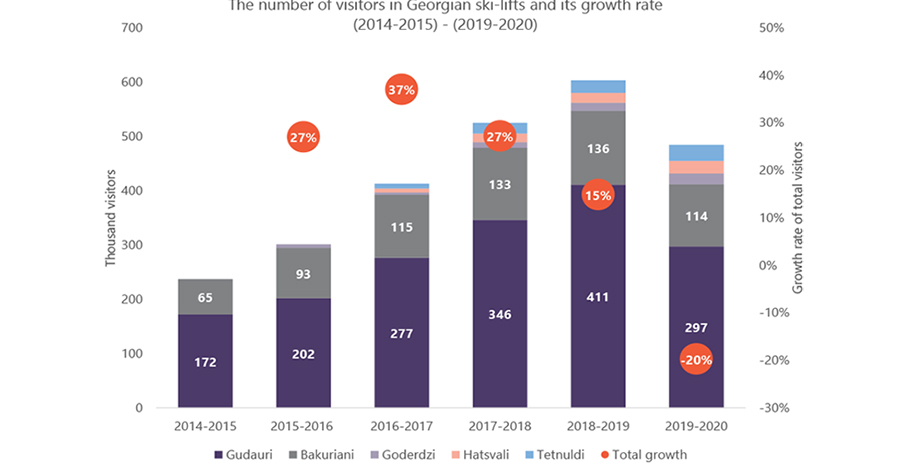
The number of international travelers declined by 94.5% in January compared to the same period of 2020, while the number of international visitors fell by 93.6% and the number of international tourists fell by 91.9%;
In January 2021, the year over year Hotel Price Index decreased by 33.8% in Adjara and by 28.5% in Samtskhe-Javakheti;
The number of ski-lift users in Georgia grew significantly, by an annual average rate of 21%, from the 2014-2015 season up to and including the 2018-2019 season. However, compared to the 2018-19 season, the number of ski-lift users dropped by 20% during the 2019-2020 season, due to the looming COVID-19 pandemic which effectively brought the season to an early finish. Thereafter, the 2020-2021 season has been cancelled outright due to the ongoing epidemiological crisis;
Sales per skiing day demonstrated significant growth from the 2014-2015 winter season up to and including the 2018-2019 winter season, growing by 33% annually on average in this period. It even registered modest growth (4%) in the 2019-2020 season.
Hotel Price Index (January, 2021)
2021-02-16 00:00:00
In Georgia, the average cost of a room in a 3-star hotel was 118 GEL per night in January 2021, while the average cost of a room in a 4-star hotel in Georgia was 188 GEL per night and the average cost of a room in a guesthouse was 72 GEL per night.
Issue 5: Labor Market in Ukraine
2021-02-09 00:00:00
In this issue, we overview trends in Ukraine’s labor market indicators through the past decade and compare the dynamics of unemployment rates of Eastern Partnership countries over the same period. In addition, we analyze the effects of COVID-19 on the key labor market indicators, as well as on average wages and number of vacancies posted in 2020.
Hotel Price Index (December, 2020)
2021-01-29 00:00:00
In Georgia, the average cost of a room in a 3-star hotel was 123 GEL per night in December 2020, while the average cost of a room in a 4-star hotel in Georgia was 197 GEL per night and the average cost of a room in a guesthouse was 70 GEL per night.
Monthly Tourism Update (December, 2020)
2021-01-29 00:00:00
Tourism across the world in 2020 was decimated by the COVID-19 pandemic. Since March 2020, the industry has been all but sidelined by various lockdowns including severe restrictions to international travel. To counter these difficulties, businesses in tourism-related industries were provided different support measures throughout 2020, and many of these have been extended into 2021;
The number of international travelers declined by 92.4% in December compared to the same period of 2019, while the number of international visitors fell by 90.8% and the number of international tourists fell by 86.3%;
The price changes in Adjara and Guria are the most representative of tourism’s decline. In December 2020, the year over year Hotel Price Index decreased by 41% in Guria, by 39% in Adjara and by 31.3% in Samtskhe-Javakheti.
Issue 125: Georgia in International Rankings
2021-01-25 00:00:00
International rankings and indicators help us to understand and assess how countries are performing in different areas. In this bulletin, Georgia’s positions in international rankings and their dynamics are reviewed based on recent data, and these are also compared to other Eastern Partnership (EaP) countries (Armenia, Azerbaijan, Moldova, Ukraine, and Belarus).
COVID-19 in the Black Sea Region - Part II
2021-01-20 00:00:00
The spread of COVID-19 has resulted in a global pandemic, followed by an abrupt economic crisis due to the necessary measures taken to reduce infection and death rates. In this bulletin, we focus on the countries of the Black Sea region, specifically their preparedness for an economic crisis and their actual economic performance during the pandemic, before presenting forecasts for 2021.
Issue 4: Ukraine’s External Trade (Q1-Q3, 2016-2020)
2020-12-24 00:00:00
In Q1-Q3 of 2020, total trade turnover in Ukraine amounted to 72.8 bln USD, which is a 6.9 bln (9%) decrease, compared to the corresponding period of 2019;
In Q1-Q3 of 2020, Ukrainian exports decreased by 6% compared to the corresponding period of 2019, while Ukrainian imports dropped by 11%;
In Q1-Q3 of 2020, Ukraine’s trade deficit amounted to 2.98 bln USD, which is 2.6 bln USD (47%) decrease compared to the corresponding period of 2019;
In Q1-Q3 of 2020, the main export partners were China, Poland and Russia, with shares in total export volume of 13.8%, 6.7% and 5.8% respectively. The main import partners were China (15.3% of total imports), Germany (10.2%) and Russia (8.8%).
Monthly Tourism Update (November, 2020)
2020-12-21 00:00:00

The number of international travelers declined by 93.1% in November compared to the same period of 2019, while the number of international visitors fell by 91.6% and the number of international tourists fell by 88.3%;
The price changes in Adjara and Guria are the most representative of tourism’s decline. In November 2020, the year over year Hotel Price Index decreased by 45.8% in Guria and by 28.5% in Adjara. Hotel prices in other regions do not provide an accurate guidance of the situation in accommodation market due to the COVID-19 pandemic;
The number of visits by domestic visitors in the third quarter of 2020 (Q3 of 2020) has declined by 5.6%, compared to the same period of 2019;
The number of visits with the purpose of visiting friends or relatives has declined the most in Q3 of 2020, compared to the corresponding figure in 2019, having declined by 19.8%. Whereas, the number of visits with the purpose of visiting another house (cottage, etc.) has increased by 45.4% in Q3 of 2020, compared to Q3 of 2019. Perhaps, the main reason for these changes in the structure of the visit purpose is existing fears of traveling caused by the ongoing pandemic.
Hotel Price Index (November, 2020)
2020-12-21 00:00:00
In Georgia, the average cost of a room in a 3-star hotel was 113 GEL per night in November 2020, while the average cost of a room in a 4-star hotel in Georgia was 176 GEL per night and the average cost of a room in a guesthouse was 67 GEL per night.
Issue 3: COVID-19 in Eastern Europe and Central Asia: Case Studies of Ukraine, Georgia and Albania
2020-12-18 00:00:00
The COVID-19 pandemic, and the ensuing economic shock, has prompted governments all around the globe to act swiftly and decisively to mitigate the health and economic impacts of the crisis. Each country has responded in its way, and it is useful to look at these different responses to identify good practices. In this issue, we will be looking at the case studies of Ukraine, Georgia, and Albania, including an analysis of the fiscal measures these countries have taken and an overview of the economic forecasts for 2020 and 2021.
Monthly Tourism Update (October, 2020)
2020-11-27 00:00:00
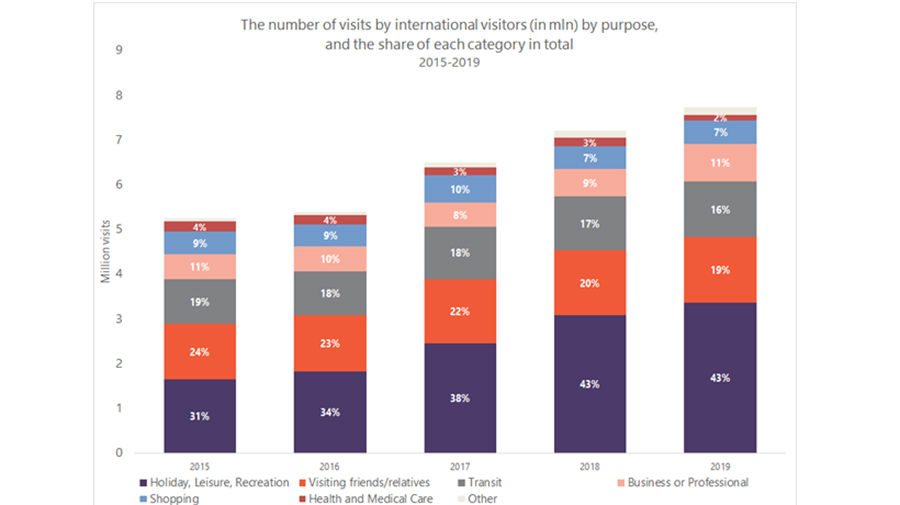
The number of international visitors declined by 92.9% in October compared to the same period of 2019, and the number of international tourists fell by 90%. Georgia experienced a fall of at least 90% in the number of foreign arrivals every month since April 2020, compared to the corresponding period of 2019;
The price changes in Adjara and Guria are the most representative of tourism’s decline. In October 2020, the year over year Hotel Price Index decreased by 51% in Guria and by 27.2% in Adjara;
The number of international visits to Georgia grew significantly over the period of 2015 to 2019, and this growth was mostly attributable to an increase in the number of visits for holiday, leisure and recreation purposes. However, due to safety concerns arising from the COVID-19 pandemic, the number of visits in this category has been declining significantly, and this trend is likely to continue for the foreseeable future;
The number of business or professional visits, despite contributing only a modest share of the total visits, also registered significant growth, as it grew by an average of 11% year-on-year from 2015 to 2019.
Hotel Price Index (October, 2020)
2020-11-27 00:00:00
In Georgia, the average cost of a room in a 3-star hotel was 120 GEL per night in October 2020, while the average cost of a room in a 4-star hotel in Georgia was 211 GEL per night and the average cost of a room in a guesthouse was 67 GEL per night. The average cost of a room in a 5-star hotel in Georgia in October 2020 was 387 GEL per night. In Tbilisi, the average price was 454 GEL, followed by Guria - 432 GEL, Samtskhe-Javakheti - 424 GEL and Kakheti – 395 GEL.
Issue 2: Economic Growth Forecasts in Ukraine: 2020 and 2021
2020-11-25 00:00:00
“The Great Lockdown”, referring to the period in which COVID-19 containment measures were put in place worldwide, has had a significant toll on the global economy. In the specific case of Ukraine, even though the country entered the crisis in better macroeconomic condition than in previous global crisis in 2008, its economy is still expected to be hit hard. In this issue, we provide an overview of the impacts of the ongoing pandemic on the Ukrainian economy that are already visible and try to supply an economic forecast for the country for the remainder of 2020 and for 2021, looking at the performance of each economic sector in the process.
Georgian Economic Climate (Q4, 2020)
2020-11-18 00:00:00
In the fourth quarter of 2020, Georgian economic climate did not change significantly, compared to the previous quarter. In this period, Georgian economists assessed Georgia’s present economic situation negatively. The assessment of present economic situation in this quarter slightly improved compared to the third quarter of 2020, but worsened compared to the fourth quarter of 2019. In the fourth quarter of 2020, Georgia’s economic situation for the next six months was also assessed negatively by Georgian economists. Furthermore, expectations for the next six months deteriorated slightly compared to both the third quarter of 2020 and the fourth quarter of 2020.
Creative Industries - Anti-Piracy in Georgia
2020-10-30 00:00:00
This paper concentrates on the production and post-production (of audiovisual content) value chains within the creative industries sector and aims to facilitate dialogue between private and public sectors on the most critical policy/regulatory challenges. The paper is developed by PMCG under the USAID Economic Security Program.
Issue 124: Overview of COVID-19 in Eastern Europe and Central Asia Including Case Studies of Georgia, Moldova and Serbia
2020-10-22 00:00:00
The COVID-19 pandemic, and the ensuing economic shock, has prompted governments all around the globe to act swiftly and decisively to mitigate the health and economic impacts of the crisis. Each country has responded in its own way, and it is useful to look at these different responses to identify good practices. In this issue, we look broadly at countries in Eastern Europe and Central Asia, and present three case studies of Georgia, Moldova, and Serbia respectively, including an analysis of the fiscal measures these countries have taken and an overview of the impacts of the pandemic.
Monthly Tourism Update (September, 2020)
2020-10-21 00:00:00

The number of international travelers declined by 94.2% in September compared to the same period of 2019, while the number of inter- national visitors fell by 93.6% and the number of international tourists fell by 92.2%. Georgia experienced a fall of more than 90% in the number of foreign arrivals every month since April, compared to the corresponding period of 2019;
In the first three quarters of 2020, revenues from international travel amounted to US$499 mln, which is 81% lower than for the same period of 2019;
The price changes in Adjara, Guria, and Samtskhe-Javakheti are the most representative of tourism’s decline. In September 2020, the year over year Hotel Price Index decreased by 39.2% in Guria, 33.4% in Adjara, and 24.3% in Samtskhe-Javakheti;
Looking at countries that have reopened tourism quickly with no restrictions, some have managed to recover a sizable portion of their arrivals, such as Albania, while others, like North Macedonia and Serbia, have not been so successful. Indeed, the decrease in the number of arrivals to the latter two countries has been comparable to that in Georgia, which has maintained significant travel restrictions.
Hotel Price Index (September, 2020)
2020-10-21 00:00:00
In Georgia, the average cost of a room in a 3-star hotel was 124 GEL per night in September 2020, while the average cost of a room in a 4-star hotel in Georgia was 221 GEL per night and the average cost of a room in a guesthouse was 70 GEL per night. The average cost of a room in a 5-star hotel in Georgia in September 2020 was 335 GEL per night. In Samtskhe-Javakheti, the average price was 440 GEL, followed by Guria - 433 GEL, Tbilisi - 430 GEL and Kakheti – 345 GEL.
Issue 1: Ukrainian Economy - Overview, 2010-2019
2020-10-09 00:00:00
In the very first edition of PMC Research Center Ukraine’s Economic Outlook and Indicators, we present an overview and analysis of the dynamics of Ukraine’s main economic indicators over the last decade, such as GDP, inflation, exchange rates, foreign trade, FDI, and remittances.
Issue 123: Employment and Income Dynamics in Georgia
2020-10-05 00:00:00

In August 2020, the number of employees receiving salaries recovered almost fully and stood at only 1% less than the corresponding month of last year;
During the period of January-August 2020, the month of May saw the largest drop in the number of employees receiving salaries (a dip of 9% or 74 951), compared to the corresponding period of 2019;
The month of April experienced the biggest decline in the number of employees for four out of the five higher-income categories, with the highest decline (23%) recorded in the number of people earning more than GEL 4800 per month;
The total average monthly earnings of employees in Q2 of 2020 amounted to GEL 1150.1, which represents a 3% decrease compared to Q2 of 2019;
According to the data obtained from HR.ge and Jobs.ge, the drop in demand for labor started in March and reached its peak in April, when HR.ge and Jobs.ge experienced an 87% and 78% year over year (YoY) decline in new vacancies posted, respectively. The YoY growth rates started recovering towards the baseline in May, but then registered a significant decline in August.
Value Chain Analysis of Rural Tourism in Mtskheta-Mtianeti Region
2020-10-05 00:00:00
The study examines the rural tourism value chain in the Tianeti municipality and Lower Pshavi area (Dusheti municipality) of Mtskheta-Mtianeti region in order to introduce more economic opportunities in these deprived rural areas of Georgia. This study was conducted by PMC Research in collaboration with Biological Farming Association ELKANA, as part of an Austrian Development Cooperation project.
COVID-19 in the Black Sea Region - Part I
2020-09-22 00:00:00
The spread of novel coronavirus COVID-19 has resulted in global pandemics, which was followed by an abrupt economic crisis, as economies stood still in order to overcome the threat to people’s lives. In this bulletin, we overview the readiness to the healthcare and economic crisis, the evolution of the pandemic and characteristics of the lockdown for the six countries in the Black Sea Region.
Reviewing Migration and Development: The Role of Local Authorities in Central Asia
2020-09-22 00:00:00
The paper reviews developmental implications of labour migration from Central Asia, analyses policy gaps in development-oriented migration management and offers recommendations to facilitate impactful engagement of local authorities in migration governance.
This paper is written by Dr. Giorgi Khishtovani, Director at PMC Research, with contribution from Maya Komakhidze, researcher at PMC Research.
Issue 122: Banking Sector in Georgia (2017-2020)
2020-09-17 00:00:00
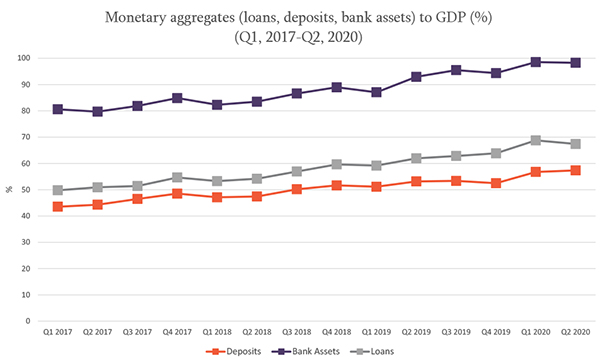
By the end of the second quarter of 2020, loans and deposits, expressed as a percentage of GDP, increased by 3.6 and 4.9 percentage points, respectively, compared to the beginning of the year;
By the end of the second quarter of 2020, bank assets, expressed as a percentage of GDP, increased to 98.4%;
By the end of July of 2020, the volume of loans was increased by 19%, compared to July of 2019;
The average interest rates on loans in January-July of 2020 denominated in national currencies were 0.9 percentage points higher than in January-July of 2019, while the average interest rates on loans denominated in foreign currencies were 0.8 percentage points less;
By the end of July of 2020, the volume of deposits in Georgia was increased by 21%, compared to July of 2019;
The average interest rates on deposits in January-July of 2020 denominated in national currencies were 1.2 percentage points higher than in January-July of 2019, while the average interest rates on deposits denominated in foreign currencies were 0.4 percentage points less;
In January-July of 2020 trade had the highest share of total loans with 29.5%;
In January-July of 2020, share of construction in total loans increased by 3.6 percentage points, while share of financial intermediation decreased by 8.2 percentage points, compared to the corresponding period of 2019;
According to the World Bank, Georgia’s ratio of non-performing loans to total loans decreased in 2019, compared to 2018, by 0.8 percentage points and dropped to 1.9%;
By the end of July of 2020 the rates of dollarization on loans and deposits were increased by 0.3 and 8 percentage points, compared to the corresponding period of 2019. The rates rose to 56.9% and 61.3%, respectively.
Monthly Tourism Update (August, 2020)
2020-09-11 00:00:00
The number of international travelers declined by 96.4% in August compared to the same period of 2019, while the number of international visitors fell by 96% and the number of international tourists fell by 95.4%;
In the first 8 months of 2020, revenues from travel amounted to $483 mln, which is 78% lower than the same period in 2019;
In Q2 2020, compared to Q2 2019, turnover of accommodations declined by 66%, and turnover of food facilities declined by 37%;
In August 2020, compared to August 2019, yearly Hotel Price Index decreased by 32.1% in Guria and 21.7% in Adjara;
In August 2020, compared to August 2019, the average price of guesthouses in Guria decreased by 58%, while the average price of 3-star hotels decreased by 35%;
In August 2020, compared to August 2019, the average price of 4-star hotels decreased by 38%, while the average price of 5-star hotels decreased by 25%. The average prices of guesthouses and 3-star hotels registered a more modest decline.
Hotel Price Index (August, 2020)
2020-09-11 00:00:00
In Georgia, the average cost of a room in a 3-star hotel was 128 GEL per night in August 2020. While the average cost of a room in a 4-star hotel in Georgia was 229 GEL per night and the average cost of a room in a guesthouse was 74 GEL per night. The average cost of a room in a 5-star hotel in Georgia in August 2020 was 367 GEL per night. In Guria, the average price was 776 GEL, followed by Tbilisi - 426 GEL, Kakheti - 360 GEL and Adjara – 346 GEL.
Tourism Sector in Georgia
2020-09-11 00:00:00
The aim of this document is to identify the key economic policy/regulatory challenges in Georgia’s tourism value chain and to facilitate dialogue between private and public sectors including a wide spectrum of civil society and political representatives. The paper is developed by PMCG under the USAID Economic Security Program.
Monthly Tourism Update (July, 2020)
2020-08-20 00:00:00
The number of international travelers declined by 95.6% in July compared to the same period of 2019, while the number of international visitors fell by 94.8% and the number of international tourists fell by 93.5%;
In July 2020, compared to July 2019, the average prices of 5-star hotels decreased by 23%, which is the highest decline among the categories of the hotels;
In July 2020, the hotel prices have decreased in 8 regions (out of 11), compared to July 2019. The most hit regions are Guria (-38.1%), Adjara (-26.4%) and Samtskhe-Javakheti (-23.5%);
Due to distorted price data, the declines in hotel prices illustrated by our analysis are underestimated. Moreover, the analysis in July can be deemed conclusive just for Guria, Adjara and Samtskhe-Javakheti.
Hotel Price Index (July, 2020)
2020-08-20 00:00:00
In Georgia, the average cost of a room in a 3-star hotel was 135 GEL per night in July 2020. While the average cost of a room in a 4-star hotel in Georgia was 223 GEL per night and the average cost of a room in a guesthouse was 73 GEL per night.
Issue 121: Georgia’s External Trade (January-June, 2020)
2020-08-11 00:00:00
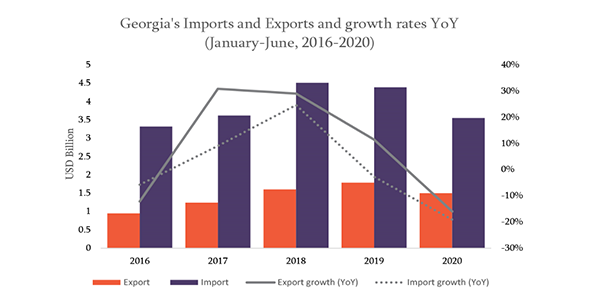
In the first half of 2020, external trade turnover in Georgia amounted to 5.054 bln USD, which is 18% less than corresponding period of 2019;
Georgian exports amounted to 1.5 bln in January-June 2020, which is 16% less than in January-June of 2019. Moreover, Georgian imports deteriorated even more by reaching 3.5 bln USD, which is 19% less than in the first half of 2019;
In the first half of 2020, Georgian trade deficit decreased by 0.55 bln USD (21%), compared to the first half of 2019;
There are more EU member states amongst Georgia’s top 10 export partners in the first half of 2020, compared to the first half of 2019;
In the period of January-June 2020, total trade turnover with the EU and Russia decreased by 22% and 16% respectively, but increased with China by 10% compared to the corresponding period of last year;
Georgia’s main trading partners in the first half of 2020 were Turkey, Russia and China. Their shares in Georgia’s total trade turnover were 14%, 12% and 10% respectively;
77.4% of Georgian exports are concentrated amongst the top ten partners. Moreover, top ten import partners occupy 69.4% of total imports.
Issue 120: Impact of COVID-19 on Remittance Inflows in Georgia
2020-07-30 00:00:00
Due to the COVID-19 pandemic, global remittance flows are expected to fall by 20% in 2020 (World Bank), while the decrease in Georgia is forecast at 15% (IMF);
In the first half of 2020, remittances have declined by just 4.8% compared to the same period of 2019;
Remittance inflows have been growing by an average of 8.5% over the past decade;
The contribution of remittance inflows in GDP has increased significantly over time and amounted 11% on average for the period of 2015-2019;
In 2020, remittance inflows saw a sharp drop (-42.3%) in April, however, the recovery in June was also strong (17.8%), compared to the same period of 2019;
Remittances from Russia declined the most in the first half of 2020 compared to the first half of 2019 (-27%), while Italy recorded the strongest growth (14%).
Georgian Economic Climate (Q3, 2020)
2020-07-27 00:00:00
In the third quarter of 2020, Georgian economic climate has slightly improved. In this period, Georgian economists assessed Georgia’s present economic situation negatively; Moreover, the assessment of present economic situation in this quarter has improved compared to the second quarter of 2020, but worsened compared to the third quarter of 2019. In the third quarter of 2020, Georgia’s economic situation for the next six months has also been assessed negatively by Georgian economists. Furthermore, expectations for the next six months have enhanced compared with second quarter of 2020, but deteriorated slightly compared with the third quarter of 2019.
Hotel Price Index (June, 2020)
2020-07-09 00:00:00
In Georgia, the average cost of a room in a 3-star hotel was 135 GEL per night in June 2020. While the average cost of a room in a 4-star hotel in Georgia was 223 GEL per night and the average cost of a room in a guesthouse was 73 GEL per night. The average cost of a room in a 5-star hotel in Georgia in June 2020 was 322 GEL per night. In Tbilisi, the average price was 471 GEL, followed by Kakheti - 327 GEL, Samtskhe-Javakheti - 279 GEL and Adjara – 273 GEL.
Monthly Tourism Update (June, 2020)
2020-07-09 00:00:00
Using various assumptions, in Q3 of 2020, the maximum capacity of domestic tourism expenditures is to replace 33% of revenues from international tourism;
Using various assumptions, total revenues generated from tourism (both, domestic and international) in 2020 could amount to $1730 mln, which is 44.1% of the corresponding figure in 2019;
Domestic tourism in Georgia reopened on June 15th, while the reopening of borders is postponed to the near future;
The number of international travelers declined by 94.6% in May compared to the same period of 2019, while the number of inter- national visitors fell by 94.1% and the number of international tourists fell by 93.8%;
In June 2020, hotel prices do not provide an accurate guidance of the situation in accommodation market due to the fact that the market for accommodations is just starting to recover from the COVID-19-induced crisis.
Economic Analysis of Georgia’s Free Trade Agreements with EU and China
2020-07-09 00:00:00
It’s been five years after DCFTA was implemented and two years have passed since FTA with China. It is interesting to conduct ex-post analysis to find out how these FTAs affected Georgia’s economy. Goal of ex-post analysis will be to determine what qualitative and quantitative impacts are observed after Georgia signed DCFTA and FTA with China, on macro and sectoral levels. Also, the research paper will try to find if DCFTA and FTA with China resulted in welfare gains. To be more precise, the paper aims to determine whether the increase in trade was a result of trade creation or trade was diverted.Another aim is to analyze quantitative effects on imports and exports on different aggregation levels. For conclusion, research paper will analyze differences and similarities between DCFTA and FTA with China and based on these empirical findings, the research will identify possible threats and opportunities, which may come from future free trade agreements.
China-Georgia Relations amid Georgia’s Western Path: An Emerging but Limited Partnership?
2020-07-09 00:00:00
This policy brief attempts to understand China-Georgia relations. Georgia-China economic relations have received particular attention, yet there is a relative lack of research5 on how both Georgia and China see bilateral relations, and what possible factors could be limiting the depth of the partnership. Discussing this is important as Georgia is building closer ties with the EU in particular, and the Western institutions and states in general, while China’s suggested model of development stands opposite to Western liberal order.
Kutaisi Investment Catalogue
2020-07-08 00:00:00
The investment catalogue for Kutaisi to stimulate domestic and foreign direct investments in the city.
Imereti Export Catalogue
2020-07-01 00:00:00
The export catalog for Imereti Region, showcasing products of the region’s leading manufacturers.
Issue 119: Foreign Direct Investments in Georgia
2020-06-24 00:00:00
Due to the COVID-19 pandemic, global FDI is expected to fall by 30-40% in 2020 (UNCTAD), while the decrease in Georgia is forecast at 19% (IMF);
Net FDI inflows have been decreasing in Georgia since 2017, based on both, yearly and Q1 data;
Net FDI inflows in Georgia experience volatility over time, due to large one-off investment projects;
Georgia has been leading among EaP countries in terms of the share of FDI in GDP in 2017 and 2018;
Net FDI inflows decreased by 41.7% in Q1 of 2020, compared to Q1 in 2019, mainly due to COVID-19 pandemic.
Monthly Tourism Update (May, 2020)
2020-06-18 00:00:00
The Government of Georgia introduced various support measures in order to alleviate the burden of the COVID-19 crisis on tourism industry in the period between March and May of 2020.
The Government of Georgia, namely GNTA, operated 84 hotels during the lockdown, which served 19 002 Georgian citizens as a quarantine zone. The total cost of providing quarantine zones from the budget amounted 32.5 mln GEL.
The Government of Georgia, developed mandatory recommendations for prevention of the spread of COVID-19 on June 5th.
In May 2020, hotel prices do not provide an accurate guidance of the situation in accommodation market due to the fact that the market for accommodations is non-existent due to COVID-19 pandemic.
Hotel Price Index (May, 2020)
2020-06-18 00:00:00
In Georgia, the average cost of a room in a 3-star hotel was 126 GEL per night in May 2020. While the average cost of a room in a 4-star hotel in Georgia was 214 GEL per night and the average cost of a room in a guesthouse was 71 GEL per night. The average cost of a room in a 5-star hotel in Georgia in May 2020 was 362 GEL per night. In Tbilisi, the average price was 534 GELfollowed by Kakheti - 325 GEL and Imereti – 95 GEL.
Annual Report 2019
2020-06-04 00:00:00
The year of 2019 proved to be a busy one, with opportunities grasped and challenges overcome. We implemented various interesting projects, each of which made a telling impact. Meanwhile, as existing partnerships were strengthened, we established exciting new ones as well. Specifically, we made notable strides forward in Ukraine where we increased our representation and intensified our work. Finally, and perhaps most importantly, our excellent team has been complemented by the addition of new people with diverse and invaluable expertise.
Monthly Tourism Update (April, 2020)
2020-06-03 00:00:00
Number of international travelers decreased by 612 273 (-94.5%), compared to the same period previous year, while number of visitors decreased by 515 440 (-93.8%) and the number of tourists decreased by 321 643 (-92.3%);
Based on GNTA database, in an average registered accommodation facility in Georgia, there are 15 rooms and 37 beds. There are on average 23 rooms and 55 beds in Adjara (highest) and 6 rooms and 15 beds in Samegrelo-Zemo Svaneti (lowest). There are on average 2.4 beds per one room in Georgia. This ratio equals 2.24 in Tbilisi (lowest) and 2.91 in Racha (highest);
Hotel prices do not provide an accurate guide of situation in accommodation market due to the fact that the market for accommodations is almost non-existant due to the COVID-19 pandemic
Hotel Price Index (April, 2020)
2020-06-03 00:00:00
In Georgia, the average cost of a room in a 3-star hotel was 128 GEL per night in April 2020. While the average cost of a room in a 4-star hotel in Georgia was 209 GEL per night and the average cost of a room in a guesthouse was 68 GEL per night. The average cost of a room in a 5-star hotel in Georgia in April 2020 was 343 GEL per night. In Tbilisi, the average price was 566 GEL, followed by Kakheti - 320 GEL, Adjara – 258 GEL and Samegrelo-Zemo Svaneti - 199 GEL.
Issue 118: Employment and Income in Georgia (2016-2019)
2020-05-19 00:00:00
Unemployment has remained one of the prioritised issues in Georgian economy since its independence. Moreover, Georgian economy was characterised with high unemployment rates even during periods of economic upturn prior to 2008 global financial crisis. COVID-19 is likely to impact job market and income of people employed, therefore, it is important to consider their pre-pandemic state. This bulletin overviews the unemployment and income figures of 2016-2019. The period of 2016-2019 is characterised with significant trends and issues such as: • Growth in average monthly incomes;• Slight decrease in unemployment rate;• Increased share of hired individuals in labor force;• Slight decrease of share of self-employed individuals in labor force.
Issue 117: Fiscal Effects of COVID-19 in Georgia
2020-05-14 00:00:00
PMC Research forecasts that budget deficit as a % of GDP will increase from 3.1% to 9.8% in the optimistic scenario, while in the less pessimistic and very pessimistic scenarios it will amount to 11.2% and 14.1%, respectively.
Recommendations:
Planned budget spending should be reprioritized to provide space for COVID-19-related expenditure;
Fiscal measures should be targeted to assist the hardest-hit households and firms. The government should ignore lobbying pressure from different sectors and businesses seeking benefit from fiscal policy package;
Effective public financial management is key to safeguarding against fiscal risks and enhancing the Government’s capacity to respond to the crisis.
Issue 116: The Impact of COVID-19 on the Georgian Economy
2020-04-28 00:00:00
If the optimistic scenario proves true, Georgia’s real economy is expected to shrink by 4.3%. The Georgian economy is expected to decrease by 8% in case of less pessimistic scenario, while in the event of the very pessimistic scenario, the expected fall is 12.9%.
In the optimistic scenario, Georgia’s real GDP growth is expected to drop by 0.43% every week, while the weekly loss is more pronounced for the less pessimistic (-0.47%) and very pessimistic (-0.5%) scenarios respectively.
The experiences of some European countries should be taken into account in the process of phased lifting of the restrictive measures.
Georgian Economic Climate (Q2, 2020)
2020-04-23 00:00:00
In the second quarter of 2020, Georgian economic climate has significantly worsened. In this period, Georgian economists assessed Georgia’s present economic situation negatively; Moreover, the assessment of present economic situation in this quarter has worsened drastically compared to the first quarter of 2020 and the second quarter of 2019.
In the second quarter of 2020, Georgia’s economic situation in the next six months has also been assessed negatively by Georgian economists. Furthermore, expectations in the next six months have deteriorated rapidly compared with both, first quarter of 2020 and second quarter of 2019.
Hotel Price Index (March, 2020)
2020-04-22 00:00:00
The average cost of a room in a 5-star hotel in Georgia in March 2020 was 274 GEL per night. In Mtskheta-Mtianeti, the average price was 779 GEL (only one 5-star hotel), followed by Tbilisi - 396 GEL, Samtskhe-Javakheti – 339 GEL and Guria - 331 GEL.
Monthly Tourism Update (March, 2020)
2020-04-22 00:00:00
Number of international travelers in Georgia decreased by 385 846 (-62.3%), compared to the same period previous year, while number of visitors decreased by 297 119 (-79%) and the number of tourists decreased by 184 320 (-56.1%).
Net revenues from exporting tourism services in 2019 amounted 3267.7 mln USD, which accounts for 18.4% of Georgian GDP.
In March 2020, compared to February 2020, hotel price index increased by 5.1%, which can be explained by a market failure.
In March 2020, compared to the same period of 2019, hotel price index decreased by 12.9%. The average price of 5-star hotels decreased by 43% Year over Year (YoY), while price for 4-star hotel fell by 18.1%, and for 3-star hotels and guesthouses by 5.8% and 3.3% respectively.
Prioritized Community Problems in Mestia Municipality
2020-03-24 00:00:00
PMC Research elaborated a report in order to prioritize community problems in Mestia municipality through the analysis of central and local government competences.
The study was conducted as part of the project “Support to the Development of Livelihoods in Disadvantaged Rural Regions of Georgia – Mestia/Samegrelo - Upper Svaneti Region,” which is funded by the European Union with co-funding from the Austrian Development Cooperation and is being implemented by Care Austria (CARE), in collaboration with PMC Research.
Hotel Price Index (February, 2020)
2020-03-13 00:00:00
In Georgia, the average cost of a room in a 3-star hotel was 115 GEL per night in February 2020. While the average cost of a room in a 4-star hotel in Georgia was 184 GEL per night and the average cost of a room in a guesthouse was 66 GEL per night.The average cost of a room in a 5-star hotel in Georgia in February 2020 was 301 GEL per night. In Mtkheta-Mtianeti, the average price was 779 GEL, followed by Tbilisi - 444 GEL, Samtskhe-Javakheti – 339 GEL and Guria - 331 GEL.
Monthly Tourism Update (February, 2020)
2020-03-13 00:00:00
In February 2020 compared to February 2019, International visitor trips decreased by 0.6%. Among them, the number of tourists increased by 4%. On January 29th, Georgia suspended direct flights from China due to COVID-19, as a result, in February 2020, number of visitors from China decreased by 59.5% compared to February 2019. In February 2020, compared to January 2020, hotel price index decreased by 23.2%. In February 2020, compared to the same period of 2019, hotel price index decreased by 14.6%. In terms of regions, the prices decreased the most in Adjara (-28.8%), followed by Guria (-25.5%), Samtskhe-Javakheti (-16.9%) and Tbilisi (-11.6%).
Hotel Price Index ( January, 2020 )
2020-03-06 00:00:00
In Georgia, the average cost of a room in a 3-star hotel was 136 GEL per night in January 2020. While the average cost of a room in a 4-star hotel in Georgia was 219 GEL per night and the average cost of a room in a guesthouse was 75 GEL per night.The average cost of a room in a 5-star hotel in Georgia in January 2020 was 432 GEL per night. In Tbilisi, the average price was 540 GEL, followed by Adjara - 389 GEL, Kakheti – 384 GEL and Samstkhe-Javakheti - 370 GEL.
In January 2020, in Georgia the hotel price index increased by 4% compared to December 2019. The 3-star, 4-star and 5-star hotel price index decreased by 1.9%, while for guesthouses, the price index increased by 10.8%. In January 2020, compared to January 2019, hotel prices in Georgia increased by 8.6%. The prices of 3*, 4*, 5* hotels increased by 4.6%, while the prices of guesthouses increased by 16.3%.
Monthly Tourism Update (January, 2020)
2020-03-06 00:00:00
Number of international visitors has increased by 18% in December 2019 and January 2020 combined, compared to December 2018 and January 2019 combined. Average annual growth rate of international visitor trips in December and January combined between years 2014-2019 was 8%. Average annual growth rate of international visitor trips in June, July and August combined between years 2014-2019 was 9%. Average price of hotels in Gudauri and Bakuriani in January 2020 was 207 and 206 GEL respectively, and 195 GEL in Mestia. In January 2020, compared to December 2019, hotel price index increased by 4%. In January 2020, compared to the same period of 2019, hotel price index increased by 8.6%.
Issue 115: Georgia’s External Trade, 2019
2020-02-18 00:00:00
The data analysis shows that in 2019, compared with the previous year, Georgia’s export has increased, while the country’s import decreased. In 2019, Georgia’s external trade balance amounted to negative $5.2 bln, which is a $0.49 bln decrease compared to the corresponding period of 2018.
Georgian Economic Climate (Q1, 2020)
2020-02-11 00:00:00
In the first quarter of 2020, Georgia’s economic situation in the next six months has been assessed negatively by Georgian economists. However, in this quarter, expectations in six months have improved compared with Q4 of 2019, while it deteriorated rapidly in relation to Q1 of 2019.
Local Development Strategy for Mestia Municipality 2020-2024
2020-02-06 00:00:00
Local Development Strategy for Mestia Municipality 2020-2024, developed in 2019 by the Business, Public and Civil Sector of Zemo Svaneti with the assistance of PMC Research.
The strategy was elaborated as part of the project “Support to the Development of Livelihoods in Disadvantaged Rural Regions of Georgia – Mestia/Samegrelo - Upper Svaneti Region,” which is funded by the European Union with co-funding from the Austrian Development Cooperation and is being implemented by Care Austria (CARE), in collaboration with PMC Research.
Hotel Price Index ( December , 2019 )
2020-01-27 00:00:00
In Georgia, the average cost of a room in a 3-star hotel was 140 GEL per night in December 2019. While the average cost of a room in a 4-star hotel in Georgia was 213 GEL per night and the average cost of a room in a guesthouse was 69 GEL per night.
Monthly Tourism Update (December , 2019)
2020-01-22 00:00:00
In December 2019, in Georgia the hotel price index3 increased by 9.1% compared to November 2019. The 3-star, 4-star and 5-star hotel price index increased by 6.4%, while for guesthouses, the price index increased by 13.9%.
ifo World Economic Survey (2019, IV)
2020-01-10 00:00:00
Publication by our partner Ifo Institute for Economic Research that estimates World Economic Outlook in Emerging Markets and Developing Economies according to 2019 year. This research was prepared by Ifo and was originally published in Ifo World Economic Survey, IV 2019 November, Vol. 18. PMC Research Center is a regional partner of Ifo Institute in South Caucasus.
Hotel Price Index ( November, 2019 )
2019-12-23 00:00:00
In Georgia, the average cost of a room in a 3-star hotel was 129 GEL per night in November 2019. While the average cost of a room in a 4-star hotel in Georgia was 202 GEL per night and the average cost of a room in a guesthouse2 was 64 GEL per night.
Monthly Tourism Update (November, 2019)
2019-12-23 00:00:00
In November 2019, in Georgia the hotel price index decreased by 6.4% compared to October 2019. The 3-star, 4-star and 5-star hotel price index decreased by 6.0%, while for guesthouses, the price index decreased by 9.4%.
Hotel Price Index (October 2019)
2019-12-16 00:00:00
In October 2019, in Georgia the hotel price index3 decreased by 5.9% compared to September 2019. The 3-star, 4-star and 5-star hotel price index decreased by 5.9%, while for guesthouses, the price index decreased by 6.2%.
Monthly Tourism Update (October, 2019)
2019-12-16 00:00:00
In Georgia, the average cost of a room1 in a 3-star hotel was 138 GEL per night in October 2019. While the average cost of a room in a 4-star hotel in Georgia was 215 GEL per night and the average cost of a room in a guesthouse2 was 69 GEL per night.
Georgian Economic Climate (Q4, 2019)
2019-11-18 00:00:00
In the fourth quarter of 2019, Georgian economic climate has slightly worsened.In this period, Georgian economists assessed Georgia’s present economic situation positively; Moreover, the assessment of present economic situation in this quarter has improved compared to the third quarter of 2019 and the fourth quarter of 2018.
Black Sea Bulletin: Tourism in the Black Sea Region
2019-11-12 00:00:00
Tourism is one of the fastest growing sectors in the world. It creates three hundred million jobs and accounts for 10% of global GDP. This bulletin reviews the tourism sectors of countries bordering the Black Sea in the last 6 years. The analysis is centered on the number of visits, dynamics, and the relationship between tourism and economic growth.
Hotel Price Index (September, 2019)
2019-10-28 00:00:00
In Georgia, the average cost of a room1 in a 3-star hotel was 145 GEL per night in September 2019. While the average cost of a room in a 4-star hotel in Georgia was 227 GEL per night and the average cost of a room in a guesthouse2 was 73 GEL per night.
Monthly Tourism Update (September , 2019)
2019-10-28 00:00:00
In September 2019, in Georgia the hotel price index1 decreased by 3.5% compared to August 2019. The 3-star, 4-star and 5-star hotel price index decreased by 3.8%, while for guesthouses, the price index decreased by 4.4%.
Issue 113: Analysis of Tighter Lending Regulations in Georgia
2019-10-17 00:00:00
In the past year, in response to rising levels of private debt, the National Bank of Georgia (NBG) enacted new regulations to curb excessive indebtedness. The impacts of the implemented regulations are as yet unclear but generally the reaction in the private sector has been negative. In this newsletter, a brief overview of the possible implications of these lending regulations are presented.
Hotel Price Index (August , 2019)
2019-09-19 00:00:00
In Georgia, the average cost of a room1 in a 3-star hotel was 151 GEL per night in August 2019. While the average cost of a room in a 4-star hotel in Georgia was 230 GEL per night and the average cost of a room in a guesthouse2 was 75 GEL per night.
Monthly Tourism Update (August, 2019)
2019-09-19 00:00:00
In August 2019, compared to August 2018, hotel prices in Georgia decreased by 2.4%. The prices of 3*, 4*, 5* hotels decreased by 5.3%, while the prices of guestouses increased by 3.1%
Monthly Tourism Update (July , 2019)
2019-09-12 00:00:00
In July 2019, compared to July 2018, hotel prices in Georgia decreased by 6.5%. The prices of 3*, 4*, 5* hotels decreased by 8.7%, while the prices of guestouses decreased by 2.8%. In July 2019, compared to July 2018, the number of international travelers trips in Georgia increased by 5.8%, and among the international travelers, the proportion who stayed in Georgia for 24 hours or more (classified as tourists) increased by 1%.
Gender Pay Gap in Georgia
2019-09-09 00:00:00
Gender pay gap has become a prominent issue across the world. Indeed, women on average earn 25% less than men in a number of Western countries. This gap has negative effects not only on society as a whole, but also on economic growth. According to McKinsey & Company, achieving gender parity could increase the economy by two digit percentage points.
ifo World Economic Survey (August, 2019)
2019-09-04 00:00:00
The World Economic Survey (WES) assesses global economic trends by polling transnational and national organizations worldwide on current economic developments in their respective countries. Its results offer a rapid, up-to-date assessment of the current economic situation internationally. In July 2019, 1,173 economic experts in 116 countries were polled.
Issue 112: Gender Pay Gap In Georgia
2019-09-03 00:00:00
The aim of this newsletter is to briefly examine the roots of the gender pay gap in Georgia, to reveal the differences of average wage in various sectors, distributions of labour force according to gender and hourly wages for males and females. Due to data limitations, only the wages of hired employees are considered.
Hotel Price Index (July 2019)
2019-08-30 00:00:00
In Georgia, the average cost of a room in a 3-star hotel was 148 GEL per night in July 2019. While the average cost of a room in a 4-star hotel in Georgia was 224 GEL per night and the average cost of a room in a guesthouse was 73 GEL per night.
The average cost of a room in a 5-star hotel in Georgia in July 2019 was 482 GEL per night. In Tbilisi, the average price was 588 GEL, followed by Adjara – 453 GEL, and Kakheti - 399 GEL and Samstkhe-Javakheti - 380 GEL.
Georgian Economic Climate (Q3, 2019)
2019-08-13 00:00:00
In the third quarter of 2019, Georgian economic climate has worsened rapidly. In this period, Georgian economists assessed Georgia’s present economic situation negatively; Moreover, the assessment of present economic situation in this quarter has deteriorated compared to both the previous quarter (Q2) of 2019 and the same time last year (Q3 of 2018). In the third quarter of 2019, Georgia’s economic situation in the next six months has also been assessed negatively by Georgian economists. In this quarter, expectations in six months has worsened compared to both, the second quarter of 2019 and the third quarter of 2018.
Diversification of Rural Economy in Georgia
2019-08-07 00:00:00
The research aims to study the current state of affairs in the rural economy and to identify steps towards its diversification by analyzing the vision, strategy and programs of the Government of Georgia, as well as regional and municipal authorities. We evaluated the development potential of linkages between farm and non-farm sectors and basic factors supporting the diversification of the rural economy.
Review of Monitoring and Evaluation Practices in the Georgian Government
2019-07-25 00:00:00
The main objective of the research is to study the extent to which the measurement of progress and the use of measurement data play a role in Georgian policymaking.
The research was conducted by PMC Research in collaboration with People in Need, as part of the EU project “Regional Civil Society Organizations Supporting Free Trade with Europe.”
Leveraging Small and Medium-sized Enterprise Finance Through Value Chains in Georgia
2019-07-25 00:00:00
This paper examines the status of SME finance in Georgia and the involvement of Georgian SMEs in global value chains. The role of SMEs in Georgia’s economy, SME funding, and the status of financial inclusion for SMEs are analyzed. Moreover, the level of financial literacy and skills of SME entrepreneurs is discussed. Furthermore, the paper analyzes the Georgian agricultural sector’s value chain and the involvement of this sector in global value chains by discussing the case study of the hazelnut. An analysis of the agricultural sector’s value chain financing in Georgia is carried out, its availability and development are discussed, and best practices of value chain financing are analyzed. Based on existing information, the paper identifies barriers to SME finance in Georgia and proposes policy recommendations and immediate actions with regard to existing government policies.
Hotel Price Index (June, 2019)
2019-07-19 00:00:00
In Georgia, the average cost of a room in a 3-star hotel was 137 GEL per night in June 2019. While the average cost of a room in a 4-star hotel in Georgia was 232 GEL per night and the average cost of a room in a guesthouse was 76 GEL per night. The average cost of a room in a 5-star hotel in Georgia in June 2019 was 448 GEL per night. In Tbilisi, the average price was 618 GEL, followed by Samstkhe-Javakheti - 417 GEL, Adjara – 384 GEL, and Kakheti - 369 GEL.
Monthly Tourism Update (June, 2019)
2019-07-19 00:00:00
In June 2019, compared to June 2018, hotel prices in Georgia decreased by 2.9%, this was mainly due to the prices of 3*, 4*,5* hotels. The prices of 3*, 4*, 5* hotels decreased by 7.3%, while the prices of guestouses increased by 9.9%. In June 2019, compared to June 2018, the number of international travelers trips in Georgia increased by 19.9%, and among the international travelers, the proportion who stayed in Georgia for 24 hours or more (classified as tourists) increased by 18%.
Sectoral Analysis of Regional Markets in Georgia by Using the Components of Smart Specialization
2019-07-17 00:00:00

The study aims to map and analyze the private sector in Tbilisi, Samegrelo-Zemo Svaneti region (Senaki, Zugdidi, Tsalenjikha, and Poti municipalities) and Kvemo Kartli region (Marneuli municipality).
The assessment methodology entailed a combination of desk research and qualitative study. During the desk research, the size of the market in each of the target regions was studied and, by using the economic potential component of the Smart Specialization methodology, a private sector assessment was conducted. Smart Specialization is an approach that has been elaborated by the European Union (EU), and is widely used when analyzing national and regional competitiveness.
Under this approach, we have identified vital economic sectors (concentrated and competitive economic sectors) for the targeted regions, by using regional analysis methods such as location quotient (LQ) and shift-share analysis. With the help of shift-share analyses, competitive sectors for the targeted regions were identified, while concentrated sectors were identified by using LQ. After identifying concentrated and competitive sectors for targeted regions, the sectors which were both concentrated and competitive were chosen. If there was no such sector in a given location, then sectors were selected based on the shift-share analysis results. In addition, by applying enterprise birth and survival analysis, we identified economically active sub-sectors within each selected sector.
Monthly Tourism Update (May, 2019)
2019-06-21 00:00:00
In May 2019, compared to May 2018, hotel prices in Georgia increased by 3.4%, this was mainly due to the prices of guesthouses.In Georgia, in May 2019, compared to May 2018, the prices of 3*, 4*, 5* hotels decreased by 2.5%, while the prices of guestousesincreased by 15.9%. In May 2019, compared to May 2018, the number of international travelers trips in Georgia increased by14.2%, and among the international travelers, the proportion who stayed in Georgia for 24 hours or more (classified as tourists)increased by 18%;
Hotel Price Index (May, 2019)
2019-06-21 00:00:00
In Georgia, the average cost of a room1 in a 3-star hotel was 128 GEL per night in May 2019. While the average cost of a room in a 4-starhotel in Georgia was 219 GEL per night and the average cost of a room in a guesthouse2 was 76 GEL per night.The average cost of a room in a 5-star hotel in Georgia in May 2019 was 494 GEL per night. In Tbilisi, the average price was 612 GEL,followed by Adjara – 479 GEL, Samtskhe-Javakheti - 375 GEL, and Kakheti - 375 GEL.
Issue 111: External Trade, I Quarter 2019
2019-06-04 00:00:00
The first quarter of 2019 produced some interesting figures in Georgia’s external trade. In this period, external trade was recorded with a total of 121 countries. The data analysis shows that in the first quarter of 2019, compared with the corresponding period of the previous year, Georgia’s export has increased while the country’s import decreased. The analysis of Georgian trade based on import origin and export destination countries reveals that the volume of export has increased the most to Russia while the biggest decrease in imports was recorded with France.
Hotel Price Index (April, 2019)
2019-05-27 00:00:00
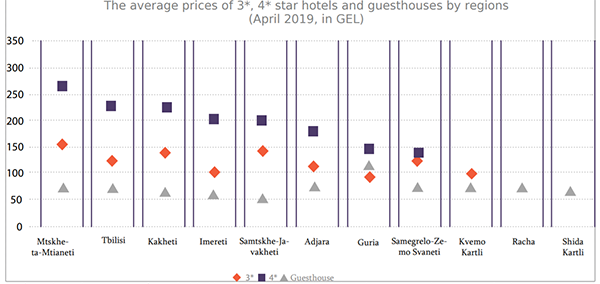
In Georgia, the average cost of a room in a 3-star hotel was 123 GEL per night in April 2019. While the average cost of a room in a 4-star hotel in Georgia was 215 GEL per night and the average cost of a room in a guesthouse was 70 GEL per night.
The average cost of a room in a 5-star hotel in Georgia in April 2019 was 484 GEL per night. In Tbilisi, the average price was 525 GEL, followed by Adjara – 473 GEL, Samtskhe-Javakheti - 368 GEL, and Kakheti - 367 GEL.
In April 2019, in Georgia the hotel price index increased by 2.2% compared to March 2019. The 3-star, 4-star and 5-star hotel price index increased by 0.5%, while for guesthouses, the price index increased by 5%. In April 2019, compared to April 2018, the hotel prices in Georgia decreased by 1.8%. This was mainly due to price decreases of 3*, 4* and 5* hotels.
In Georgia in April 2019, compared to April 2018, the prices of 3*, 4* and 5* hotels decreased by 2.9%, while the prices of guesthouses increased by 1.9%.
Monthly Tourism Update (April, 2019)
2019-05-27 00:00:00
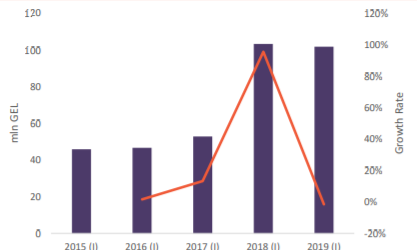
In April 2019, compared to April 2018, the number of international travelers trips in Georgia increased by 4.6%, and among the international travelers, the proportion who stayed in Georgia for 24 hours or more (classified as tourists) increased by 4.2%, however the hotel prices in Georgia decreased by 1.8%, among them the prices of 3*, 4* and 5* hotels decreased by 2.9%, while the prices of guesthouses increased by 1.9%.
In April 2019, in Georgia the hotel price index increased by 2.2% compared to March 2019. The 3-star, 4-star and 5-star hotel price index increased by 0.5%, while for guesthouses, the price index increased by 5%. It has to be noted that In April 2019, compared to March 2019, the number of international travelers trips in Georgia increased by 4.6%, while among the international travelers, the proportion who stayed in Georgia for 24 hours or more (classified as tourists) increased by 6.1%.
In Georgia, in the first quarter of 2019, the expenditure spent by international travelers on accomodation amounted USD 101.8 mln, while the average expenditure per visit - 228.9 GEL. These are accordingly 1.5% and 2.6% lower compared to the first quarter of 2018.
According to Airbnb, In April 2019, among the Black Sea Countries the lowest price for an apartment was recorded in the capital of Bulgaria, Sofia – 40 USD, while the highest price was recorded in Moscow – 100 USD.
Georgian Economic Climate (Q2, 2019)
2019-05-15 00:00:00
In the second quarter of 2019, Georgian economic climate has slightly improved. In this period, Georgian economists assessed Georgia’s present economic situation positively, However, the assessment of pres- ent economic situation in this quarter has deteriorated compared to the first quarter of 2019 and the second quarter of 2018. In the second quarter of 2019, Georgia’s economic situation in the next six months has also been assessed positively by Georgian economists. In this quarter, expectations in six months has slightly improved compared to the first quarter of 2019; Not- withstanding, the expectations in six months of Q2 2019 has deteriorated compared with the Q2 2018.
Hotel Price Index (March, 2019)
2019-04-22 00:00:00

In March 2019, in Georgia the hotel price index increased by 5.1% compared to February 2019. The prices of hotels in Tbilisi increased by 4.2%. In March 2019, compared to February 2019, the increase of hotel prices in Georgia, can be linked to increased number of tourists trips, as the number of international travelers trips in Georgia increased by 31.9%, while among the international travelers, the proportion who stayed in Georgia for 24 hours or more (classified as tourists) increased by 32.6%.
In March 2019, compared to March 2018, in Georgia the hotel price index increased by 1.1%. The number of international travelers in March 2019, compared to March 2018, increased by 6.4%, while among the international travelers the proportion who stayed in Georgia for 24 hours or more (classified as tourists) increased by 4.3%.
It has to be noted that 2018 was the first year, when share of nights spent by the international travelers in hotels exceeded the share of nights spent in friends and relatives house. In Georgia, in 2018, by international travelers, the highest share of nights were spent in hotels - 39.6%, 26.5% of nights were spent in friends and relatives house, while in guesthouses - 12.7% and in apartment - 11.7%.
In Tbilisi, among the 3-star hotels registered on booking.com website the highest share of prices ranges between 50-150 GEL, for 4-star hotels 150-300 GEL, while for guesthouses - 0-150 GEL
Issue 110: Foreign Direct Investments in Georgia (2014 - 2018)
2019-04-15 00:00:00
Analysis of FDI into Georgia for 2014-2018 revealed the following general findings:
In 2018, the financial, transport and communications, and energy sectors attracted the most FDI;
In 2018, Azerbaijan, the United Kingdom, and the Netherlands were the countries investing most in Georgia;
Based on the cumulative amounts of FDI for the past five years, transport and communications (28.4%) is the most attractive sector for FDI in Georgia, while the agricultural sector is the least attractive (0.8%);
Based on the cumulative amounts, countries investing most in Georgia are: Azerbaijan, Netherlands, the United Kingdom, Turkey and USA.
The shares of FDI from China and the EU in the total FDI into Georgia have been increasing since 2017;
During 2017-2018, the share of reinvestments in the total FDI into Georgia increased, while the shares of equity and debt instruments decreased.
Who gets to be Educated in Georgia: Constraints on Human Capital Development
2019-03-25 00:00:00
Human capital development is increasingly seen as the biggest driver of economic growth and the most powerful tool in the fi ght against poverty (World Bank, 2018). This idea is embodied in the World Bank’s new initiative - Human Capital Project, which is designed to stimulate more and better investment in human capital. As one of early adopter countries, Georgia is collaborating with the World Bank to build an evidencedriven strategy for accelerating progress in human capital outcomes.
Issue 109: Inequality in Education
2019-03-14 00:00:00
Human capital development is increasingly seen as the biggest driver of economic growth and the most powerful tool in the fight against poverty (World Bank, 2018). This idea is embodied in the World Bank’s new…
Hotel Price Index (February, 2019)
2019-03-14 00:00:00
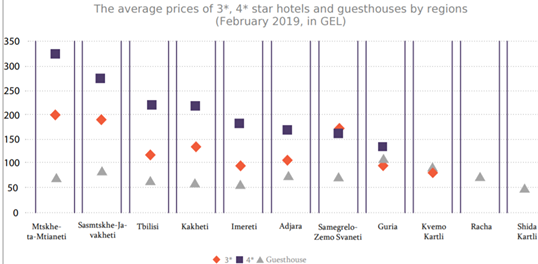
In February 2019, in Georgia the hotel price index decreased by 1.7% compared to January 2019. In Tbilisi, the hotel prices decreased by 1.9%. The decrease of hotel prices in Georgia, can be linked to decreased number of tourists' trips. In February 2019, compared to January 2019, the number of international travelers trips in Georgia decreased by 11.2%, while among the international travelers, the proportion who stayed in Georgia for 24 hours or more (classified as tourists) decreased by 19%.The number of international travelers visiting Georgia in February 2019, compared to February 2018, decreased by 0.4%. However, of these international travelers, the proportion who stayed in Georgia for 24 hours or more (classified as tourists) increased by 5.1%. This was expected to have a positive effect on hotel price increases, however in February 2019, compared to February 2018, in Georgia the hotel price index decreased insignificantly by 0.4%. This was mainly due to price decreases of guesthouses. While, the 3-star, 4-star and 5-star hotel price index increased by 2.2%, for guesthouses, the price index decreased by 2.9%.It's worth to be mentioned that the revenue from international travelers amounted 3.2 billion USD in 2018. According to countries, the most revenue from international travelers was received from Russia - 26.3% (USD 842 mln), followed by Turkey - 13.7% (USD 437 mln), and EU countries - 12.3% (USD 394 mln). In 2018, compared to 2017, the shares of revenues from internationals travelers from Turkey, Ukraine, Armenia and Iran decreased, while shares of Russia, EU countries and Iran increased.
Black Sea Bulletin: Exchange Rates - 2018
2019-03-11 00:00:00
In this bulletin, we discuss exchange rate dynamics in the countries of the Black Sea region during the period of 2014-2018. In particular, the exchange rates of these countries’ currencies against the USD and EUR…
Economic Diplomacy in Georgia: Existing Practice and Future Prospects
2019-02-27 00:00:00
The purposes of this policy paper are to present the priorities of the Government of Georgia (GoG) in economic diplomacy, to map economic diplomacy institutions, and to describe their functions. It also aims to present practical cases of conducting economic diplomacy. Case studies of selected EU Member States which have assigned strategic importance to economic diplomacy in achieving their economic development goals are presented and these contribute to the elaboration of recommendations for Georgia.
Hotel Price Index (January, 2019)
2019-02-25 00:00:00
In January 2019, in Georgia the hotel price index decreased by 3.9% compared to December 2018. Among ten regions of Georgia and Tbilisi, in January 2019, compared to December 2018, the hotel prices increased only in Racha (1.3%). In Tbilisi, hotel prices decreased by 4.2%. In January 2019, compared to…
The Belt and Road Initiative in the South Caucasus Region
2019-02-22 00:00:00
The aim of the project is to study the impact of the BRI on the countries of Central Asia and the South Caucasus (CASC) and ascertain how these countries individually and through regional cooperative efforts can maximize the benefits of the BRI and manage any potential risks.
Tomato Value Chain Analysis in Imereti Region
2019-02-21 00:00:00
PMC Research, in cooperation with regional civil society organizations of the Imereti region, conducted value chain analysis on tomato with an emphasis on the export potential to the European Union market.
Blackberry Value Chain Analysis in Kakheti Region
2019-02-21 00:00:00
PMC Research, in cooperation with regional civil society organizations of the Kakheti region, conducted value chain analysis on blackberry with an emphasis on the export potential to the European Union market.
Georgian Economic Climate (Q1, 2019)
2019-02-19 00:00:00
In the first quarter of 2019, Georgian economic climate slightly improved. In this period, Georgian economists assessed Georgia’s present economic situation positively. The assessment of present economic situation in this quarter has deteriorated compared with the first quarter of 2018; However, it has improved compared to the fourth quarter of 2018.
Issue 108: Employment in Georgia (2014-2017)
2019-02-13 00:00:00
Increasing the employment rate represents one of the most significant challenges and priorities of the Georgian economy. This bulletin appraises trends related to employment for the period of 2014-2017.
Laurel Value Chain Analysis in Samegrelo Region
2019-02-04 00:00:00
PMC Research, in cooperation with regional civil society organizations of the Samegrelo region, conducted value chain analysis on laurel with an emphasis on the export potential to the European Union market.
Carrot Value Chain Analysis in Samtskhe-Javakheti Region
2019-01-31 00:00:00
PMC Research, in cooperation with regional civil society organizations of the Samtskhe-Javakheti region, conducted value chain analysis on carrot with an emphasis on the export potential to the European Union market.
Hotel Price Index (December, 2018)
2019-01-22 09:09:57

In December 2018, compared to November 2018, in Tbilisi, the hotel price index increased by 11.9%. The growth rate of guesthouse prices (21%) significantly exceeded the growth rate of 3*, 4* and 5* hotel prices (9.3%). Notably, the given dynamics differs from the dynamics of the previous year, when the overall price level of hotels in Tbilisi increased by 12.5%, the 3*, 4* and 5* hotel prices rose by 15.1%, while guesthouse prices grew only by 3.6%.
In December 2018, compared to December 2017, the hotel price index increased by 1% in Georgia. The daily rates for standard double hotel rooms increased the most in Adjara (21.1%) and Samtskhe-Javakheti (14.8%). Whereas in Tbilisi, the overall price level of hotels decreased by 9.8%. This is mainly due to the price decreases in 3*, 4* and 5* hotels in Tbilisi. While the prices of 3*, 4* and 5* hotels decreased by 14.7% in Tbilisi, the prices of guesthouses increased by 9%.
It is of note that during the previous year, the number of 3*, 4* and 5* hotels registered on booking.com in Tbilisi grew by 46%, while the pool of registered guesthouses expanded by 19.1%.
Khulo Local Development Strategy
2019-01-16 00:00:00
PMC Research developed Khulo local development strategy, aiming at improve employment and living conditions in Khulo Municipality through diversification of the rural economy.
Khulo Municipality Tourism Development Plan
2019-01-14 00:00:00
The goal is to define and implement a plan for transforming resources and assets into the world-class tourism products, destination sites and create visitor’s experiences that will attract tourists from the region as well as from the world highest spending travel markets that will contribute to the national economy and local development.
Hotel Price Index (November, 2018)
2018-12-18 08:49:07
• In November 2018, compared to November 2017, in Georgia the hotel price index decreased by 0.1%;• In November 2018, compared to November 2017, the daily rates for standard double hotel rooms decreased the most in Guria(-14.7%) and Kakheti (-13.6%);• In November 2018, compared to November 2017, the hotel prices in Tbilisi decreased by 8.9%;• In November 2018, the average cost of a room in each category was as follows: 3-star hotel room - 120 GEL per night; 4-star hotelroom - 221 GEL; 5-star hotel room - 489 GEL; guesthouse room- 63 GEL;• In November 2018, compared to October 2018, the hotel price index decreased by 11.2%.
Issue 107: Georgia in International Rankings in 2018
2018-12-12 14:44:11
Georgia was ranked 66th among 140 countries in the World Economic Forum’s Global Competitiveness Index1 in 2018.
During 2010-2018 Georgia’s position in the ranking was improving, except one year. In 2018, compared to 2017, Georgia’s position in the ranking improved by 1 place.
Among the so-called pillars measured to calculate the Global Competitiveness Index in 2018, Georgia scored best in terms of its labor market (31st place) while it was least competitive in
terms of market size (102th place).
Among the Central Asia and South Caucasus countries2 in 2018, Kazakhstan was the top performer in this Global Competetiveness Index (59th place), while Tajikistan held the lowest position in the index (102nd place).
Hotel Price Index (October, 2018)
2018-11-21 08:28:24
In October 2018, compared to October 2017, in Georgia the hotel price index increased by 7.2%;
In October 2018, compared to October 2017, the daily rates for standard double hotel rooms increased the most in Adjara (22.7%) and Samtskhe-Javakheti (17.9%);
In October 2018, compared to 2017, the hotel prices in Tbilisi increased by 1.3%;
Georgian Economic Climate (Q4, 2018)
2018-11-19 00:00:00
In the fourth quarter of 2018, Georgian economic climate barely remained satisfactory. In this period, Georgian economistsassessed Georgia’s present economic situation satisfactorily. However, assessment of present economic situation in this quarter deteriorated compared to the third quarter of 2018, and the fourth quarter of 2017.
Hotel Price Index (September, 2018)
2018-10-15 12:55:37
During October 2017 – September 2018 period, in Tbilisi the highest average prices of a room in a 3* and 4* hotels were recorded in December 2017, respectively 165 GEL and 293 GEL, the lowest prices were recorded in February 2018, respectively 124 GEL and 214 GEL.
In September 2018, the hotel price index decreased by 5.9% compared to August 2018;
In September 2018, the average cost of a room in each category was as follows: 3-star hotel room - 135 GEL per night; 4-star hotel room - 244 GEL; 5-star hotel room - 521 GEL; guesthouse room- 70 GEL.
Issue 106: Foreign Direct Investment, January-June 2018
2018-09-18 08:46:18
Analysis of the preliminary data on FDI for the first half of 2018 revealed the following general findings:
The financial, energy, and construction sectors attracted the most FDI;
Azerbaijan, the United Kingdom, and the Netherlands were the largest investing countries for Georgia;
Based on the cumulative values of the past 4.5 years, transports and communications is the most attractive sector for FDI in Georgia;
The shares of FDI from China and the EU in the total FDI in Georgia were their highest since 2014;
Based on a semi-annual analysis, reinvestments surpassed equity for the first time in th e available data of 2013-2018.
Hotel Price Index (August, 2018)
2018-09-17 06:21:42
In August 2018, the hotel price index increased only by 0.01% compared to July 2018;
In August 2018, the daily rates for standard double hotel rooms increased the most in Guria (7.6%), while the hotel prices decreased mostly in Samtskhe-Javakheti (-1.6%);
In August 2018, the 3-star, 4-star and 5-star hotel price index decreased by 0.9% compared to July 2018;
In Guria the 3-star, 4-star and 5-star hotel price increased by 18.4%, such price increase was primarily due to 3, 4 and 5 star hotel price increases in Ureki;
In August 2018, in Tbilisi, the 3-star, 4-star and 5-star hotel prices decreased by 0.3% compared to July 2018;
In August 2018, the average cost of a room in each category was as follows: 3-star hotel room - 147 GEL per night; 4-star hotel room - 253 GEL; 5-star hotel room - 455 GEL; guesthouse room- 74 GEL.
Georgian Economic Climate (Q3, 2018)
2018-09-04 11:13:13
In the third quarter of 2018, Georgian economists positively assessed Georgia’s Economic Climate Indicator (ECI). The Georgianeconomy is categorized under “Boom” with a positive assessment of its present situation and expectation for the next sixmonths.
Raspberry Value Chain Analysis in Mtskheta-Mtianeti Region
2018-08-21 13:01:52
PMC Research Centre, in cooperation with regional civil society organizations of the Mtskheta-Mtianeti region, conducted value chain analysis on raspberry with an emphasis on the export potential to the European Union market.
Broccoli Value Chain Analysis in Kvemo Kartli Region
2018-08-21 12:50:22
PMC Research, in cooperation with regional civil society organizations of the Kvemo Kartli region, conducted value chain analysis on broccoli with an emphasis on the export potential to the European Union market.
Hotel Price Index (July, 2018)
2018-08-10 06:11:47
In July 2018, the hotel price index increased by 2.7% compared to June 2018;
In July 2018, the daily rates for standard double hotel rooms increased the most in Adjara(10.1%) and Samtskhe-Javakheti (5.9%), while the hotel prices decreased only in Tbilisi (-1.2%);
In July, the average cost of a room in each category was as follows: 3-star hotel room - 148 GEL per night; 4-star hotel room - 254 GEL; 5-star hotel room - 455 GEL; guesthouse room- 72 GEL;
In Tbilisi, the 3-star, 4-star and 5-star hotel prices decreased by 2.1% in July 2018, compared to June 2018;
On Tripadvisor, 1618 accommodation units are registered in Tbilisi, significantly exceeding the number of accommodation units registered in Baku - 456, Yerevan - 436 and Ankara – 364.
Issue 105: External Trade, January-June 2018
2018-08-03 00:00:00
The first half of 2018 produced some interesting figures regarding Georgia’s external trade. Even though the existing data is only preliminary, the analysis thereof unveils some curious results. Georgia’s exports and imports reached their highest point for the observed period of 2015-2018. In the first half of 2018, Georgia was recorded to have conduced external trade with 133 countries, a record-breaking amount in the observed period. With free trade agreements already in place with China and the EU, we have been able to conduct a rough analysis of the effects of the two agreements so far. To analyze these effects, the observed period is taken from January 2015 to June 2018.
Hotel Price Index (June, 2018)
2018-07-12 20:25:05
In June 2018, the hotel price index increased by 8.6% compared to May 2018;
The 3-star, 4-star and 5-star hotel price index increased by 10.6% in June 2018 compared to May 2018;
Among 3*, 4* and 5* hotels the highest price increases were recorded in Adjara – 36% and Guria – 32.8%, in Tbilisi prices increased only by 0.4%;
In June the average cost of a room in a 3-star hotel was GEL 143 per night, 4-star hotel - 247 GEL, 5-star hotel - 403 GEL, guesthouses - 73 GEL.
Issue 104: External Factors Affecting the Value of Georgian Lari Exchange Rate
2018-07-10 07:49:21
For the period of 2014 to 2017, in every first quarter of each year compared to the first quarter of the previous year, the nominal exchange rate of the Georgian Lari (GEL) against the US Dollar (USD) depreciated. This trend stopped this year though as in the first quarter of 2018, compared to the first quarter of 2017, the GEL appreciated by 4.5% and the value of 1 USD was equal to 2.49 GEL (average exchange rate in the first quarter of 2018).
Hotel Price Index (May, 2018)
2018-06-15 00:00:00
The 3-star, 4-star and 5-star hotel price index increased by 2% in May 2018 compared to April 2018;
For guesthouses, the price index decreased by 1.8% in May 2018 compared to April 2018;
According to Airbnb, in May 2018, looking at the self-governing cities of Georgia the highest average cost of an apartment was recorded in Batumi-US$48;
In the first quarter of 2018, compared to the first quarter of 2017, the number of inbound visitors increased significantly in Imereti (by 67%) and Mtskheta-Mtianeti (by 47%).
Issue 103: Gross Domestic Product, 2017
2018-05-28 09:47:12
According to preliminary data, the Georgian economy is characterized by a 5.0% growth in 2017, which is the highest annual real growth rate for the country since 2012. A trend analysis of GDP is useful in comprehending the indicator relative to previous years. Furthermore, a sectorial analysis of Georgia’s GDP enables us to understand the reasons behind the country’s economic growth in 2017. The three sectors which recorded the most significant growth in 2017, namely hotels and restaurants, construction, and financial intermediation, have been selected for further examination.
Georgian Economic Climate (Q2, 2018)
2018-05-28 06:40:19
Georgian Economic Climate is a joint product of PMC Research Center and the ifo Institute for Economic Research. In this bulletin, we discuss Georgia’s economic climate as assessed by Georgian economists. PMC Research is a regional partner of the ifo Institute, one of the leading economic research institutesin Europe,specializing in applied economic research, policy advising and other services for governments, businesses, researchers and the public.
Hotel Price Index (April, 2018)
2018-05-14 06:34:49
The 3-star, 4-star and 5-star hotel price index increased by 3.4% in April 2018, compared to March 2018;
The prices for guesthouses increased by 6% in April 2018, compared to March 2018;
According to Airbnb, in April 2018, looking at the capital cities of Georgia and its neighboring countries1 the cheapest apartments were found in Ankara (on average US$35 per night), while the most expensive were found in Moscow (on average US$130 per night);
On Airbnb, in April the average price of an apartment in Tbilisi was US$44 per night, while in Georgia as a whole it was US$45 per night;
According to the Georgian National Tourism Administration, during 2016-2017 the highest number of accommodation units2 in Georgia were opened in Guria, with a total of 30 units.
Black Sea Bulletin: External Trade - 2017
2018-05-10 11:00:18
In the first issue of the publication the main focus of discussion is individual and inter-regional external trade, helping us to identify the economic ties among the involved countries.
Issue 102: Higher and Vocational Education, 2013-2017
2018-05-03 12:35:12
High-quality education is one of the main determinants of economic growth. According to the “Government Program 2016-2020”, education is one of the main priorities for the Government of Georgia. Since 2013, the allocated budget of the Ministry of Education and Sciences of Georgia and its share in GDP has been increasing annually. These dynamics can affect, both directly and indirectly, on economic indicators such as productivity, competitiveness, unemployment and welfare. In this regard, the review of different aspects of higher and vocational education is worthwhile.
Hotel Price Index (March, 2018)
2018-04-16 00:00:00
The 3-star, 4-star and 5-star hotel price index increased by 9% in March 2018, compared to February 2018;In March 2018, the daily rates for 3-star, 4-star and 5-star standard double hotel rooms increased significantly in Tbilisi (15.5%), while the daily rates decreased the most in Mtskheta-Mtianeti (-10.6%);During the last five months (November 2017-March 2018), in terms of regions, the most expensive 3-star and 4-star hotels were in Mtskheta-Mtianeti; In March 2018, 292,017 tourists visited Georgia, which is 64% more compared to February.
Hotel Price Index (February, 2018)
2018-03-21 00:00:00
In this bulletin, we discuss: hotel prices in February across different regions of Georgia; the hotel price index in February 2018 compared to January 2018; monthly hotel price changes during the November 2017-February 2018 period.
Georgian Economic Climate (Q1, 2018)
2018-03-16 11:16:38
Georgian Economic Climate is a joint product of PMC Research Center and the ifo Institute for Economic Research. In this bulletin, we discuss Georgia’s economic climate as assessed by Georgian economists. PMC Research is a regional partner of the ifo Institute, one of the leading economic research institutesin Europe,specializing in applied economic research, policy advising and other services for governments, businesses, researchers and the public.
Options for Railway Infrastructure Development in Tbilisi
2018-03-12 14:49:31
This study compares the following four alternatives: keeping the status quo (Option 1); the 2009 Tbilisi Railway Bypass Project (Option 2); a city tunnel from Navtlughi district to Didube district (Option 3); and retaining the city’s main railway line and central station, but relocating all other railway infrastructure from the Didube-Nadzaladevi districts to the city’s peripheral districts (Option 4).
101: Georgia in International Rankings
2018-03-05 00:00:00
Positions in international rankings are an important indicator of how a country is performing with regard to its economic, social and political environment. In this bulletin, Georgia’s positions in international rankings and their dynamics will be reviewed based on recent data.
Hotel Price Index (January, 2018)
2018-02-19 00:00:00
In this bulletin, we discuss hotel prices in January across different regions of Georgia and calculate the hotel price index in January 2018 compared to December 2017. Information about hotels and hotel price data were collected by contacting hotels individually and by using the booking.com website.
Hotel Price Index (December, 2017)
2018-02-01 07:45:36
In this bulletin, we discuss hotel prices in December across different regions of Georgia and calculate the hotel price index in December 2017 compared to November 2017. Information about hotels and hotel price data were collected by contacting hotels individually and by using the booking.com website.
Georgia as a Transit Hub and its Increasing Potential in the Implementation of the Belt and Road Initiative
2018-01-25 00:00:00
This paper has identified a clear interconnection between the BRI and Georgia’s economic development strategy in terms of infrastructure development and trade facilitation. Furthermore, this paper has suggested that Georgia could leverage the advantages of its trade agreements (DCFTA with the EU; FTA with China) and favourable business environment to be an important transit hub in the South Caucasus region and beyond.
100: Georgian Economy - Overview, 2007-2017
2018-01-16 05:42:32
The 100th edition of Economic Outlook and Indicators happily coincides with PMCG’s 10-year anniversary. Through the last decade, Georgia’s economic indicators have fluctuated substantially. In this edition, we present the dynamics of development for this period, and also analyze the main economic indicators for 2007-2017.
99: Tourism- January-September, 2017
2017-11-13 07:15:01
In 2017, compared to the corresponding period of 2016:
• In the first three quarters, the number of tourists increased by 29%; in the third quarter, the proportion of tourists making up total international travelers reached its peak at 52.1%.• In the first three quarters, the proportion of air travel in all travel rose by 26% while travel by land decreased by 5%.• In the first three quarters, the number of persons arriving at any of Georgia’s three international airports (Batumi, Kutaisi, and Tbilisi) increased by 47%.• From January to August, payments made by foreign credit cards in Georgia increased by 33% and payments made by Georgian credit cards in foreign countries increased by 37%.
98: Development of the Agricultural Sector- January-June, 2017
2017-09-07 00:00:00
In the agricultural sector:
In the last eight years, total production output has fluctuated between 7.8% and10.3% of gross domestic product
In the first quarter of 2017, foreign direct investment amounted to negative US$0.3 mln
In the first half of 2017, the volume of loans in the national currency almost reached the volume of loans in foreign currencies
In the first half of 2017, the volume of imports was 2.4 times the volume of exports
97: Remittances - January-June, 2017
2017-07-26 00:00:00
In the first half of 2017:
Remittance inflows to Georgia amounted to $629 Mln
Remittance outflows from Georgia amounted to $96.3 Mln
Inflow from Russian Federation, United States, Italy, Greece, Israel, and Turkey amounts to 81% of total remittance inflows to Georgia
96: Construction - I Quarter, 2017
2017-07-06 13:05:45
In the first quarter of 2017, compared to the corresponding period of 2016:
Production value of the construction sector increased by 13%;
Total turnover of the construction sector increased by 16%;
Foreign direct investments in the construction sector increased by 188% (GEL 36.4 mln);
The number of persons employed in the construction sector increased by 2.8% (1,600 persons).
Issue 95: Business Sector - I Quarter, 2017
2017-06-22 07:15:36
In the first quarter of 2017, compared to the corresponding period of 2016:
The production value of the business sector significantly increased (16%);
A 19.1% increase in total turnover was observed;
The number of persons employed in the business sector increased (4.7%; 27,000 persons);
The average monthly remuneration of persons employed in the business sector increased (11%; GEL 101.6).
Issue 94: External Trade, January-April, 2017
2017-06-07 10:11:51
In January-April 2017, compared to the corresponding period of last year:• Both, export (29.7%) and import (12.7%) volumes increased;• Turkey was the leading trade partner of Georgia (14.6% of total trade turnover); • The proportion of EU countries in total trade turnover reached 27%;• The volume of export to Russia significantly increased (131%);• Of Georgia’s exports, 9.9% went to China.
Issue 93: Visa Requirements Map
2017-05-11 00:00:00
The map provides information about the visa requirements for Georgian visitors in abroad. It also gives information which type of visa foreign visitors need to enter to Georgia. Moreover, the other visa related information by country is also provided on the map.
Issue 92: Banking Sector, January-February, 2017
2017-04-24 09:09:06
According to data for February 2017, compared to the corresponding period in 2016:
• The volume of deposits increased by 7.4%;• The volume of loans to the national economy increased by 15.4%;• The share of loans for construction in total loans increased significantly (2.2 percentage points), while the share of loans for trade decreased (-2.9 percentage points);• The share of non-performing loans in total loans decreased (-0.6 percentage points).
Issue 91: Foreign Direct Investments, 2016
2017-03-27 15:24:25
Based on the preliminary data, in 2016 compared to 2015:
• The volume of foreign direct investment (FDI) increased by 5% and amounted to 1.6 bln. USD. • The largest increase in FDI came from Turkey (200 mln. USD), amounting to 272 mln. USD. • By sector, the biggest increases in the volume of FDI were in manufacturing (79%, 53 mln. USD) and in the energy industry (64%; 79 mln. USD). Meanwhile, in the financial sector the volume of investment decreased (-24%; 42 mln. USD). • The volume of investment increased in Kvemo Kartli (265%; 56 mln. USD) but decreased in Adjara (-21%; 43 mln. USD).
Issue 90: Visitors in Georgia - January - February 2017
2017-03-09 15:35:41
In January-February 2017, compared to the corresponding period of the previous year:
• The number of international visitors increased by 71 000 people and reached 775 000 persons; • The number of visitors increased from Russia (31 400 people), Armenia (24 300 people) and Iran (12 400 people) while the number of visitors decreased from Turkey (-19 700 people); • The number of visitors arriving at Tbilisi International Airport increased by 38 500 people, at Kutaisi International Airport by 5 000 people and at Batumi Airport by 187 people.
Issue 89: Remittances - 2016
2017-02-17 06:20:55
In 2016, compared to 2015:
• The volume of remittances increased by 6.6% and amounted to 1.1 bln USD;• Remittances from Russia, the leading source country, makes up 34.3% of total remittances, a decrease of 8.8%. • The United States moved from fourth to second place, reaching 11.1% of total remittances;• The United States is in the first position in terms of remittances per migrant and is 1.2 times higher than remittances per migrant from Russia.
Issue 88: External Trade - 2016
2017-01-31 09:49:12
In 2016, compared to 2015:
• The volume of imports decreased by 0.5%;• The volume of exports decreased by 4.1% while the volume of re-exports decreased by 19.6%. The share of re-exports in total exports reached 21.6%;• For the first time since 2005, Russia is again Georgia’s number one trading partner in terms of exports;• Turkey is still the number one trading partner in terms of imports.
Issue 87: New Excise Tax Rule for Automobiles
2017-01-18 13:24:04
Starting from 1st January of 2017 the new rule of excise tax calculation launched. There is a significant increase of excise tax on the automobiles issued before 2005. The excise tax on the automobiles with right-hand side wheel also increased significantly and amounted to 3 times more than the same car with left-hand side wheel. Based on the structure of Georgian autopark, the above graph shows the excise tax on automobiles with 1.6, 1.8 and 3.2 engine. According to the new rule the lowest fee of excise tax is for the cars issued in 2010.
Issue 86: Banking Sector - I - III Quarters, 2016
2017-01-11 07:11:36
Analysis of January - November 2016, compared to the corresponding period in 2015:
• Net profit of commercial banks increased by 25.1% (114 mln GEL) and amounted to 567 mln GEL. • The volume of deposits increased (9.4%), as did the volume of loans (7.9%) (adjusted for exchange rate). • The proportion for which construction (by 2.8 percentage points), financial intermediation (2.5 percentage points) and hotels and restaurants (3.0 percentage points) were responsible for total loans increased. • The volume of non-performing loans increased by 9.5% which is mostly due to depreciation of GEL exchange rate.
Issue 85: Construction- I - III Quarters, 2016
2016-12-20 08:33:56
According to the first three-quarters of 2016, compared to the corresponding period of 2015:
The volume of production in the construction sector increased by 41.2% and reached 4.2 bln GEL;Foreign direct investment (FDI) in construction increased by 21.8% and reached US$106 bln;The number of people employed in the construction sector increased by 3.1% and amounted to 60.1 thousands of people;The average monthly remuneration of employees in the sector is 1,415 GEL.
Issue 84: Social Expenditures of State Budget - I - III Quarters, 2016
2016-12-05 08:54:33
In the first three quarters of 2016, compared to the corresponding period of 2015, in the State Budget: • Total expenditure on social security increased by 10.7% (238.6 mln GEL) and amounts into 2,270 mln GEL, which is 37% of total budget expenditure; • Expenditure on public pension increased by 11.7% (121.2 mln GEL); • Expenditure on general social healthcare program increased by 16.1% (68 mln GEL);
In the State Budget of 2017 expenditures on social security will increase by 8.4%.
Municipalities spent a significant part of their budget for social security, for example, 27.8% (177 mln GEL) of Tbilisi budget costs is spent on social security
Armenia-Georgia Trade: Getting Close or Distant?
2016-11-29 12:47:00
Armenia’s decision to join the Eurasian Economic Union (EEU) exempted traders from union member countries from paying value added tax (VAT) and excise tax, thus putting Georgian traders in a disadvantaged position and breaking the main principles of the Free Trade Agreement between Georgia and Armenia.
Issue 82: Average monthly remuneration of employee - I-II Quarters, 2016
2016-10-17 08:43:44
In the first half of 2016, compared to the corresponding period of 2015:
• Average monthly remuneration of employees increased by 5.4%.• The highest growth in average monthly remuneration of employees was recorded in construction (12.9%) and fishing (22.7%).• The highest paid sector is still financial services but the wages in public administration remain high compared to the average monthly remuneration across the board.• Average monthly remuneration for male is 37% more than the same indicator for female.
Transit of Energy Resources from Iran via Georgia to Western Markets Prospects, Risks, Challenges and Opportunities
2016-10-04 12:00:29
The paper attempts to analyse possibilities for energy transit from Iran to Georgia and further to the Western markets that have recently opened to energy supplies from Iran as international sanctions have been lifted. Iran, estimated to be the world's fourth-largest country by proven oil reserves1, and first or second by gas reserves2, is in the process of reclaiming its share of gas and oil exports to the world, and in particular to Europe.
Issue 80: Business Sector - 2016, I-II Quarters
2016-09-19 00:00:00
During the first half of 2016 compared to the corresponding period of 2015:
• Production value in the business sector increased by 10.8% as well as increased turnover (13.0%);
• There was an increase in the number of people employed in the business sector (5.8%, 32 400 people) and the average monthly remuneration (5.9%, 53.3 GEL).
Issue 79: State budget compliance - 2016, I-II Quarters
2016-09-02 12:44:59
In the first half of 2016:• State budget revenues are executed by 100.5%, while expenditure - by 95.8%. • Expenditure on social benefits significantly increased (12.1%; 161.8 mln GEL) compared to the corresponding period in 2015. This might be due to the increase the expenditure on public health (23.4%; 62.5 mln. GEL).
Issue 78: Banking Sector - 2016, I-II Quarters
2016-08-12 09:22:44
In June 2016 compared to the corresponding period in 2015:
• The volume of deposits (13.5%) and the volume of loans (11.2%) increased.• Taking the effect of exchange rate into consideration, the volume of deposits increased by 10.4% while the volume of loans increased by 8.2%.• There was a significant growth in the number of loans in construction (41.9%) as well as in the industrial sector (11.2%).• The average annual interest rate on deposits (-0.4 percentage point) as well as on loans (-1.5 percentage point) decreased.• The volume of non-performing loans increased by 8.4%.
Issue 77: External Trade - I-II Quarters, 2016
2016-08-02 08:35:20
In the first half of 2016, compared to the corresponding period of the previous year:
• The volume of exports reduced (-5.7%) overall with the declines especially steep in the export of Ferro-alloys (-32.6%), motor cars (-24.5%) and medicaments (-24.4%).
• If we discount the medicaments for hepatitis C, the volume of imports also decreased (-10.6%) overall with significant declines in the import of petroleum oil (-20.2%), petroleum gases (-28.6%) and motor cars (-15.3%).
• Turkey became a major export partner country, while exports to Azerbaijan reduced significantly.
Issue 76: Average Monthly Incomes and Expenditures per Household - 2015
2016-07-18 00:00:00
During the first quarter of 2016, according to the preliminary data:
The real GDP growth rate of Georgia was 2.6%
The most significant sectors were industry (16.9%), trade (15.8%) and transport and communications (13%).
The highest growth was recorded in the construction sector (25.7%), while the largest decline (-1.7%) was recorded in community, social and personal service.
Issue 75: Gross Domestic Products - I Quarter, 2016
2016-07-01 07:02:14
During the first quarter of 2016, according to the preliminary data:
The real GDP growth rate of Georgia was 2.6%
The most significant sectors were industry (16.9%), trade (15.8%) and transport and communications (13%).
The highest growth was recorded in the construction sector (25.7%), while the largest decline (-1.7%) was recorded in community, social and personal service.
Issue 74: Foreign Direct Investments - I Quarter, 2016
2016-06-17 00:00:00
In the first quarter of 2016, according to the preliminary data:
The volume of Foreign Direct Investment (FDI) in Georgia increased by 103% compared to the first quarter of 2015 and amounted to US$376.4 mln.
The highest proportion of FDI was invested in Tbilisi (63%).
The biggest three investors in Georgia by country were Azerbaijan (36.4%), Turkey (15%) and United Kingdom (11.7%).
Looking at investment by sector, the most attractive sectors for investors were transport and communications (53.2%), financial services (15.3%) and energy (10.6%).
Issue 73: Analysis of the External Factors Affecting on GEL Exchange Rate
2016-06-15 07:25:54
On 15 June 2016, the value of 1 USD is 2.132 GEL, which is 17.2% lower compared to the highest indicator of 2016 (2.498 GEL) so far.
This issue reviews the dynamics of the key indicators, which maintain the inflow and outflow of foreign currencies in Georgia, which have a major role in the calculation of the exchange rate. These indicators are as follows: international trade (export and import), remittances, visitors in Georgia, Foreign Direct Investments (FDI) and local loans denominated in the foreign currencies and their service costs.
Issue 72: Construction - 2015
2016-05-20 09:47:44
In 2015:
The volume of construction output increased by 4% compared to the corresponding indicator of 2014 and amounted to 4,254 mln GEL.
Foreign Direct Investments in the construction sector declined by 59% compared to the previous year.
The number of individuals employed in the construction sector increased by 4.6% and equaled 64,613. Their average monthly remuneration amounted to 1,531 GEL.
Issue 71: Tax Revenues - January-March, 2016
2016-05-05 00:00:00
In the first quarter of 2016:
The volume of state budget tax revenues increased (8.4%) compared to the corresponding period in 2015.
The indicator of tax revenue compliance compared to the annual plan is 25.7%.
The structure of tax revenues is as follows: VAT (35.5%), income tax (20.2%), profit tax (10%), excise tax (11.1%) and import tax (1.2%).
The revenues increased from import (34.3%) and excise (28.2%) taxes, while the revenues decreased from profit tax (-35.5%), income tax (-10.3%) and VAT (-14.2%).
Issue 70: External Trade - I Quarter, 2016
2016-04-22 06:50:43
In the first quarter of 2016:
The volume of registered trade turnover in goods was US$2 146 mln. The share of registered import of goods in total turnover was 79.4% and the share of registered export of goods was 20.6%.
The trade balance has improved by 2.5%, while exports declined by 11.9%, and imports declined by 5.1%.
The top three exported commodities from Georgia are: copper ores (19%), motor cars (8.5%) and nuts (7.4%), while the top three imported commodities to Georgia are: medicaments (15.8%), gases (7.3%) and motor cars (5.8%).
Georgia’s top three export partners are: Turkey (12.4%), China (12.3%) and Russia (9.6%), while the main import partners are: Turkey (17.4%), Ireland (12.3%) and Russia (8.6%).
Issue 69: Gross Domestic Products - 2015
2016-04-05 00:00:00
In 2015, according to the preliminary data, the real GDP growth rate of Georgia amounted to 2.8%.In this period, the largest sectors according to production outputs were trade (16.6%) and industry (16.5%), but compared to the previous year their added value declined (-0.3% and -1.1%, respectively). In 2015, the highest growth rate (15.2%) was observed in construction sector.
Issue 68: Foreign Direct Investments - 2015
2016-03-18 08:47:02
In 2015, according to the preliminary data, the volume of Foreign Direct Investment (FDI) amounted to US$1 351 mln in Georgia, which is US $407.4 mln less than the adjusted indicator of 2014. This indicator is an important gauge of the stability of the economic environment and exchange rate.
In this period, the biggest investors in Georgia by country were Azerbaijan (40.1%), United Kingdom (14.1%) and Netherlands (8.2%). According to sectors, the highest proportion of FDI was in the transport and communications sector (44%), while the most attractive location for investors was still Tbilisi (81%).
Issue 67: Banking Sector - 2015
2016-02-19 00:00:00
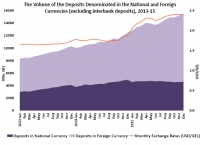
In December 2015, compared to the same month of the previous year 2014, the volume of total deposits increased by 24.8% (3 080 mln GEL), while the volume of total loans to the national economy increased by 23.5% (3 074 mln GEL). Taking exchange rates into consideration, the growth rate of the deposits is 5.4% and the growth rate of the loans is 5.8%. In this period, the average interest rate on deposits denominated in foreign currency declined by 0.6 percentage point and on deposits denominated in the national currency increased by 1.1% percentage. Regarding loans, interest rates on loans denominated in foreign currencies declined by 1.1 percentage point and on loans denominated in GEL declined by 0.6% point.The share of the deposits denominated in foreign currencies in total deposits increased by 10.0%, while the share of the loans denominated in the foreign currencies increased by 3.7%. However, taking exchange rates into consideration, the change in these indicators are 4.5 percentage point and -2.2 percentage point, respectively. Therefore, the level of the dollarization of the deposits increased, while the level of dollarization of loans declined.
Issue 66: Analysis of the External Factors Affecting on GEL Exchange Rate
2016-02-02 00:00:00
On February 2, 2016, based on the official exchange rate, the value of 1 USD is 2.47 GEL.
During January 2016, GEL depreciated towards USD by 0.08 point (3.1%) compared to the previous month and by 0.5 point (25.5%) compared to January 2015.
This issue reviews the dynamics of the key indicators, which maintain the inflow and outflow of the foreign currency in Georgia, such as: International Trade (Export and Import), Remittances, Visitors in Georgia, Foreign Direct Investments (FDI) and Public External Debt.
Issue 65: Foreign Direct Investment - I-III Quarters, 2015
2016-01-15 07:02:01
According to the preliminary data, in the first three quarters of 2015, the volume of Foreign Direct Investment (FDI), an important source of economic growth, amounted to US$1019.0 mln in Georgia.
In this period, the largest investors by country were Azerbaijan (38.5%), Netherlands (14.2%) and Turkey (10.8%). The highest proportion of FDI was in the transport and communications sector (56.1%), while the most attractive location for investors was still Tbilisi (78.0%).
Issue 64: “New Year Products” Prices - 2015
2016-01-06 10:41:52
The current publication of newsletter gives an overview of four important New Year products, such as walnut, honey, pork and cheese. According to the diffused opinion, the prices of almost every product increases during the New Year time. However, the overall price level declined (-0.6%) in December 2015, compared to November, the same year. The prices have been declined on walnut (-4.7%), honey (-2.8%), pork (-0.7%) and on cheese (-1.0%).In December 2015, compared to corresponding period in 2014, the overall price level increased (4.9%). In this period, prices on walnut (-2.8%), pork (-1.7%) and on cheese (-3.5%) declined, while the price on honey increased (3.8%).
Issue 63: State Budget Compliance - 2015
2015-12-28 07:15:41
According to the preliminary data of 2015, state budget revenues as well as state budget expenditures will be complied. Specifically, state budget revenues are expected to be executed by 101.4%, while budget expenditures will reach 99.5% of the planned level.
In 2015, compared to the previous year, spending from the state budget was more balanced which reduced the negative effect of the fiscal policy on exchange rate and inflation in the fourth quarter.
Issue 62: Construction - I-III Quarters, 2015
2015-12-22 07:11:07
In the first three quarters of 2015, the share of construction sector in GDP is 6.9%.
In this period, compared to the same period in 2014, the volume of construction output, as well as its turnover increased respectively by 22.5% and 30.8%.The volume of loans to this sector increased also (35.8%).
In the first three quarters of 2015, the volume of FDI in construction sector declined by 47.5% compared to the corresponding indicator of the previous year.
Compulsory Saving Pension Scheme – Challenges and International Practices
2015-12-10 00:00:00
Society was always facing material security issue. Conventional approach, market mechanisms were unable to solve all the problems, so the state took responsibility for it. As a result, new challenges raised, that were exacerbated by the latest demographic trends and put under risk future sustainability of the state pensions system. The threat became a basis for the new reforms, including introduction of private pension savings.
Issue 61: Financial Soundness Indicators of the Commercial Banks- October, 2015
2015-12-04 00:00:00
In October 2015, considering the effect of foreign exchange rate, the volume of deposits increased by 5.9%, while the volume of loans to the national economy increased by 10.9% compared to the corresponding periods in 2014.
For the period of January-October 2015, the key indicators, which determine the financial sustainability of the commercial banks, are stable.
Issue 60: Public Debt - I-III Quarters, 2015
2015-11-20 00:00:00
In the first three quarters of 2015, compared to the indicator of 2014, the external public debt declined by 0.1%, while the corresponding indicator in GEL increased (27.7%), this is attributable to changes in the exchange rate. Hence, the public debt increased by 25.5%. Compared to 2014, the indicator of domestic debt also increased by 16.5%.
In this period, the Government of Georgia’s three largest multilateral creditors were: International Development Association (IDA) - 41.7%; International Bank for Reconstruction and Development (IBRD) - 20.9%; and Asian Development Bank (ADB) - 16.4%. The largest bilateral creditors are Germany (38.1%), Japan (22.2%) and Russia (12.3%).
Issue 59: Tax Revenues - I-III Quarters, 2015
2015-11-06 07:03:20
During the first three quarters of 2015, the tax revenues of the state budget increased by 11.2% compared to the corresponding indicator of 2014. In this period, 75.8% of the planned annual tax revenue for state budget has been realized.
The structure of state budget tax revenues has remained similar to the corresponding indicator in 2015. The revenues so far are composed as follows: value added tax (VAT) - 46.1%; income tax - 26.2%; profit tax - 15.3%; excise tax - 11.2%; and import tax - 0.9%. Compared with the same period in the previous year, the revenues increased for VAT (6.7%), profit (30.0%), income (15.1%) and excise (5.5%) taxes, while it declined for import tax (-30.2%).
Role of Tariff Policy in Improving Energy Efficiency in the Residential Sector
2015-11-03 00:00:00
Tariff policy plays an important role in providing “right” price signals for consumers, which is a necessary condition to improve the demand side energy efficiency (EE) in terms of the environmental, social and economic benefits. Improving EE is the most effective way to address challenges of energy security, import dependency and climate change.
Agricultural Land Ownership: The Optimal Way
2015-10-29 00:00:00
The research analyzes the general difficulties linked with agricultural lands, mostly surrounded with three major issues: large number of unregistered lands; the state as large owner of lands; and the limited right of foreigners to purchase land. The research discusses about the ways of overcoming these issues and gives appropriate recommendations.
Assessment of Fiscal Sustainability of the Universal Healthcare Program in Georgia, 2015-2030
2015-10-27 00:00:00
During the past decade, Georgia reformed its health sector and achieved a decline in child and infant mortality, a reduction in expenditure of inpatient services, an improvement in accessibility, equity and affordability of healthcare services. However, healthcare still remained unaffordable for almost half of the population, and people were spending a large share of their income on out-of-pocket expenses in comparison to other low- and medium-income countries.
Issue 58: Georgia's Trade with EU Member Countries - I-III Quarters, 2015
2015-10-23 00:00:00
During the first three quarters of 2015, the share of trade turnover between Georgia and EU member countries in Georgia’s total trade turnover is 31.7%, which exceeds (5.6% point) the same indicator in 2014. In this period, the share of export to EU member countries in total export is 28.6% and the share of import from EU member countries in Georgia’s total import is 32.6% .
In this period, the export from Georgia to EU countries as well as the import from EU member countries to Georgia increased by 2.1% and 6.8%, respectively.
The Service Quality in the Natural Gas Sector: EU Experience and Implications for Georgia
2015-10-22 00:00:00
Having reviewed the best European experience in regulating service quality, it is considered that OFGEM, British energy regulator has one of the best well-developed regulatory framework that sets necessary incentives for high standard commercial service quality. This paper reviews the experience of Great Britain in regulation of the service quality in natural gas sector. In line with British experience, Georgian situation in gas sector is analyzed and comparative analysis is conducted. Based on the analyses different policy options are provided.
Solar Power Scale: Policy Schemes for Supporting Solar Power Generation in Georgia
2015-10-20 00:00:00
Solar power is one of the fastest growing renewable energy technologies becoming competitive with traditional sources of electricity generation. Its main characteristics are: high initial investment costs, free fuel during the operations period and environmentally friendly nature. All this makes solar one of the best power solutions for all three sectors of economy: households, business and government. With high importance of energy security around the world solar brings individual solutions to agents in need of more secure power supply.
Issue 57: Real GDP and FDI - I-II Quarters, 2015
2015-10-09 00:00:00
During the first half of 2015, the real Gross Domestic Product (GDP) of Georgia increased by 2.8% (208.2 mln GEL) compared to the corresponding period in 2014.
In this period, the volume of Foreign Direct Investment (FDI), an important source of long-term economic growth, in Georgia amounted to US$530 mln.
Issue 56: Visitors in Georgia - January-August, 2015
2015-09-25 00:00:00
The growing number of visitors (tourists, one-day visits, and transit) to Georgia is important for the further development of the country’s tourism sector, as well as for increasing the inflow of foreign currency.
In January-August 2015, 3 922 376 international arrivals were registered in Georgia. This indicator exceeds the corresponding indicator for the same period in 2014 by 5.9%. During previous years, July-September has been the busiest period in this regard. A similar tendency is visible in 2015, as 40.5% of international arrivals have been registered in the period of July-August and with September’s statistics still to be added, this figure is likely to mirror the pattern of previous years.
Issue 55: State Budget Compliance - January-July, 2015
2015-09-11 00:00:00
For the period of January-July 2015, the indicator of state budget revenues compliance is 58.0% and the indicator of state budget expenditure compliance is 56.3%. These indicators exceed the corresponding indicators of 2014 by 2.4 % points and 2.6 % points respectively.
In this period, the largest source of state budget revenue is still tax revenues (93.5%) and the largest source of tax revenues still remains Value Added Tax (VAT) (45.5%).
For the period of January-July 2015, the largest share of total expenditure (35.1%) was devoted to social benefits.
Issue 54: The Impact of Possible Russian Embargo on Georgian Exports
2015-08-26 08:10:29
In 2014, the breakdown of Georgian exports by country noticeably differed from 2005 (before Russian embargo). In 2005, Russia was the largest market for Georgian exports and the share of Russia with a share of 17.8%. In 2014, the largest trading partner for Georgia in terms of exports is Azerbaijan (19% of total export), followed by Armenia (10%) and Russia now sits third having reduced to 9.6% (US $274.7 mln).
It should be noted that in 2005 Georgia exported to 93 countries, while by 2014 the number of countries had increased to 120.
From 2005 to 2014, the annual average growth rate of Georgian export (excluding Russian market) was 18.8% and exports increased by US $1 874.5 mln, in total.
The dependence on the Russian market reduced and the market for export has become more diversified which in some ways offsets the impact of external economic factors (embargo) on Georgian exports.
Issue 53: The Results of Possible Free Trade Agreement Between Georgia and China
2015-08-21 00:00:00
China is the second largest trading partner of Georgia. In 2014, total trade turnover between Georgia and China amounted to 823.4 mln. USD, which is 7.2 % of total turnover.
Georgia and China intend to intensify bilateral trade and economic relations through concluding Free Trade Agreement (FTA).
PMCG conducted research about the economic feasibility of this agreement. The study uses the “partial-equilibrium” model, which analyzes the possible results in a short-run period.
The study shows that FTA can contribute to increase the volume of export from Georgia to China. The volume of import and FDI from China to Georgia will also increase.
Issue 52: Banking Sector - June, 2015
2015-08-14 00:00:00
In June 2015, compared to the corresponding period in 2014:
• The volume of deposits increased (24.8 %; 2 719.5 mln GEL), as well as increased the volume of loans to the national economy (32.6 %; 3 664.7 mln. GEL). Considering the effect of foreign exchange rate, the volume of deposits increased by 7.3 % and the volume of loans to the national economy - by 14.7 %.
• Considering the effect of foreign exchange rate, the share of the deposits denominated in foreign currency decreased by 1.0 % point, while the share of the loans denominated in foreign currency decreased by 2.4 % point.
In January-June 2015, compared to the corresponding period in 2014, the total profit of commercial banks increased by 26.3 % and equals to 243 mln. GEL.
Joint Feasibility Study on China-Georgia Possible Free Trade Agreement
2015-08-07 00:00:00
The study showed that a free trade agreement between Georgia and China has great potential. Georgia’s export to China would increase by 9% approximately, in the short-term period including significant growth of wine exports (28.5%) and non-alcoholic drinks (36.7%). On the other hand, imports from China would increase by 1.7%.
Issue 51: Consumer Prices - January - June, 2015
2015-07-31 07:22:35
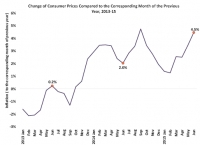
In June 2015, compared to June 2014, consumer prices increased by 4.5%.
In this period, the highest growth of prices recorded on the following categories: • Alcoholic beverages and tobacco (11.4%). Among them increased the prices of vodka (28.5%), domestically produced non- filter cigarette (23.6%) and beer (14.6%). • Furnishings, household equipment and maintenance (8.2%). Among them increased the prices of paper napkins (21.6%), vacuum cleaner (16.8%) and air conditioner (14.6%). • Health care (7.4%). Among them the prices increased on anti-inflammatory medicines (28.2%), vitamins (21.4%), antibiotics (20.3%) and hospital services (5.1%).
In this period, the largest reduction of prices recorded on the following categories: • Clothing and footwear (-3.3%). Among them prices declined on child’s jacket (-12.8%), man’s suit (-10.0%), child’s shirt (-5.2%) and girl’s summer shoes (-4.6%). • Transport (-0.6%). Among them prices declined on diesel fuel (-7.5%) and intercity motor transport tariff (-7.1%).
In June 2015, the prices of commodities of the subsistence minimum basket increased on avarage by 18.2%, while the subsistence minimum for working age male increased on avarage by 7.9 %.
Issue 50: GDP by Categories of Use - I Quarter, 2015
2015-07-17 00:00:00
In the first quarter of 2015, the nominal GDP increased by 8.3% and real GDP increased by 3.2% compared to the first quarter of 2014.
In this period, total volume of the final consumption expenditures as well as gross capital formation increased (7.9%, 32.1% respectively). Total volume of exports declined in national currency (GEL) by 0.5% and in foreign currency (USD) by 16.0%. Total volume of imports increased in national currency by 12.0%, but declined in foreign currency by 5.4%. This difference can be explained by the depreciation of national currency (18.5%).
გამოცემა 49: შემცირებული გზავნილების შესაძლო გავლენა საქართველოს ეკონომიკაზე
2015-07-07 08:59:30
საქართველო, როგორც მცირე ღია ეკონომიკა, მნიშვნელოვნად არის დამოკიდებული საგარეო ფაქტორებზე, მათ შორის უცხოეთიდან შემოსულ ფულად ნაკადებზე, როგორებიცაა პირდაპირი უცხოური ინვესტიციები და ფულადი გზავნილები. 2015 წლის ბოლომდე მოსალოდნელია ფულადი გზავნილების 330 მლნ.დოლარით შემცირება, თუმცა გაცვლითი კურსისა და მულტიპლიკატორის ეფექტის გათვალისწინებით, აღნიშნული არ გამოიწვევს ნომინალური მშპ-ს (ლარში) 1%-ზე მეტად შემცირებას.
Issue 48: Business Sector - I Quarter, 2015
2015-07-03 00:00:00
In the first quarter of 2015, the production in business sector increased by 11.9%. in comparison with the first quarter of 2014. In this period the average monthly remuneration of employed individuals increased by 72.6 GEL and the number of employees in the business sector increased by 49 661 unit.
Issue 47: External Trade - I Q, 2015
2015-06-12 11:21:08
In the first quarter of 2015, the volume of registered trade in goods is 2,277.7 mln. USD. The share of registered import of goods in total turnover is 77.9% and the share of registered export of goods is 21.1%. During this period, the export (-28.0%) and import (-7.1%) volume declined. Export to CIS countries decreased by -55% (-216.4 mln. USD) while to EU countries increased by 21% (29.6 mln. USD). The major contribution in the reduction of export to CIS is a significant decline of export to the following countries: Azerbaijan (-82 mln. USD), Ukraine (-42 mln. USD), Armenia (-41 mln. USD) and Russia (-40 mln. USD). This supports the argument that export diversification remains an important issue.
Export (-21%) and import (-19%) volume continues to decline in April 2015, but the rate of decline of imports is increasing and the rate of decline of exports is decreasing in comparison with the previous months 2015.
Waste Management in Georgia
2015-06-10 12:58:14
Even if the streets in Georgia are swept and clean, it does not mean that waste is managed in the country. Despite a big interest of the Georgian government, there are still no striking changes in the waste management in Georgia. A considerable step forward might be the “Waste Management Code” that entered into force on the 15th of January, 2015.
Issue 46: Education and Science Sector - 2014
2015-05-29 00:00:00
In 2014, the share of education expenditure as % to GDP is 2.9% and its share in total public expenditure is 9.2%.
The planning of the education reforms started in 2005 and their active implementation phase started in 2007. In 2014, the indicator of education expenditure increased by 8.4% compared to 2013 and by 92.6% compared to 2007.
Issue 45: State Budget Revenues - I Q, 2015
2015-05-08 00:00:00
In the first quarter of 2015, the state budget revenues increased (14.6%) compared to the first quarter in 2014. Among them, tax revenues increased by 11.5% (189.1mln. GEL), grants by 6 times (48.7 mln. GEL) and the other receipts by 21.4% (11.4 mln. GEL). In this period the revenues increased from profit (26.5%), value added (11.8%), income (4.5%) and excise (11.3%) and declined from import (-22.6%) taxes.
In the first quarter of 2015, the state budget expenditures also increased (8.8%) in comparison with the indicator of the same period in 2014. Among them, expenditures on percent increased by 40.5%, on payments of employees by 10.1%, on social protection by 9.6%, on subsidies by 8.1%, on grants by 4.5%, on goods and service by 2.6% and on other expenditures by 7.1%.
Economic Analyses of the Proposed Amendments to the Labor Code of Georgia
2015-04-30 00:00:00
PMC Research Centre presents economic analyses to the Labor Code of Georgia. The analysis is based on international empirical studies, experiences of other countries, and the survey of business leaders’ attitudes to the initiated amendments to the Labor Code of Georgia. The aim of the report is to analyze expected economic effects of mentioned changes.
Issue 44: Average Monthly Incomes and Expenditures Per Household
2015-04-24 09:23:24
In 2007-2013, the average monthly incomes and expenditures, which are one of the indicators of standard of living, has increasing trend. The corresponding indicators for 2014 have not published yet *.
In 2014, the average monthly nominal salary of employees in business as well as in non-business sectors increased by 9% and by 7% respectively compared to 2013.
Issue 43: Real GDP & FDI, 2014
2015-04-14 00:00:00
The preliminary estimates of the real GDP growth rate in January 2015 is 0.5% and in February - 4.9%.
In 2014, the indicator of the real GDP growth rate was 4.8%, which exceeds (1.5 percent point) to the corresponding indicator in 2013 (3.3%).
In 2014, the volume of foreign direct investment increased significantly (35.1%) compared to 2013.
Issue 42: External Trade - 2014
2015-03-27 00:00:00
In 2014, the volume of the registered trade turnover is 11 457 mln. USD. The share of import in total registered turnover is 75% and the share of export is 25%. In 2014, the volume of export decreased (-1.6%) and the volume of import increased (7.1%) compared to 2013.
The indicator of export decreased significantly in IVQ 2014 compared to IVQ 2013 and continued to decrease (-26.9%) in the period of January - February 2015 compared to the corresponding period in 2014. The volume ofthe registered import also decreased (-2.2%) in January-February 2015.
Issue 41: Energy Sector - 2014
2015-03-10 00:00:00
In 2014, both the volume of the internal generation (2.9%; 292.9 mln.kvt.hr) as well as consumption of power (5.1%; 507 mln.kvt.hr) increased compared to 2013. In mentioned period, the power consumption exceeds the power generation, hence, the negative balance was satisfied by the import of electricity (793.2 mln.kvt.hr).
In 2014, the value added in energy sector increased (5.2%) compared to 2013.
In the first three quarters of 2014, the volume of investments in energy sector declined (-52.9%) compared to corresponding period in 2013.
Issue 40: Banking Sector - 2014
2015-02-17 18:29:05
In 2014, the volume of the deposits increased (20.8%) compared to 2013. In this period the volume of the loans to the national economy also increased (23.4%).
In 2014, the share of the deposits denominated in the foreign currency (60.2%) remains the same compared to 2013, which points that the level of dollarization did not change. In this period, the share of the loans denominated in foreign currency is 60.8%, which is lower (-1.2% point) than the indicator of 2013.
In this period, the profit of the commercial banks increased (22%; 85.8 mln. GEL) compared to 2013.
Issue 39: Gasoline Prices in The World and in Georgia
2015-02-06 10:56:33
Since July 2014, the world price of the crude oil per barrel has started to decline significantly. In January 2015, the price on per barrel (116 liter) of crude oil decreases by 57.45 USD compared to July 2014 and equals 45.7 USD. Hence, in this period, the world price of the crude oil decreased by 55.7%, while the price of premium type gasoline in Georgia decreases only by 20.3%.
In 2014, the daily world oil supply increases by 2.1% compared to 2013. In this period, the daily world oil demand also increases (0.7%), but the growth of demand is lower compared to the growth of supply, hence, on average the daily world crude oil supply exceeds the daily world crude oil demand by 0.8 mb.
Issue 38: Visitors in Georgia - 2014
2015-01-22 12:30:10
In 2014, the number of visitors is 101.2 thousands more compared with the corresponding indicator in 2013. The most of the visitors (86.2%) entered Georgia from neighbouring countries (Turkey, Armenia, Azerbaijan and Russia) via land border.
In this period, the number of visitors entered Georgia via land border, as well as airplanes increased ( 0.8%; 9.4%) compared to the corresponding indicators in 2013.
In the first three quarters of 2014, the exports of tourism services (4.6% ) as well the imports of tourism services increased (1.3%; ). In the same period the tourism sector value-added also increased (11.8%).
Issue 37: Real GDP & FDI, I-III Q 2014
2015-01-15 10:24:15
In the first three quarters of 2014, real GDP increased (5.9%; 645 mln.GEL) compared to the corresposding period in 2013. The largest contributions to the real GDP growth have the following sectors: construction (1.2 percentage point), manufacturing (1.1 percentage point) and trade (1.1 percentage point).
In this period, the volume of the Foreign Direct Investment (FDI) also increased (29.1%; 208.3 mln.USD), basically due to the significant increase of FDI (99.2%) in the third quarter of 2014. It is noteworthy, that since 2008, such large inflow of FDI have not been in any quarter. In the first three quarters of 2014, the volume of FDI equals to 923.3 mln.USD.
Issue 36: State Budget Performance - 2014
2014-12-26 12:19:45
In 2014, state budget revenues are expected to be fully executed, while budget expenditures will reach 98% of the planned level. Moreover, tax revenues will exceed the planned indicator nearly by 70-80 mln. GEL.
In January-November 2014, the most significant increase in the revenues was from VAT (15.5%; 445.7 mln. GEL), excise tax (12.3%; 80.6 mln. GEL) and grant revenues (45%; 62.4 mln. GEL), compared to the same period last year. Social expenditures (24%; 445.7 mln. GEL) and expenses on goods and services (17%; 106.7 mln. GEL) have increased as well.
Issue 35: Construction - III q 2014
2014-12-24 12:16:13
In the first three quarters of 2014, the construction sector has the largest share (1.2%) in the growth rate of the gross domestic product (GDP) (5.9%).
In the first three quarters of 2014, the construction sector has significantly activated. The foreign direct investments (FDI) have largely expanded (312.7%), compared to the same period of the previous year. In the period of January-October 2014, the volume of loans to this sector has also grown (2.0%). The product value in this sector has largerly increased (28.1%).
Issue 34: Exchange Rate Dynamics - November 2014
2014-12-10 11:22:52
On December 10, 2014, the official exchange rate set by the National Bank of Georgia is 1.93 GEL to 1 USD. During the last three weeks GEL depreciated against the USD by 0.18 units.
At the peak, exchange booths were selling 1 USD at 2.05 GEL. The depreciation of the GEL in such an extent was out of the logic, despite taking into the consideration the fundamental aspects (trade balance worsened, remittances from abroad declined, the flow of the tourists slowed down), which affected negatively on the GEL exchange rate.
The sharp depreciation of the GEL was basically due to the speculations of the market players, also due to the panic reactions of the population as well as businesses, converting the GEL into the USD.
Issue 33: External Trade - Q3 2014
2014-11-28 09:07:37
In the Q3 2014, the trade turnover increased (1.9%), compared to the same period in 2013, which is due to the increase of import (4.9%). In this period the volume of exports decreased (-6.2%), due to the decrease of the volume of re-export, therefore the trade balance also worsened (-11.5%).
The top five largest trade partners are still: Turkey (16.7%), Azerbaijan (10.1%), China (8.0%), Russia (7.5%) and Ukraine (5.5%).
Issue 32: Public Debt - I-III quarters, 2014
2014-11-14 10:04:38
In the first three quarters of 2014, the volume of public debt increases (3.9%; 336.1 mln. GEL) compared to 2013. The volume of domestic debt increases (36.6%), while the volume of external debt declined (-2.1%).
In the first three quarters of 2014, the volume of public debt increases (3.9%; 336.1 mln. GEL) compared to 2013. The volume of domestic debt increases (36.6%), while the volume of external debt declined (-2.1%).
Public Funds and Property Management Manual
2014-11-10 00:00:00
The manual describes budgeting process and its connection with the government budgeting process. Also, classification and formation principles of local budget revenues and expenditures, compilation of budget and program budget forms. Practice and purpose of implementation of changes. Also, forms and principles of quarterly and annual reports.
Issue 31: Tax Revenue - January-September 2014
2014-10-21 08:23:47
In September 2014, the volume of budget tax revenues exceeds (17.0%; 96.6 mln. Gel) the corresponding indicator in September 2013 and reaches 665.9 mln. GEL. Revenues increase from: value-added tax (VAT) (23.0%), profit tax (22.3%), personal income tax (14.2%) and import tax (13.2%). Revenue from the excise tax decreases (-1.4%).
Possible Challenges of Harmonization of Georgian Legislation with the Acquis Communautaire of the European Union in Energy Sector
2014-10-13 00:00:00
European Union’s (EU) strategic interest and relations with Georgia have been developing over past years. In this period, Georgia significantly deepened its ties with the EU. On the one hand, EU’s strategic interest and on other hand, Georgia’s considerable progress in the reforms maintained to implement EU’s foreign policy initiatives in Georgia such as the European Neighbourhood Policy (ENP) and the Eastern Partnership (EaP). These initiatives are aimed at economic development, fostering democracy, equality, rule of law and strengthening human rights credentials. In general, EU-Georgia relations have been centred on three main issues: assistance to political and economic transition processes, conflict resolution and support to the development of the energy potential of the country.
The Effects of Investments in Clean Energy in Georgia
2014-10-10 00:00:00
It was several decades ago when mankind observed that country’s development is no more function of economic growth and technological innovation only, but also environmental stability, healthy ecosystem and social equity, hence the term sustainable development emerged. Sustainable development concept is important in energy sector as well, since this sector is one of the most polluting and at the same time it is an engine for economic growth and technological innovation. Energy needs today should be met without compromising the ability of next generations to meet them in the future. To achieve the latter objective, the best and perhaps the only option is to manage successful transformation from fossil fuel to predominantly clean energy based economies.
Global Food Price Shocks Transmission to Local Markets and Welfare Implications for Georgian Households
2014-10-09 00:00:00
In the period of 2003 - 2013, real growth of GDP averaged 6.3% in Georgia, however the benefits of the growth has not been equally shared among different groups of population. Despite the robust growth over the past ten years, as of 2013, 9.3% of total population remains below the poverty line. This poses significant challenges to the food security policy in Georgia. According to the Global Hunger Index1 (GHI) measured by the International Food Policy Research Institute, Georgia lags behind most of the countries in the region in terms of food security.
Issue 30: GDP and FDI - II quarter 2014
2014-10-03 08:34:05
In the first quarter of 2014, real GDP increased (7.1%, 223mln GEL). Manufacturing (16.7%, 56.4 mln.GEL), construction (14%, 35 mln. GEL) and trade (11.1%, 57.1mln GEL) expanded the most. The reduction was only in mining (-13.6%; -3.3 mln.GEL). In the first quarter of 2014, FDI (15%; 33.7 mln.USD) also increased.
Issue 29: Tax Revenue - January-July 2014
2014-09-18 12:28:18
In July 2014, the volume of tax revenues exceed (12.4 %; 98.2 mln. GEL) the corresponding indicator in July 2013 and reached 647.4 mln. GEL. Tax revenues increased in all categories: value-added tax (VAT) (17.1 %; 41.2 mln. GEL), income tax (13.7 %; 20.5 mln. GEL), import tax (6.0 %; 0.5 mln. GEL), profit tax (4.9%; 5.0 mln. GEL) and excise tax (4.1 %; 3.0 mln. GEL).
Issue 28: Banking Sector - July 2014
2014-09-12 10:34:26
In July 2014, the volume of deposits increased (19.1%) compared to July 2013. Deposits denominated in both, national (GEL) , as well as in foreign currency (17.9%) increased (21%;17,9%) .The share of deposits denominated in foreign currency (60.9%) still exceed the share of deposits denominated in national currency (GEL) (39.1%).
Why Georgia must work closely with its neighbours
2014-09-10 00:00:00
Collaborating with neighbours is vital for any country to ensure sustainable development. The example of Georgia is one of many, but may be useful for other small countries in helping them to create an environment where cooperation can naturally flourish, despite a complex geopolitical environment.
Issue 27: GDP and FDI - I quarter 2014
2014-07-30 12:35:38
In the first quarter of 2014, real GDP increased (7.1%, 223mln GEL). Manufacturing (16.7%, 56.4 mln.GEL), construction (14%, 35 mln. GEL) and trade (11.1%, 57.1mln GEL) expanded the most. The reduction was only in mining (-13.6%; -3.3 mln.GEL). In the first quarter of 2014, FDI (15%; 33.7 mln.USD) also increased.
GoARA PR/communication Manual
2014-07-21 21:53:52
The document provides normative guidelines for the Public Relations Department of Government of Autonomous Republic of Adjara (GoARA), which was prepared in the framework of the project – Improving Interagency Communication of GoARA through Increased Capacity of GoARA PR/Communication Departments and was funded by USAID Good Governance in Georgia (G3) program.
Analysis of the Medium Term Fiscal Policy Sustainability in Georgia
2014-07-21 21:42:37
The research “Analysis of the medium term fiscal policy sustainability in Georgia” assesses the fiscal sustainability of the country in medium and long-term periods. A stable development oriented fiscal policy is crucial for the sustainable economic development of a country.
Analysis of the State Procurement System of Georgia
2014-07-21 21:13:00
The research paper “Analysis of the State Procurement Policy of Georgia” studies the strength and challenges of the existing state procurement system of Georgia. The research is based on the analysis of state procurement policy, conducted interviews with representatives of large procuring entities and suppliers of goods and services, with representatives of the State Procuring Agency.
Issue 26: Tax Revenue - January-May 2014
2014-06-27 04:55:49
In January-May of 2014, the state budget total revenue of Georgia increased (4.7%; 127.7 mln.GEL), compared to the respective period in 2013. This is due to significant increase of tax revenue (5.1%; 131.1 mln.GEL) and other revenues (17.0%; 16.1 mln.GEL).
Issue 25: Trade with Ukraine - I quarter, 2014
2014-05-14 17:58:26
In March 2014, the volume of export (-33.3%; -5.1 mln.USD) as well as the volume of import (-4.3%; -2.1 mln.USD) decreased significantly compared to March 2013. In the first quarter of 2014, according to the share in total export (8%), Ukraine is the fourth largest partner of Georgia. According to the share in total import (6%) , Ukraine is Georgia’s fifth partner.
Issue 24: Trade with Russia - 2013
2014-04-29 00:00:00
In 2013 total volume of exports from Georgia to Russia is 190 mln. USD (24% of turnover), while import volume is 589 mln. USD (76% of turnover). In 2013 the negative trade balance with Russia decreased (7%; 28 mln.USD) and equals -399 mln. USD compared to 2012.
Issue 22: Construction Sector - 2013
2014-04-04 16:14:16
In 2013, the volume of construction decreased (-10.5%; -124.3 mln.GEL) compared to 2012. Therefore, the number of empolyees in construction sector also decreased (-18.8%; -10,984 man). In 2013, expenses on construction from the consolidated budget was less (-19.2%; -368.2 mln.GEL) than the corresponding indicator in 2012.
Issue 21: Banking Sector - 2013
2014-03-25 16:13:03
In January 2014, the indicator of the volume of loans exceeds (21.6%) to the corresponding indicator in January 2013. The weighted average interest rate on loans decreased (1 percentage point) and equals 18.4%. In January 2014, the indicator of the volume of deposits exceeds(21.0%) to the corresponding indicator in January 2013.
Issue 20: Expenses and Deficit of the Consolidated Budget 2013-2014
2014-03-11 13:17:35
In 2013, the expenses on infrastructure declined (-24%, -362 mln.GEL), but the expenses on social benefits increased (23.5%, 437 mln.GEL) compared to 2012. In 2014, planned expenses on social benefits (22.5%, 516 mln.GEL) and expenses on infrastructure (46%, 523 mln.GEL) are higher compared to the corresponding actual indicators of 2013.
Issue 19: External Trade - 2013
2014-02-11 12:29:48
In 2013 the negative external trade balance decreased (-9.1%, -500 mln. USD) compared to the corresponding indicator in 2012. In the mentioned period, the volume of export increased significantly (22.4%, 532 mln. USD), while the volume of import almost remained unchanged (0.4%, 32 mln. USD). In 2013, the external trade turnover with EU countries increased (3.5%, 97.8 mln. USD).
Issue 18: Tax Revenues - 2013
2014-02-04 00:00:00
The completion rate of state budget in 2013 is 91%.Correspondingly, there is the lack of 608.9 mln GEL in state budget.
In 2013 Budget revenue decreased (-2.1%) compared to 2012. Tax Revenue (-0.2%) as well as grants (-23.3%) and other revenues (-13.3%) also decreased.
Issue 17: Tax Revenues - January - November 2013
2014-01-23 00:00:00
The completion rate of state budget in 2013 is 90.9%.Correspondingly, there is the lack of 632.3 mln. GEL in state budget1.
During the three quarter of 2013, the indicator of Tax burden (tax revenues/GDP) (25.3%) has not changed much in comparison with the corresponding indicator for 2012 (25.7%).
In November 22013, tax revenues increased in comparison with the November 2012 (3.6%).
Issue 16: GDP and Foreign Direct Investments - III quarter 2013
2014-01-19 13:15:26
In the third quarter of 2013, real GDP increased (1.4%) in comparison with the corresponding indicator in 2012. The largest growth was in agriculture (9.5%) and the largest reduction was in construction (-16.9%) sectors. In the third quarter of 2013, the volume of foreign direct investment increased significantly (19.9%). Thus, the lack of FDI was not the reason of reduction GDP growth rate.
Issue 15: Banking Sector - January, October 2013
2013-12-25 16:07:37
This issue of “Economic Outlook and Indicators” analyzes the banking sector in the period of January-October 2013.
In October 2013 the volume of deposits, as well as the volume of loans to the National economy increased ( 22.6%; 12.6%)
in comparison with the indicators of the corresponding period in 2012.
Issue 14: Tax Revenues - January, October 2013
2013-12-05 16:06:48
This issue of “Economic Outlook and Indicators” analizes tax revenues in the period of January-October 2013 in comparison with the corresponding period in 2012. In October 2013, tax revenues reduced in comparison with the October 2012 (-10.5%). Revenues from VAT, Excise and Import taxes declined (-24.8%; -10.7%; -19.1%) and the revenues from Income, Profit and Property taxes (10.9; 47.9%; 9.7%) increased.
Issue 13: Gross Domestic Product by Economic Sectors - I-II quarters, 2013
2013-11-14 16:06:14
The growth rate of GDP in the first two quarters of 2013 is 1.9 %, which is lower than the indicator of the same period of 2012 (7.5%). It’s under the question to achieve the growth rate projected by either the Government of Georgia (6%, 4%) or by IMF (2.5%) for 2013. The structure of GDP by sectors did not change during the first two quarters of 2013.
Issue 12: Tax Revenues - January, August 2013
2013-10-15 16:05:46
This issue of “Economic Outlook and Indicators” analizes revenues from VAT, income, profit and excise taxes in the period of January-August 2013 in comparison with the indicator of the corresponding period in 2012. In August 2013, tax revenues reduced in comparison with the indicator of August 2012 (-6.7%).
Issue 11: Foreign Direct Investments - II quarter, 2013
2013-09-30 16:04:43
In the second quarter of 2013, foreign direct investment increased in comparison with the corresponding indicator in 2012 (1.5%), as well as in comparison with the same indicator in the first quarter of 2013 (12.7%). It should be noted that in this period the growth rate of FDI,in comparison with the corresponding indicator in the previous year, was positive (1.5%) after the first quarter of 2012.
Issue 10: Tax Revenues - January-July, 2013
2013-09-19 16:04:13
This issue of “Economic Outlook and Indicators” analyses revenues from VAT, income, profit and excise taxes in the period of January-July 2013 in comparison with the indicator of the corresponding period in 2012. In July 2013, tax revenues increased in comparison with the indicator of July 2012 (0.9%).
Issue 8: The Review of Georgia's External Trade - August, 2013
2013-08-20 15:58:54
In the second quarter of 2013, the dynamics of external trade turnover is similar to the dynamics of the same indicator in previous years. In the second quarter of 2013, the dynamics of external trade turnover was 2568.2 mln.USD, which is lower (-1.2%) than the corresponding indicator of previous year, but it exceeds the corresponding indicator of the first quarter 2013 (19.7%).
Issue 7: Tax Revenues - August, 2013
2013-08-07 15:55:51
The following newsletter reviews Tax Revenues of Georgia in the period of January-June 2013 in comparison with the corresponding period of 2012, as well as 2011. In June 2013, the volume of Tax Revenues is lower than the same indicator in 2012 (-9.7%), as well as in comparison with the indicator of May 2013 (-3.7%).
Issue 6: Tax Revenues - January-May, 2013
2013-07-23 15:55:09
The following newsletter reviews Tax Revenues of Georgia in the period of January- May 2013 in comparison with the corresponding period of 2012, as well as 2011. In May 2013, the volume of Tax Revenues is higher in comparison with the indicators of May 2012 (12.3%), as well as in comparison with May 2011 (4.7%).
Issue 5: Foreign Direct Investment - July, 2013
2013-07-09 15:51:39
Foreign Direct Investment (FDI) has positive impact on country’s economy. It contributes to the improvement of living standards through increased productivity and production. Since 2012, quarterly dynamics of FDI is decreasing. In 2012, the volume of FDI was significantly lower in comparison with the corresponding indicator in 2011 (-23%).
Issue 4: The Review of Georgia's Financial Sector - June, 2013
2013-06-26 15:44:33
Monthly dynamic of deposits of legal entities and individuals in commercial banks in the second part of 2012 had decreasing trend. The growth rate of deposits slowed down in the second part of 2012 compared to the corresponding period of 2011.
Issue 3: Tax Revenues - May, 2013
2013-05-20 15:43:28
The following newsletter reviews tax revenues of Georgia in the first quarter of 2013 in comparison with the corresponding period of 2012 and 2011 years. It covers the taxes, which have the highest shares in the overall tax revenues: VAT (42.7%), Income (27.8%) and Profit (16.5%) ones.Tax revenues increased, but in a small rate (4%), in the first quarter of 2013 compared to the corresponding period of 2012.
Issue 2: The Review of Georgia's External Trade - March, 2013
2013-03-22 15:40:49
External trade had increasing pattern since 2009. In 2012 the volume of external trade of Georgia reached 10, 220 mln USD with 10.5% growth rate. The share of import volume in 2012 trade increased (77%) and the share of export volume decreased (23%) compared to the corresponding indicators for 2011 (76%, 24%).
Needs Assessment of the Parliament of Georgia
2013-03-01 00:00:00
With the support of the EU Delegation in Georgia, PMCG conducted the Needs Assessment of the Parliament of Georgia to identify and analyse a variety of institutional needs or performance gaps of the Georgian Parliament. The document addresses the issues, factors or shortcomings that affect the exercise of institutional functions by the Parliament and efficiency of parliamentary activities or operations.
Issue 1: Overview of Tax Revenues - 2012
2013-02-22 15:38:30
Similar to the previous years, VAT and Income Tax were the most important sources for the formation of 2012 budget revenues (45%, 26.5%). During the period of 2007-2012 the growth of tax revenues followed the growth of Nominal GDP. The average inflation rate had similar pattern too.
Georgian Economic Climate (Q3, 2024)
Our latest Georgian Economic Climate publication offers assessments of various economic developments by Georgian economists.
Assessment of Georgia’s present economic situation was slightly positive, while predictions for Georgia’s economic situation by the end of the next six months were negative. Overall, their outlook was significantly more optimistic compared to the previous reporting period.
Political instability and labor shortage had the greatest impact on the Georgian economy in Q3 2024.
The pause in U.S. assistance “that directly benefits the Government of Georgia” was assessed very negatively in terms of its effects on Georgia’s economy.
Please refer to the full publication for more insights.
